The UK Electronics Skills Foundation (UKESF), in collaboration with Apple, has announced its exciting ‘Girls into Electronics’ programme for 2023. This initiative will provide opportunities for hundreds of girls between ages 15-18 to be inspired by Electronics and will be delivered in collaboration with 15 of the UK’s leading universities.
The Electronics sector is extremely important to the UK economy. The global semiconductor industry is the fourth largest industry in the world, and the global compound semiconductor market has been forecast to reach $136 billion by 2024, of which the UK have an 8% share. However, the demand for employable graduates is currently outstripping supply. UCAS figures show that only 3,245 students enrolled on degrees in Electronic and Electrical Engineering in the UK 2021, of which as few as 335 were women.
The UKESF and Apple have launched the initiative to support 400 girls to gain insight into Electronics, in an effort to address the skills shortage and to help improve gender imbalance in the sector.
Making advances in Electronics and semiconductors is critical to providing technological solutions to some of the biggest challenges facing society, including climate change, improving healthcare and better connectivity and communications. Initiatives like Girls into Electronics are important to encourage more students from diverse backgrounds to consider careers in this vital profession.
Speaking about Girls into Electronics, Stew Edmondson, CEO, UKESF said: “Many students touch upon Electronics in their Physics and Computer Science lessons at school, but the breadth, complexity and importance of the field is often not fully understood. This initiative will ensure that more young people get to experience this fascinating and creative subject, and learn about the worthwhile opportunities available in Electronics Engineering.
“We believe education can be a powerful force for equity, and help provide young women with the tools and opportunity to pursue a rewarding career in hardware engineering,” said Mari-Anne Chiromo, Apple Inclusion and Diversity Partnerships Lead EMEIA. “We’re thrilled to be working with the UKESF on this important initiative, to encourage more women from all backgrounds to study electronic engineering and improve the current gender imbalance in the field.”
Chi Onwurah MP, Shadow Minister (Business, Energy and Industrial Strategy) said, “A strong Electronics and ‘deep tech’ industry is essential to the health of the UK economy but we know that the UK has a skills shortage in this critical sector. That’s why it’s great to see the work that the UKESF is doing encouraging more young people to pursue careers as Electronics Engineers. In particular, their Girls into Electronics initiative has the potential to make a real difference and it is something that we strongly support.”
Some of the UK’s top universities are participating in the initiative, including Bristol, Imperial College London, Leeds and Southampton. The events will take place in June and July 2023, students can find out more and register their interest in attending here.
UKESF Scholarships are awarded to the most motivated and capable undergraduate students, and since the Scheme started we have supported over 700 young engineers through their studies. We feel a sense of pride as we see their careers progress, none more so than when their success is recognised by Industry Awards. There are many such national Awards for instance from the IET, Royal Academy of Engineering and Electronics Weekly.
We encourage our Scholars, both current and graduated, to consider applying for Awards that recognise their contribution and impact in Electronics. To help, in this blog we’ve summarised some of these, along with deadlines for applying, and we hear from Ben Fletcher, winner of the RAEng Young Engineer of the Year 2021, and Ronnie Smith, who won the IET Postgraduate Prize.
We encourage our Scholars, both current and graduated, to consider applying for Awards that recognise their contribution and impact in Electronics.
Undergraduate Awards include:
RAEng Engineering Leaders Scholarships
Applications close 16 January 2023
Support for undergraduates in UK Higher Education Institutions, who display the potential to become leaders and innovators in engineering, and who want to become leadership role models for the next generation of engineers. David Kong, University of Edinburgh / onsemi, was awarded the Engineering Leaders Scholarship in 2019.
Applications close 1 October 2023
Recognising engineers who are already making a difference in the first years of their careers, or those who are still studying but showing the promise to become the innovators and leaders in electronics in the years to come. In 2022, five Scholars were awarded BrightSparks Awards.
Applications open March 2023
Scholarships for students, degree apprentices and apprentices who have faced financial challenges or personal obstacles, and Scholarships for high-achieving students and degree apprentices who have a passion for engineering.
Early Career Awards include:
RAEng Engineers Trust Young Engineer of the Year
Applications close 3 February 2023
Recognising engineers in full-time higher education, research or industrial employment, who have demonstrated excellence in the early stage of their career.
Elektra Awards – Rising Star Award
Applications close July 2023
Recognising a talented young engineer in their first five years in the industry who demonstrates a high level of practical skill and ambition and are actively contributing to the business.
The TechWorks Young Engineer of the Year Award
Applications close Autumn 2023
This Award publicly celebrates and promotes the efforts of young professionals at the early stages of their careers. Oisin Robinson, Graduated Scholar and Design Engineer at Picocom, was shortlisted for the Award in 2022.
If you are a Scholar and have any questions about applying for these Awards, or are looking for any support to apply, don’t hesitate to get in touch with us at [email protected]
Physical Design Engineer, Graphcore
RAEng Young Engineer of the Year 2021
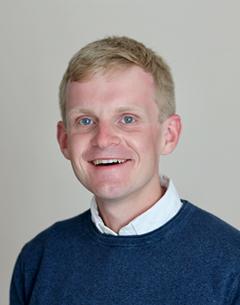 I chose to study Electronic Engineering for my undergraduate degree at the University of Southampton. In my second year, I was awarded a UKESF Scholarship, sponsored by Arm, where I worked as a summer intern within the CPU verification group. Although this was a great experience, I also really enjoyed the research element of my degree and hence decided to pursue a PhD in electronics after graduating.
I chose to study Electronic Engineering for my undergraduate degree at the University of Southampton. In my second year, I was awarded a UKESF Scholarship, sponsored by Arm, where I worked as a summer intern within the CPU verification group. Although this was a great experience, I also really enjoyed the research element of my degree and hence decided to pursue a PhD in electronics after graduating.
I applied for a competitive iCASE (Industrial Cooperative Awards in Science & Technology) studentship for my PhD from the Arm-ECS research centre. I was fortunate enough to be selected, which, alongside providing the funding, meant I was able to work in Arm Research (Cambridge) for the final two years of my PhD which was a great experience. During my postgraduate research I developed a new technology for performing 3D stacking of silicon chips, where each of the layers communicate wirelessly with one another. This novel approach led to several publications, awards and two patents. After graduating from my PhD, I joined Graphcore where I’m a Physical Design Engineer working on the flagship series of IPU (intelligence processing unit) chips for accelerating artificial intelligence applications.
The RAEng Young Engineer of the Year Award was mostly based on my PhD research which explored new approaches for cost-effective 3D chip design wireless communication.
PhD Student, Edinburgh Centre for Robotics
IET Postgraduate Prize
 When I was applying for university, I was torn between Computer Science and Electrical and Electronic Engineering. In the end I did a joint programme at Heriot-Watt University because I wanted to understand the “full picture” of technology. This meant that I mostly studied digital Electronics and software, and when I was undertaking my UKESF Scholarship with Leonardo during my degree I worked on FPGA firmware. Although I enjoyed my time there, by the time I was due to graduate I had developed an interest in robotics and AI and was seeking opportunities in that area. My university hosted one of the few Centres for Doctoral Training (CDTs) in robotics in the UK at the time, the Edinburgh Centre for Robotics, so I applied and was lucky to be accepted into the 2018 cohort.
When I was applying for university, I was torn between Computer Science and Electrical and Electronic Engineering. In the end I did a joint programme at Heriot-Watt University because I wanted to understand the “full picture” of technology. This meant that I mostly studied digital Electronics and software, and when I was undertaking my UKESF Scholarship with Leonardo during my degree I worked on FPGA firmware. Although I enjoyed my time there, by the time I was due to graduate I had developed an interest in robotics and AI and was seeking opportunities in that area. My university hosted one of the few Centres for Doctoral Training (CDTs) in robotics in the UK at the time, the Edinburgh Centre for Robotics, so I applied and was lucky to be accepted into the 2018 cohort.
Since then I have been working on my research into assistive robotics, particularly on enabling pro-active robotic assistance to support individuals living with mild impairments at home. In the past few years, I have also been a co-founder of a robotics start-up which creates modular robotic solutions for the care sectors.
My research brings together a number of topics to bring humans ‘in-the-loop’ and give them ownership over their own assistive technology. This involves programming robots to help with assistive tasks (such as picking up objects, handing them over, and so on) and applying a range of machine learning methods to learn from the user over time.
I hope that through this Award I can inspire and motivate more young girls to study Electronics and showcase to them that we can do equally well as our male counterparts. The work we do in this industry solely relies on our passion and skills, not our gender.
Nishika Chettry, Scholar of the Year 2022
The UKESF Scholar of the Year Award 2022 was announced at the annual TechWorks Awards and Gala Dinner in London on 8 December. We were pleased to recognise Nishika Chettry, Aston University/Renesas Electronics Europe, as Scholar of the Year, with Leon Brindley, University of Southampton/Qualcomm, as runner up.
Nishika was praised for her significant contribution during her work placement, her outstanding academic achievement, as well as her outreach and engagement work, which she has undertaken independently, and through the UKESF and her university. She has twice won departmental awards for achieving the top results, and has received external recognition as one of Electronics Weekly’s ‘BrightSparks’.
Nishika was selected from 122 current Scholars, and is the 6th female student to receive the prestigious Scholar of the Year Award since the programme was launched in 2010.
Nishika commented: “Being awarded the Scholar of the Year feels like my hard work from the past four years at university has been recognised. It has acted as a confidence booster for me that I am on the right track and am doing the right things. I will continue to work and do my part in making space for women in the Electronics industry, all in an effort to bridge the gender and generational gap that we currently have in this sector. But most importantly, I hope that through this Award I can inspire and motivate more young girls to study Electronics and showcase to them that we can do equally well as our male counterparts. The work we do in this industry solely relies on our passion and skills, not our gender.
I had such a wonderful time on placement at Renesas. I worked with many experienced professionals and learnt so much about embedded systems and robust coding. Everyone in the team was always ready to help me with questions. My manager, Tim Hartley, created such a positive and friendly work environment and from HR, Noemi Fabian, encouraged me to work on outreach for promoting Electronics amongst young girls. My team knew that I was involved in a number of things at university, and they were so supportive. I felt welcomed and valued by them. Hence, I am joining them back as a graduate Firmware engineer next year!”
Speaking after the event, Stewart Edmondson, CEO, UKESF said “The TechWorks Awards is always a fantastic occasion to celebrate the success of our Scholars with our partners and supporters. This year we were also delighted to see our former Scholar, Oisin Robinson, Picocom, as a finalist in the Young Engineer of the Year Award. Getting more diverse graduates into our sector is what the UKESF is all about.”
Also at the Awards, Leon Brindley was commended as the Scholar of the Year Runner-Up.
Leon commented: “The UKESF Scholarship Scheme has genuinely changed my life, and I’m incredibly grateful to both the UKESF and Qualcomm for their continued support and encouragement. Acquiring industry experience is a vital part of higher education, especially within such rapidly evolving fields as electronic engineering, so I’d wholeheartedly recommend applying for a UKESF Scholarship.
Through my UKESF Scholarship I completed two summer internships with Qualcomm Cambridge’s Power Management Unit Team, focusing on IC design and simulation in Cadence Virtuoso. It’s an honour to become the UKESF Scholar of the Year Runner-Up, as it amalgamates my academic results, internship performance and outreach activities.”
To view all the winners on the night, visit the TechWorks website. Find out more about the UKESF’s Scholarship Scheme here.
“We can not let historical imbalances allow young women to be deterred from such an amazing field.”
Supporting our Scholars to develop their professional network is central to the Scholarship Scheme. For the 6th consecutive year, the UKESF arranged for female Scholars to attend the Women’s Engineering Society (WES) Student Conference. Five scholars attended the event at the Museum of Science and Industry in Manchester, their places were kindly sponsored by Enigma People Solutions. 
The Conference, which took place on 25 November 2022, comprised sessions on networking, resilience and presenting, alongside the opportunity to hear from women in the industry.
Speaking about their experiences at the Conference, our Scholars said:
“The STEM field is male-dominated, and we have poor gender ratios in our classes. Events like the WES conference provide us with an opportunity to network with other women in STEM and share our experiences and learnings. It is great to see so many women out there with similar aspirations.
Additionally, these events equip us with skills which would be useful throughout our careers such as networking tips, presentation and teamwork skills.”
Nishika Chettry, Aston University/Renesas Electronics Europe
“All my classes at university have had a strong male presence with very few female students in them. Due to this environment, I sometimes forget that there are many women working in the engineering sector, and that I am not alone. It was wonderful to hear about the early beginnings of the WES and the impact women have made in engineering in the past. It spurs me on to complete my degree and work as an engineer to continue in this legacy.”
Ayo Anifowose, Cardiff University/Sky
“The WES conference was a profoundly refreshing experience coming from a course where only 24% of students are women. The UKESF Scholarship has been a really good way to network and develop my career. I really enjoyed working with my sponsoring company this past summer. It’s also been great to meet a diverse group of fellow Scholars and make professional connections. The WES conference has actually been a highlight of the programme.”
Liza Potemkina, University of Cambridge/Dukosi
“We can not let historical imbalances allow young women to be deterred from such an amazing field. Everyone should be able to feel as though they can follow their dreams.”
Skye, University of Liverpool/Qualcomm Technologies
Lynn has made a significant contribution to gender diversity in Electronic Engineering through her work at the UKESF. For over 10 years she worked tirelessly to promote Electronics amongst young people.
The prestigious IET Gender Diversity Ambassador Award 2022 has recognised Lynn Tomkins, co-founder of the UK Electronics Skills Foundation (UKESF), for her outstanding impact in Electronic Engineering at The Young Woman Engineer of the Year Awards.
Announced at a ceremony that took place at the IET’s Savoy Place on 1 December, the Gender Diversity Ambassador Award recognises the tremendous work being carried out by passionate individuals to change the perception of women in STEM.
Stewart Edmondson, CEO, UKESF, said: “I am so pleased for Lynn to receive this Award; it is really well-deserved. It reflects more than 10 years of tremendous commitment by Lynn in support of the UKESF. As Co-Founder, Director and then latterly Chair of Trustees, she has worked tirelessly promoting Electronic Engineering among young people. During this time, she has been an outstanding ambassador for gender diversity and inclusion in the Electronics sector.”
Under Lynn’s direction, addressing the gender imbalance in the Electronics sector became central to the UKESF’s work. She was instrumental in the development of our award-winning Scholarship Scheme, and has championed a number of initiatives which has resulted in the number of Awards being made to females increasing from 15% to 24%. Lynn oversaw the introduction of Girls into Electronics, an initiative that helped to inspire over 300 girls between the ages of 15 and 18 with Electronics; and she supported the launch of our Award for Female Undergraduates, specifically for young women at the beginning of their undergraduate degree, which is now in its fifth year.
Engineering UK recently reported that between 2010 and 2021, the number of female Electronics Engineers had increased by over 12% to 15.4%. This is a significant increase and is, in part, down to the work of Lynn, who has been an exemplary ambassador of gender diversity in Electronics.
Further details about the IET Gender Diversity Ambassador Award are available here.
The growth in our Scholarship Scheme demonstrates a clear commitment from industry to develop the next generation of Electronics Engineers.
Stew Edmondson, UKESF
Our Scholarship Scheme is now in full swing for academic year 2022/23 and over two hundred students from our 27 partner universities have submitted applications. To date, there are more than fifty leading employers who have committed to provide scholarships to students, which includes 10 new companies this year as the Scheme continues to grow.
Our CEO, Stew Edmondson said “The growth in our Scholarship Scheme demonstrates a clear commitment from industry to develop the next generation of Electronics Engineers. By supporting undergraduates to gain experience and build their professional skills throughout their studies, companies are taking positive action to address the graduate skills shortage and build long term relationships with high-achieving young engineers”.
Designed in collaboration with Industry, our award-winning Scholarship Scheme has been operating for over 10 years. Employers interested in joining the scheme can find out more here or contact [email protected].
So far this year, the UKESF is delighted to welcome the following employers to the Scholarship Scheme:









“The best skill set for a good engineer is the ability to solve problems that never existed before”
The continual growth of complexity in semiconductor ‘chip’ design has revolutionised modern computing, leading to highly specialised hardware. Ever-increasing demand has led to the rapid increase of chip complexity and performance. As a result, modern application specific chips often take years to develop, cost millions of pounds and rely on the global supply chain. Chip design flow covers the procedure of taking initial requirements through to design, testing and then manufacturing.
In this world of semiconductors, verification is sometimes thought of as ‘dull’ and that design is the “real engineering”. At the UKESF, we think that this is an unfair characterisation based on lack of understanding.
We agree with verification engineers who often argue theirs is the more creative part of the process. They would say that it is easy to make something work right some of the time, but it takes a lot of thought and ingenuity to think of all the possible ways it might conceivably go wrong, and then design code to test those ways. Design Verification engineers often combine strong technical insight (they need to understand everything to deep levels) with creativity and a mischievous streak.
“The job is probably more complex, but also more interesting”
Philippe Luc, Codasip
We wanted to provide an opportunity for our UKESF Scholars to learn more about Design Verification, and so we invited Philippe Luc, Director of Verification at Codasip, to share a presentation with us. In a hugely engaging webinar, Philippe discussed his Electronics projects, both at home and in work and developments in digital technology; along with an insight about the day-to-day life of a verification engineer, and the skills required to succeed.
“The best skill set for a good verification engineer is the ability to solve problems that never existed before”
Philippe Luc, Codasip
This webinar is part of a suite of supporting activities for our UKESF Scholars, designed to help them to develop their employability skills and work-readiness.

Codasip, a UKESF supporting company, is a founding member of RISC-V International and the first provider of a commercial RISC-V processor IP.
For those who are determined to create and succeed, there are opportunities for them on the horizon. So, keep going!
Pratima Pai, Senior Director of Engineering at Qualcomm
We all know that Electronics is the fundamental enabling technology that our modern world is built on. It helps to make our lives and societies better. We also know that a strong Electronics and ‘deep tech’ industry is essential to the health of the UK economy. However, the demand for employable graduates is currently outstripping supply.
At the UKESF, we are working to address this critical skills shortage. We also recognise that we need increase the diversity of those studying Electronics and Engineering to ensure we build a thriving and innovative workforce in the sector.
We cannot address the skills shortage in Electronics, without addressing the barriers to entry for minority groups into the sector. Ensuring that inspiring ‘real’ models in Electronics are visible to the next generation of aspiring Electronics Engineers is vital.
“Representation makes a big difference. Being able to visualise yourself thriving in a profession, really motivates you to pursue it and that’s what we need to focus on.”
Bhavya Sharma
Renesas Award for Female Undergraduates 2021
So what does it take to succeed in the Electronics industry?
We’re delighted to share this fantastic article from Pratima Pai, a Senior Director of Engineering at Qualcomm, in which she passionately discusses the impact, variety and opportunities that a career in Electronics can offer. As she says:
“For those who are determined to create and succeed, there are opportunities for them on the horizon. So, keep going!”
Pratima Pai
Senior Director of Engineering at Qualcomm
Read the article in full here to hear about how Pratima’s love of problem solving, reflective mindset, and strong work ethic have led to her success and impact.

With the support of our sponsors, including Qualcomm, the UKESF is taking positive action to tackle the skills shortage. We are championing increased diversity of opportunity in Electronics and tackling underrepresentation, for instance through our Insight into Electronics and Girls into Electronics programmes. Please get in touch by emailing [email protected] to get involved
and support our work.
“I would highly recommend the workshop to everyone, lots of new skills were learned and will be implemented in my professional career.”
UKESF Scholar
One of the most important aspects of the UKESF’s award winning Scholarship Scheme is the annual residential Workshop. This year, we brought together scholars from 20 different universities who had completed work placements at 35 different employers during the summer. The four-day residential course, held at the University of York, was once again packed with engaging presentations from expert speakers, interactive activities and lively discussion with like-minded peers. The programme focuses on supporting the students’ professional and personal development ahead of completing their studies.
“Completely surpassed my expectations, so many great talks, activities and exercises.”
“Thank you so much for the week, really motivating and inspirational.”
“I would highly recommend the workshop to everyone, lots of new skills were learned and will be implemented in my professional career.”
All of the participants rated the Workshop ‘good’ or excellent’ and they particularly valued the sessions on Utilising Professional Networks & CV Advice, Effective Negotiation, Managing Your Digital Footprint and Communication Skills. Participants also had the opportunity to hear from three former UKESF Scholars in a panel session, where they shared their experiences as graduate engineers and answered questions from the audience.
Stew Edmondson, CEO of the UKESF, said, “It’s been a real pleasure and genuine privilege to spend this week with our latest cohort of UKESF Scholars. They are amazing young people, who will make fantastic engineers. They are the future of Electronic Engineering in the UK.”
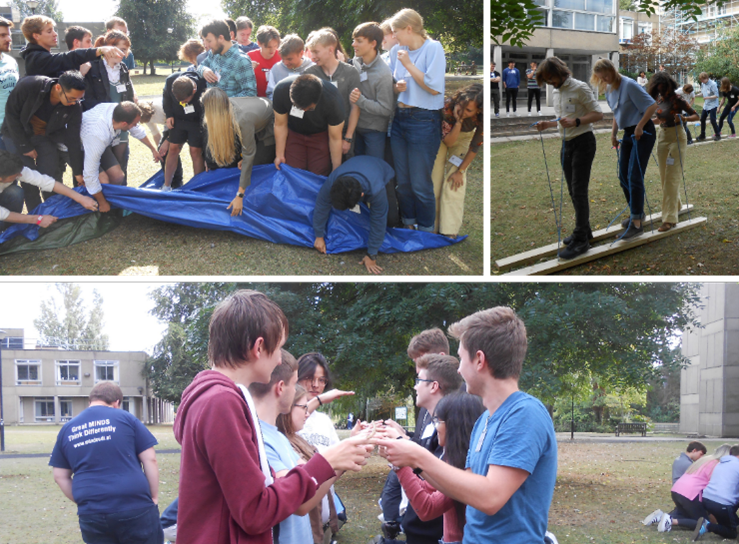
Throughout the four days, participants benefitted from the chance to socialise, get to know one another, and attend a formal dinner together on the final evening.
If you’re an undergraduate student, apply to become a UKESF Scholar here.
If you’re an employer and would like to find out how your company can benefit from connecting with a UKESF Scholar, get in touch by email at [email protected].
We’ve shown that there is considerable interest among students about PEMD, which is very encouraging. We now need to provide more opportunities for high-achieving undergraduates to gain work experience in the UK’s PEMD sector.
Stewart Edmondson, CEO, UKESF
The Driving the Electric Revolution (DER) Undergraduate Award 2022 recognised four outstanding undergraduate Electrical and Electronics Engineering students who have an interest in Power Electronics, Machines and Drives (PEMD).
Emily Dale, University of Manchester; Elaine Tian Galloway, University of Sheffield; Marcus Perrin, University of Sheffield; and James Taylor, Imperial College London were selected from over 50 applications for the Award.

The Award is a collaboration between UK Research and Innovation (UKRI) and the UKESF, as part of the wider DER Challenge skills initiative, to raise awareness of PEMD among undergraduates and encourage them to pursue careers in the sector.
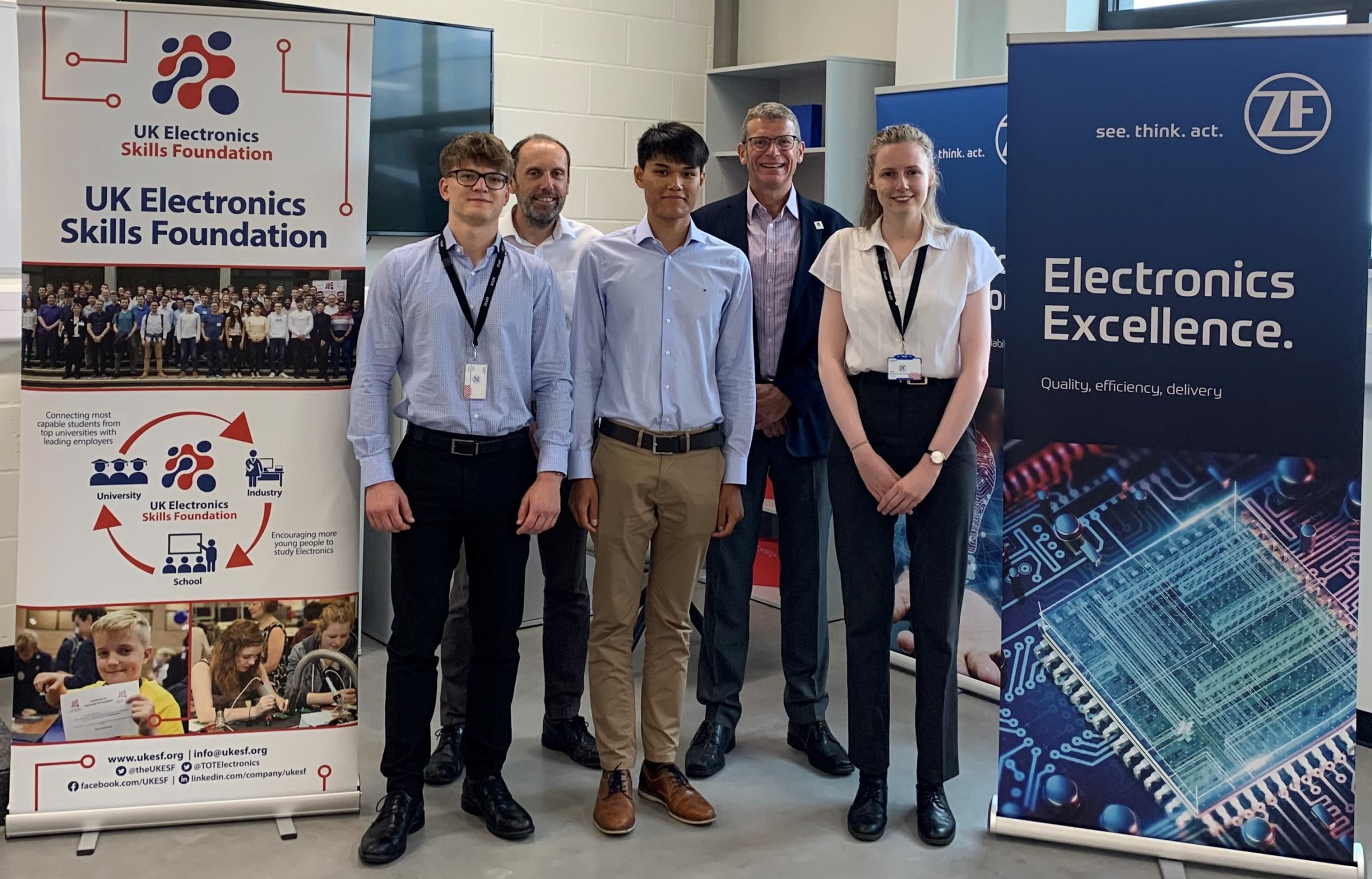
Marcus Perrin, James Taylor and Emily Dale, DER Award winners, with Connel Williams, ZF Automotive and Stewart Edmondson, UKESF
The UKESF was delighted with the overwhelming response to the Award, with applications received from undergraduates studying at 16 UKESF partner universities nationwide.
Speaking about the Award, Stewart Edmondson, CEO, UKESF, said: “PEMD is so important for the future and we were really pleased to work with the DER Challenge team on this Award. We’ve shown that there is considerable interest among students about PEMD, which is very encouraging. We now need to build on this interest and provide more opportunities for high-achieving undergraduates to gain work experience in the UK’s PEMD sector.”


The four Award-winning undergraduates undertook work experience at one of two supporting companies, Collins Aerospace and ZF Automotive.
Philip Langley, Strategic and Business Development at ZF Automotive, said: “The entire process with UKESF was well supported and effective, we were given very high calibre applicants, narrowing these down to the three we took on the DER Award Scheme. The energy and intelligence they brought was outstanding, our challenge is to keep them in Engineering and more specifically PEMD.”
Emily Dale shared feedback on her experience: “I undertook a 10-week placement at ZF in Shirley Solihull. My project was heavily focused on modelling in MATLAB and Simulink, a major opportunity to develop new technical skills and work with tools I had never used before. I found the aspects of automotive engineering that I encountered at ZF provided complex challenges and worthwhile results. I am very grateful for all the support I have received from UKESF and it has built on my career aspirations massively.”
The Driving the Electric Revolution Undergraduate Award was successful in generating awareness and interest in PEMD among a diverse range of engineering students. It provided participants with valuable work experience at the start of their university studies and helped support their professional skills development. Read the full report here.
Prepare for further study and a career in the Electronics sector by exploring electronic technology in context
We are delighted to announce the launch of An Introduction to Electronic Engineering, a new, free online course designed to support 15-18 years olds develop their interest and expand their understanding.
The UK Electronics industry is one of the largest and most successful in the world, but what is it all about? Developed by the UKESF in collaboration with the University of Birmingham, this short course introduces the fundamentals of Electronics. Participants will explore key theoretical and practical concepts using interactive examples, including the basics of component level design from resistors to amplifiers, investigating how we power satellites in space and examining real-world control systems in action.
The course gives those with an interest in Electronics and Engineering the opportunity to examine real world Electronic systems and their components, experience how Electronics is used in the context of different systems and to develop their own skills in analysing, designing, and producing circuits.
Stewart Edmondson, CEO of the UK Electronics Skills Foundation said: “An Introduction to Electronic Engineering is a really good opportunity for sixth-formers to expand their knowledge and further develop their enthusiasm for Electronics. It will help them to make an informed decision about their degree subject, strengthen their university application, and support their preparations for further study.”
The course is available on the FutureLearn platform and takes three hours a week for three weeks to complete. To find out more and to begin the course, click here.
The Renesas Award for Female Undergraduates is a collaboration between Renesas (formerly Dialog) and the UKESF. The Award supports females who are commencing the first year of their undergraduate studies on Electronics-related degree courses at leading UK universities with a bursary, a paid summer work placement and student membership of WES.
In this blog post we hear from the 2021 recipients of the Award about their motivations, their work placement experience and their advice for other women considering a career in Electronics.
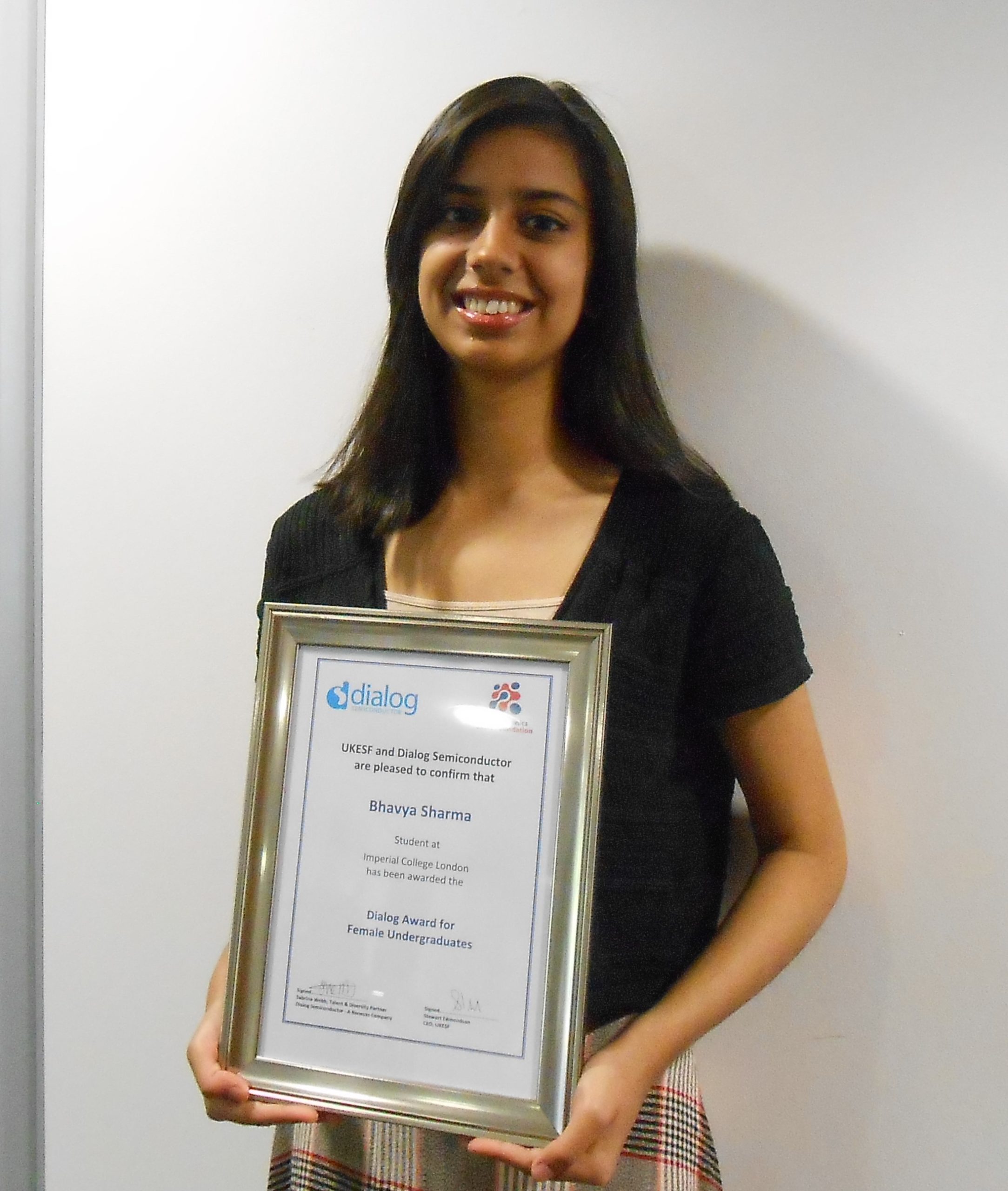
Technology is an integral part of our world – it is everywhere – in our smartphones to smart homes. But how does it actually work? How is it that devices consisting of just electrical signals at their base, are able to disrupt, connect and transform our lives?
This curiosity brought me to study Electronic and Information Engineering at Imperial College London. Having completed the first year, I have enjoyed putting into practice the theoretical concepts learnt over the year into a hands-on project; building a Moon rover. I would describe myself as a creative person at heart and combining creativity and technical knowhow is what enables innovation.
The Renesas Award means a lot to me – it has not only boosted my confidence to pursue Electronics, but also provided an invaluable opportunity to gain a first-hand insight to the industry. Thanks to the process technology team at Renesas, I’ve had a fabulous time gaining a detailed overview of all the different parts and processes to semiconductor technology.
We often hear that Engineering and Electronics are ‘male-dominated’ professions. Whilst it is important to acknowledge the imbalanced ratio, we need to change the narrative. We must shine the spotlight on the fantastic female engineers who are already making their mark in the field. Representation makes a big difference. Being able to visualise yourself thriving in a profession, really motivates you to pursue it and that’s what we need to focus on.
Be curious. Be confident. Be courageous. Follow your curiosity to explore different avenues and opportunities because the more you do, the more you’ll learn. Confidence is a game changer, so believe in yourself. And when it comes to courage – don’t be afraid of the challenge. Overcoming something difficult, ultimately, only makes you better.
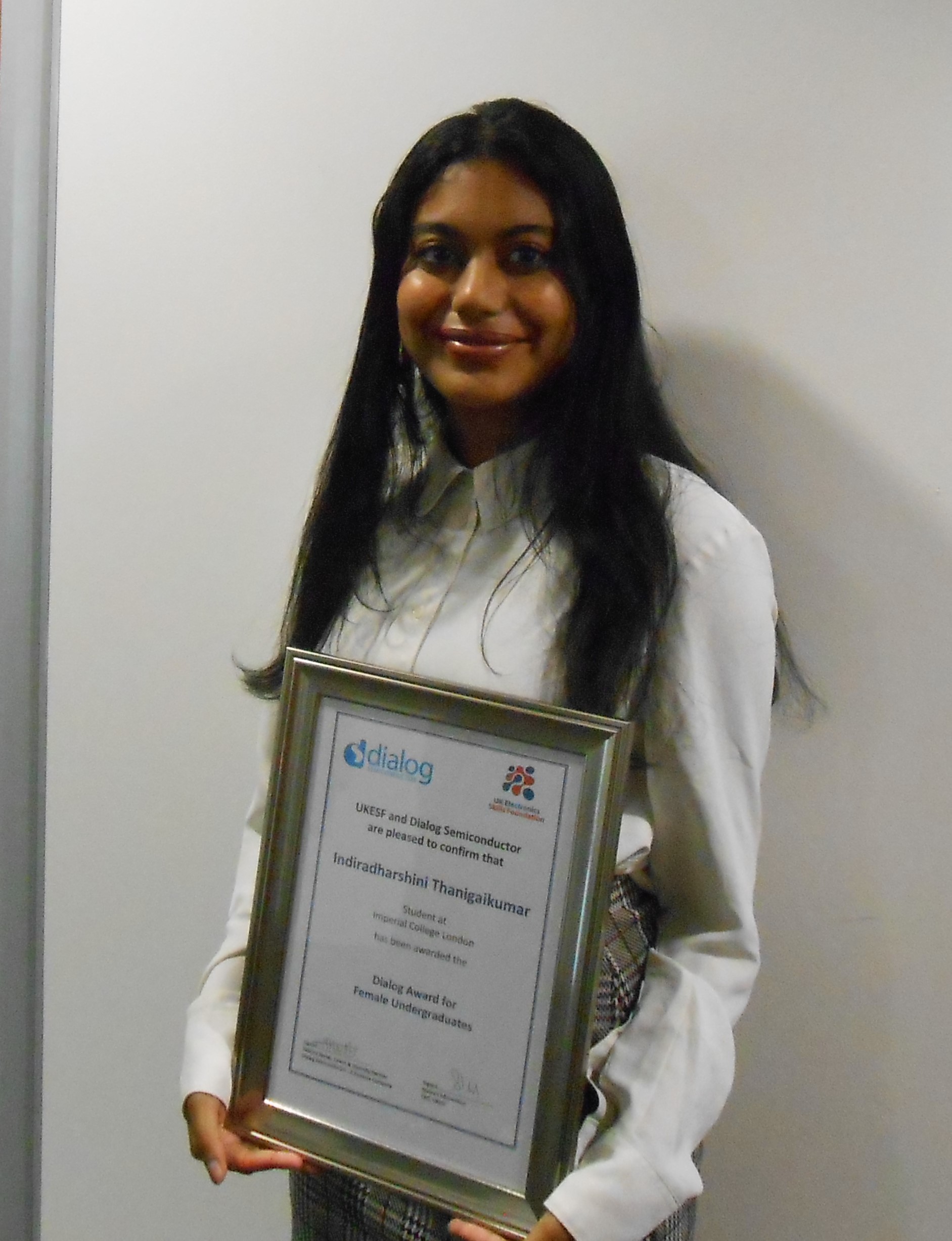
I really enjoy problem solving, innovating and working in a dynamic fast-paced environment where I am being challenged every day. The prospect of pioneering ground-breaking technology which has the potential to transform the way we live is something that really excites me about Electronics.
The opportunities that the Award has given me are extremely significant in helping me navigate my interests, gain a deeper understanding of the processes in the field and most importantly establish a sense of belonging in my chosen field. During my placement I felt like I was in a space where my questions and contributions were valued, which really made me feel a lot more confident. It feels great to be acknowledged and I am so appreciative to everyone who made this award possible.
I was fortunate to work in the Process technology group where we conducted a project in VLSI technology. I have learned how to analyse and evaluate process design kits. I really enjoyed using Cadence/Virtuoso tools to make various structures such as a CMOS inverter. Visualising the design hierarchies really helped build an in-depth understanding of the material.
A career in Electronics is both dynamic and rewarding. There are many opportunities for women available in Electronics and it is definitely something to be passionate about. My advice would be to be confident in yourself and your abilities.
“Seeing all the possibilities of what you could do during an Electronics degree seemed to spark that sense of awe that a child would feel walking through a huge toy shop for the first time in me.”
This year, Girls in Electronics provided 230 girls between the ages of 15-18 with a unique opportunity to develop an interest in Electronics.
Hosted by 10 of our partner universities, and supported by CSA Catapult, we significantly scaled up our Girls into Electronics initiative to deliver 10 one-day events throughout the UK.
“The course was so insightful and made me consider a sector which I hadn’t necessarily thought about before. It was amazing talking to so many inspirational women in Electronic engineering”
The UK Electronics industry is a world leader and there is a significant skills shortage. This means that there are too few engineers and designers to develop the next generation of products and help produce the creative technological solutions needed by society.
The Equality, diversity and student characteristics data 2022 from the Office for Students1 found that just 17.9% of engineering, technology and computing undergraduate entrants were female. In 2021, UCAS data2 showed that as few as 335 female students started Electrical & Electronics Engineering degree courses in the UK.
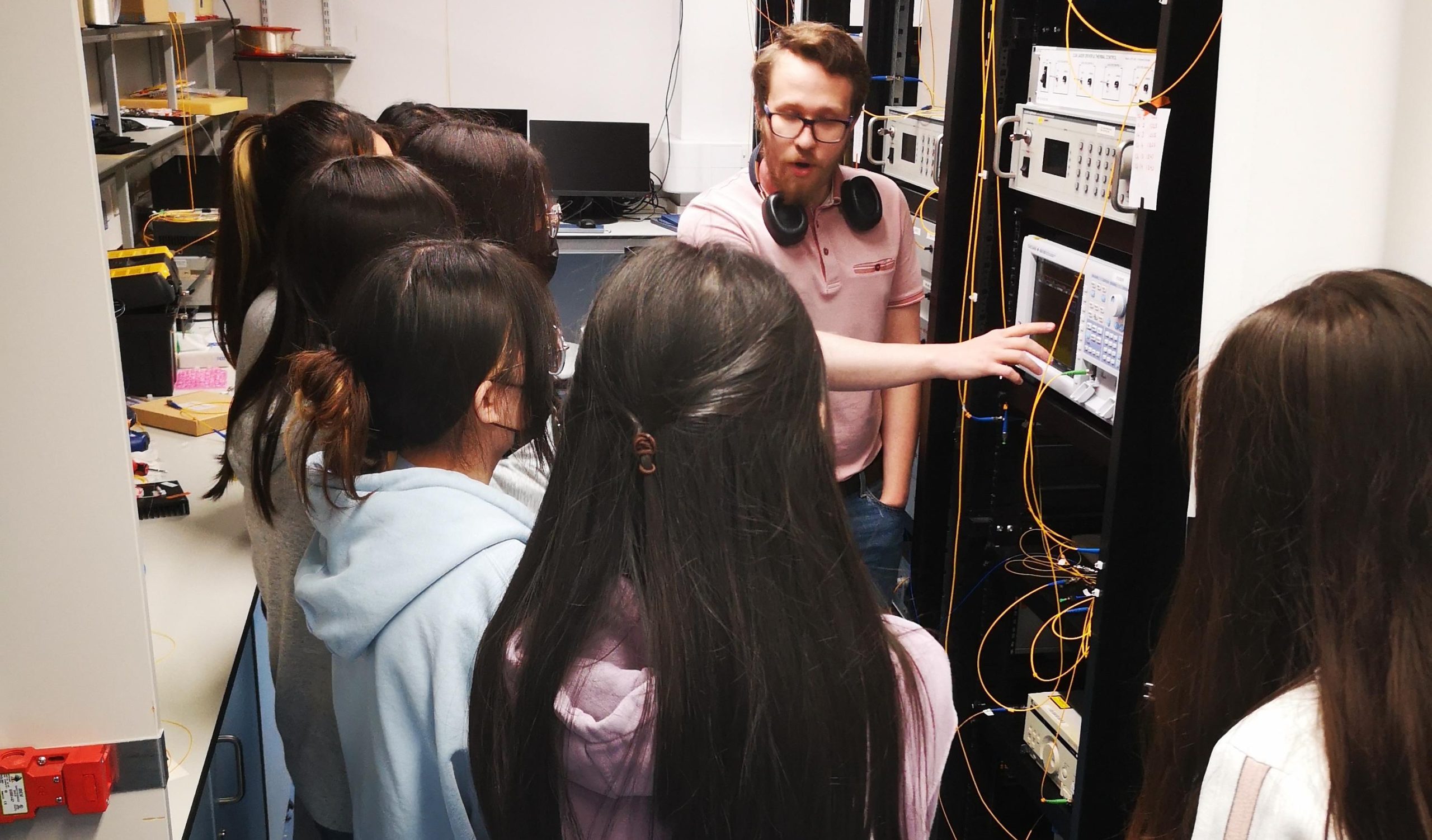
Girls into Electronics to provided an opportunity to engage and inspire young people with Electronics.
“Seeing all the possibilities of what you could do during an EEE degree seemed to spark that sense of awe that a child would feel walking through a huge toy shop for the first time in me.”
The participants were given an in-depth insight into what it would be like to pursue higher education and a career in Electronics. They were given the opportunity to:
The events received fantastic feedback, with 97% of participants rating the day as ‘Good’ or ‘Excellent’ and 89% saying that they felt more enthused about Electronics after attending.
Perhaps most importantly, 84% of students who were not previously considering a career in Electronics, now are.
“As someone who’s finding it difficult to decide between engineering disciplines, today was extremely helpful in making me aware of the similarities and differences between them so that I can make an informed choice.”
Following the event, the participants received a number of additional resources to ensure they could continue to develop their interest in Electronics, as well as make the most of the Grove beginner kit for Arduino that they were given to take home. We are also working with CSA Catapult to provide participants with the opportunity to attend a careers focused session at the CSA Catapult Innovation Centre in Newport in Autumn 2022.
In 2023, the UKESF will aim to scale up even further, building on this year’s successful approach. If you’re interested in finding out more about the programme, or would like to register your interest in participating next Summer, get in touch by emailing [email protected]
Resources
Watch our interviews with five female engineers
Sign up to Insight into Electronics
If you’re a UK student between the ages of 14-18, or a teacher, find out more about our self-paced, interactive and FREE course that provides young people with a hands-on introduction to microcontrollers, Electronics and programming.
1 Office for Students report July 2022
2 UCAS Undergraduate sector-level end of cycle data resources 2021
“We are delighted to be joining the UK Electronics Skills Foundation as a partner University.”
Professor Anthony Gachagan, University of Strathclyde
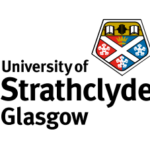
We are delighted to announce a partnership between the UKESF and the University of Strathclyde. This new partnership means that more undergraduates than ever before will have the opportunity to benefit from the support of the UKESF, and employers involved in our Scholarship Scheme will be able to access a greater number of high-achieving students.
The University of Strathclyde becomes the 27th leading UK university to partner with the UKESF.
Speaking about the partnership, Stewart Edmondson, CEO, UKESF said “It’s great to welcome Strathclyde as a new UKESF partner university and to further strengthen our presence in Scotland. Their highly regarded Electronic Engineering Department is research-led with global industry engagement. Their strong focus on providing work placements for their students to complement their academic studies very much aligns with our UKESF ethos.”
Professor Anthony Gachagan, Head of Department, Electronic and Electrical Engineering, University of Strathclyde said “The Department of Electronic and Electrical Engineering is delighted to be joining the UK Electronics Skills Foundation as a partner University. Our motto is “The Place of Useful Learning” and this partnership with UKESF with its strong industrial links embodies this ethos and ensures that the University is developing the next generation of electronics engineers.”
For over 10 years, the UKESF Scholarship Scheme has helped industry to recruit the brightest and most motivated students into Electronics.
Employers have been fully involved in the design and development of the scheme since its inception, and it has gone from strength-to-strength – this year we had the largest ever number of companies offer scholarships. These range from international, renowned global companies to SMEs, across the whole spectrum of Electronics.
The long running scheme has an established reputation with both staff and students within our partner universities. We work with 26 leading universities throughout the UK, and the very best students are encouraged to apply.
In this blog, we’ll discuss how organisations can benefit from working with the UKESF instead of recruiting their work placements directly.
To date, more than 75 employers have participated in the programme. Both large and small companies have benefited from our well-established connections with 26 universities nationwide. Not only are we often able to reach a wider pool of students than companies are able to on their own, but our Scholarship means you will avoid time intensive careers fairs and costly promotional materials. Working with senior academics, our effective recruitment is targeted at high achieving undergraduate students.
We make every effort to understand the unique needs of each company to help find the perfect intern. Our efficient process filters applications, ensuring that a company only needs to review the most appropriate candidates for the role(s) they have available.
A recent survey of our employers found that 100% would recommend us, and 96% said that the quality of UKESF Scholarship applications was ‘excellent’ or ‘good’ when compared to other internship applications.
“The UKESF is great because we don’t have to go anywhere near graduate recruitment centres, which can be a horrendous experience! The UKESF reaches out to everyone on our behalf and broadens access to universities. It attracts the best students, which is what we need, and past Scholars are great to attract new students.”
The UKESF is a not-for-profit organisation. Our fees are benchmarked to ensure they are significantly lower than standard recruitment fees, and our charitable status means that we don’t make a profit. Any surplus contributes towards our outreach and engagement work to increase the number of young people pursuing Electronics.
The DfE report ‘Employability programmes and work placements in UK higher education’1 emphasises the benefits for employers in providing work experience to students.
By working with a UKESF Scholar throughout their studies, your company has the opportunity to help them develop the skills they need to excel within your organisation, and build a lasting relationship with them for potential future employment. In return, a Scholar can help to address short term staffing issues, and bring new, innovative ideas into your team.
92% of our graduated Scholars who have finished their studies are working in Electronics and Technology, and of those, 60% are working in a sponsor company.
“We are really pleased to be a part of the UKESF and it is a great service. If you haven’t got a lot of experience in attracting graduates, UKESF should be the first place you go. Our Scholar said they would have never approached our company if they hadn’t gone through UKESF.”
“My experience of the UKESF Scholarship Scheme has been excellent! I completed a placement with one of the best companies in the field I wanted to enter into, and ultimately was offered a graduate position.” UKESF Scholar, 2021
Our Scholarship Scheme continues to champion women in engineering, and 22% of scholars in 2021/22 were female, compared with 17% of engineering, technology and computing undergraduate entrants (OfS 20222).
“We had a higher proportion of female applicants through the UKESF compared to our direct intern programme, which proved to be valuable to us.”
The UKESF team knows every Scholar as an individual. We work alongside the companies that offer Scholarships to provide additional ‘wrap around’ support that work placements wouldn’t otherwise receive. This support helps our Scholars to develop their confidence, professional skills and work-readiness. The UKESF Scholars benefit from:
We do all we can to better prepare students for their graduate career, to ensure that they are retained in the industry and that they have the skills to succeed.
“I’ve learnt a lot more than anticipated and now appreciate that technical ability isn’t the most significant part of being an engineer – there are so many more skills that I have developed this week and will be incredibly useful to take into the workplace.” Feedback on the UKESF Scholar Workshop
UKESF support doesn’t end when a Scholar graduates, and we seek to provide additional opportunities when they’re in the workplace too. We collaborate with The IET to provide advice about professional registration, we encourage Scholars to apply for external awards and support them to progress their careers by providing networking opportunities and advice.
Particularly high achievers often return to join us at industry events, speak enthusiastically at our outreach activities, or contribute to written articles and videos; a testament to their positive experience as a Scholar.
We’re looking forward to offering Scholarships to another outstanding cohort of undergraduates in 2022/23. If you’d like to find out more, or are ready to join the Scheme, get in touch with me on [email protected] or 07894 899544.
“The UKESF is the body responsible for skills and education in the UK Electronics sector. They do a lot of screening so some of the work experience coaching is done prior to us seeing the Scholars. We’ve been really impressed with the quality of people coming through the UKESF.”
1 Employability programmes and work placements in UK higher education
2 Equality, diversity and student characteristics data
We are delighted to have been awarded a prestigious Princess Royal Training Award 2022.
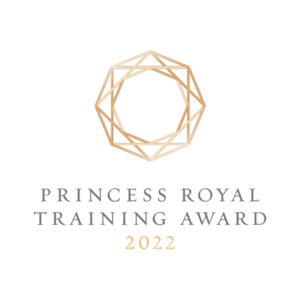
The Award honours organisations who have created outstanding training and skills development programmes which have resulted in exceptional benefits. This year, the Award has recognised the UKESF for our Scholarship Scheme, which provides professional education, development activities and work placements with leading employers for students from universities throughout the UK. It is an exemplar of effective collaboration between industry and universities to address the skills shortage in UK Electronics.
Electronics, and in particular semiconductor design and manufacture, is a growing and strategically important sector of our economy. However, the demand for capable graduates far outstrips supply.
Our Scholarship Scheme provides ‘wrap around’ support for undergraduates, from advice about applying and increasing their employability through to graduation with an alumni network. The key elements are paid employment with their sponsoring company through flexible work placements; professional and employability skills training to complement their academic studies; industry insights and networking opportunities; and confidence building through participation in STEM education and outreach activities.
To date, we have awarded almost 700 Scholarships to exceptional undergraduates. Of those graduated Scholars who have finished their studies, 91% now work in Electronics and Technology.
Speaking about the Award, Kirstie Donnelly MBE, Chief Executive of City & Guilds said: “The Princess Royal Training Awards demonstrate how training and development can open up opportunities and attract new talent to industries with significant skills gaps and labour shortages.”
Stewart Edmondson, CEO, UKESF said: “We are so thrilled to receive a Princess Royal Training Award. This is such a fantastic accolade for our UKESF Scholarship Scheme. It recognises our collective efforts, with our partner universities and industry sponsors, to nurture and develop the Electronics Engineers of tomorrow.
We will hold the Princess Royal Training Award 2022 for three years.
If you would like to find out more about how to get involved in our Scholarship Scheme, contact Stew Edmondson (CEO) on 07894 899544 or [email protected].
This is such a fantastic accolade for our UKESF Scholarship Scheme. It recognises our collective efforts, with our partner universities and industry sponsors, to nurture and develop the Electronics Engineers of tomorrow.
As we emerge from the COVID pandemic, this has been an outstandingly successful year for the UKESF Scholarship Scheme. Through the Scheme, we work with industry to nurture and develop the electronics engineers of tomorrow. In 2021/22 we have ensured that the very best undergraduates gain experience and develop their skills by connecting 38 companies with 68 undergraduates.
Exceptional Employer Satisfaction
More companies than ever joined our Scholarship Scheme this year, so we are delighted that sponsor satisfaction remains exceptionally high. Results from our recent survey include:
“Keep up the brilliant job.”
Encouraging Inclusivity
This year, we received around 250 applications from undergraduates from our 26 partner universities. We know that just 17% of engineering, technology and computing undergraduate entrants are female¹. However, our Scholarship Scheme continues to champion women in engineering, and 22% of scholars in 2021/22 were female. What’s more, 96% of our female scholars who have graduated have stayed within the Electronics and Technology sector.
Supporting the Electronics Sector
In the UK, Electronics, especially semiconductor design and manufacture, is a growing and strategically important sector of our economy. However, the demand for capable graduates far outstrips supply.
Our Scholarship Scheme has been running for over 10 years, and is now considered to be an exemplar of effective engagement between industry and universities. To date, almost 700 students have been awarded scholarships, and 92% of our graduated scholars are working in the Engineering and Technology industry.
“The UKESF Scholarship Scheme has quite literally changed my entire life… There could not be a better time to get involved with the Electronics industry than now, and there could not be a better way of doing so than through the UKESF.”
Working with the sponsoring companies and our partner universities we are tackling the skills challenge in the Electronics sector. We will be in touch with companies over the summer to discuss participation in the Scholarship Scheme for the next academic year. For employers interested in learning more, there is a Guide to the Scheme here or email [email protected] for a call back.
¹Office for Students report July 2022
As a growing charity, it is important that the UKESF has effective governance arrangements in place. Last year, our Board was strengthened with the appointment of two new Trustees, and we are delighted to have now appointed two Board Observers.
Joanna Taylor, Silicon Product Engineer at Graphcore, and Ricki Tura, Verification Engineer, Siemens Embedded Analytics, are both UKESF Scholars who graduated in 2017 and 2020 respectively and were awarded “Scholar of the Year”.
As Board Observers, Joanna and Ricki will attend UKESF Board Meetings to observe the proceedings and participate without the duties and rights of Trustees/Directors. The UKESF now has an alumni of close to 400 graduated Scholars and the Board is keen to ensure that we maintain close relationships with this growing community. The Board Observers will be able to contribute insight from their experience of the scholarship, as well as provide new points of view to benefit the Boards discussions and help to inform the UKESF’s strategic decisions.
Stew Edmondson, the CEO of the UKESF, said
“It is forward-thinking and progressive that the Directors have decided to appoint two graduated Scholars as Board Observers. The Chair and myself are delighted that Joanna and Ricki have accepted the invitation. They will be a great addition to our Board, and it should be ‘win-win’. For the UKESF, they will provide us with insight and input from a different and younger perspective. For Joanna and Ricki, it gives them an opportunity to continue their involvement with the UKESF, to make a positive contribution and to gain experience of charity governance”.
Profiles of Joanna and Ricki, the new UKESF Board Observers, can be found here.
The UKESF is working hard to tackle the shortage of engineers in the Electronics sector. To date, almost 400 students have graduated from our prestigious Scholarship Scheme and we know that 93% are working in our industry. They are working as Engineers, and we know that engineering is a profession. As such, we are actively supporting initiatives to increase the number of professionally registered Chartered Engineers (CEng) in the UK.
Professional registration is governed by the Engineering Council and provides a benchmark through which the public, employers and their clients can have confidence and trust that registered engineers and technicians have met globally recognised professional standards. Registrants possess and maintain the knowledge, skills and commitment required to meet the engineering and technological needs of today, whilst also catering for the needs of future generations.
Professional Registration is a well-established part of the culture in some engineering sectors, particularly those with a strong ethos on regulation, safety and security (such as defence, aviation, rail and nuclear) but it is less so in Electronics design and semiconductors. However, the benefits of registration such as international recognition and personal commitment to standards are equally applicable across all of Electronics.
Therefore, earlier this summer we organised an online event, in collaboration with the IET, for our graduated scholars. The focus was to learn more about the process of becoming professionally registered as a CEng. It was really pleasing that more than 40 graduated scholars signed up. As well as hearing from myself and the IET, we were joined by two alumni who had already become Chartered Engineers to share their experiences and answer questions.
Feedback from the event was very positive. Everyone said that they were better informed and all those ‘not sure’ about professional registration before the session were more positive afterwards. As part of our ongoing work on skills, we hope to provide more support and additional opportunities for professional development to help our alumni progress in their careers.
If you would like to learn more about how our Scholarship Scheme could help your company or you would like to support our work, then please just get in touch with me: [email protected]
International Women in Engineering Day (#INWED) celebrated its 9th anniversary last month. Started by a good friend of the UKESF Dawn Bonfield MBE, #INWED gives female engineers around the world a profile when they are still hugely under-represented in their professions.
This year for #INWED, the Women’s Engineering Society (WES) showcased the top 50 women in engineering Inventors and Innovators. These are the brightest and bravest women in engineering, who identify an unmet need, then create the solution, or improve existing products and processes to make our lives easier. Our Chair, Neil Dickins, has written a blog post highlighting some of the exceptional and inspirational females working in the Electronics sector.
At the UKESF, our focus is on the future. We are working to address the gender imbalance in the Electronics sector. This year, with support from the CSA Catapult, we have massively scaled-up our Girls into Electronics programme. This is a series of ‘taster’ days hosted by the Electronics departments at some of our partner universities. Well over 200 female pupils will be taking part in these events, which is a really encouraging number. For our prestigious UKESF Scholarship Scheme, we had a record number of awards to female students this year, which is again very encouraging. Last month, we also celebrated three of our female scholars who have gone onto achieve recognition as future BrightSparks. Therefore, although there is much work to be done, there is some hope that progress is being made.
If you would like to learn more about how our Scholarship Scheme could help your company or you would like to support our work, then please just get in touch with me: [email protected]
“What separates EW BrightSparks from other high achievers is the commitment to helping other people as well.”
Richard Watts, Electronics Weekly
The UKESF is thrilled that this year’s BrightSparks Awards includes five of our Scholars. Proudly supported by the UKESF, the BrightSparks programme is run by Electronics Weekly in partnership with RS Grassroots, and aims to highlight the brightest young electronic engineers in the UK.
This years winners were recently invited to celebrate their success, and receive their award, at the IET in London. Read more about the event here. The Scholars were joined at the Awards by UKESF Chair Neil Dickins, who said, “It was great to attend the BrightSparks ceremony and see so many UKESF alumni and scholars receiving awards this year. This shows the value of the UKESF’s undergraduate Scholars Scheme in nurturing young Electronics Engineers.”
The winning UKESF Scholars are:
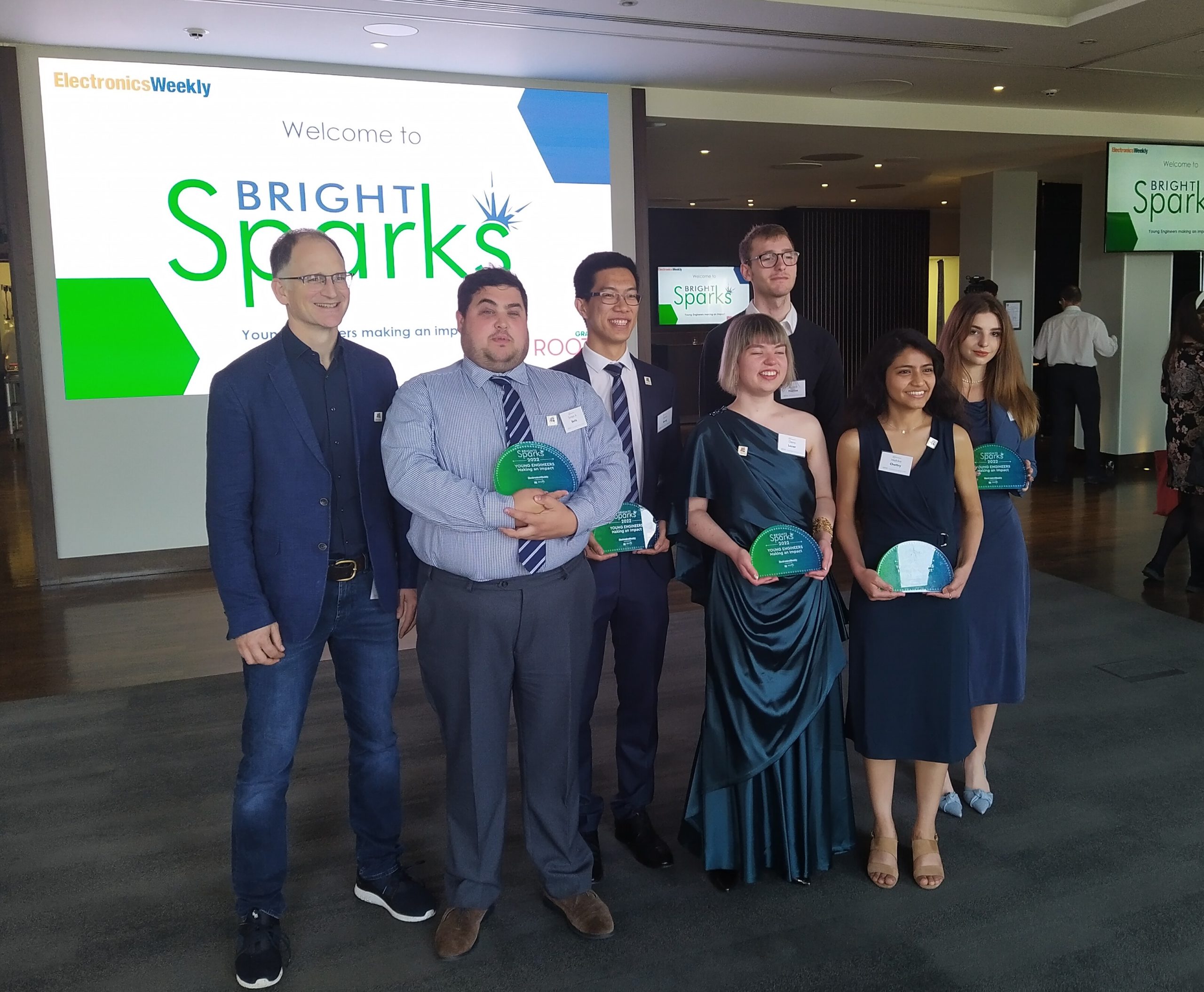
Also at the Awards was Richard Watts, Managing Director of emap and group publisher for Electronics Weekly. “What separates EW BrightSparks from other high achievers,” he said, “is the commitment to helping other people as well. All the worthy winners have engaged with a wider community, to help others.”

“As an industry we embed our technology so well that […] it is completely hidden from view and it’s functionality completely integrated, to the extent that this technology is often completely un-appreciated.”
Many of our supporters will know that NMI members helped found the UKESF, and we retain close links with TechWorks. You might have heard about TechNES. We asked their network director, Steve Drew, to tell us a bit about it…..
“TechNES (The Technology Network for Embedded Systems) was built from the foundations of NMI, and has been established to provide a platform for coherence in this embedded systems domain, by connecting leading companies across industrial sectors, sustaining, and supporting the world-class engineering capability that exists in the UK. This group will cover all aspects of embedded systems design from hardware and software engineering through to systems engineering. From silicon design through to the end system.
“All areas of the modern economy are under-pinned by smart and connected Embedded Electronic Systems. As an industry we embed our technology so well that, whilst it is the single most critical building block, it is completely hidden from view and it’s functionality completely integrated, to the extent that this technology is often completely un-appreciated. We aim to create a rich and vibrant community of embedded engineers, focused in on the key challenges faced by today’s design engineering community.”
If anyone is interested in TechNES, or would like to join one of their new working groups, please visit the webpage for more information.

At the UKESF, we are working hard to address the gender imbalance in the Electronics sector, for instance through our Girls into Electronics initiative. We are also tackling the wider challenges around diversity and inclusion. This guest blog post, written by James, one of our Scholars, shares his experiences and gets to the heart of the matter. We have written previously about why We Need ‘Real’ Models, not ‘Role’ Models, and James shows us exactly why this is so important.
“A diverse mix of voices leads to better discussions, decisions and outcomes for everyone.”
Sundar Pichai, CEO, Google.
Diversity is the practice of including or involving people from a range of different social and ethnic backgrounds and of different genders, sexual orientations, etc. To be fully diverse means working to attract and then support a whole spectrum of people and cultivating an inclusive culture.
According to the All-Party Parliamentary Group on Diversity and Inclusion in STEM report in 2020, Engineering (the largest of the four disciplines into which the STEM workforce can be sub-divided into) is more likely to be White than the others. Ethnic minorities comprise 14% of the working-age population and 12% of the employed population; however, only 7% of the workforce workers are from ethnic minorities in engineering.
As a Black African Electronics Engineering student, these statistics ring true to my experience.
Being a UKESF Scholar has given me the opportunity to reach out and create awareness about Electronics and STEM in general.
Through my interactions with Black students as a STEM ambassador, and at the University of Surrey, one of the factors still hindering diversity in STEM is the lack of positive role models who share the same background as young people from minorities.
In my view, this means that these young people from underrepresented groups aren’t inspired into careers as they don’t see others like them. This misconception, that these roles are not for them, creates a vicious circle.
It is my experience that schools and universities attempt to address this by inviting highly successful and inspirational speakers. However, I think that this can sometimes have the wrong impact. As the speaker’s experiences are vastly different from the audience’s, they can’t imagine themselves ever achieving as much, or even know how to get there.
Therefore, I have led an effort within my local community church group, bringing together young STEM professionals and students to provide advice and mentorship to young people.
We aim to provide mentees with a better understanding about and access to industries that their immediate family and friendship groups are often unfamiliar with. It’s about levelling the playing field to ensure these young people can get the inside know-how and insights they need.
My contributions have been sharing experiences about university applications, work placements and job applications. Also, trying to inspire awareness about Electronics Engineering and explaining about career prospects. I know that my involvement has inspired several young people. I am glad to say more than ten students, with my assistance, have been offered Engineering courses at their universities of choice, starting this autumn.
After graduation, I hope to continue working with my future employer, the UKESF and their partner organisations in supporting efforts to promote diversity and increase the participation and involvement by more young people from underrepresented communities.
Today marks ‘International Day of Women and Girls in Science’, declared by the UN in 2015 to advocate full and equal access to science for women and girls, as well as supporting gender equality and empowerment.
Women make up just 12% of the engineering workforce in the UK, and only 24% of girls report that they would consider pursuing a career in the sector (EngineeringUK, 2020). Tackling the gender imbalance in Electronics is a strategic priority for the UKESF, which is why we are delighted to announce a new partnership with the CSA Catapult.
“Today we are announcing a massive scaling-up of Girls into Electronics,” said Stew Edmondson, CEO of the UKESF.
“Building on the success of our course in 2021, we are planning to hold ‘Girls into Electronics’ events at 10 of our partner universities, right across the UK. With the support of the CSA Catapult we expect to host around 400 female sixth form pupils this summer. This will be a fantastic opportunity to showcase Electronics and encourage more girls to study the subject at university.”
“We are lucky enough to employ many fantastic female engineers at CSA Catapult and we are delighted to be able to offer our support to the ‘Girls into Electronics’ scheme. We hope that with great initiatives like this one, it will encourage young women to pursue STEM subjects and careers. We look forward to supporting this scheme developed by the UKESF and the goal to reach over 400 potential female engineers  of the future,” said Alexandra Leadley, Skills Academy Manager at CSA Catapult.
of the future,” said Alexandra Leadley, Skills Academy Manager at CSA Catapult.
“It is tremendously rewarding for Aston University to work on this project with the UKESF. Electronics is such an important sector in the UK and globally, and requires core skills such as innovation, creativity and analysis. We have created material to support many more girls and roll out the hands-on activity across the country. It is great to see the UKESF taking a lead in this area to maximise the impact and reach,” said Prof Kate Sugden, Deputy Dean at Aston University.
“We are really looking forward to hosting the UKESF ‘Girls into Electronics’ at Royal Holloway this summer. The College has a distinguished history in the education of women and it is our ambition to encourage and welcome more females into the discipline of engineering!” said Dr Steve Alty, Head of Electronic Engineering, Royal Holloway.
Applications open today – click HERE to find out more and apply.
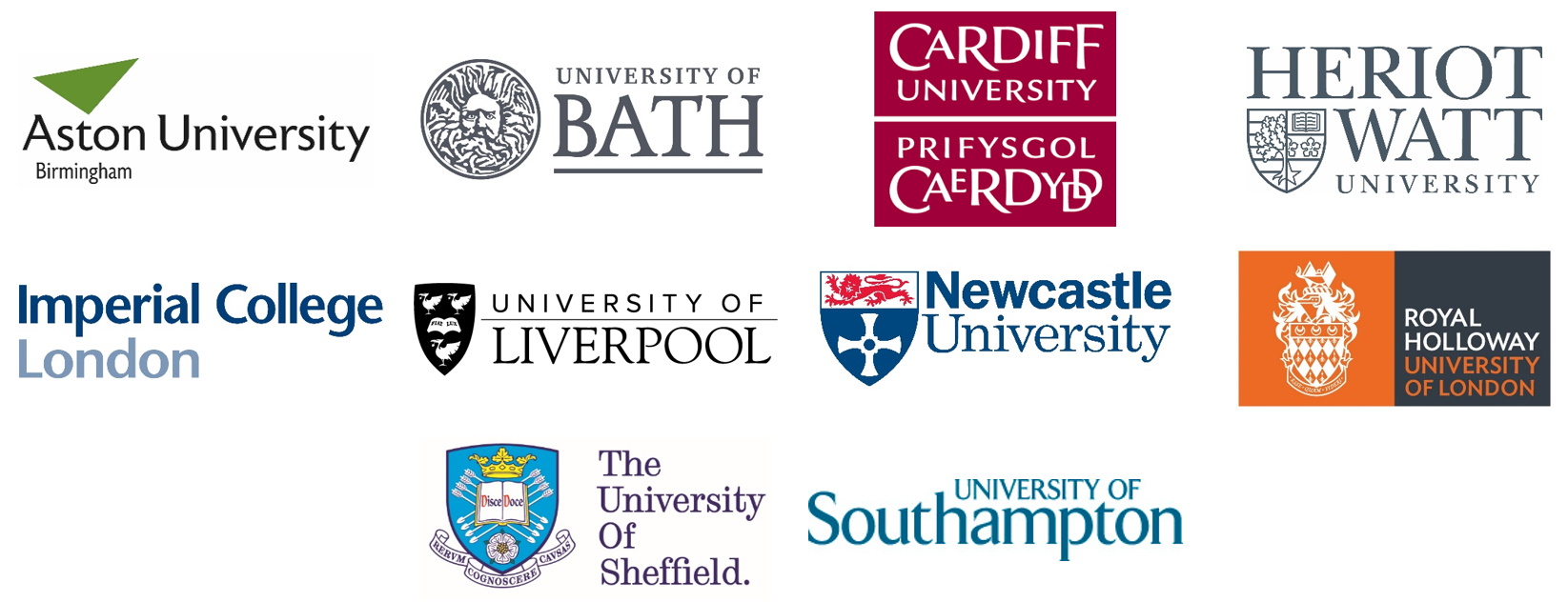
Girls into Electronics 2022 host universities: Aston University, University of Bath, Cardiff University, Heriot-Watt University, Imperial College London, University of Liverpool, Newcastle University, Royal Holloway, University of Sheffield, University of Southampton
Demand for Radio Frequency engineering and communications engineers continues to grow. With sponsorship from the Radio Communication Foundation (RCF) and support from Leonardo, we run an annual competition that highlights the work of students at UKESF partner universities who are focusing on RF engineering and communications in their final year. Entrants are required to submit a poster summarising their major individual project.
Patrick Hope (Surrey/R-P-R) won the competition for 2021 for his project titled ‘STAR XL Flight Radio X-Band Transmitter’. Max Rigby (Loughborough/non-Scholar) was named runner-up for his project, ‘A 3D Printed Anisotropic Superstrate for Circularly Polarised Satellite Antenna Arrays’. Patrick and Max were both guests of the UKESF at the TechWorks Awards & Gala Dinner, London, on 9th December 2021, along with 2020’s winner, Matthew Bridges (Surrey/SEA), and runner-up, Jessica Kelly (Loughborough/non-Scholar).
“I’m really pleased to have won the UKESF’s RF Competition, especially against such strong competition. The UKESF provides great opportunities to showcase effort and achievements to the working world, and this prize is no different. Thank you also to R-P-R Ltd for their continued support of me as a UKESF Scholar.”
Patrick Hope, 2021 winner
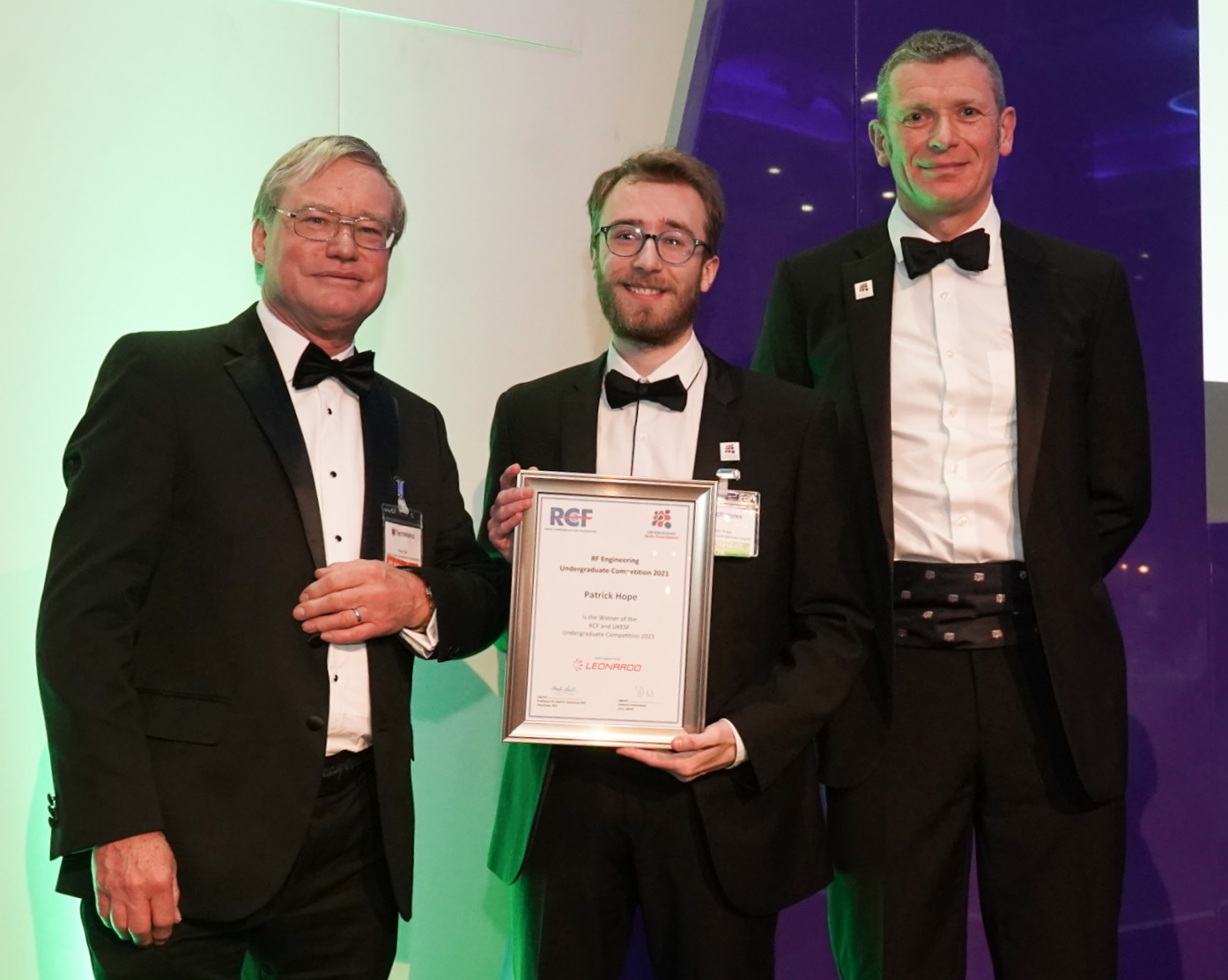
Trevor Gill (RCF), Patrick Hope, Stew Edmondson (UKESF)
“Patrick spent his placement year at Richard Paul Russell Ltd and we are really pleased to hear that Patrick was the winner of the RF Engineering & Communications Competition at the TechWorks Awards. While he worked with us, he was able to contribute significantly to the development of our weather monitoring systems and we congratulate him and wish him all the best in the future.”
Richard Russell, R-P-R“I’m really pleased to have been named the runner up in the UKESF Radio Frequency Engineering & Communications Competition. It means a lot for my final master’s project to be recognised, particularly after the circumstances of the last couple of years.
“It’s so important to recognise the work of students, the next generation of engineers, and the UKESF do a fantastic job in promoting and rewarding achievement through their awards and Scholarship Scheme.
“Finally I’d like to thank Professor William Whittow and Dr Tom Whittaker for their invaluable tutelage over the duration of my project.”
Max Rigby, 2021 runner-up
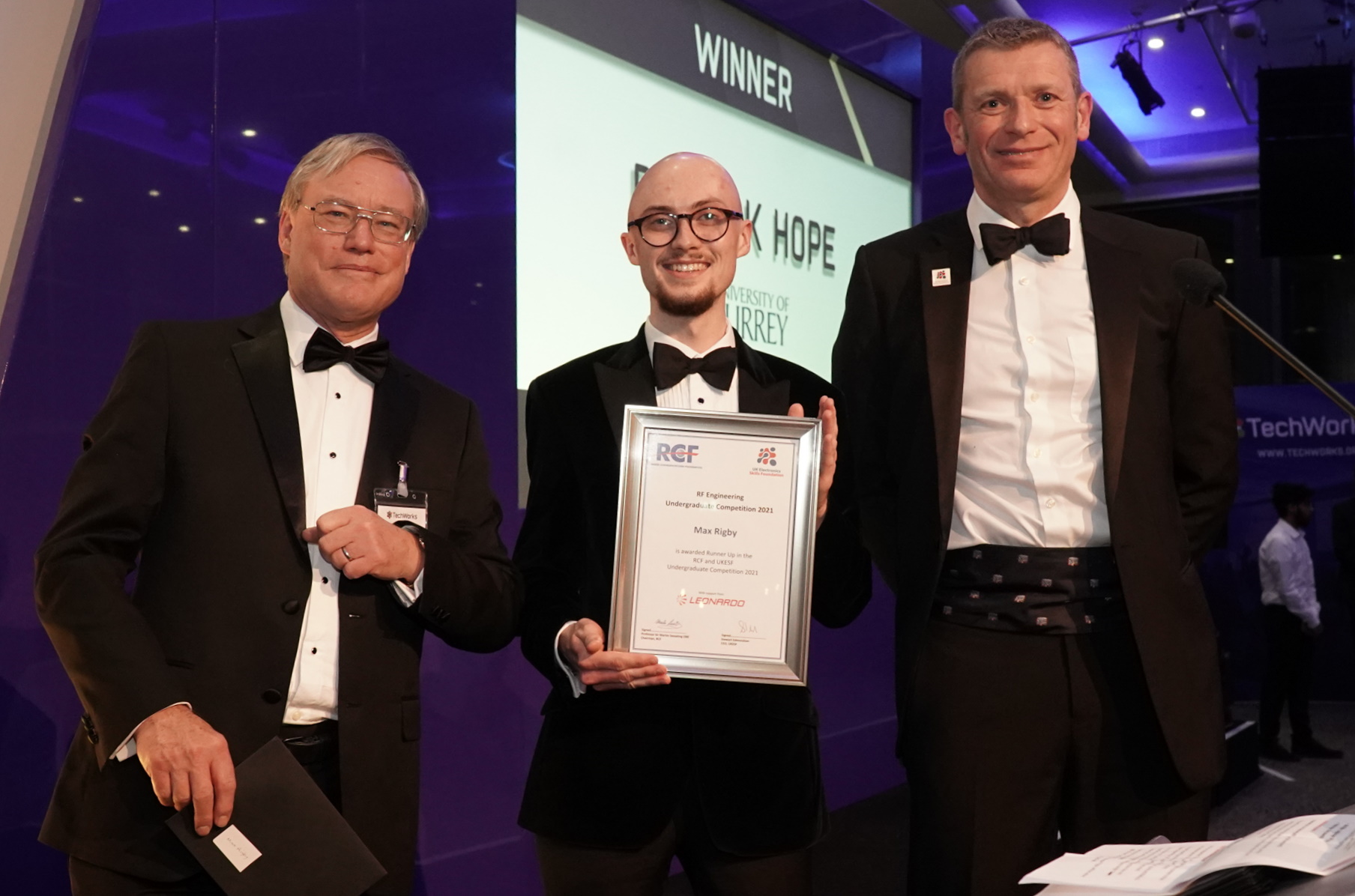
Trevor Gill (RCF), Max Rigby, Stew Edmondson (UKESF)
“After an absence of two years because of the pandemic, it was fantastic to have such a great live, in person, awards ceremony, bringing together our Trustees, sponsors and partners to recognise and celebrate the success of some fantastic young engineers and Electronics students. They are the future of our profession. I was delighted that last year’s finalists were able to join us, so that we were able to recognise and acknowledge their achievements.”
Stew Edmondson, CEO, UKESF
Above image: UKESF Scholar attendees with guest speaker Piers Linney (centre)
On 9th December 2021 the UKESF attended the annual TechWorks Awards & Gala Dinner, London, and announced the winners of the Scholar of the Year Award.
We had three tables at the event, one of which was kindly donated by Trustee Neil Dickins (Founder/Director, IC Resources). Our guests included three UKESF Trustees, nine former and current UKESF Scholars (including past winners of the Scholar of the Year Award and other UKESF competitions), as well as various representatives from some of the companies and organisations we partner with.
Oana Lazar (Southampton/Tessent Embedded Analytics, part of Siemens [formerly UltraSoC]) was awarded the 2021 Scholar of the Year, with David Kong (Edinburgh/onsemi) named runner-up. Many thanks to IC Resources, who sponsor the award. Three other Scholars were Highly Commended: Leon Brindley (Southampton/Qualcomm), Nishika Chettry (Aston/Renesas) and James Mutumba (Surrey/EDA Solutions).
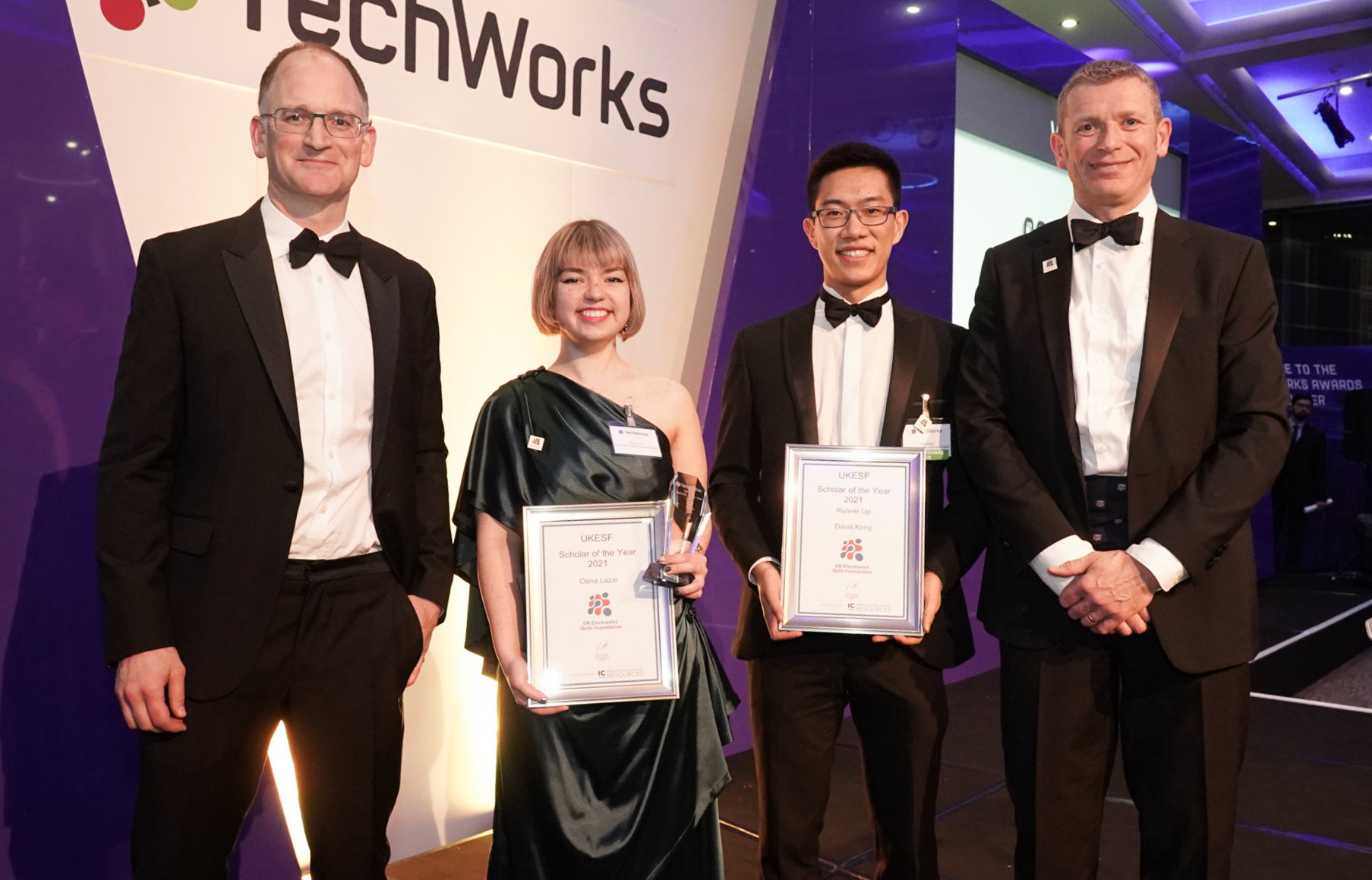
Neil Dickins, Oana Lazar, David Kong, Stew Edmondson
Oana is a final-year student on a Masters of Electronic Engineering course at the University of Southampton. As well as exceeding expectations during her 12-month placement with Tessent Embedded Analytics, the Award judges applauded Oana’s exceptional academic performance, her technical skills and her advocacy for women in engineering. Oana was Highly Commended for this Award in 2020 and named runner-up in our Automotive Electronics Competition the same year. She also received Southampton Hub’s first ever ‘Southampton Hub Values Award’, and has been put forward by Tessent’s VP of Engineering, and Siemens’ Senior Director of Portfolio Strategy, to represent Tessent for the Global Semiconductor Alliance‘s ‘Female Up and Comer Award’.
“The UKESF Scholarship Scheme has quite literally changed my entire life. Therefore, it is an absolute honour and a true pleasure to receive the 2021 UKESF Scholar of the Year Award.
“I would like to thank my fantastic sponsoring company, Tessent Embedded Analytics (Siemens), whose brilliant Engineers have given me the best possible introduction to the industry. Through my 12-month industrial placement as part of my Master’s at the University of Southampton, I have discovered the immense breadth of opportunities available to Electronics Engineers and I have discovered my true calling as an Embedded Software Engineer.
“There could not be a better time to get involved with the Electronics industry than now, and there could not be a better way of doing so than through the UKESF.”
Oana Lazar, Scholar of the Year 2021
Click HERE to read Oana’s full quote in her guest blog post.
“Oana interned with the Siemens DISW Embedded Analytics team for the 2020-2021 year. In a very short time, we forgot she was an intern: she has been assigned significant, complex tasks, and has taken full ownership of those tasks, driving them through to completion.
“COVID has made life difficult for interns: much of the value of internships to the intern is found in ‘sitting behind the shoulder’ of more senior colleagues. Remote working makes this much harder and requires a level of self-reliance and commitment to get the best out of this. Oana’s entire year with us was done remotely, but throughout her time she remained committed to work and never lost focus on her responsibilities to deliver to a level of quality that far exceeded our expectations from her.
“In addition to this, Oana led the ‘Invent Plus’ project at her university, finding volunteers and funding to distribute activity packs to 600 9th grade girls to Electronic, Acoustical, and Mechanical engineering through building circuits from scratch on breadboards (again all remotely), and is now the president of Southampton Hub, an organisation that supports students to volunteer in placements in the local community.”
Jonathan Lucas, Engineering Director (Software), Embedded Analytics, Siemens Electronic Design Automation Ltd
“I’m delighted to hear that Oana has been named Scholar of the Year 2021, particularly after she was Highly Commended for the award last year. She is an excellent example of the many intelligent, motivated and inspirational students who are UKESF Scholars, and I’m thrilled that her success continues the long history of Southampton students receiving the award!”
Prof Geoff Merrett, Head of Centre for IoT and Pervasive Systems, Electronics and Computer Science, University of Southampton
“During my time as a UKESF Scholar, I have met so many talented engineers and I’m very happy to have been selected for the award. Many thanks to onsemi, my sponsoring company, who have provided me with some amazing placements where I have had the opportunity to complete projects in firmware, modelling, digital and analogue IC design for some truly state-of-the-art automotive image sensors.”
David Kong, runner-up Scholar of the Year 2021
“After an absence of two years because of the pandemic, it was fantastic to have such a great live, in person, awards ceremony, bringing together our Trustees, sponsors and partners to recognise and celebrate the success of some fantastic young engineers and Electronics students. They are the future of our profession. I was delighted that last year’s finalists were able to join us, so that we were able to recognise and acknowledge their achievements.”
Stew Edmondson, CEO, UKESF
2021’s Scholar of the Year Oana Lazar exceeded expectations during her 12-month placement with Siemens and demonstrated exceptional academic performance, technical skills and advocacy for women in engineering throughout her time at the University of Southampton. Oana was Highly Commended for this Award in 2020 and named runner-up in our Automotive Electronics Competition the same year. She also received Southampton Hub’s first ever ‘Southampton Hub Values Award’, and has been put forward by Tessent’s VP of Engineering, and Siemens’ Senior Director of Portfolio Strategy, to represent Tessent for the Global Semiconductor Alliance‘s ‘Female Up and Comer Award’.
“The UKESF Scholarship Scheme has quite literally changed my entire life. It is therefore an absolute honour and a true pleasure to receive the 2021 UKESF Scholar of the Year Award.
“I would like to thank my fantastic sponsoring company, Tessent Embedded Analytics, part of Siemens (formerly UltraSoC), whose brilliant Engineers have given me the best possible introduction to the industry. Through my 12-month industrial placement as part of my Master’s at the University of Southampton, I have discovered the immense breadth of opportunities available to Electronics Engineers. By working as a member of Tessent Embedded Analytics’s Software Team, then Hardware Team and Applications Team, I have discovered my true calling as an Embedded Software Engineer. Tessent Embedded Analytics is a company I would love to work for after graduating.
“Although the industrial placement has provided the tools and experience to boost my confidence in my engineering abilities, I still have doubts like everyone else. If you are a student reading this, and especially a fellow female Engineer, you are far from alone in your struggles. You should be courageous, and have faith in yourself and in your abilities for having gotten you this far. I cannot think of a better way to secure your future than by applying to the UKESF Scholarship Scheme, and aiming for the UKESF Scholar of the Year Award.
“I would never have gotten this far without the immense guidance, support, and opportunities offered by the University of Southampton. Having never held a breadboard before I began University, Southampton has taught me everything I know about Electronics, and encouraged me to apply to the Scheme.
“Southampton continues to inspire me, and inspires me to inspire others: during the pandemic I led an engineering outreach programme called ‘Invent Plus’, part of Southampton’s branch of Student Hubs, a national charity. We designed and sent 600 practical activity packs to 9 schools across the UK, introducing over 200 Year 9 schoolgirls to the wonders of electronics, and held virtual events to encourage more girls into STEM.
“There could not be a better time to get involved with the Electronics industry than now, and there could not be a better way of doing so than through the UKESF. You never know which doors may open for you in the exciting, ever-changing, and revolutionary world of Electronics, taking the entire world in new directions.”
“Electronics as a field appeals to me as it allowed the advancement of human society as we know it and will help with future problems such as climate change through continuous innovation.”
UKESF Scholar Felicia, Cambridge/Collins Aerospace
This Is Engineering Day 2021 coincided with the start of COP26, the United Nations Climate Change Conference. Held this year in Glasgow, the conference will welcome more than 190 world leaders to set goals to tackle climate change by 2050, with the aim of making the world net zero. As it says on the This Is Engineering Day website, “From how we heat and light our homes, to how we produce our food, how we build our houses and cities to how we travel around, our future daily lives will be shaped by engineers and engineering.”
The UKESF firmly believes that our Scholars are the future, and many will be making a positive impact on the world and sustainability through their work in the field of Electronic Engineering. To mark This Is Engineering Day 2021, we therefore shared some inspiring quotes from our Scholars studying and working in the Electronics sector on our social media channels, as well as releasing a video interview with graduated female UKESF Scholars from our virtual ‘Girls into Electronics’ course 2021.
The interview was one of the most highly rated sessions of the course, with attendees reporting they found it motivational to hear about the experiences of female engineers.
UKESF Scholar quotes to celebrate This is Engineering Day 2021:
“Electronics is such a vast field that touches almost every corner of modern society… This gives the opportunity to improve the quality of life for many across the world, and hopefully work towards creating a sustainable future.”
UKESF Scholar Ryan, Nottingham/Vison4ce
“Applying theories that I have spent many years studying, to a subject with so much diversity, challenge and societal impact as Electronics is rewarding and fulfilling!”
UKESF Scholar Daniel, Edinburgh/Leonardo
“Everything new and exciting always boils down to cutting edge electronics … I was sold into Electronics by the desire to design, build and work on the future, and be a part of the industry which is defining the modern world.”
UKESF Scholar Louis, Surrey/Chess Dynamics
“Electronics is incredibly exciting, shaping the future through innovation. It’s constantly evolving, offering infinite opportunities at university and beyond.”
UKESF Scholar Oana, Southampton/UltraSoC
“Electronics as a field appeals to me as it allowed the advancement of human society as we know it and will help with future problems such as climate change through continuous innovation.”
UKESF Scholar Felicia, Cambridge/Collins Aerospace
The Dialog Award for Female Undergraduates is a collaboration between Dialog Semiconductor and the UKESF. The Award supports females who are commencing the first year of their undergraduate studies on Electronics-related degree courses at leading UK universities with a bursary, a paid summer work placement at Dialog, and student membership of WES.
In this blog post we hear from three recent recipients of the 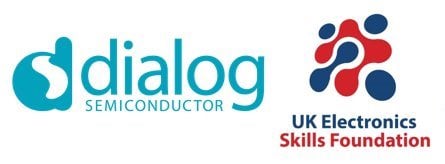 Award about their work placement experience and their plans for the future as graduate engineers.
Award about their work placement experience and their plans for the future as graduate engineers.
Imperial College London, 2020 Award recipient
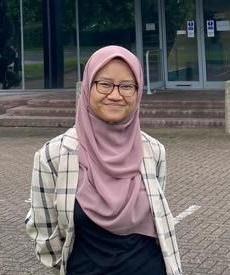
“My internship with Dialog Semiconductor exceeded my expectations. I was trained to use industrial tools by my supervisors and they were very hardworking and passionate about their work. The supervisors were beyond helpful and knowledgeable. Seyda interviewed me before entering the company and she continuously helped me adapt and advised me throughout the work process. I was encouraged everyday to ask questions and progress further to understand Electronics. I have only great things to say about the company and the people there, and highly recommend it. The experience has caused me to learn more about Electronics and appreciate the design work that goes into it. No words can express how much I am indebted to the people there for cultivating my passion.
“Despite my internship having to be remote, the IT and HR Department responded to all my enquiries as soon as possible and I felt supported throughout. Thanks to the the amazing work experience, I am more adamant on taking Electronics-based subjects for my future endeavours. I aspire to be as skilled as the people there and able to give back to society as they are.”
Imperial College London, 2020 Award recipient
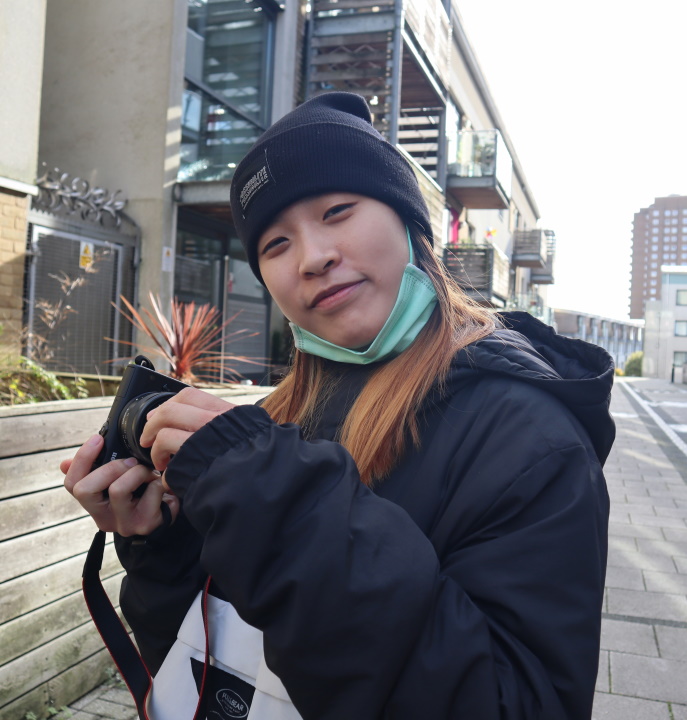
“I was always captivated by engineering, which combines mathematical theories and practical design. I love the fulfilment you have when you are able to build and observe your design, especially in Electronic Engineering, where the design cycles are relatively shorter.
“Having my internship at Dialog Semiconductor really opened my eyes to the industry, having a taste of how it is different from the theoretical knowledge taught in school, focusing much more on reliability and sustainability of products. The company mainly works on PMIC design, especially on automotive. I was in the Custom Mixed Signal Digital Design team, which focuses on RTL design and verification. Learning all the tools and practices that Dialog uses made me reflect and improve my workflow approach, which I believe will be very beneficial to my future coursework and career. High level design abstraction and verifications were planned before starting on the technical coding part, allowing me to spot potential design faults and reduce time in debugging.
“This internship further reinforced my interest in RTL and hardware design. I enjoy the process of designing synchronous digital circuits and thinking about digital signals flow. Thus, I also plan to study modules that involve hardware designs and embedded systems in my remaining years of study.”
Chris Barton, Talent Director, Dialog Semiconductor
“We are incredibly proud to partner with the UKESF on this programme. The Dialog Award for Female Undergraduates provides these talented Engineers a platform to develop their academic skills in a professional environment and we are delighted to be in the position to support Carol, Husna and Emma, along with the next generation of UKESF undergraduates, to broaden access to the wide variety of potential career paths in the Electronics industry, and of course with us here at Dialog (A Renesas Company).”
“In the UK, we are seeing a renewed focus on technology and innovation, for instance around electrification. This means that our work connecting universities with industry is now even more vital.”
Stew Edmondson, CEO, UKESF
The UKESF has just published its Annual Review for 2019/20 – read it HERE.
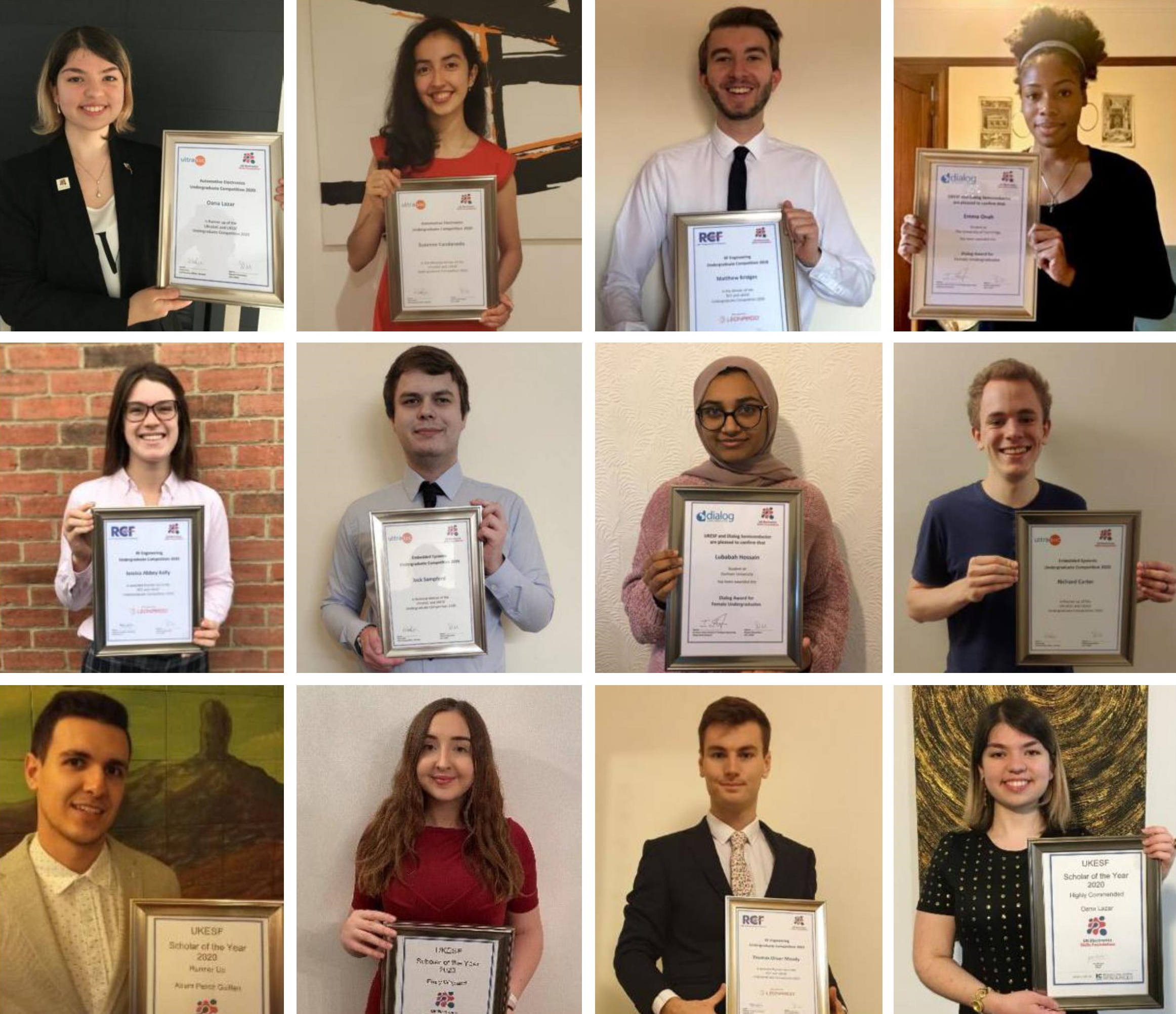
UKESF award and competition finalists of 2020/21
“From the outset our aim for the Foundation has been to build the future by inspiring and supporting students and Scholars into the Electronics industry. The pandemic has meant that this has been another challenging year for all of us. However, I am very pleased to report that the Foundation has been able to continue successfully. We have been able to launch a new ‘Insight into Electronics’ project this year, which has already proved incredibly popular. I am also pleased that we are working hard to address the gender imbalance in the sector through our ‘Girls into Electronics’ initiative.”
Lynn Tomkins, Chair, UKESF
“While a downturn in the global economy is clear, it’s encouraging that Electronics has fared better than most sectors; indeed, demand particularly for semiconductors is high as major markets accelerate into a recovery. In the UK, we are seeing a renewed focus on technology and innovation, for instance around electrification. This means that our work connecting universities with industry is now even more vital.”
Stew Edmondson, CEO, UKESF
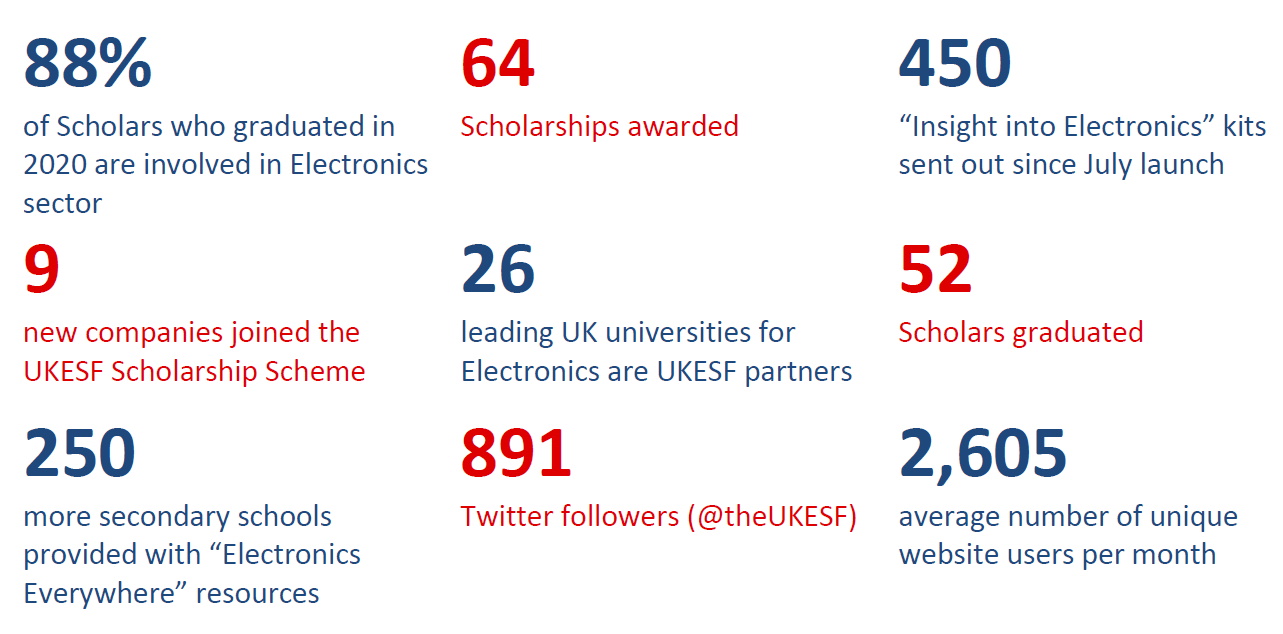
Read the full Annual Review for 2020/21 HERE.
Following a year’s break due to the pandemic, the UKESF Scholars’ Workshop was back this September and more successful than ever, with 98% of attendees rating it as ‘Excellent’. Over 50 undergraduates from leading universities across the UK met at the University of York for four days of professional and personal development, which included hearing from a range of speakers, taking part in group exercises and networking with like-minded peers.
Stew Edmondson, CEO of the UKESF, said, “I’ve just had the pleasure and privilege of spending four days with our current group of undergraduate Scholars. The professional skills workshop is a unique part of our UKESF programme. It was really inspiring to be with so many impressive and highly motivated young Electronics engineers again, full of energy, ideas and intellectual curiosity. The future is bright!”
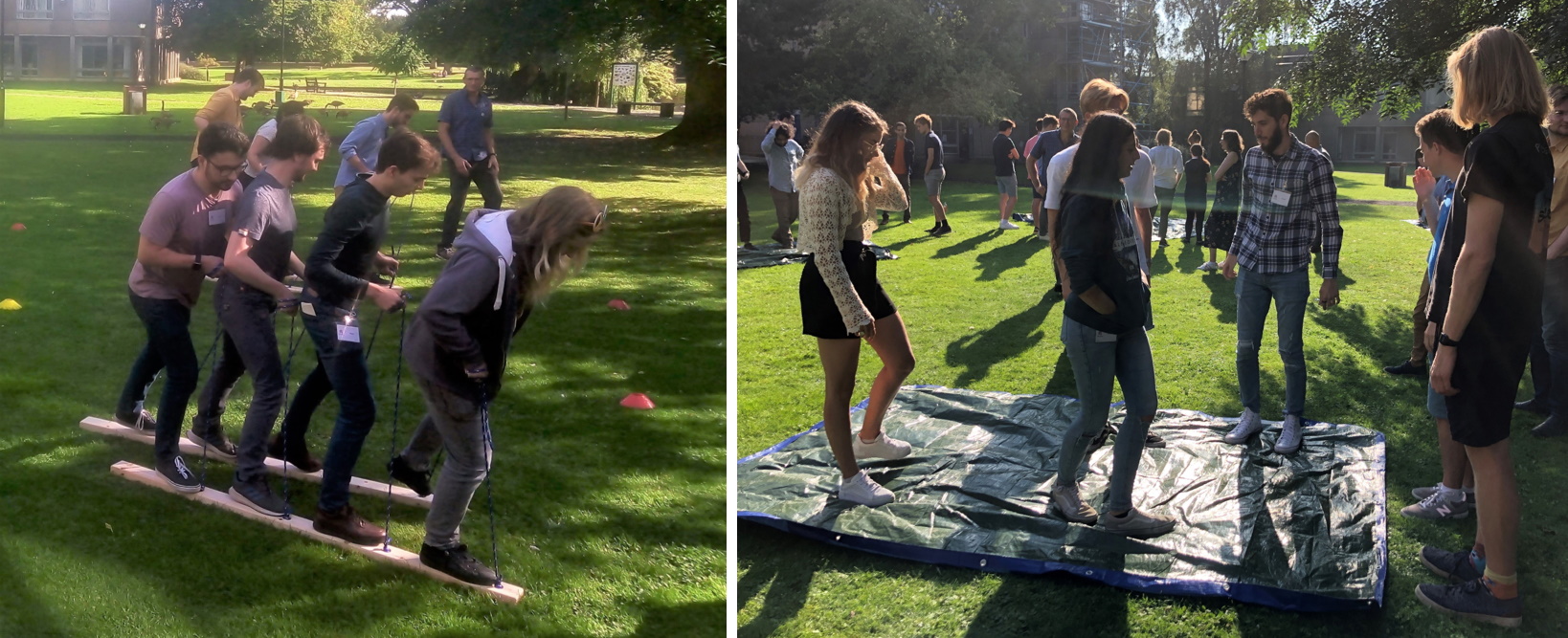
Group exercises
Attendees gained an insight into leadership, negotiation, ethics, neuro-linguistic programming, and cyber security, as well as receiving CV and career advice. Four former UKESF Scholars joined the Workshop virtually for the ever-popular panel session, where they spoke and answered questions about their experiences as graduate engineers.
Across the Workshop, attendees also benefitted from the chance to socialise and bond with other engineering undergraduates and enjoyed a formal dinner together on the final evening.
To find out how to get involved and how your company could benefit from connecting with a UKESF Scholar, click HERE.
Read a selection of the overwhelmingly positive feedback below:
“Fantastic week! Surpassed all expectations and it has changed the way I think about my career and the way I interact with the people around me.”
“I really don’t know how I can express how great and what an amazing opportunity this has been. I believe everyone will benefit from the work being done by the UKESF.”
“Didn’t know what I was expecting going into the Workshop but I have really enjoyed it.”
“I’ve learnt a lot more than anticipated and now appreciate that technical ability isn’t the most significant part of being an engineer – there are so many more skills that I have developed this week and will be incredibly useful to take into the workplace.”
The supplement includes the story of our creation in the words of the people who were there, an overview of our education activities and work to encourage more girls to get involved the sector, as well as profiles of some of our high-achieving graduated Scholars. Read the full feature HERE.
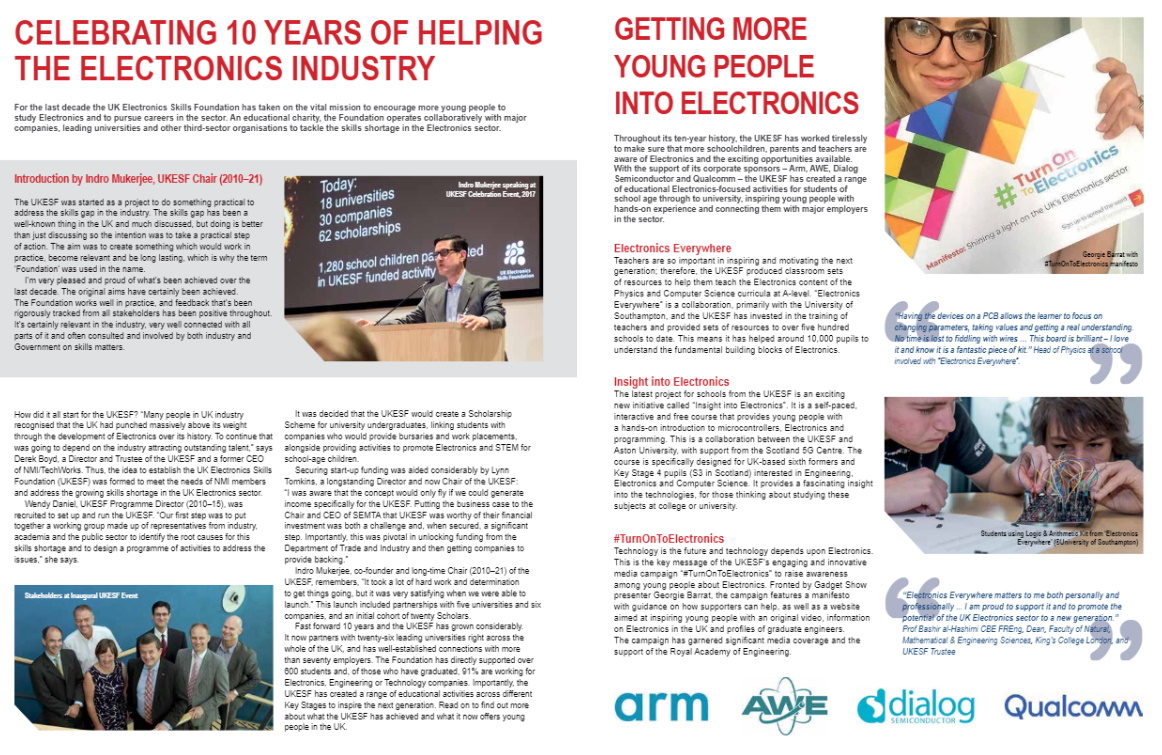
Pages 16-17 of the supplement
Many thanks to Mathys & Squire for their support.
Our successful Scholarship Scheme is at the heart of the UKESF. Over the last 10 years, we have supported over 600 excellent Electronics students from leading universities. Many of these are now flourishing as graduate engineers, working for companies across the Electronics sector. Rightly, we are very proud of all of our graduates and we wish them all every success in their future careers. As we conclude this series of posts celebrating our 10th Anniversary, we wanted to highlight the notable achievements of some of these former UKESF Scholars.
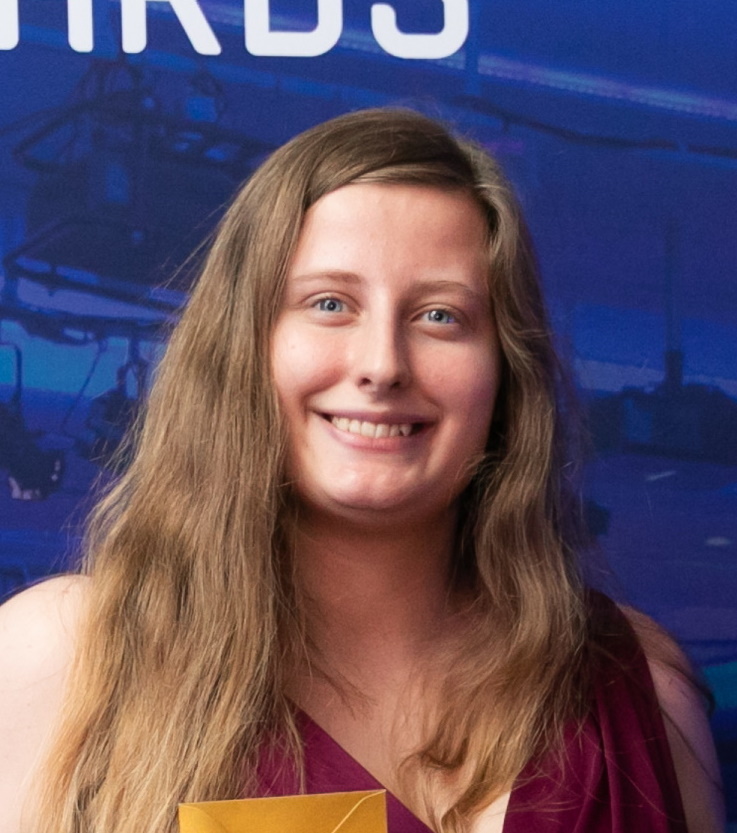 Mary (UKESF Scholar 2016–20) studied at the University of Surrey, was sponsored by Embecosm and in 2019 was jointly named our Scholar of the Year. During her industry placement, she designed and created an open source, educational resource to be used at Chip Hack and in schools, as well as speaking at ORConf – the first woman to do so in the six-year history of the conference. Mary continues to work for her sponsor company following graduation, as a Compiler Engineer.
Mary (UKESF Scholar 2016–20) studied at the University of Surrey, was sponsored by Embecosm and in 2019 was jointly named our Scholar of the Year. During her industry placement, she designed and created an open source, educational resource to be used at Chip Hack and in schools, as well as speaking at ORConf – the first woman to do so in the six-year history of the conference. Mary continues to work for her sponsor company following graduation, as a Compiler Engineer.
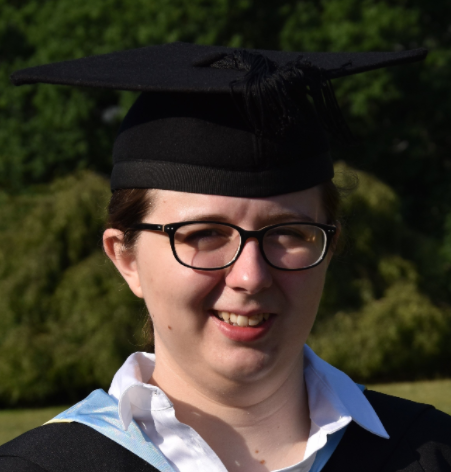 Emma (UKESF Scholar 2014–17) studied at the University of Southampton, where she graduated with a First Class MEng in Electronic Engineering. In 2018 she was awarded Young Engineer of the Year at the TechWorks Awards, and in 2019 made EW’s BrightSparks list for her graduate project and her volunteering. During her Scholarship Emma was sponsored by Arm, where she is now an Electronic Engineer, having worked there since graduation. In 2017, Emma wrote a brilliant guest blog post for us on gender imbalance in the Electronics sector, titled ‘Where are the queues for the loos?’.
Emma (UKESF Scholar 2014–17) studied at the University of Southampton, where she graduated with a First Class MEng in Electronic Engineering. In 2018 she was awarded Young Engineer of the Year at the TechWorks Awards, and in 2019 made EW’s BrightSparks list for her graduate project and her volunteering. During her Scholarship Emma was sponsored by Arm, where she is now an Electronic Engineer, having worked there since graduation. In 2017, Emma wrote a brilliant guest blog post for us on gender imbalance in the Electronics sector, titled ‘Where are the queues for the loos?’.
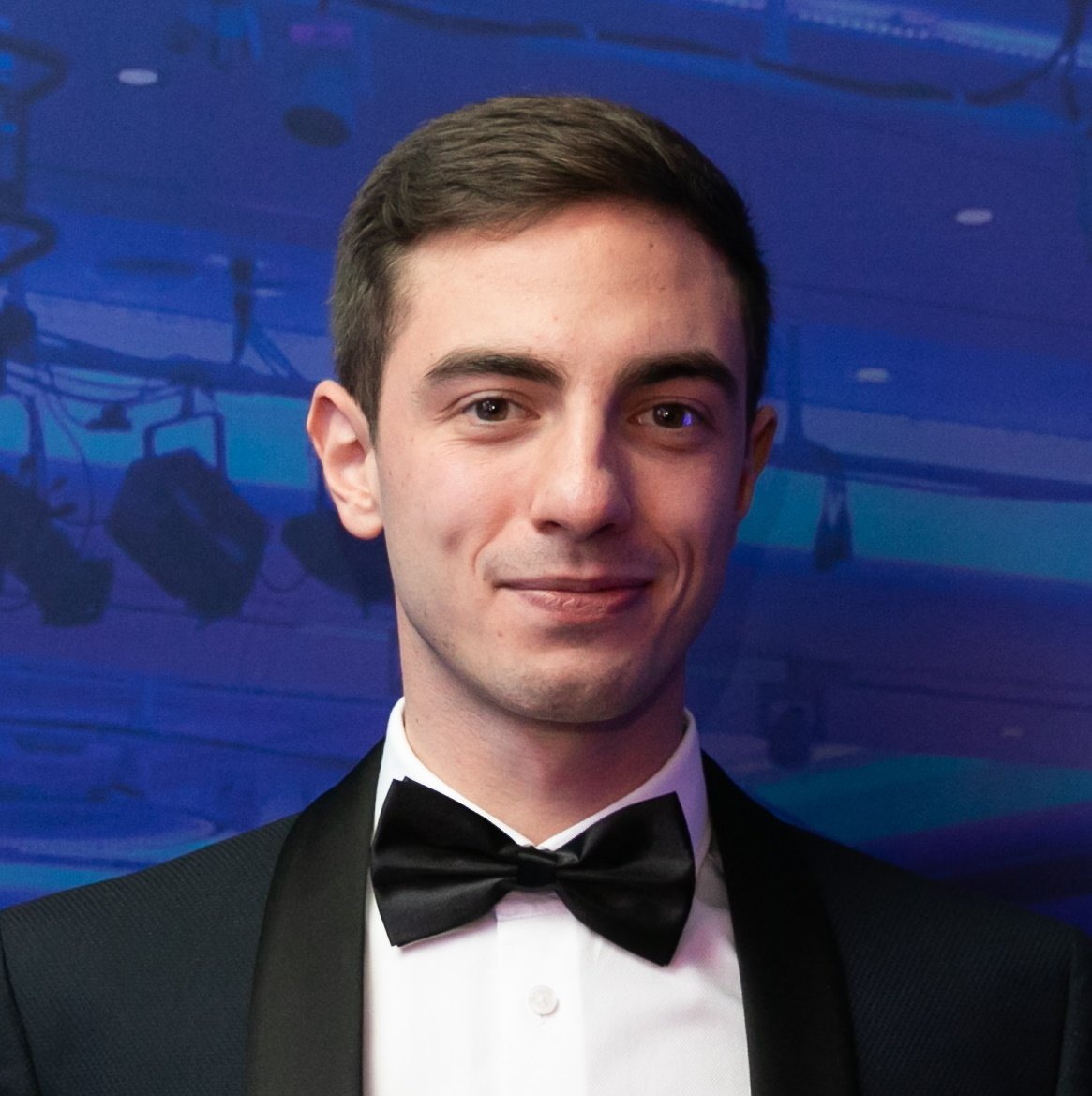 Yanislav (UKESF Scholar 2018–20) studied at the University of Southampton and was sponsored by Qualcomm Technologies. In 2019, he won our Embedded Systems Competition and was also named one of EW’s BrightSparks for a variety of achievements, including a device he created at university and his incredible outreach work. In 2020, Yanislav wrote a guest blog post for us on his air drumming project and in 2021 volunteered his time to write the extensive user guide for our new Insight into Electronics project. Yanislav is now a Software Engineer at one of our sponsor companies, Graphcore.
Yanislav (UKESF Scholar 2018–20) studied at the University of Southampton and was sponsored by Qualcomm Technologies. In 2019, he won our Embedded Systems Competition and was also named one of EW’s BrightSparks for a variety of achievements, including a device he created at university and his incredible outreach work. In 2020, Yanislav wrote a guest blog post for us on his air drumming project and in 2021 volunteered his time to write the extensive user guide for our new Insight into Electronics project. Yanislav is now a Software Engineer at one of our sponsor companies, Graphcore.
 Max (UKESF Scholar 2013–15) studied at the University of York and was sponsored by Arm, where he accepted a position following graduation and is now a Senior Engineer. In an interview with us, he said, “I was awarded a Scholarship in the third year of my degree so the following summer I completed an internship at my sponsoring company and attended the UKESF Scholar Workshop. I found both experiences extremely useful in gaining skills to use in completing my final year of study; learning first-hand about the industry and developing my engineering skills, which have been valuable in returning to work as a graduate.”
Max (UKESF Scholar 2013–15) studied at the University of York and was sponsored by Arm, where he accepted a position following graduation and is now a Senior Engineer. In an interview with us, he said, “I was awarded a Scholarship in the third year of my degree so the following summer I completed an internship at my sponsoring company and attended the UKESF Scholar Workshop. I found both experiences extremely useful in gaining skills to use in completing my final year of study; learning first-hand about the industry and developing my engineering skills, which have been valuable in returning to work as a graduate.”
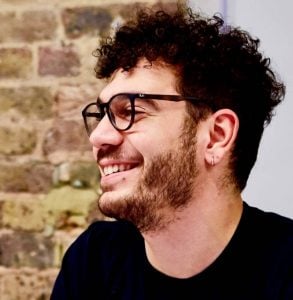 Nathan (UKESF Scholar 2014–16) studied at the University of Southampton and was sponsored by NVIDIA. He made the 2019 EW BrightSparks list for his work on an energy- and money-saving device. Later that year, Nathan started a boutique consultancy company, Embedism, offering affordable prototyping and electronics+firmware development for start-ups. At the start of the pandemic, thanks to his industry contacts and fully kitted-out workshop, Nathan was able to cheaply source materials and use his laser cutter to cut visors at a rate of around one every 2 minutes. In April 2020 he had already made over 1,700 headbands and distributed them to volunteers for final assembly and distribution to their local NHS facilities.
Nathan (UKESF Scholar 2014–16) studied at the University of Southampton and was sponsored by NVIDIA. He made the 2019 EW BrightSparks list for his work on an energy- and money-saving device. Later that year, Nathan started a boutique consultancy company, Embedism, offering affordable prototyping and electronics+firmware development for start-ups. At the start of the pandemic, thanks to his industry contacts and fully kitted-out workshop, Nathan was able to cheaply source materials and use his laser cutter to cut visors at a rate of around one every 2 minutes. In April 2020 he had already made over 1,700 headbands and distributed them to volunteers for final assembly and distribution to their local NHS facilities.
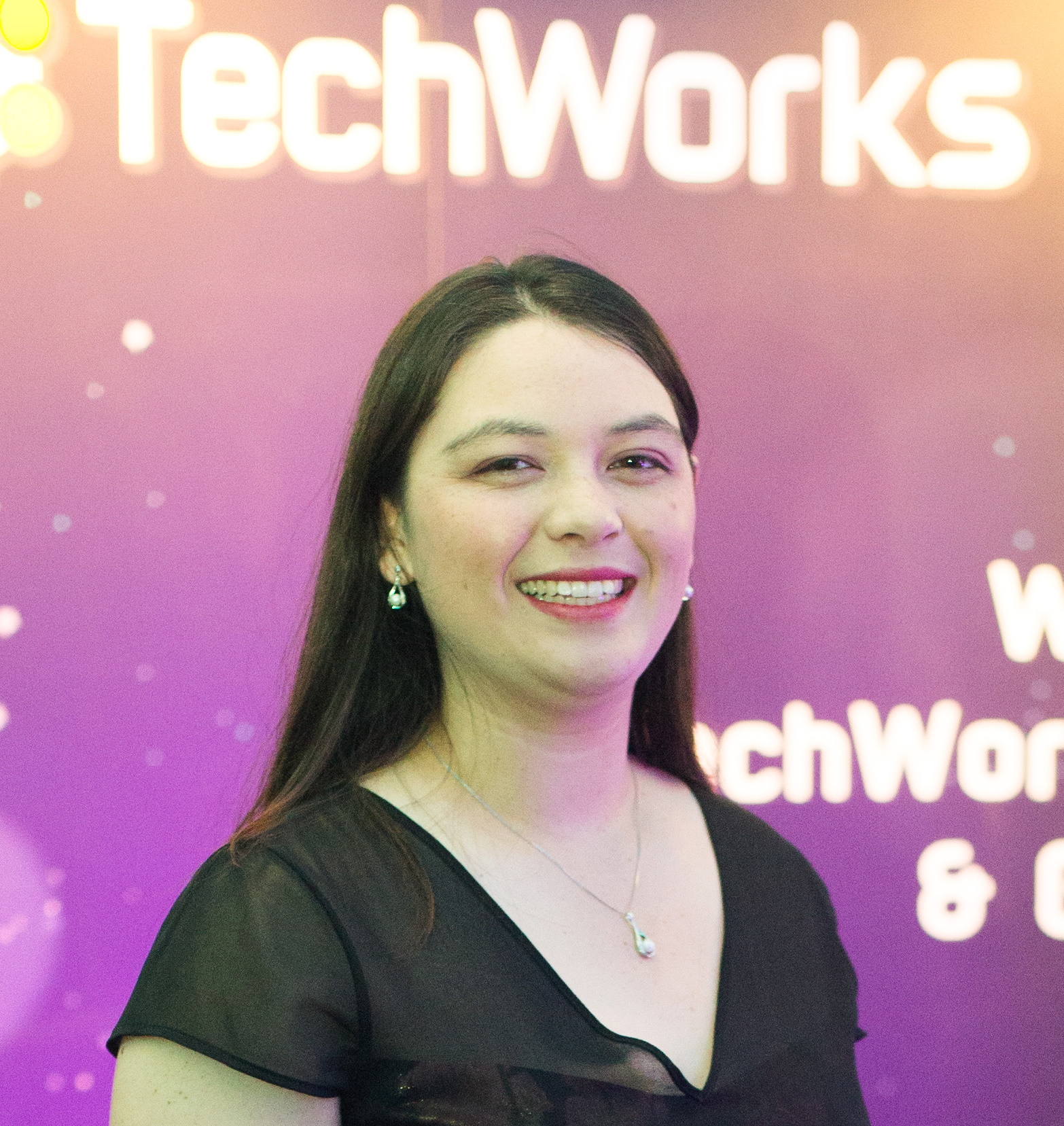 Joanna (UKESF Scholar 2013–17) studied at the University of Bristol, was sponsored by Imagination Technologies and in 2016 was awarded our Scholar of the Year. Joanna now works as a Silicon Product Engineer at UKESF sponsor company Graphcore. In 2019, Joanna told our supporter IC Resources what advice she would give young women looking to break into Engineering today: “I’d tell them to not be afraid or shy. If Engineering is what you want to do, then be enthusiastic about it and don’t be afraid to ‘boast’ on your CV. I’ve found that many women aren’t very good at ‘showing off’ their achievements, even when what they’ve achieved is really amazing.”
Joanna (UKESF Scholar 2013–17) studied at the University of Bristol, was sponsored by Imagination Technologies and in 2016 was awarded our Scholar of the Year. Joanna now works as a Silicon Product Engineer at UKESF sponsor company Graphcore. In 2019, Joanna told our supporter IC Resources what advice she would give young women looking to break into Engineering today: “I’d tell them to not be afraid or shy. If Engineering is what you want to do, then be enthusiastic about it and don’t be afraid to ‘boast’ on your CV. I’ve found that many women aren’t very good at ‘showing off’ their achievements, even when what they’ve achieved is really amazing.”
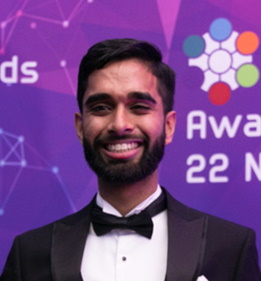 Ricki (UKESF Scholar 2016–20) studied at the University of Southampton and was sponsored by UltraSoC (recently acquired by Siemens). In 2018 he was awarded our Scholar of the Year, and in 2019 was named an EW BrightSpark for this and a document-generating tool he created, as well as his position as president of Southampton’s 2,000-strong Electronics & Computer Science Society, having doubled the society’s participation at industry partner events. Ricki has worked for his sponsor company since graduation and is now a Hardware Design Engineer.
Ricki (UKESF Scholar 2016–20) studied at the University of Southampton and was sponsored by UltraSoC (recently acquired by Siemens). In 2018 he was awarded our Scholar of the Year, and in 2019 was named an EW BrightSpark for this and a document-generating tool he created, as well as his position as president of Southampton’s 2,000-strong Electronics & Computer Science Society, having doubled the society’s participation at industry partner events. Ricki has worked for his sponsor company since graduation and is now a Hardware Design Engineer.
Developed in collaboration with the University of York’s AudioLab (part of their Department of Electronic Engineering), the UKESF is delighted to announce the launch of the Explore-a-Synth teaching tool.
As part of the expansion of our “Electronics Everywhere” portfolio, Explore-a-Synth relates directly to aspects of the Key Stage 3 National Curriculum in England (covering wave theory), including Music, Physics and Computing.
The tool demonstrates the relationships between music, science, technology and engineering, encouraging creativity and exploration, through use of an online synthesiser. Pupils can experiment, compose and learn by creating a variety of sounds to download and use in compositions.
Follow the links below to find out more and try out the synthesiser:
~ Students click HERE to read the quick start guide and access the Explore-a-Synth synthesiser interface.
~ Teachers click HERE for project resources.
Explore-a-Synth was made possible thanks to support from the Engineering Education Grant Scheme via The IET and IMechE.
We organised another highly successful Girls into Electronics in July. Over the three days, attendees of the virtual course sponsored by onsemi had the opportunity to learn from female engineers and interns working at Electronics companies, as well as female lecturers and students at UKESF partner universities. They took part in discussions and Q&A sessions, in addition to gaining hands-on experience of microcontrollers and problem solving with the Grove Beginner Kit for Arduino.
Of the Year 12 attendees, 25% were of an ethnic minority and 80% were from state schools. Feedback was very positive, with 85% stating that the course had persuaded them to seriously consider studying Engineering at university, and 80% saying that their interest in Engineering in general had increased after completing the course. 85% of attendees would recommend the course.
The content of the course scored an impressive average of 84% approval, with the most highly rated sessions being ‘Using Electronics to Solve Real-World Problems’ and the Q&A with graduated female UKESF Scholars. In their written feedback, attendees praised the variety of activities that kept them engaged throughout each day, as well as how inspiring they found hearing about the experiences of female engineers.
“I am thankful for everyone who spoke on the course, the people who supported us and the kit provided to us as I learnt a lot from it! It was a refreshing experience and has really made me consider studying Electronics at university.”
“I’d just like to thank everybody involved in this course. I honestly would have never thought of Electronics as something that I could do without this. Thank you so much!”
“I would like to say thank you to all the staff and guest speakers as they were really supportive all along the course and the speeches were really thought-provoking!”
Below are two videos of sessions included in this year’s course. The first is a presentation by Dr Sohini Dasgupta, Principal Design Engineer at onsemi:
The second video features Dr Sohini Dasgupta in discussion with Eleftheria Safarika (UKESF Scholar sponsored by onsemi):
Girls into Electronics 2021 was organised with help from university partners Aston University and Royal Holloway and with support from The Smallpeice Trust.
Our Scheme is widely recognised as an exemplar of engagement between Higher Education and industry
At the heart of the UKESF is our undergraduate Scholarship Scheme, providing students with the opportunity to experience Electronics and engineering in practice, through meaningful work placements, and to undertake professional development in order to succeed in industry as a graduate. Over the last ten years, our Scheme has gone from strength to strength, and is widely recognised as an exemplar of engagement between Higher Education and industry.
Over time, we have expanded the range of companies involved with the Scheme to over 70, reflecting the breadth of the sector from semiconductors, through analogue and digital design companies, to embedded software. Employer satisfaction remains reassuringly high; indeed, in a recent survey, an amazing 96% of respondents said that they would recommend us.
We now partner with 26 leading universities right across the whole of the UK, and have directly supported over 600 students. Of those who have graduated, 91% are working for Electronics, Engineering or Technology companies. We also remain committed to supporting diversity; since the Scheme began, 15% of our Scholarships have been awarded to female undergraduates. In addition, of the Scholarships awarded over the last six years: 21% were BAME, 73% were state-sector educated and 23% were the first in family to go to university.
Below, you can read about the experiences of three engineers who formed part of our first cohort of Scholars, all the way back in 2010…
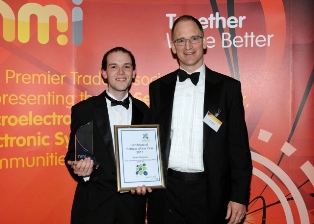 Adam (UKESF Scholar 2010–12) studied at the University of Southampton and was sponsored by Dialog Semiconductor. In 2011 he won our inaugural Scholar of the Year Award, and in 2013 was named Young Engineer of the Year at the NMI (now TechWorks) Awards. Following graduation, Adam worked for his sponsor company for eight years at their office in Tokyo, Japan, ultimately as a Senior Analogue Design Engineer. He now works for another of our sponsor companies, Apple, as an ASIC Design Engineer.
Adam (UKESF Scholar 2010–12) studied at the University of Southampton and was sponsored by Dialog Semiconductor. In 2011 he won our inaugural Scholar of the Year Award, and in 2013 was named Young Engineer of the Year at the NMI (now TechWorks) Awards. Following graduation, Adam worked for his sponsor company for eight years at their office in Tokyo, Japan, ultimately as a Senior Analogue Design Engineer. He now works for another of our sponsor companies, Apple, as an ASIC Design Engineer.
He told us, “After graduation, I worked for my sponsoring company Dialog Semiconductor in Tokyo, Japan, for eight years, so I’m sure you’ll be happy to know that I spent so long with the company that provided me with the UKESF Scholarship. I have had the chance to design ICs that are being used in all kinds of products around the world, from mobile to automotive. My highlight so far was the first time I walked into a shop and bought a product that included one of my designs inside it. I wish I could say what it was, but sorry that’s a secret! My experience as a UKESF Scholar was great; it gave me a chance to learn more about the company and build relationships, so that coming back to work as a graduate was an easy choice.”
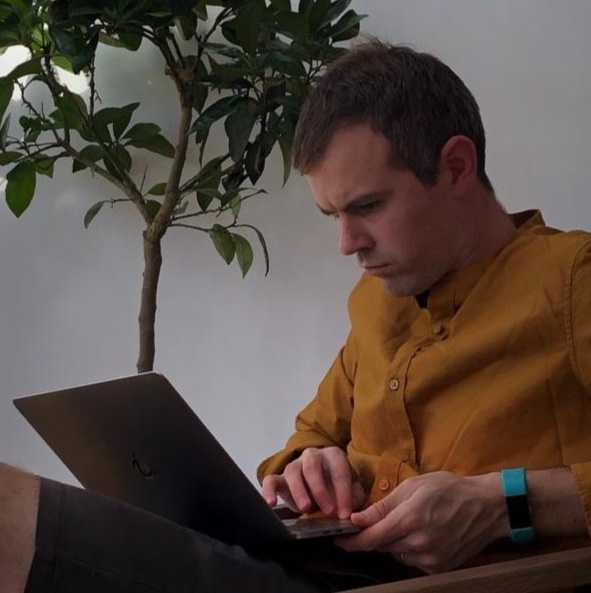 Fergus (UKESF Scholar 2010–12) studied at the University of Southampton and was sponsored by Imagination Technologies. Following graduation, he worked as an Engineer at Arm, and now works as a RTL Design Engineer at Apple – both of which are UKESF sponsor companies.
Fergus (UKESF Scholar 2010–12) studied at the University of Southampton and was sponsored by Imagination Technologies. Following graduation, he worked as an Engineer at Arm, and now works as a RTL Design Engineer at Apple – both of which are UKESF sponsor companies.
He told us, “I can’t pick out one career highlight, but something that never gets old is seeing new products using chips I’ve designed. I especially get a kick out of optimising for low power, and once you scale up how many of these chips are used around the world every day, I quickly realise that I have personally reduced the electricity consumption of humanity by a fairly large power station so far!
“My main memory of being a UKESF Scholar was a feeling of being surrounded by lots of really bright young engineers who were keen to build things. It was a really fun environment, and it meant wherever I have worked since I have pushed for participation in UKESF’s Scholarships, as I think they are the best ways to get access to some of the best young engineers in the UK.”
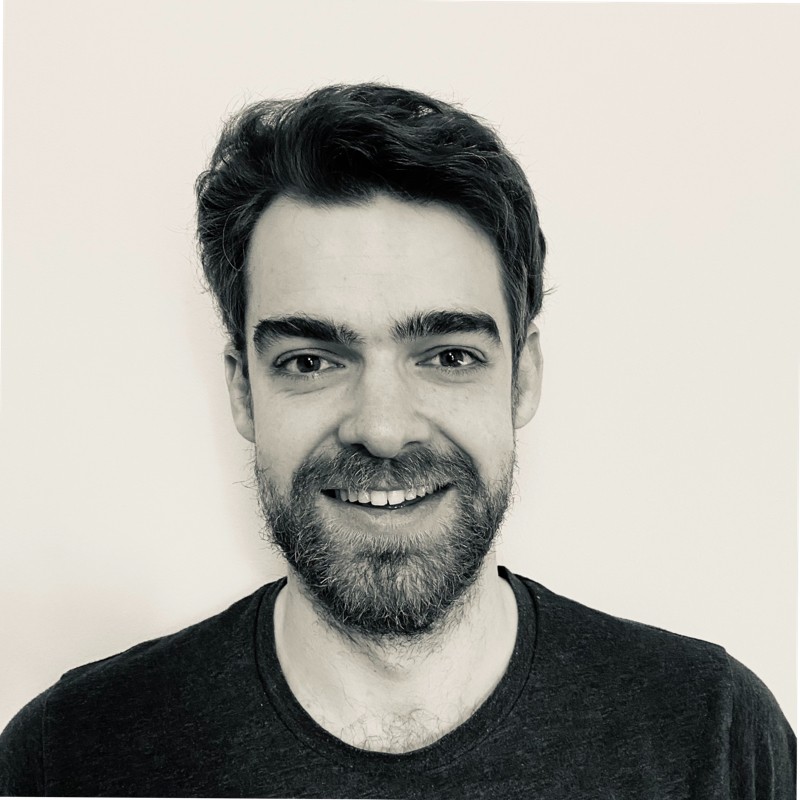 Matt (UKESF Scholar 2010–12) studied at the University of Southampton and was sponsored by Imagination Technologies, where he worked for five years following graduation as a Hardware Design Engineer. Matt later worked for another of our sponsor companies, UltraSoC, for over two years, and now works for Mentor Graphics as a Senior Engineer in Hardware: Tessent Embedded Analytics.
Matt (UKESF Scholar 2010–12) studied at the University of Southampton and was sponsored by Imagination Technologies, where he worked for five years following graduation as a Hardware Design Engineer. Matt later worked for another of our sponsor companies, UltraSoC, for over two years, and now works for Mentor Graphics as a Senior Engineer in Hardware: Tessent Embedded Analytics.
He told us, “My career highlight so far is having the opportunity to architect, design a key component in an ISO26262 certified IP design, which is being used in an ADAS system used in millions of cars. My UKSEF Scholarship gave me a good foundation in a good company to start my career. I’ve worked at several companies and met many other UKESF Scholars along the way, and they’ve all felt the same.”
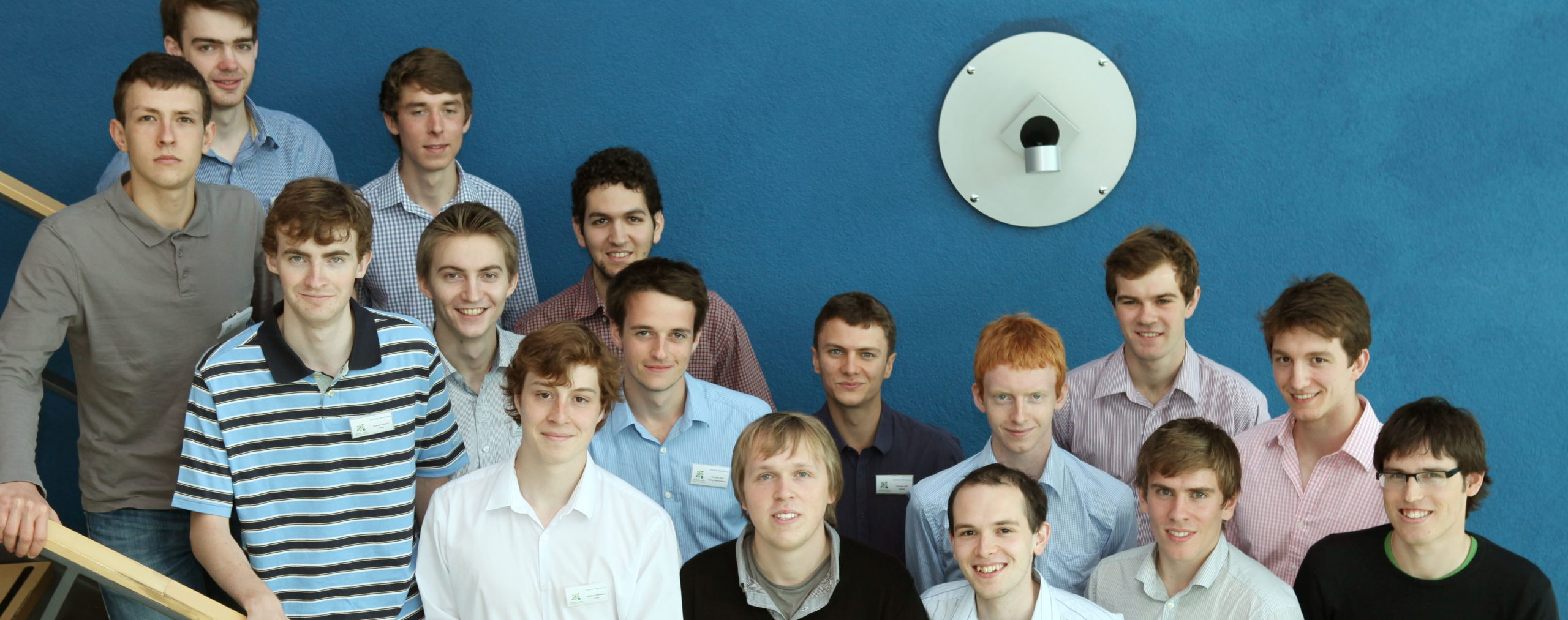
Attendees of the first ever Scholar Workshop in 2011
As we celebrate the 10th anniversary of the UKESF, we thought we should look back to the very beginning to learn more about the start of our journey. To do this, we have collected the memories of those who were principally involved at the time. Click the links below to read our series of interviews and find out how the UKESF was created in the words of the people who were there.
Indro Mukerjee, Former Chair – “The skills gap has been a well-known thing in the UK and much discussed, but doing is better than just discussing so the intention was to take a practical step of action … The fact that the UKESF is still around and going strong after 10 years is testimony to its value to industry, universities and other stakeholders. That’s the most pleasing thing of all.”
Lynn Tomkins, Chair & Director – “The business model has evolved in terms of expanding key activities and initiatives, in addition to the Scholarship. I see two major steps in improving business performance – the appointment of Stew as our CEO, and the development of Electronics Everywhere.”
Derek Boyd, Trustee & Director, Former CEO of NMI/TechWorks – “As we’ve moved forward, seeing so many incredibly bright young people coming through the program and developing excellent careers has been great to see and continues to motivate me … I hope we will see the Foundation’s role continue to encourage more young people to embark on this journey and that we give them as much help as possible along the way.”
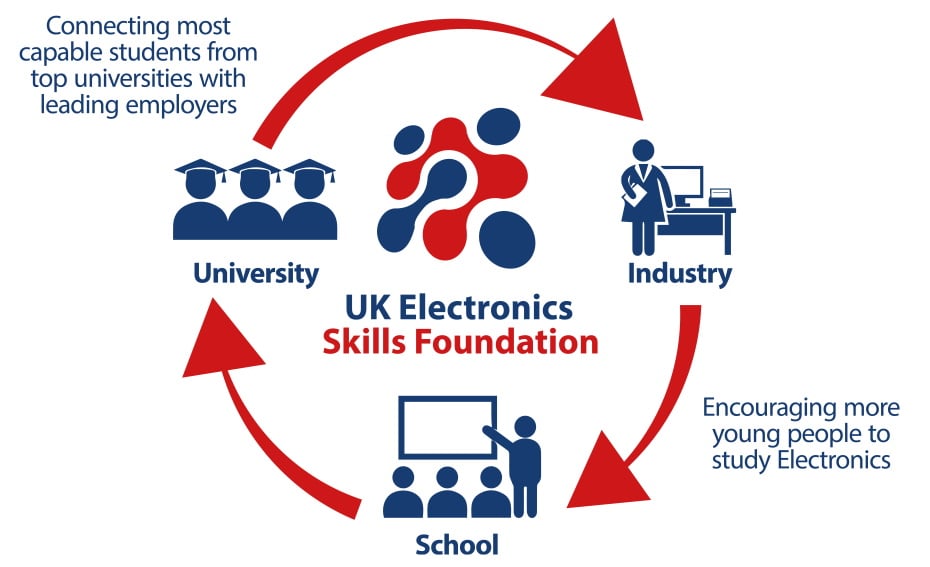
Wendy Daniell, Former Programme Director – “My first memories are of arranging and attending meetings all around the UK to engage with potential stakeholders for this group. Once the group was formed, we had a series of day-long meetings, which resulted in a proposal for the UKESF … Ultimately, we hoped our Scholars would be become the next generation of leaders in the Electronics sector.”
John Moor, NMI/Techworks – “We gathered anecdotal evidence, UCAS and university data, but that was not enough to get buy-in and real commitment – we needed to up our game. We were fortunate enough to win the interest of Indro Mukerjee and he encouraged us to put more effort into shaping up the plan … Then we had to take it on the road and socialise it with our most important stakeholder group besides the raw talent: industry.”
Darren Race, Trustee & Director, Leader Facilitator at Scholar Workshop – “I have been involved with the UKESF from its formation back in 2010. The key differentiator for me is how the programme was designed, driven and aligned with the demand/requirements of employers, i.e. industry led; something which is unique. This is further demonstrated by the level of industry engagement and investment throughout the programme.”
In this series of posts we will hear from those involved with the creation of the UKESF, reflect on some of the highlights and catch up with some graduated Scholars
As the UKESF moves into its second decade, our Foundation is developing all the time. We are seeing our undergraduate Scholarship Scheme go from strength to strength and we are creating even more initiatives to encourage young people into Electronics. However, it is important to pause and take a moment, reflect and look back over the last 10 years. In this series of posts we will ask those involved in the creation of the UKESF to share their stories, reflect on some of the highlights of the last 10 years and catch up with some of the students who have graduated from our Scholarship Scheme.
To get started, here’s a video we created last summer to celebrate our 10th Anniversary, giving a brief history of our story and achievements since our founding in 2010:
Be part of the UKESF’s future by supporting our work or by joining our Scholarship Scheme. Contact [email protected].
Last week we launched an exciting new initiative called ‘Insight into Electronics’, a collaboration between the UKESF and Aston University. We have already received an astounding response from keen students in Years 10-13 – over 650 sign-ups in the first week!
The course is self-paced, interactive and FREE, and aims to provide young people with a hands-on introduction to microcontrollers, Electronics and programming. The activities within the course can be completed flexibly to fit around other commitments and study at a pace that suits individual circumstances. The course is aimed at those students who are thinking about studying Engineering, Electronics or Computer Science at university, or college.
As well as an extensive guide and informative videos, participants will also receive a free Grove Beginner Kit including an Arduino.
UKESF CEO Stew Edmondson commented, “It has always been part of our UKESF mission to make more young people aware of the potential of Electronics, and with the launch of this course, we hope to encourage many more young people to choose a career in the Electronics industry”.
We plan to scale-up the project in the coming months and to add more ideas for projects and activities using the kits. To find out more about the course and to sign up to our waiting list, young people should visit our webpage here Insight Into Electronics.
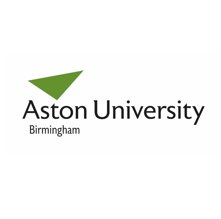
“The fact that the UKESF is still around and going strong is testimony to its value to industry, universities and other stakeholders.”
Indro Mukerjee
Co-Founder of the UKESF Indro Mukerjee has stood down as Chair of the Steering Board due to his new role as CEO of Innovate UK, following 11 years of service to the Foundation.
 Indro said, “The UKESF was started as a project to do something practical to address the skills gap in the industry. The skills gap has been a well-known thing in the UK and much discussed, but doing is better than just discussing so the intention was to take a practical step of action.
Indro said, “The UKESF was started as a project to do something practical to address the skills gap in the industry. The skills gap has been a well-known thing in the UK and much discussed, but doing is better than just discussing so the intention was to take a practical step of action.
It took a lot of hard work and determination to get things going, but it was very satisfying when we were able to launch what was effectively a private/public partnership, to link industry with universities.
The aim was to create something which would work in practice, become relevant and be long lasting, which is why the term ‘Foundation’ was used in the name.
I’m very pleased and proud of what’s been achieved over the last decade. The original aims have certainly been achieved.
The Foundation works well in practice, and feedback that’s been rigorously tracked from all stakeholders has been positive throughout. It’s certainly relevant in the industry, very well connected with all parts of it and often consulted and involved by both industry and government on skills matters.
The fact that the UKESF is still around and going strong is testimony to its value to industry, universities and other stakeholders. That’s the most pleasing thing of all.”
The UKESF is pleased to announce the appointment of Lynn Tomkins as the new Chair of the UKESF Steering Board. Lynn has been involved with the UKESF as a founding Trustee since its inception in 2010, as well as contributing her time and knowledge as a facilitator and speaker at the yearly UKESF Scholar Workshop.

Lynn said, “I am delighted to be taking over as Chair of the UKESF, Indro will be a hard act to follow, however, I am passionate about the work of the UKESF and am looking forward to supporting the team, who have done a brilliant job despite the challenges of the pandemic. We have a brilliant community of supporting companies, universities, partner organisations and an expert board and a network of over 600 former UKESF Scholars.”
The UKESF is working hard to support the Electronics Sector. Despite the challenges caused by the pandemic, we are delighted to report another successful year for our Scholarship Scheme. Through the Scheme, we continue to help employers connect with undergraduates from leading universities.
The UKESF’s relationship with sponsor companies is at the heart of our Scholarship Scheme, so it is reassuring to know that employer satisfaction remains exceptionally high. In a recent survey, 96% of respondents said that they would recommend the UKESF. Also,
“A very beneficial scheme which has attracted some very talented undergraduates.”
We now have 26 partner universities right across the UK, and continue to attract high-quality students from these leading universities. This year we received over 250 applications from undergraduates. In our survey, 90% of employers said the quality of applications was ‘excellent’ or ‘good’. Our Scheme promotes inclusivity and we know that over the last six years:
“We had a higher proportion of female applicants through the UKESF compared to our direct intern programme, which proved to be valuable to us.”
Helping our industry tackle its skill shortage and encouraging more young people to pursue careers in Electronics is what the UKESF is all about. Enabling students to gain experience through work placements is so important. Our Scholarship Scheme is well established and we have supported over 600 students.
Of those who have completed their studies, 91% work in the Electronics and Technology sectors and 59% of graduated Scholars in employment work for a UKESF sponsor company.
“The UKESF has been really helpful to me – the bursary is of course lovely, but the work placements were incredibly valuable and the Workshop taught me new stuff!”
“I have found the Scheme very beneficial and it has contributed both to my studies and future career.”
We really appreciate the engagement from our partner universities and all the support from our sponsors. We will be in touch with companies over the summer to discuss participation in the Scholarship Scheme for the next academic year. For employers interested in learning more, there is a Guide to the Scheme here or email [email protected] for a call back.
“This prototype has provided a very viable proof of concept of a smart interactive map, fulfilling the brief of answering the “Where am I?” question on a physical map.”
David & Ala, UKESF Scholars and University of Southampton students
Electronics is all about using technology to solve problems and make people’s lives better. At the UKESF, we like to publicise innovative projects undertaken by undergraduates at our partner universities. One project that recently caught our eye was an ‘Interactive Smart Textiles Map’. This was a project undertaken by a group of MEng students, including two UKESF Scholars, from the University of Southampton. We asked David and Ala, to share their thoughts about the project. This is what they told us:
SplashMaps Ltd, who produce flexible fabric maps, sponsored the project. They requested that Electronics be integrated into their product, to display the user’s location on the map, whilst still maintaining the map’s original flexibility and feel.
The project was a continuation from a previous year; therefore, it was important to build on the previous team’s findings and make improvements. It was clear from the outset that the parts of the systems we wanted to focus on were the LEDs, GPS size and product integration as well as adding an off-the-map feature and additional multipurpose LED grid for a refined informational display. It was decided to split the team into three main area of focus:
The original design plan for the integrated map is seen below:
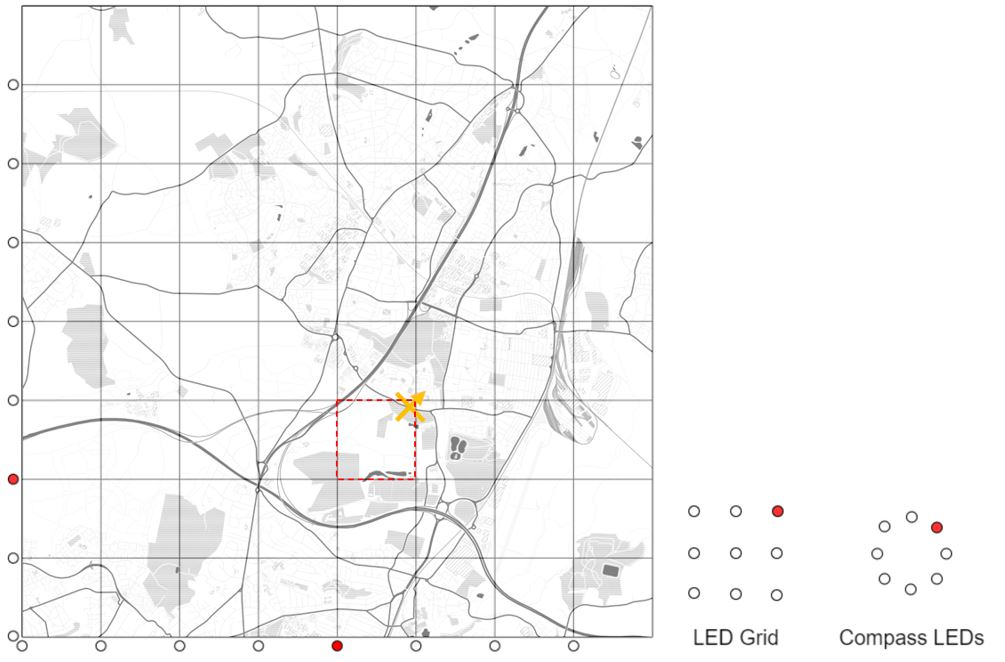
Figure 1: Initial integrated map design.
We only had 12 weeks to complete the prototype, therefore planning was key. The first 4 weeks were spent on researching potential ideas and the creation of a detailed specification and plan by each sub-team, weeks 4-8 on designing the system, schematics, PCBs and making the individual systems, and weeks 9-10 spent on whole system integration and putting the product together. Finally, weeks 11-12 involved summarising and presenting our findings in the form of a report and poster.
The prototype produced in this project contains a large number of features that went a long way to differentiating the integrated map from conventional products. We devised a solution to indicate in which of the map’s grid squares the user is located, and we also refined the location, within each 1km square with an additional 3×3 LED grid. Adding an electronic compass helped with direction.
We ensured that the Electronics we incorporated did not compromise the map’s water resistance. One extra feature we included was an ‘off-the-map’ function, so even when outside of the mapped area, the navigator is shown where they are in relation to the mapped area in order to find their way back to help re-orientate themselves.
To see the map in action, watch the demonstration video on our YouTube channel:
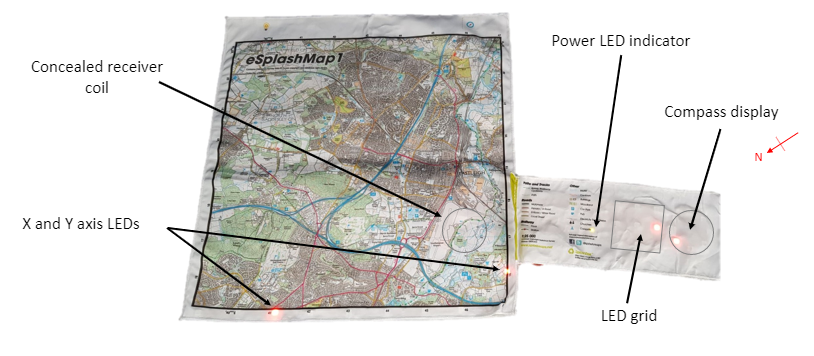
Figure 2: Final Integrated map prototype produced.
This prototype has provided a very viable proof of concept of a smart interactive map, fulfilling the brief of answering the “Where am I?” question on a physical map. We know that there are no guarantees that this solution will be developed into a final market product. Nevertheless, it does show great promise and has a number of potential development routes.
The project has been a tremendous success and it has been well received by the partner company SplashMaps, with Managing Director David Overton stating: “We’re delighted to have, in our hands, a working version of a long-held vision thanks to the students’ work. We’re proud to represent this work at the Wearable Technology Show as a significant step on the way to a fully dynamic and interactive fabric map.” It is certainly a novel and intriguing concept, and we are eager to see where it will progress.
“Between them they have an excellent range of relevant experience, from marketing to business management, which will be very relevant as the UKESF develops into the future.”
Indro Mukerjee, Chair, UKESF Steering Board
The UKESF is delighted to welcome two new Trustees to the Steering Board, Heather Macdonald and Rupert Baines.
Heather has been working in the Electronics industry for 20 years. She has held marketing and communications roles in both SME and corporate semiconductor companies, supported the growth of early stage start-ups in raising their profiles and building their teams, and has ‘front line’ experience of M&A activity. Heather holds a Masters in Marketing from the University of the West of England, and a BA Hons in English Literature from Queen Mary, University of London.
Rupert is a 30-year veteran of the global semiconductor industry and experienced deep-tech entrepreneur. Most recently he was CEO of UltraSoC, and has previously held senior roles in both start-ups and prominent trans-national companies in the UK, USA and Europe. Rupert has a BSc and Diploma in Electronic Engineering from Hull University, an MBA from IESE, is a Chartered Engineer and a Fellow of the IET.
Indro Mukerjee, Chair of the UKESF Steering Board, said,
“The UKESF has always benefitted from dedicated Trustee Board members who’ve shared the advantage of their deep and varied experience to support the Foundation. We’re now delighted to welcome Heather Macdonald and Rupert Baines as two new Trustees. Between them they have an excellent range of relevant experience, from marketing to business management, which will be very relevant as the UKESF develops into the future.”
In2scienceUK upskills young people from low income backgrounds by providing them with high quality careers guidance, STEM skills experiences and mentors.
In2scienceUK is working hard to address the STEM skills gap, and have created a four step programme aimed at disadvantaged young people from economically challenged backgrounds. At UKESF, we are happy to be supporting their mission, and asked them to write a blog post explaining more about what they do, and how you can support them too.
 If the outbreak of Covid-19 has taught us anything, technology makes the world go round. A world without YouTube, social media and Zoom is unimaginable now more than ever. The modern world depends on manufactured electronics and innovative new technology to drive economic development and solve some of our most challenging global problems. The UK’s electronic sector is genuinely dynamic and is a world leader in terms of creativity and innovation. However, the demand for capable, employable graduates is currently outstripping supply. Although careers in electronics offer exciting, world-changing and well paying opportunities, the UK is now facing a deficit of skilled workers, with 66% of employers in the electronics sector currently recruiting engineering and technology staff. This shortfall is why In2scienceUK and UKESF seek to address this predicament by supporting more young people to pursue a career in the field of electronics across the UK.
If the outbreak of Covid-19 has taught us anything, technology makes the world go round. A world without YouTube, social media and Zoom is unimaginable now more than ever. The modern world depends on manufactured electronics and innovative new technology to drive economic development and solve some of our most challenging global problems. The UK’s electronic sector is genuinely dynamic and is a world leader in terms of creativity and innovation. However, the demand for capable, employable graduates is currently outstripping supply. Although careers in electronics offer exciting, world-changing and well paying opportunities, the UK is now facing a deficit of skilled workers, with 66% of employers in the electronics sector currently recruiting engineering and technology staff. This shortfall is why In2scienceUK and UKESF seek to address this predicament by supporting more young people to pursue a career in the field of electronics across the UK.
A 2019 Wiley Education Services study highlighted the pace of technological change as being one of the most frequently cited contributors to the skills gap problem. An interesting finding in that same study stated that the rapid evolution of digital technology means that many new skills are increasingly having to be acquired and updated “on the job”. In2scienceUK upskills young people from low income backgrounds by providing them with high quality careers guidance, STEM skills experiences and mentors. By engaging with young people, we can ensure they are not left behind and prevented from reaching their potential.
The young people that take part in the In2scienceUK programme are from disadvantaged backgrounds in that they are recipients of free school meals, a key indicator of childhood poverty in the UK. The In2scienceUK programme aims to provide these young people with a better future by allowing them to participate in high-quality work placements, undertake actual world research with STEM professionals and benefit from supportive role models. This year In2scienceUK will be supporting 800 additional young people through the award-winning In2scienceUK programme thanks to UKESF. These young people have few opportunities but are highly passionate about progressing towards careers in the STEM sector. The programme will give these young people the confidence, skills and role models to realise their potential and understand career pathways in electronics.
Due to the outbreak of Covid-19, we are continuing to support young people through our bespoke digital learning platform. By partnering with In2scienceUK, you can help young people that have had their formal education significantly curtailed by the outbreak of Covid-19 and the restrictions on face to face education. To find out more, please see our In2scienceUK UKESF Proposal.
We share our impact and evaluation data with all our partners to show their contribution to diversity and inclusion in STEM. Our partners can become champions of diversity in STEM through a partnership with In2scienceUK and contribute to greater inclusion through collaboration. We aim to support greater diversity and inclusion in STEM by working with industry partners who aim to promote equality through collaboration to foster positive industry development.
“The key thing is to gain some hands-on experience. This is essential to build up both knowledge and ‘know-how”
Increasingly we are seeing a ‘blurring’ of the demarcation between Electronics hardware and software, with embedded systems being an obvious example. Consequently, at the UKESF, we take a very broad and inclusive definition of ‘Electronics’. We work with a range of companies spanning the whole spectrum of Electronics. One company firmly at the ‘software’ end of the spectrum is Embecosm, who are experts in open source compiler tool chains and operating systems. They have sponsored a number of UKESF Scholars who have gone on to become professional software engineers, often achieving international recognition early in their career. Therefore, we asked Dr Jeremy Bennett, the Founder and CEO of Embecosm, for his thoughts on how students can prepare for a career in software. If you are studying an electronics discipline, but want to move into software, then this blog post is for you. This is what he told us……..
First of all, as an Electronic Engineering student, you will have some generic engineering skills that are just as applicable in the software world. These will be technical and numerical literacy, general project management skills and some ‘soft’ skills around working with other technical people. You will also already have some specialist skills that are relevant to some software disciplines, particularly an understanding of electronic hardware. This immediately suggests some specific areas of software engineering where you could focus; these are embedded software, EDA tools, compiler tool chain development, hardware modelling and operating system development. More widely, your numeracy may suit you to disciplines like FinTech or more general modelling. However, you are probably less suited to more high-level software development like user interface / web design or games development.
You are likely to have two main areas of development needs; these are programming skills and software engineering skills.
Programming is the detailed technical craft of writing code. It is a mixture of knowledge of standard ways of doing things and hands-on personal experience. Software engineering is the discipline of building complete systems. At a simple level, this is generic to all engineering; requirements capture, design, development, testing and deployment. But the next level down is specific to software; capturing requirements through use cases and use case diagrams, design using UML notation, development using techniques like design patterns, verification and validation at unit, module and system level, deployment and upgrade over time.
So how do you address these development needs? Some of it you can get through textbooks. Ask your colleagues on Computer Science courses what textbooks they use, or borrow their lecture notes. However, the key thing is to gain some hands-on experience. This is essential to build up both knowledge and ‘know-how. Employers will want to look at your code on platforms like GitHub. This is where open source software projects can help you. You can join a project and start contributing to develop your skills. Choose a sufficiently active project and look at their bug tracker for bugs that need fixing. Start with something easy and work your way up. Your submissions will be critiqued by the community, which for any decent sized project will be mostly professional software engineers. It is a great way to develop your skills. They are also quite likely working for potential employers.
If you want to go the extra mile, start contributing to documenting the project. This is usually the weakest part of an open source project, yet it is something everyone needs, so you will be very popular. The best thing is, if you make a big contribution to the user manual, your name goes on the front.
So, although you may not have a degree in software engineering, a potential employer can see that you are making significant contributions to a public project. You are demonstrating your practical skills, and in a way that the potential employer can inspect. This will make a huge difference to your chances of being invited for an interview and whether or not you are hired.
If you are interested to learn more about compilers, then I would recommend reading this standard text book: “Compilers: Principles, Techniques and Tools” aka ‘The Dragon Book’. I would also suggest you also join either the LLVM project or the GCC project (both open source compilers) to develop your programming skills.
If you really want a career in software, this works. We had an outstanding student apply to the UKESF Scholarship Scheme in their second year at University, but without sufficient programming experience for us to accept. However, when they applied as a graduate, we were able to take them. They are now a highly regarded member of our software engineering team, already developing an international profile.

At King’s we are determined to address diversity through staff and students, so we are particularly excited by the directed support for female students on offer.
Professor Barbara Shollock, Head of Department of Engineering, King’s
The UKESF is very pleased to announce partnerships with two new universities, University of Liverpool and King’s College London, taking our number of partner universities to 26. This means that sponsor companies will be able to connect with even more high quality undergraduates, and more students will have the opportunity to benefit from involvement with the UKESF.
Stew Edmondson, CEO of the UKESF, commented,
“We know that Engineering is changing and that great advances are being made in fields such a robotics and automation. Both King’s College and Liverpool recognise the synergies between conventional Electronic & Electrical Engineering and computer science. They are at the forefront of innovation in engineering education and are helping to produce engineers with the knowledge and skills required in the 21st century. It’s great to now have them both as UKESF partners.”
“King’s College London is thrilled to join UKESF as a partner institution to support Electronic Engineering in the UK. Many will recognise our long-standing reputation in Robotics and Telecommunications which we are now expanding to new areas of research and education within Engineering. Joining the UKESF allows us to continue to develop exciting opportunities and collaborations for students and staff as we work to promote the UK electronics sector to a new generation.” Professor Bashir Al-Hashimi CBE, Executive Dean of Faculty, King’s College London
“The University of Liverpool is delighted to join the UKSEF as a partner and to help support their aim of promoting Electronic Engineering more widely. We have long established programmes in Electrical & Electronic Engineering, Computer Science and Electronic Engineering, Mechatronics and Robotic Systems as well as one of the few Avionics degree programmes in the country. We passionately believe in embedding electronics across the curriculum for all children and invest in our facilities and outreach programmes to help achieve this. Joining the UKSEF enables us to continue this mission as well as providing exciting new opportunities for our current and future students.” Professor Alan Marshall, Head of Electrical Engineering & Electronics Department, University of Liverpool
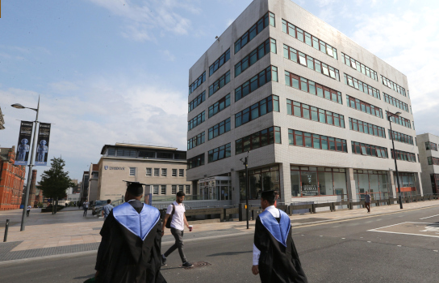
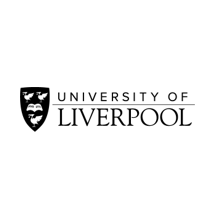
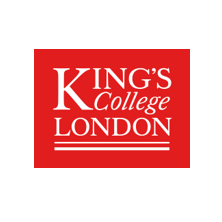
“It gives women a better chance, changing it from a man’s world to anybody’s world.”
Lydia Moore, University of Southampton
The UKESF continues to work to improve the gender balance in the Electronics sector. For the fifth year, the UKESF supported the final-year female Scholars to attend the annual Women’s Engineering Society (WES) Student Conference, with places kindly sponsored again by Enigma, a recruitment company that specialises in the  UK technology sector.
UK technology sector.
Hosted online for the first time, the annual WES Student Conference took place on 20th November 2020 and brought together students, academics and young engineers. The conference supports young women to progress in engineering and allied sectors by providing access to employer perspectives, development opportunities and networking. This year it brought together some 150 students, academics and early-mid career engineers and colleagues from supporting industry to explore pathways to technical leadership.
The theme this year was ‘Shape the World’ and, in these unprecedented times, the event was devised to inspire students with talks, conversations, webinars, panel sessions and online ‘meeting spaces’. The online sessions enabled students to learn and hone useful personal and career development skills at this critical time in the jobs market.
The event programme began with a welcome from Alexandra Knight (Founder & Director, STEMAZING Ltd; Board Member & Trustee, WES) and Elizabeth Donnelly (Chief Executive Officer, WES), and continued with the keynote speech ‘Shape the World’ from Dame Judith Hackitt (Chair, Make UK).
With presentations ranging from ‘Shaping a Sustainable Future’ to ‘Being an Engineer Today: Emerging Engineers Perspective’, attendees were treated to a variety of more personal development sessions including ‘How To Master Your Budgeting’, ‘Online Interviews: Top Tips’, ‘Leadership and Personal Brand’ and ‘Chartership and Professional Registration’. There were also networking and chats hosted by various WES Members.
The UKESF attendees commented on the event:
“During the day I learned several things I wasn’t aware off, and I believe all women should be aware of this.” Ala Bochnacka, University of Southampton
“I believe that conferences like this one are important to show university age students and below the different skills they need to get far in industry, such as the personal statement and interview advice given.” Ellie Jones, University of Bristol
“These events are great for connecting women so that we can share our experiences of studying and working in a very predominantly male field. I found it motivating to hear that women who are now at the top of their field have followed similar paths to me and that one day I could follow in their footsteps. It was comforting to learn that even very successful women in Engineering sometimes experience imposter syndrome and learn techniques to combat this. Additionally, these events provide women student engineers with helpful advice and skills for applying to jobs and internships and emphasise the importance of our applications to create diverse teams of engineers.” Emily Wayland, University of Southampton
“WES gives us a chance to look into different areas of engineering which we may not have thought about beforehand and gives us confidence to give it a go.” Frances Hu, University of Manchester
“It also provides a lot of support, and gives confidence for women to step up and take on roles they may have previously backed away from. By allowing women the chance to network, it gives them connections and links to other women who have experienced the same issues and can help, which supports them in their role. It gives women a better chance, changing it from a man’s world to anybody’s world.” Lydia Moore, University of Southampton

Despite the challenges presented by the pandemic, there was strong competition for the prestigious Scholar of the Year Award. Kindly sponsored by IC Resources, the prize for 2020 was awarded to Emily Wayland, with Airam Perez Guillen coming in a close second. Emily studies at University of Southampton and is sponsored by ARM, whilst Airam is studying at the University of Manchester and is sponsored by EDA Solutions.
For the first time in the 10 years that this award has been running, a special commendation was also awarded to Oana Lazar (University of Southampton and sponsored by UltraSoC, now acquired by Siemens) for her outstanding entry.
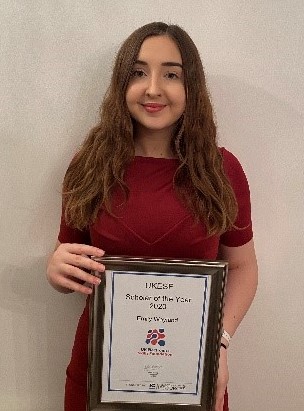
Emily commented about receiving the award, “I feel so honoured to be selected as 2020’s UKESF Scholar of the Year, particularly out of so many other inspiring students that I have met during my time at university and as a scholar. I chose to study electronics, because I was fascinated with technology and I wanted to learn more about how things work. I am so grateful that I have been able to share my passion for electronics with school students and to inspire the next generation of engineers, particularly girls who are interested in STEM.
“As one of the many opportunities provided by the UKESF, I attended the WES Student Conference this year, to learn from inspiring women in the technology industry what I could achieve with hard work. I would also really like to thank my sponsoring company, Arm, who went above and beyond to give me the best summer internship experience possible, in a rather difficult year.
“I feel so proud to be recognised not only for my academic achievements, but also for my contributions to my university community and to the promotion of electronics, both of which have been such an important part of my four years at university. I never expected to win this award, but it has been such a boost to my confidence and will really help to kickstart my professional career!”

Airam said, “Since I was small I saw many things I didn’t understand. I then learnt that everything in engineering has a purpose, and I wanted to be part of the revolution. Engineering has taught me so many skills that are incredibly valuable to make the world a better place, and despite living a year that will go down in history, all the good I can do with my career in engineering has remained the strongest motivation. I will strive to keep learning, sharing and finally contributing my grain of salt to help protect the environment and the World with innovation.”
Dr Paul Wright, Course Director of Electronic Engineering at The University of Manchester said, “Airam is a very able and hard-working student, who also does a lot for our student body. I’m delighted to see these qualities of individual excellence and team contribution being recognised through a UKESF award.”
Airam completed his work placement at EDA Solutions Ltd where Khalid Teama, Technical Support Manager, said, “Since day one of joining EDA Solutions for his sandwich year internship, Airam has demonstrated great enthusiasm, despite being a completely new world of knowledge to him, his sheer will to learn and apply were clear from the start and as he embarked on advanced topics. With his commitment to learn and succeed, and his diligence, hard work and initiative, Airam makes a highly successful engineer and I am delighted for him being runner up in this award.”
Also, the judges decided to give a Special Commendation to another applicant, Oana Lazar, for her outstanding contribution, commenting that this years entries had created a tough decision with the top entries being very closely matched.
Oana commented of her special award, “In the past two years as a Scholar, the UKESF has taught me that becoming an engineer is about much more than knowledge and good grades, setting me on a path to joining a far greater community of people who are, in the most literal of terms, changing the world.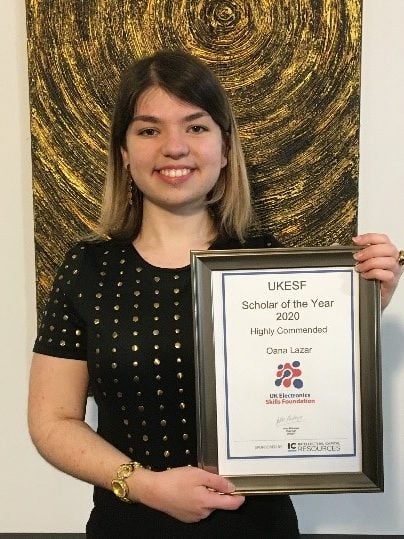
“My summer internship with UltraSoC provided me with a taste of being a ‘real’ engineer, and my 12-month placement is helping me continue on this incredible journey. Moreover, the UKESF has encouraged me to give back to my community, be it through national campaigns with Electronics and Computer Science, or by leading workshops in local schools through ‘Invent Plus’, inspiring schoolchildren to pursue engineering much like I was inspired when I was their age. I am extremely grateful to the UKESF for providing me with the opportunities, connections, and confidence to develop myself as a student, engineer, and a member of the community, and I am truly honoured to receive the judges’ first ever High Commendation for the UKESF’s Scholar of the Year award, in 2020.”
Rod Boyce, Principal Software Engineer at UltraSoC, also commented, “Oana proved herself to be an invaluable and productive member of the development team. She has also proven herself to be a diligent and excellent code reviewer. She is self-motivated, proven that she can work with minimal supervision, and demonstrates an indefatigable thirst for knowledge.”
“Many congratulations to Emily and Oana on their successes, which are very well deserved. I’m also delighted that this continues a long list of successes for Southampton in the Award’s history, with one of our students being named Scholar of the Year in 7 out of the 10 years that it has been running!”
Professor Geoff Merrett, Head of Centre for IoT and Pervasive Systems, Electronics and Computer Science, University of Southampton
Congratulations Emily, Airam and Oana!
“With Dialog’s generous support, we are encouraging the country’s brightest female engineering prospects to choose Electronics for their university studies.”
Stew Edmondson, UKESF CEO
The Dialog Award for Female Undergraduates is a collaboration between Dialog Semiconductor and the UKESF. It supports a number of female undergraduates who are commencing the first year of their studies on Electronics-related degree courses at leading UK universities.
Each year two female recipients of this award are supported with a bursary, a paid summer work placement at Dialog, and a student membership of Women’s Engineering Society (WES) for the duration of their degree.
2021’s recipients of the Dialog Award for Female Undergraduates are Lubabah Hossain and Emma Onah. Lubabah is studying General Engineering at Durham University, and Emma is studying Engineering at the University of Cambridge.
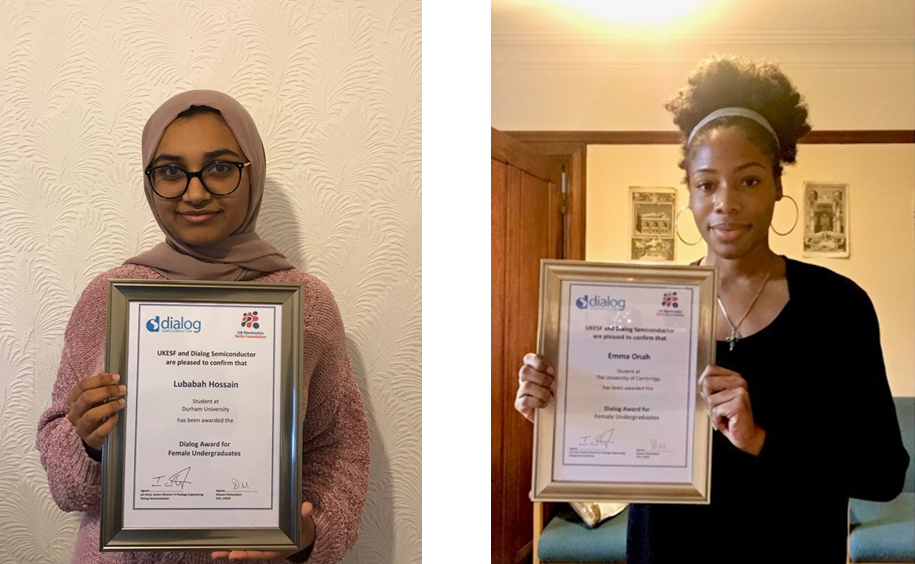
Lubabah said, “What I like about electronics is that it is integrated into almost every part of our modern-day lives; developments and progression we can make for society, using this field of study, are practically limitless. My goal with this degree is to be able to fruition any ideas that come to mind and execute them, be it by writing some code or producing a physical product.
“Wanting to go into a profession that is very male-dominated as well as studying at a competitive university, it is very easy to develop feelings of imposter syndrome. This award, however, has instilled me with a lot of confidence in myself, which I imagine will only be further reinforced when doing my placement over the summer with Dialog Semiconductor. The placement will also allow me to gain further clarity on what sort of field and position I would like to work at upon graduating, which to me feels like a vital insight.”
Emma added, “My name is Emma Onah, and I am a first year undergraduate at the University of Cambridge, studying Engineering. I am also the owner and editor of my own tech blog, www.craetif.blogspot.com. This award means so much to me, especially as it will underpin my career as an electronic engineer, and provide me with deeper insight into this field. In a career where female representation is scarce, it feels so good to be recognised. I cannot wait to start my internship at Dialog Semiconductor this summer, and I am extremely grateful to be in receipt of this award.”
Both students will complete a work placement at Dialog Semiconductor this summer. Congratulations Lubabah and Emma!
The 2020 recipients of this award, Carol Kwok and Husna Fathiah Zulkarnain, have been unable to complete their placements at Dialog due to the Coronavirus pandemic, but will do so this summer. However, both girls have continued their first year studies at Imperial College, London.
“It was an honour to be awarded this award and offered a summer placement in Dialog Electronics. Although due to the pandemic, placement was not being able to happen this year, I am looking forward to the experience that I will gain in it.
“Studying in electronic engineering is always my passion, and my study at Imperial College strengthens and enhances my knowledge in this subject, varying from circuits filter to Verilog coding.
“It has also been a stereotype that male is taking up the majority in the engineering field. And this award allows me to build a stronger identity as a female engineer, and raise awareness of the power of the female in engineering. I would like to continue to pursue my interest in electronic engineering, especially in computer architecture.”
Carol Kwok, Imperial College, Dialog Award recipient 2020
“I am beyond honoured to be awarded the highly-coveted Dialog Award for Female Undergraduate 2019. Coming from a country where women rarely pursue engineering due to stereotypes, there are times where I am scared opportunities will be dismissed from me. This award gives me an assurance that there is always space in the industry for anybody of any background to pursue their dreams. Since I received the award, I have been pursuing my studies in Imperial College London and I am grateful that I was given a chance to study Electrical and Electronic Engineering there and meet so many talented people. There are days that are harder than the others undeniably, however the prospect of understanding the subject is more than enough to fuel my passion. The fluidity and expansion of electronics innovation mesmerized me as it proves that humans’ intelligence increases with more challenges. For instance, troubleshooting seems like a small word, however I feel content when I manage to solve a problem by investigating the source of the disturbance. This kind of knowledge is not only essential for electronics, it certainly relates to our life. I believe that electronics engineering correlates to our real-life ethics and that is how I grow my love for it.
“Due to the ongoing pandemic, I have deferred my internship to summer of 2021 and I really look forward to interning with Dialog Semiconductor and applying my skills in a thriving electronics company. I believe that the road to mastering electronics will be long and tedious, especially as it is currently a male-dominated industry, but when something is important enough, we will strive to do it – even if the odds are not in our favour. I hope that I can be a source of inspiration for any undergraduates in the technological field to study electronics passionately. I have four sisters that are personally looking up to me, and with millions of girls globally, certainly the importance of doing the best that I can is paramount”.
Husna Fathiah Zulkarnain, Imperial College, Dialog Award recipient 2020
Applications for the award will open at the beginning of June 2021– click HERE for full details, including eligibility and how to apply.

“I thoroughly enjoyed designing and working on my project so the opportunity to be recognised for the success I achieved is especially rewarding.”
Richard Carter, runner-up
The UKESF are delighted to announce the results of the 2020 Embedded Systems Competition. Unfortunately, we were unable to hold an event to present the awards, but are hoping to hold a virtual event later this year.
With considerably more entries than in 2019, the judges announced Jack Sampford as the winner, and Richard Carter as the runner-up. Jack, who studies at Loughborough University received £1,000, and Richard Carter, studying at University of Southampton, received £500.
UltraSoC, now part of Mentor, a Siemens business, sponsors the UKESF in running the competition, which aims to raise awareness about and interest in embedded systems among undergraduates studying Electronics. The competition highlights excellence in students completing their major individual project on embedded systems and enables understanding of how to architect and implement future complex embedded systems in the UK.
The national competition was open to engineering undergraduates studying at one of the UKESF’s 24 partner universities who were completing their major individual project with a principal focus on embedded systems. Entrants were required to submit to a summary of their project on an A1 printable poster, including the aim, results, impact and next steps.
Jack’s entry was titled ‘Exploration of Embedded Cryptography for NoC-Based Multi-Core Architectures’ and he said, “Winning this award represents a wonderful end to a challenging year, and will be an asset in my ongoing career working with embedded electronic systems.”
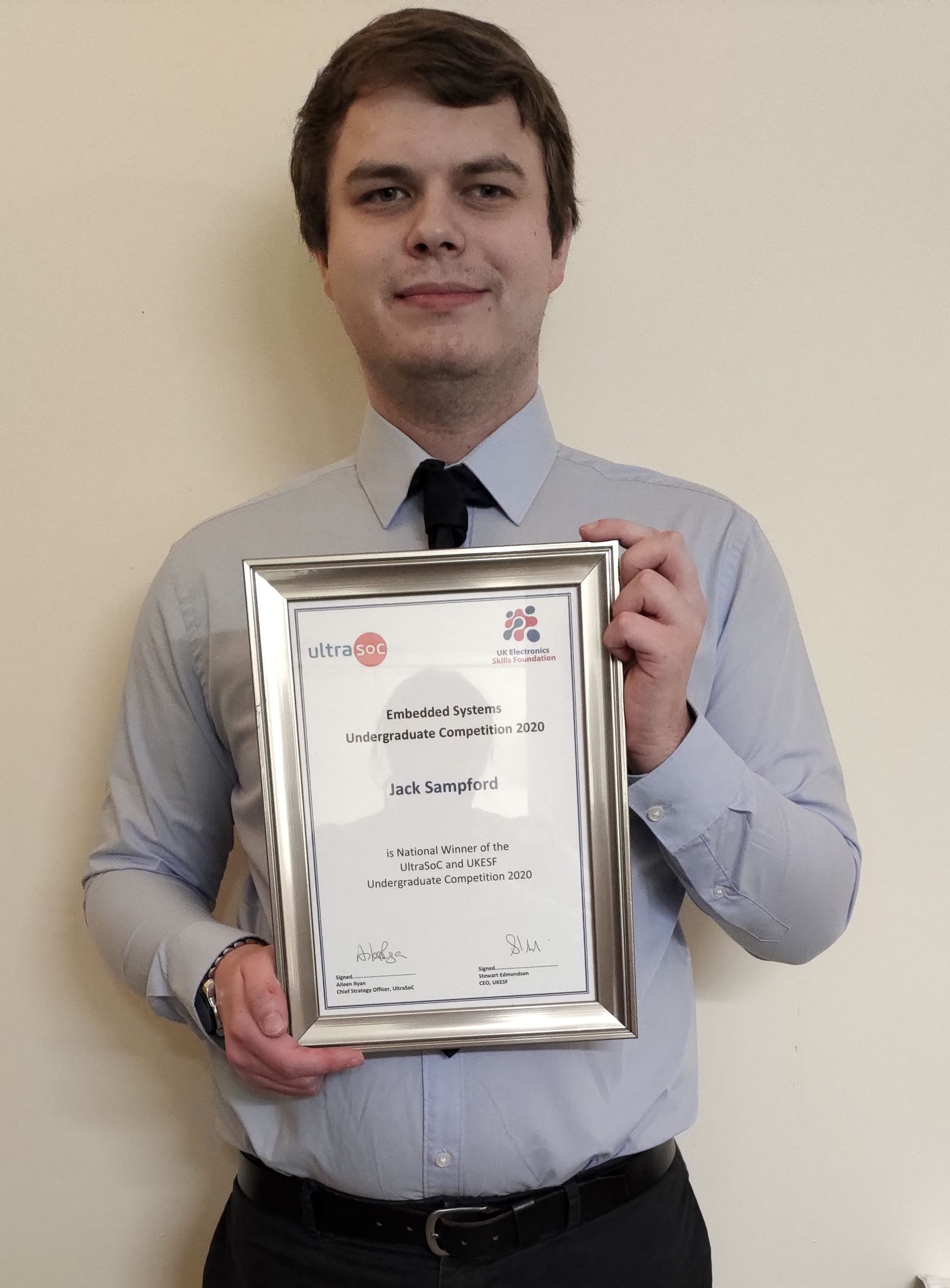
Dr Chinthana Panagamuwa MEng, PhD, FHEA, Lecturer in Photonic Systems and Director of Undergraduate Studies for Electronics based Programmes, commented “That is fantastic news!”, as Jack is the first winner of a UKESF Competition from Loughborough University.
Richard Carter, who is a UKESF Scholar, was placed as the runner-up with his entry ‘Development of Bicycle Wheel Mounted Persistence of Vision (PoV) Display’. Richard said “I am delighted to be selected as the national runner-up of the 2020 UKESF Embedded Systems Competition. I thoroughly enjoyed designing and working on my project so the opportunity to be recognised for the success I achieved is especially rewarding. As with many embedded systems, there are many things from my project that I would like to improve on, and I have already started working on the next iteration of my PoV Bike Wheel Display. My thanks go to UltraSoC and UKESF for sponsoring, organising, and judging the competition.”
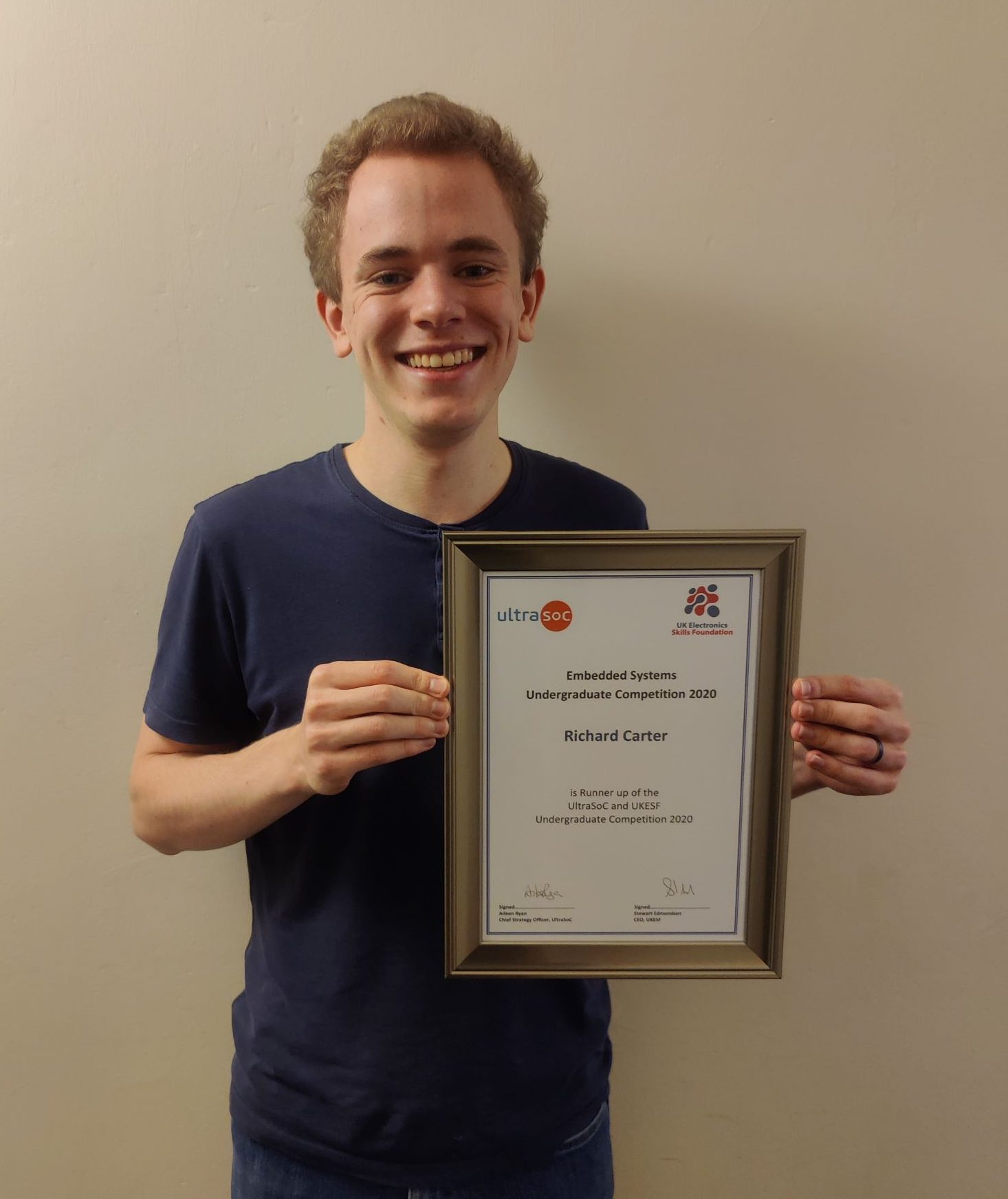
“Many congratulations to Richard, it’s great to see Southampton students being successful in the UKESF Competitions yet again. This is a testament to the excellent quality of our students, and particularly in the domain of embedded systems.”
Prof Geoff Merrett, Head of Centre for IoT and Pervasive Systems, Electronics and Computer Science, University of Southampton
“As a leading provider of embedded analytics, we were incredibly impressed with the standard of entrants in the Embedded Systems Competition and we are delighted to have been involved. I’d personally like to congratulate both Jack and Richard, the worthy winners of this award, and to thank Stewart and the team at the UKESF for organising. The standards of the student projects confirm our belief that companies like ourselves benefit significantly from building closer ties with academia and why our University Program is an important and on-going initiative for UltraSoC.”
Aileen Ryan, Chief Strategy Officer, UltraSoC
Despite all the disruption caused by the pandemic, we were able to run the 2020 RF Engineering & Communications Competition, and we were delighted to receive many more entries than we anticipated.
This annual competition, run in partnership with the Radio Communications Foundation (RCF) and with support from Leonardo, highlights the work of students at UKESF partner universities who are focusing on RF engineering and communications in their final year. Entrants are required to submit a poster summarising their major individual project.
The first place prize of £1,000 was awarded to Matthew Bridges for his outstanding project: ‘8×8 MIMO Antenna Design for 5G Sub 6GHz Smartphone Applications’; a unanimous decision by the judges. Matthew is a UKESF Scholar who studies at the University of Surrey and is sponsored by SEA.
Matt said, “I was extremely excited to win the RF Engineering & Communications Competition and very thankful to the organisers and judges of this event!
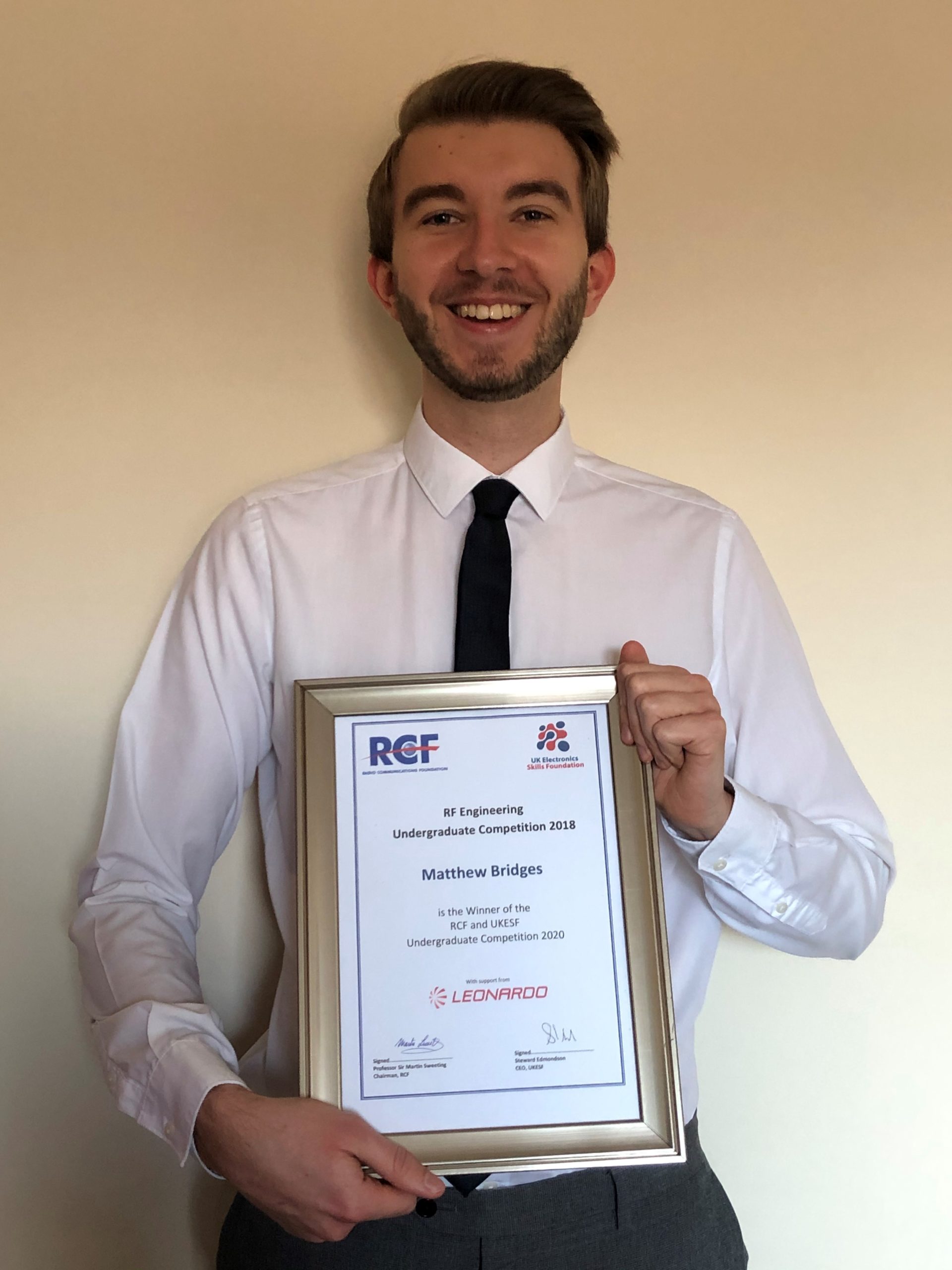
“When I first spoke to my supervisor about this project, I would never have imagined the opportunities that would come from it. Getting the chance to learn about new innovative technologies that are shaping the future of 5G communications was exactly why I chose to do electronic engineering at the University of Surrey. Taking this project from the requirements all the way to validating the prototyped measured results against those obtained in simulation and modelling made it the highlight of my degree.
“As a UKESF scholar, I have seen the help and support that UKESF provides to electronic engineers in their degree. This competition is another example of what this Foundation offers and for that, I am enormously grateful. Receiving these opportunities and the scholarship during my degree only furthers my enthusiasm to pursue a career in this field which I know I will find both really interesting and rewarding. I would also like to thank my supervisors for the support they gave me and my head of department for the encouragement to enter this competition.”
Dr David Carey, Head of Department at Surrey, commented: “Surrey is the leading university for 5G and next generation communication systems and the Department has always prided itself on being able to expose our students to cutting edge research topics as part of their degree.”
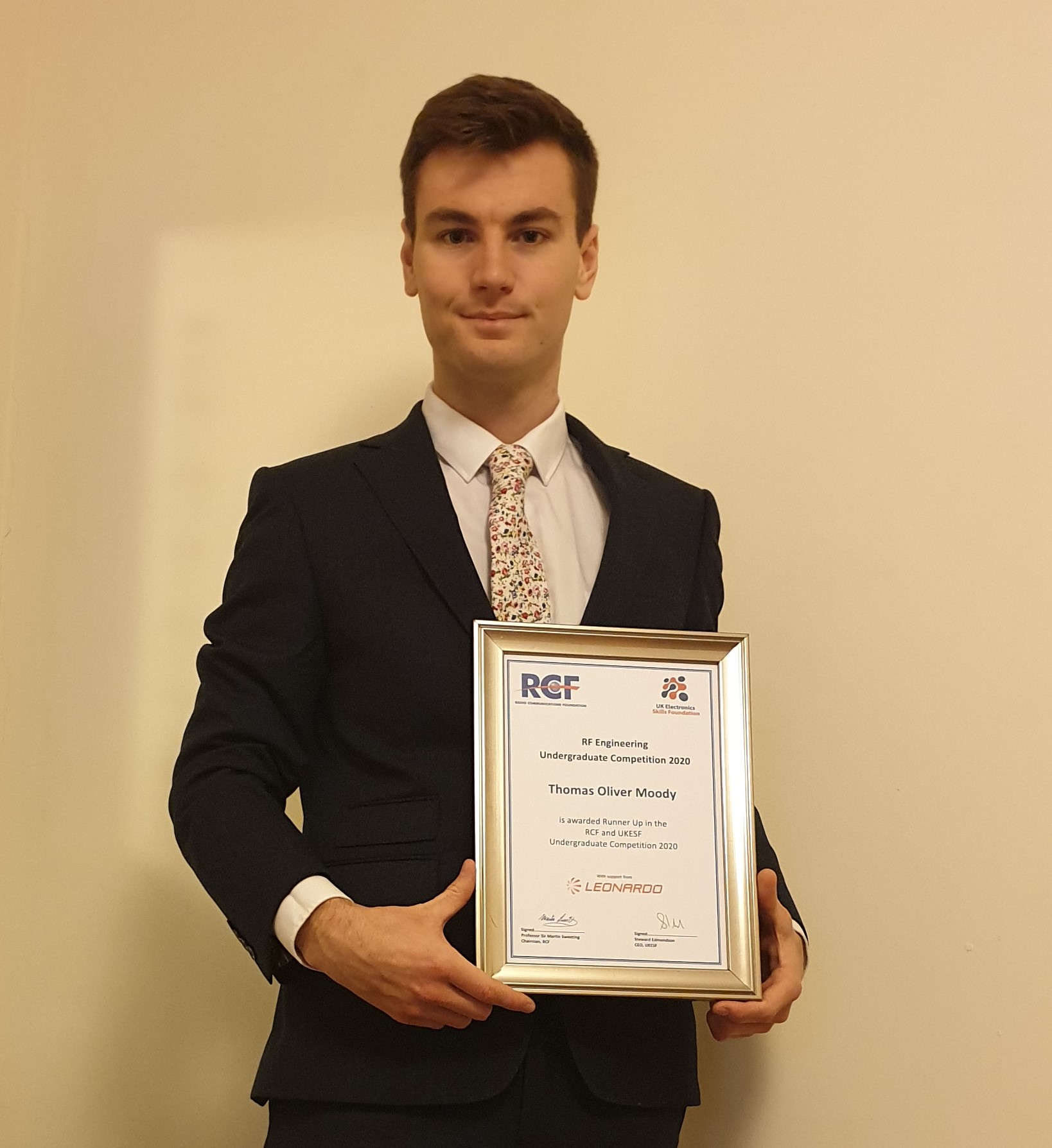
The two runners-up each received £500: Tom Moody from University of Southampton, another UKESF Scholar who is sponsored by Meggitt, entered his project ‘Frequency Reconfigurable Patch Antennas’.
Tom said, “I love working and studying in the field of RF and I am thrilled my work has been recognised by the UKESF and RCF.”
Jessica Abbey Kelly, studying at Loughborough University, entered her project on ‘The design and analysis of low pass stepped impedance filters with multi-material and 3D substrates’.
Jessica said, “I am grateful for the recognition of my hard work and the support of my supervisor and his team that has resulted in expanding the possibilities for use of additive manufacturing in RF devices. I found the process of submitting my work straightforward, an extension of the university project requirements. It is affirming to know that despite many events and awards being cancelled this year, this competition ran in a similar format to previous years, with more partner universities being brought on board.
“In RF engineering I have found that there are few female role models, this award increases the visibility of women across engineering, who are equally able to achieve in this field as men.”
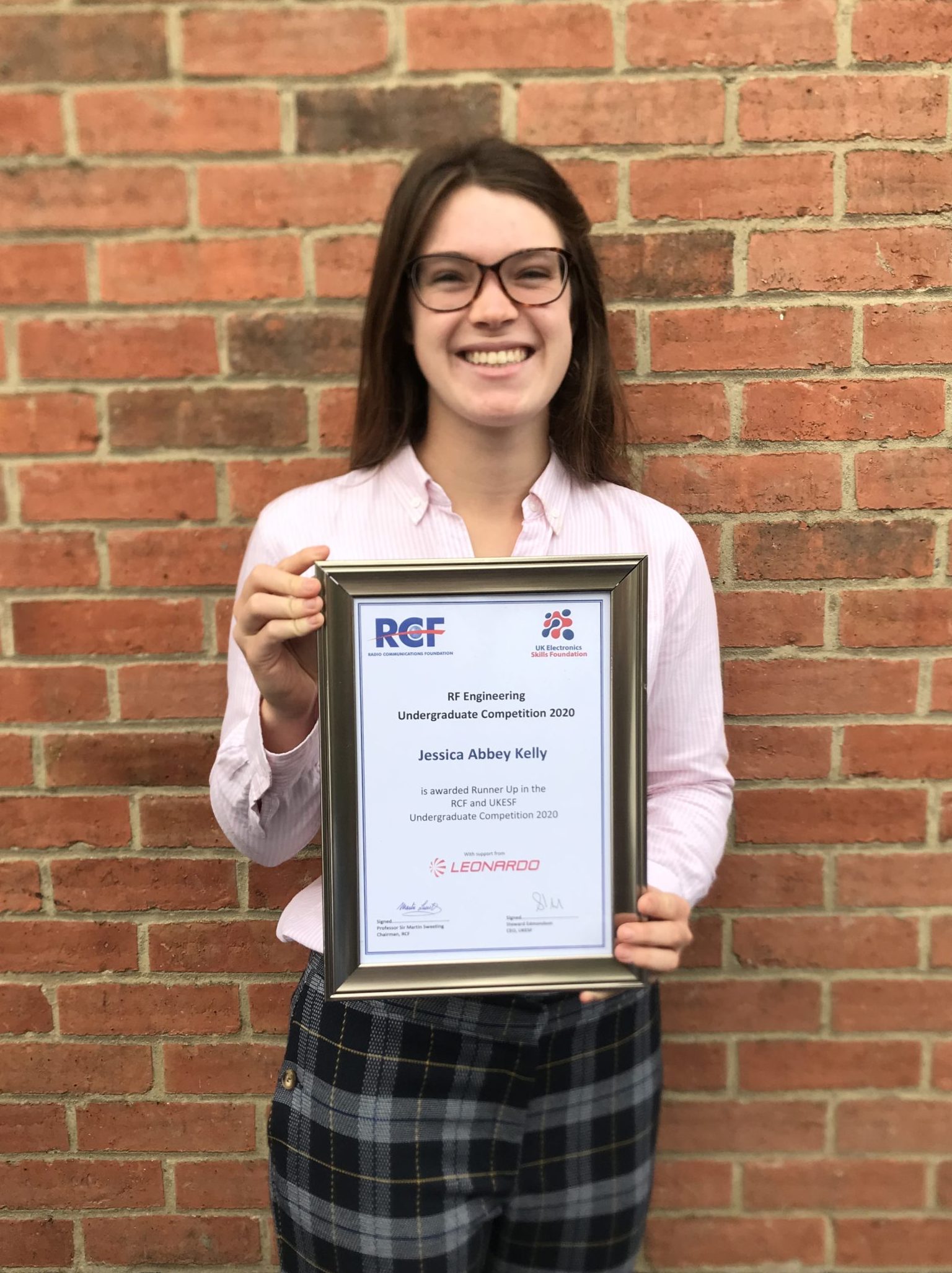
Jessica’s Project Supervisor, Will Whittow, Professor of Radiofrequency Materials at Loughborough University said, “Jess worked exceptionally hard all year. She integrated some complex RF concepts with excellent fabrication/measurement skills. To achieve as much as she did in a year when COVID closed the labs is very impressive. She basically completed her project two months early. We will try to submit her work as a conference paper in due course. She thoroughly deserves her award.”
UKESF CEO Stew Edmondson commented, “We were delighted to receive so many entries into this competition in such a disrupted year for studies. The standard of the entries seems to be improving year on year. Congratulations to our three finalists, I look forward to seeing them all go on to achieve great things in the future.”
Many thanks to our judging panel: Trevor Gill of RCF, Dr Merv Haynes of Leonardo and Dr James Hopgood from University of Edinburgh.
We are still hoping to hold a virtual prize giving ceremony in the New Year.
“I hope to learn vital tools that will help me in achieving my career goals, to become a leader like those I’ve met, and to increase my self-confidence. I can’t wait to start!”
Lydia Moore
2020’s winner of the Skills 4 Scholar’s Award is Lydia Moore (UKESF Scholar 2016–present), who is studying for a MEng in Electrical and Electronic Engineering at the University of Southampton and is sponsored by AWE.
Lydia will receive a place on Skills 4’s award-winning EMPOWER: Career Development Programme. The programme is designed to help women further their careers and has already encouraged over 8,000 women to advance professionally during the eight years since its inception. It reports that 97% of participants have a more proactive approach to career progression upon completion of the sessions, and 88% have higher levels of self-confidence.
Lydia said, “I feel extremely honoured to have won this award. Throughout the 20-months experience I’ve accumulated with my sponsoring company through UKESF, I’ve met and worked alongside so many inspirational, female leaders in both STEM and the wider industry. They’ve all pushed me to be the best that I can be, showing me what I can accomplish during my career. For example, I would never have thought I could achieve professional registration at 20 if it were not for my first Task Manager – who herself had achieved it – and helped me believe I could too.
“Therefore, this Skills 4 award and subsequent developmental course will be invaluable. I hope to learn vital tools that will help me in achieving my career goals, to become a leader like those I’ve met, and to increase my self-confidence. I can’t wait to start!”
The Skills 4 Scholar’s Award takes into account academic performance, placement feedback and STEM-awareness contribution. Congratulations Lydia!
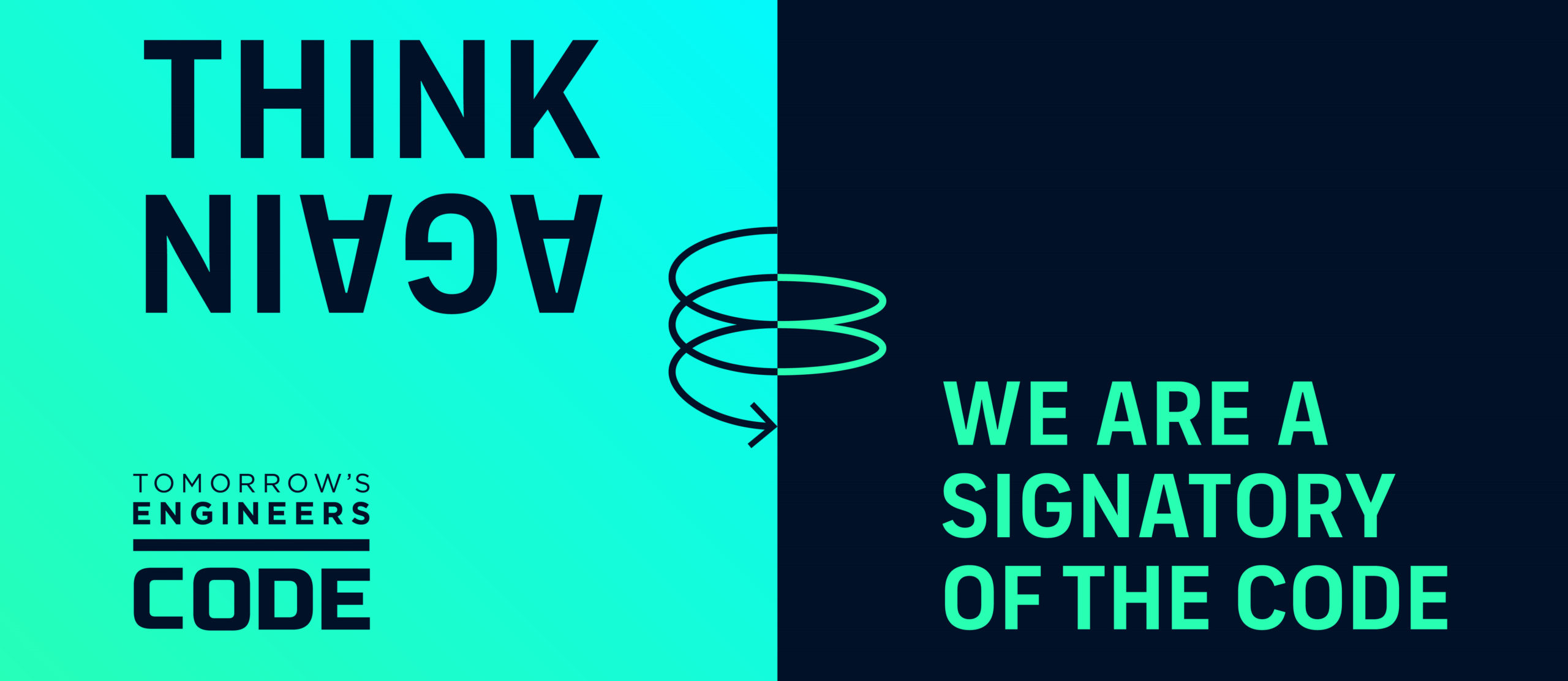
Launched in October 2020, the Code is a commitment to work toward common goals to increase the diversity and number of young people entering engineering careers. To achieve these goals, signatories, including the UKESF, have made pledges about their approach to funding, designing, delivering, and learning from engineering-inspiration activities, including STEM programmes dedicated to inspiring young people into engineering.
Engineering is a varied, stimulating and valuable career and we need to work harder than ever to ensure that it is accessible for this generation of young people – for their own life chances and so that we have a diverse and insightful workforce that enables the UK to thrive.
Being collaborative is one of the core values of the UKESF; therefore, we understand that a more joined-up approach and working collectively will be beneficial to help young people understand what engineering is, how to get into it, and be motivated and able to access the educational and training opportunities on the way.
To find out more, visit the Tomorrow’s Engineers website and follow on Facebook and Twitter.
This year, despite the COVID-19 pandemic, it is really heartening to see even more companies joining our Scholarship Scheme. This growth shows the tremendous strength and resilience of the Electronics sector in the UK. It also reflects the ongoing challenge for employers to tackle their graduate level skills gaps. Our Scheme helps employers connect with students from the UKESF’s 24 partner universities.
The UKESF welcomed a further seven new Company Partners to the scheme: Caterpillar, Clas-SiC, CSA Catapult, Jaltek, Seagate, SingMai, and Ultraleap.
“Caterpillar is the world’s leading manufacturer of construction and mining equipment, diesel and natural gas engines, industrial gas turbines and diesel-electric locomotives. Operating from 50 countries around the globe, the Caterpillar brand has developed into a symbol of strength, respect, and integrity. The organisation has a clear vision to be the global leader in providing customer value in the markets in which it operates.”
“Clas-SiC Wafer Fab is the world’s first dedicated open Foundry to manufacture Silicon Carbide power semi-conductors. We operate from our custom built and fully fitted out Class 100 clean room facility, with State of the art 150mm semiconductor manufacturing equipment. Silicon Carbide (SiC) wafer and compound semiconductor technology is fast emerging as the key enabler in smaller, lighter and more energy efficient power systems of the future.”
“CSA Catapult was established to help the UK become a global leader in compound semiconductors through collaboration with both large companies, and start-ups to develop and commercialise new applications utilising this technology.”
“Jaltek Systems, based in Luton, Bedfordshire, is a leading AS9100 and ISO 13485 accredited UK contract electronics manufacturer with over 30 years’ experience. We offer a comprehensive range of integrated design and manufacturing services adapted to meet our customer’s varied requirements.”
“From the videos, music and documents that we share with friends and family on social networks, to servers that form the backbone of enterprise data centres and cloud-based computing, to desktop and notebook computers that fuel our personal productivity, Seagate products help more people to store, share and protect their valuable digital content.”
“SingMai design and manufacture products for video processing markets. We design everything ourselves, so if we want a tiny microprocessor we design our own one. We sell IP (intellectual property) cores to customers who are maybe designing cameras for high end car manufacturers (parking assist etc) or security cameras, or we sell video processors for subsea or pipeline inspection or to drone manufacturers.”
“Ultraleap have brought together the world’s most powerful 3D hand tracking with the only mid-air haptics technology to change the way humans and machines interact, solving some of the most challenging and practical problems on the way.”
The UKESF Scholarship Scheme provides the most dedicated Electronics undergraduates from UKESF Partner Universities with an annual bursary and paid summer work placement, in addition to a range of other benefits. Each company will interview a number of relevant applicants and go on to provide sponsorship and professional support to one one or more successful scholars. Employers interested in joining the scheme can find out more here.
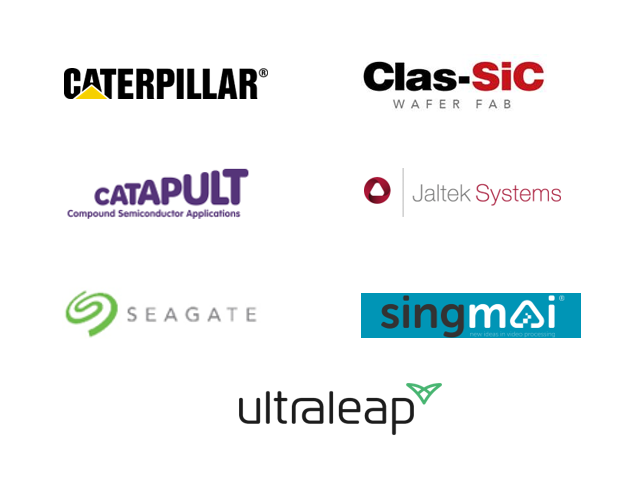
The biggest impact this project had on me was the introduction to deep learning.
Yanislav Donchev
Last year, with the support of our friends at UltraSoC, we launched a competition to showcase excellence, which can be entered by Electronics students completing a major individual project on embedded systems. The inaugural winner was Yani Donchev from the University of Southampton. His ‘drumless’ drumming concept was based upon embedded MEMS motion sensors interfaced with a microcontroller that connected via Bluetooth to play through a smartphone. We were so impressed with his project that we asked Yani to tell us more about it.
If you told a non-engineering person about a normal-looking drumstick that connects to your phone via Bluetooth and allows you to play the drums in the air, their jaw would drop to the floor. At least that is the reaction I received when I showed my engineering dissertation project to friends and family. The engineer’s mind-set not only gives one the ability to understand how things work, but it also gives the power to build the things one imagines. In this short post, I will briefly introduce the air-drumming project I worked on during the third year of my Electrical and Electronic Engineering degree – an idea that lived in my imagination before my engineering knowledge turned it into reality.
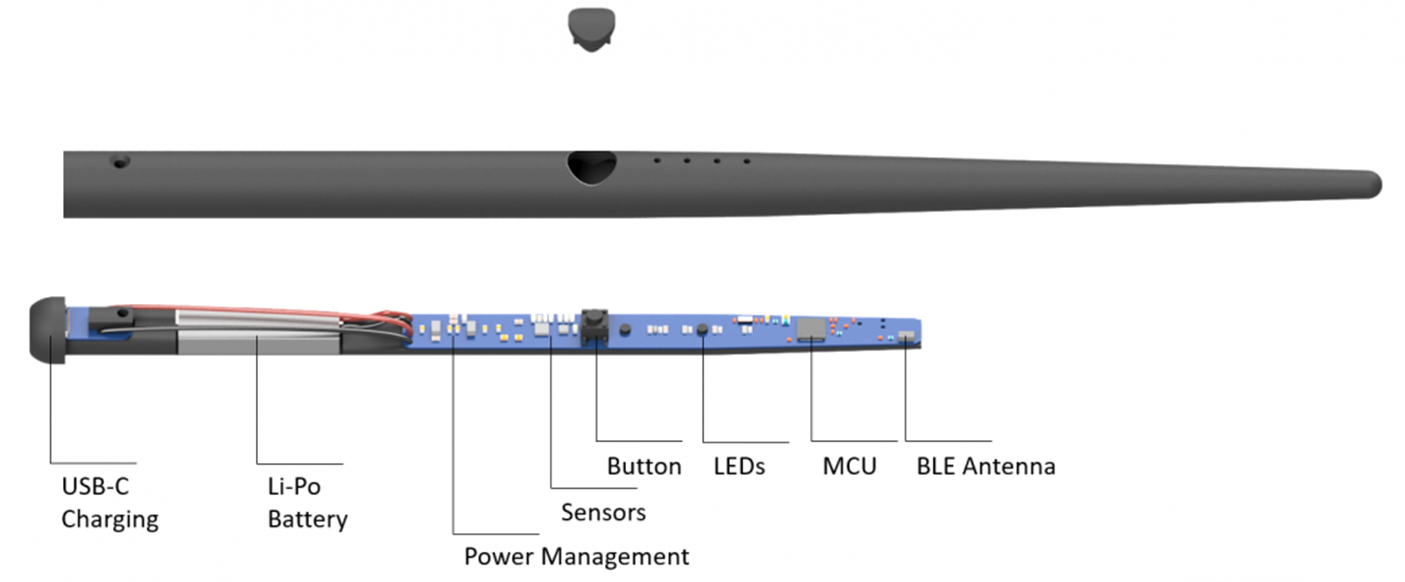
First, what does the product of the project do? I could write a paragraph explaining it, but I think that a short video demonstration will do a much better job.
The concept behind my air-drumming project is extremely simple: find large, sharp peaks in the acceleration of a drumstick – these correspond to “drum strikes” – and send a wireless triggering signal to a phone to play the sound. This is visualised below:

Of course, there are two other problems to be solved – detecting which drum has been struck and how hard it was struck. I will briefly hint that for these, the velocity of the drumstick before the strike and its orientation during the strike are used. A more detailed description for the curious readers is available in my dissertation. Once the problem of air-drumming was broken down to three well defined and simple to solve problems, the rest of the work included the use of CAD software, programming, and countless design iterations based on the close work with a professor from the music department from my university.
Thinking of a concept is easy, turning it into a product is hard but fun. I thought of the concept for the air-drums during my first year at university, but it wasn’t until my third year that I had the knowledge and skills to create the product in the video. During this process I learned a ton about user experience, time management, budgeting, supply chain and manufacturing – invaluable knowledge that will find great use in my career. I am glad that I chose to study engineering and look forward to innovating and shaping the future.
For more information about the Embedded Systems Competition, please click here.
This year, we saw more than 2,000 additional girls taking Physics than in 2010; this is a 25% increase over the last decade.
Stew Edmondson, CEO, UKESF
Those of a certain age, like me, will remember a catchy song by Ian Dury and the Blockheads called “Reasons to be Cheerful, Pt.3”. In the song, the lyrics include a quirky list of Ian’s reasons to be cheerful. Despite the current cloud of gloominess surrounding us all, I believe there are still some reasons to be cheerful.
First, despite the pandemic, I was really heartened by the number of entries for our three undergraduate competitions this year. This shows that Electronics students continue to be engaged and motived. The competitions cover automotive electronics, RF engineering and embedded systems. The judges were impressed by the quality and standard of the entries this year. You can read more about the two female students who won the automotive electronics competition here.
Second, we know that more and more young people are interested in Engineering. For example, the engaging and innovative videos from the ‘This Is Engineering’ campaign led by the Royal Academy of Engineering have already been watched over 38 million times, with 90% of the video views by young people aged 13-17. It is particularly pleasing to note that 50% of the audience have been female. The article that I recently I co-wrote with our UKESF Trustee, Prof Bashir Al-Hasimi CBE from Kings’ College, London picks up on this data and in it we set out an argument for engineering to be considered as a ‘caring’ profession.
Third, this summer’s A-Levels. Although this was a most unusual year for students, with exams cancelled and results based on teacher assigned grades, aswell as a standardization model developed by OfQual, it was clear that the number of students choosing A-levels in STEM-related subjects continues to increase. Maths remained the most popular subject for students and this year the number of entries increased to over 94,000. The core STEM subjects of Biology, Chemistry and Physics remain amongst the most studied subjects. Collectively, these three subjects accounted for just over 20% of the total A-level entries this year. When including Maths, these four subjects make up nearly a third of all A-level grades awarded.
This year, Computing is again the subject with the largest growth, with an almost 12% increase to over 12,000 entries. Importantly, both Computing and Physics have continued to make progress in growing the number of female students. This year, we saw more than 2,000 additional girls taking Physics than in 2010; this is a 25% increase over the last decade, and the number of girls studying Computing has more than doubled in the last five years.
These are undoubtedly small but important signs as we encourage more young people towards Electronics and work to improve the gender balance in the sector. Therefore, from our perspective, there are some glimmers of positivity and reasons to be less gloomy, if not fully cheerful.
“I am humbled to be amongst the list of previous worthy award winners.”
Prof Bashir Al-Hashimi CBE FREng
Professor Bashir Al-Hashimi, UKESF Trustee and Executive Dean of the Faculty of Natural & Mathematical Sciences, has been awarded the prestigious Faraday Medal by the Institute of Engineering and Technology (IET).

Founded in 1922, and named after Michael Faraday, this international award is given for notable scientific/industrial achievement, for services rendered to the advancement of engineering/technology or for lifetime achievement in science, engineering or technology. Professor Al-Hashimi was chosen to receive the medal in recognition for seminal contributions to semiconductor manufacturing test of system-on-chip, pioneering new test data compression and low power methods.
Commenting on the award, Professor Al-Hashimi said: “The IET Faraday Medal is one of the most prestigious awards worldwide to recognise contributions to engineering and science and I am humbled to be amongst the list of previous worthy award winners.”
In2scienceUK promotes social mobility and diversity in science, technology, engineering and maths.
Rebecca McKelvey, CEO, In2scienceUK
The UKESF is delighted to announce a collaboration with In2scienceUK.

In2ScienceUK is a charity that supports young people from under-represented backgrounds to gain the essential experience, skills and confidence they need to reach their potential and progress to science and engineering degrees and careers. The young people that take part in the In2scienceUK programme are from low income families who are recipients of free school meals, and those from ethnic minority backgrounds.
As part of their programme, young people (Year 12) engage in employer-led professional skills development workshops, undertake real research with STEM professionals and benefit from supportive role models. In2scienceUK is having a dramatic impact on the lives of young people. 83% of young people on the programme progress to higher education and 56% onto top tier universities. This can be compared to just 11% of young people on free school meals advancing to top tier universities.
This year, despite the COVID-19 pandemic, their programme was a huge success, with nearly 600 young people being supported, 62% of which were female, 66% recipients of free school meals and 77% from black and ethnic minority backgrounds (BAME). These young people are progressing onto degrees and careers in engineering and technology.
Now, here is the rub. None of the companies that In2scienceUK currently collaborate with as hosts for work experience are from the Electronics sector. This means that we are missing a massive opportunity to do something to inspire the next generation. Therefore, if your company is based in cities where In2scienceUK operate (Birmingham, Bristol, Cambridge, Canterbury, Exeter, Lancaster, London, Oxford, Reading and Welwyn Garden City) then please consider hosting work placements next summer for Year 12 students with In2scienceUK. You can find more details here.
We know that degrees and careers in Electronics hold great potential for young people from disadvantaged backgrounds, enabling them to progress to meaningful and well paid jobs, and economic stability. Together we can be part of something greater and inspire young people to achieve their potential and, at the same time, contribute to real change, improving diversity and promoting inclusion in our sector.
To support In2scienceUK or to host your own employer-led scholars programme, please email Luke Mckelvey (Development Officer at In2scienceUK) at [email protected].
The UKESF is pleased to announce the finalists of the 2020 Automotive Electronics Competition, run in partnership with AESIN and with generous support from UltraSoC (now acquired by Siemens): winner Suzanne Candanedo (Warwick) and runner-up Oana Lazar (Southampton).
Entrants from partner universities were asked to turn their thoughts to the future of cyber security for connected and autonomous vehicles and to write a short ‘think piece’. UKESF CEO Stew Edmondson said, “This is the second year that we have run this competition. I am very grateful for UltraSoC’s sponsorship and support. We received more entries this time, which is really heartening given all the disruption caused by the COVID-19 pandemic. The winners produced thoroughly readable and thought provoking pieces; well done!”
 Winner Suzanne Candanedo, University of Warwick, received £1,000. She said, “My parents have always instilled in me to show curiosity and question things; and this blog was a good outlet. It was fun sharing my thoughts and reflections on the future of cybersecurity in autonomous vehicles. Hopefully, those who read it found themselves reflecting on something new too! This award was a fantastic way to end my undergraduate career and culmination of my aggregated experiences. So I would like to finish by thanking my professors, coursemates, friends, and family.”
Winner Suzanne Candanedo, University of Warwick, received £1,000. She said, “My parents have always instilled in me to show curiosity and question things; and this blog was a good outlet. It was fun sharing my thoughts and reflections on the future of cybersecurity in autonomous vehicles. Hopefully, those who read it found themselves reflecting on something new too! This award was a fantastic way to end my undergraduate career and culmination of my aggregated experiences. So I would like to finish by thanking my professors, coursemates, friends, and family.”
Read Suzanne’s entry here.
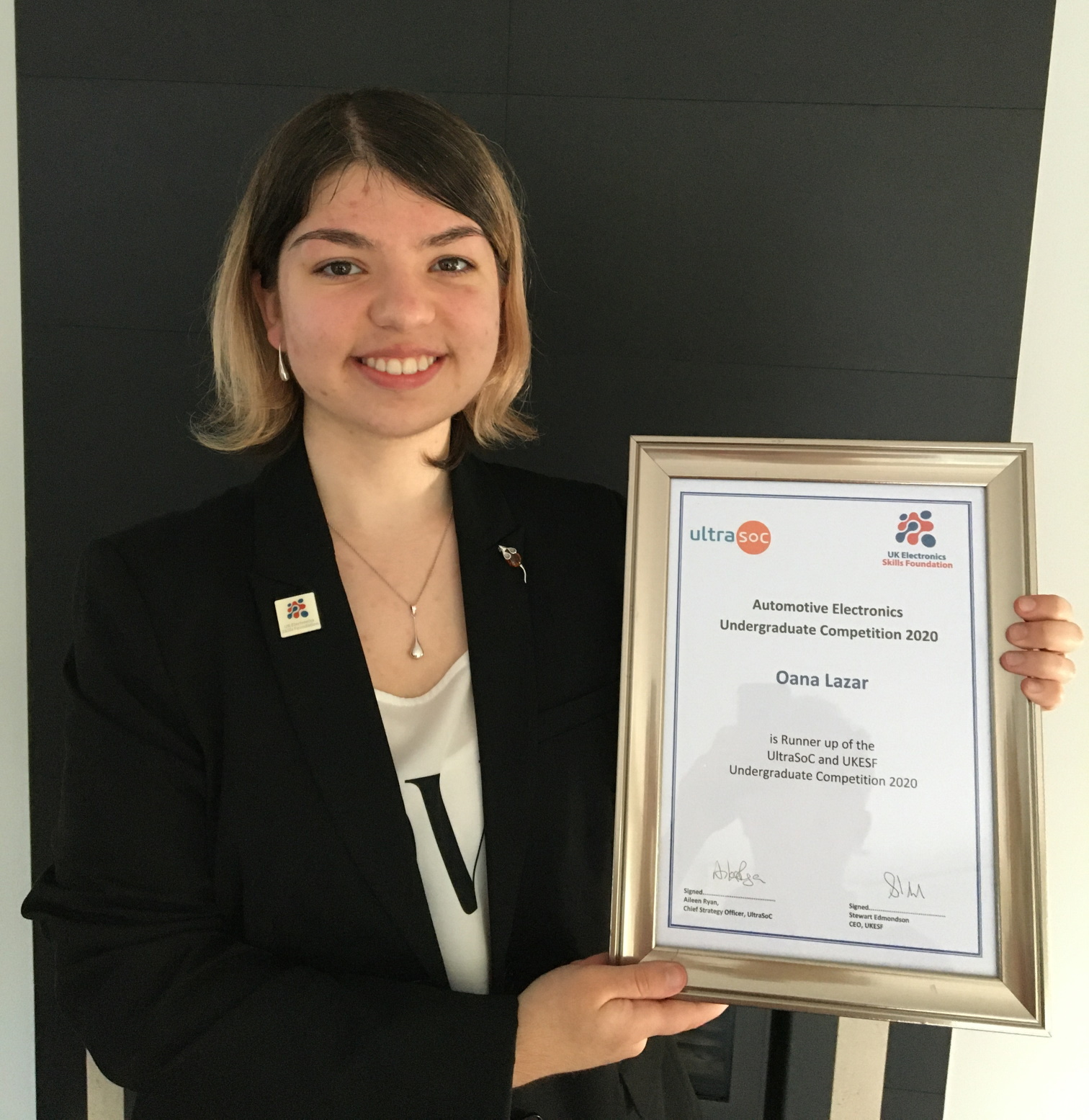 Runner-up Oana Lazar (UKESF Scholar, sponsored by UltraSoC), University of Southampton, received £500. She said, “Automotive electronics has grown from a futuristic concept to a key field of engineering in just a few short years, and the UKESF Automotive Electronics Competition has inspired me to follow this exciting development! Through lectures by the IET, webinars by the IEEE, and projects such as UltraSoC’s Secure-CAV, I have been learning how this novel industry is changing almost all aspects of engineering, and especially software safety through standards such as MISRA. It is an incredible honour to have been able to take a small part in this revolution by being selected as this competition’s finalist, so I would like to give my warmest thanks to the UKESF, AESIN, and UltraSoC for offering me this amazing opportunity, and to Professor Geoff Merrett for encouraging me to apply. Finally, I want to thank my late boyfriend Dan Colmer for introducing me to the world of cars and sharing his incredible enthusiasm with me, I hope he would have been proud of how far I have come.”
Runner-up Oana Lazar (UKESF Scholar, sponsored by UltraSoC), University of Southampton, received £500. She said, “Automotive electronics has grown from a futuristic concept to a key field of engineering in just a few short years, and the UKESF Automotive Electronics Competition has inspired me to follow this exciting development! Through lectures by the IET, webinars by the IEEE, and projects such as UltraSoC’s Secure-CAV, I have been learning how this novel industry is changing almost all aspects of engineering, and especially software safety through standards such as MISRA. It is an incredible honour to have been able to take a small part in this revolution by being selected as this competition’s finalist, so I would like to give my warmest thanks to the UKESF, AESIN, and UltraSoC for offering me this amazing opportunity, and to Professor Geoff Merrett for encouraging me to apply. Finally, I want to thank my late boyfriend Dan Colmer for introducing me to the world of cars and sharing his incredible enthusiasm with me, I hope he would have been proud of how far I have come.”
Read Oana’s entry here.
Aileen Ryan, Chief Strategy Officer, UltraSoC, said, “Once again I’ve been really impressed not just with the number but also the quality of the entries to this year’s competition. It’s great to know that the emerging generation of engineers show such awareness and insight into the issues facing the automotive industry, and the socio-economic impact of our activities as engineers. I’d like to offer a big thank you to all of the entrants, who had clearly put a great deal of time, energy and thought into their submissions; also to the UKESF for their continuing commitment to developing our skills base in the UK. And finally, say ‘congratulations’ to Suzanne Candanedo and Oana Lazar, whose contributions came out top in such a high-quality field of entrants.”
Neon is a new website for teachers, careers co-ordinators and school leaders that aims to inspire students through experiences and resources
The UKESF is delighted to be involved with new Engineering education initiative Neon, which features “Electronics Everywhere” as one of its experiences.
Neon is a new website for teachers, careers co-ordinators and school leaders. Launched in September 2020, it is powered by the team behind Big Bang and Tomorrow’s Engineers and has partnered with the Engineering community to inspire students through experiences and resources.
The experiences have been curated to meet key quality criteria to be fully inclusive, articulate learning outcomes and meet health and safety and data protection standards. All experiences are aligned to careers information, help teachers hit careers education benchmarks and really help schools showcase real-world applications to Engineering.
To find out more, visit the Neon website and follow on Facebook and Twitter.

The UKESF has just published its Annual Review for 2019/20 – read it HERE.
“This has been a difficult period but our whole team has responded magnificently; I have been heartened by the support that we have continued to receive from our partners from both industry and higher education. In particular, I would like to thank our volunteer Trustees, who have provided me with invaluable advice and support. As a result, I am pleased to say that we have been able to ‘steady the ship’ and can now look ahead to 2020/21 with a fair degree of confidence. This is important, as our work is now even more vital as the UK emerges from the crisis with a renewed focus on technology and innovation.”
Stew Edmondson, CEO, UKESF
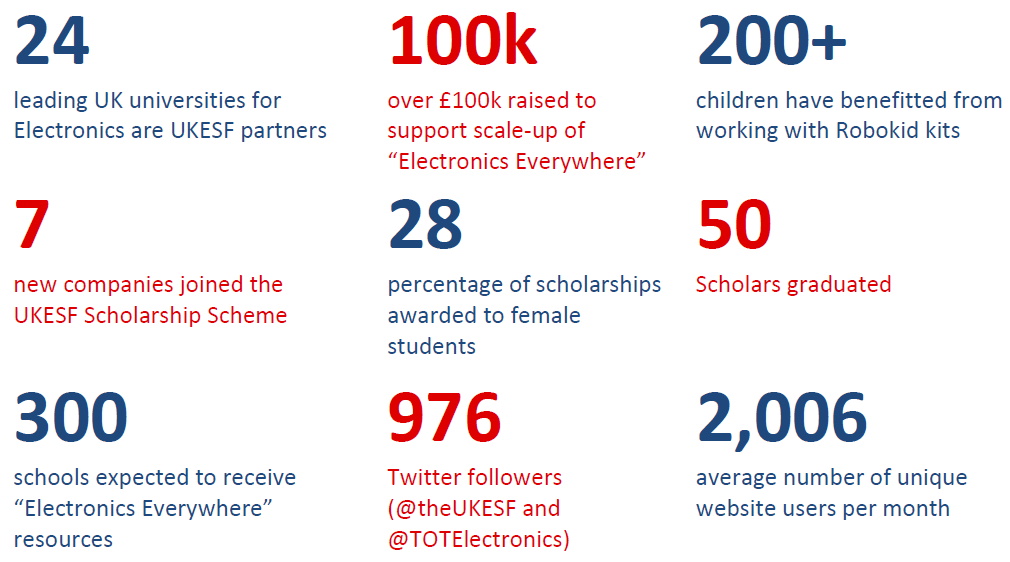
Click HERE to read the full Annual Review.
“Surely better to be innovative and fail, rather than fail to see what will arrive and consume the value of your organisation.”
Paul Northey
Electronics is about using technology creatively to develop innovative products to help solve problems and make people’s lives better. In this guest blog post by our friend Paul Northey, he talks about the process of innovation. As Paul says, “Innovation is a step into the unknown, you are expected to fail.” This idea of failing being an important part of the development process is echoed by Matthew Syed in his excellent book, Black Box Thinking, in which he argues that failure drives innovation. One of my favourite quotes is attributed to Nelson Mandela and I think it sums it perfectly: “I never lose, either I win or I learn.” Here are Paul’s thoughts about innovation…
Innovation is a gamble, an educated bet on the racecourse. The only thing for sure in Innovative Development is that there will be failures, and if you don’t participate you won’t be innovating.
Innovation is a step into the unknown, you are expected to fail. In fact, reports suggest that 90% of innovative tasks within an organisation should fail; simply, if you are not failing, you are not innovating, you are simply evolving or, at worst, stationary.
However, what is important is that if you fail, you should fail quickly, learn your lessons, and move on. It’s been claimed that James Dyson made 1,000 prototypes of his vacuum cleaner before he perfected the product. His recent public electric vehicle development was an example of innovation, but a fail late in the cycle. Billions of pounds into the project. However, immeasurable technologies, lessons, understandings will have been learnt by the organisation and will exhibit themselves in the future pipeline of products.
The innovative process may have been a great success, however, if can still fail due to pricing, promotion, support. Innovation is not just about products, it is also about business processes. It’s important to have a very holistic view of what a successful innovation launch should involve. You often see great products fail for this very reason. It is important to have a phased gate milestone approach in innovation, with a wide participation and buy in, with transparency and openness. Together with a culture of emotional safety and one that celebrates failure, it’s an essential part of the process.
Many organisations innovate and either stop or fail to see the disruption that is about to overcome them. Some classic examples:
Kodak: World leaders in amateur and pro photography film development, however in 1975 they developed the digital camera. They failed to see the disruption.
Nokia: Dominated the mobile market in the ’90s and early 2000s – they failed to see the importance of data and software platforms.
Blockbuster: Every town and city had a Blockbusters video hire store; they managed the transition to DVD but failed to see the disruption of downloading.
Disruptive innovation is the blindside for many organisations, the inability to see what you have and a failure to see how the world is changing. However, when it arrives your business can be destroyed from market leader to complete failure in matter of years. Always challenge your strengths and ask your self regularly how can what we have can be destroyed.
Surely better to be innovative and fail, rather than fail to see what will arrive and consume the value of your organisation.
Always remember: Failure is the Mother of Innovation.
Paul Northey is the founder and Director of LINKS Global Tech – simply sourcing the best technical talent worldwide.
“It is vitally important to have a national platform for these ‘role models’ in order to help inspire more youngsters to study Electronics and to pursue careers in the sector.”
Stew Edmondson, CEO, UKESF
The UKESF is delighted to report that the recently released EW BrightSparks list for 2020 includes one current and two graduated UKESF Scholars. It is always heartening when Scholars receive public recognition, and the UKESF is extremely proud of the quality and high calibre of the students that join our undergraduate Scholarship Scheme.
The EW BrightSparks programme is run by Electronics Weekly in partnership with RS Components, and aims to highlight the brightest young electronic engineers in the UK. The three UKESF Scholars being celebrated this year are:
Congratulations Yanislav, James and Dominic!
“The kit features hands-on activities with a circuit board that teach core electronics concepts to A-level Computer Science students.”
An article by UKESF CEO Stew Edmondson has been featured in the latest edition of Hello World, a computing and digital making magazine for educators. The article explains how “Electronics Everywhere” kits are helping students develop the computing skills required for future careers.
“We know that computing is an increasingly popular A-level subject with 10,000 students nationwide sitting the exam in 2018; this was up 23 per cent on 2017. Despite this, there are few hands-on teaching resources available to schools to teach fundamental computer engineering. Therefore, working closely with academics from the University of Southampton’s prestigious School of Electronics and Computer Science, the UKESF has developed a Logic and Arithmetic Kit. The kit features hands-on activities with a circuit board that teach core electronics concepts to A-level Computer Science students.”
Read the full article HERE.
“Electronics Everywhere” is a collaboration between the UKESF and the University of Southampton, with support from the Institute of Physics and Computing at School. It is focused on raising attainment in the A-level subjects (Physics and Computer Science) and promoting Electronics by providing classroom sets of resources linked directly to the curriculum and by training teachers – find out more about the projects here.
So far, 175 schools/teachers have been involved, with over 700 boards distributed to schools. Extremely positive feedback has shown the approach to be effective and to resonate with teachers. In summary, “Electronics Everywhere”:
If teachers/schools would like to register their interest, they should contact the UKESF at [email protected]
#ISOLATIONINTERN is helping UK startups recruit students and researchers during COVID-19
The UKESF is proud to be supporting Blackfinch Ventures’ #ISOLATIONINTERN movement, designed to help UK startups recruit students and researchers for remote working opportunities during COVID-19. The movement is backed by a number of leading universities and top venture capital firms, and seeks to support companies in their early stages and contribute to keeping the economy on track in this difficult time, as well as providing opportunities for the bright minds currently unable to work.
The UKESF is helping to generate interest and raise the profile of #ISOLATIONINTERN amongst our 24 Partner Universities by utilising our well-established connections and asking our academic contacts to publicise the jobs on offer to their students and researchers. We are also reaching out to our large network of graduated Scholars, many of whom are now part of startups themselves and may know of opportunities for interns, as well as drawing the attention of our Sponsor Companies to the movement.
#ISOLATIONINTERN opportunities are available in various STEM areas and on a short-term, part-time basis. All listing fees are being donated to charities that help talented young people from disadvantaged backgrounds access education from top UK universities.
Find out more and post or apply for a job HERE.
The #ISOLATIONINTERN launch partners are:
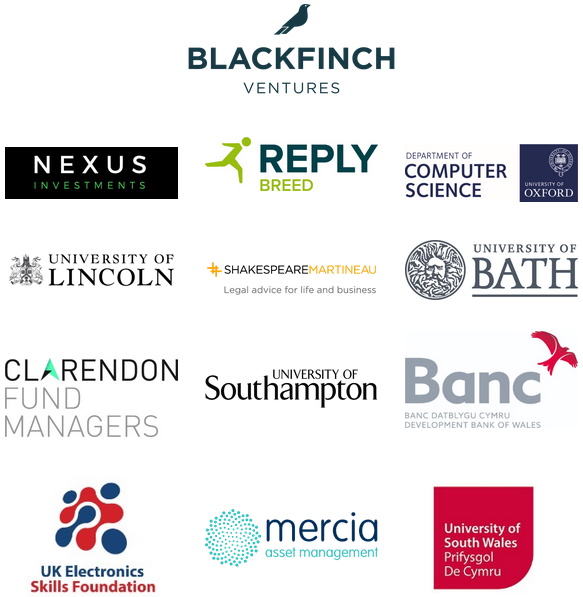
94% of companies praised the quality of applicants for the UKESF Scholarship Scheme
The UKESF’s relationship with sponsor companies is at the heart of the Scholarship Scheme, so as it expands it is reassuring to know that employer satisfaction remains exceptional high. In a recent survey[1]:
The UKESF now has 24 partner universities, from right across the UK. With these partners, we continue to attract high-quality students to the Scholarship Scheme. This year we received over 230 applications from undergraduates, with a noticeable increase in the percentage of female students applying; indeed, over a quarter (28%) of Scholarships were awarded to female students.
“We had a higher proportion of female applicants through the UKESF compared to our direct intern programme, which proved to be valuable to us.”
Gaining experience though work placements is at the heart of the Scholarship Scheme. We had some great feedback on the value gained by students from their placements:
“I absolutely loved my placement, it was nothing like any job I have done before; it was intellectually stimulating, exciting and really fun.”
Helping the industry tackle its skill shortage and encouraging more young people to pursue careers in Electronics is what the UKESF is all about:
Graduated UKESF Scholars have continued to receive national recognition:
Thank you to our university partners and sponsor companies for their support this year, and to our corporate sponsors: Arm, AWE, Dialog Semiconductor and Qualcomm. It is very much appreciated.
The UKESF hopes everyone is keeping safe and well, and we will be in touch over the summer to discuss participation in the Scholarship Scheme for the next academic year.
[1] A survey undertaken in March/April 2020, with responses from 21 companies.
“We are encouraging universities to work with their industrial partners to create postgraduate programmes based on this
new Apprenticeship Standard. This would undoubtedly benefit the Electronics industry in the UK.”
Stew Edmondson, CEO, UKESF
If you thought “Apprenticeships are only for entry level; they are for low skilled employees” or that “Apprenticeships cannot be used for existing staff”, then you would be wrong, as both of these statements are incorrect. The truth is that apprenticeships cover the full spectrum of academic qualification levels and can be for existing staff of any age.
In the Electronics sector, there has been a degree Apprenticeship Standard (Level 6 – BEng) available since 2016. We know that at least fourteen universities have developed offerings using the standard, and that over 240 apprentices have enrolled on their programmes. This means that companies in England with an annual payroll of £3m+, who are paying the Apprenticeship Levy, will be able to fund up to 100% of a degree apprentice’s tuition costs from their Levy contribution.
Last year, a Level 7 Standard was approved for delivery. This new, post-graduate, education route brings together university study with the invaluable on-the-job training of an apprenticeship. It is great that the University of the West of England, Bristol (UWE) has been leading the way and is the first higher education institute to launch a programme based on this Standard. However, we now need more universities to follow suit.
There is a massive opportunity for universities to adapt their MSc courses and work with industrial partners to create postgraduate apprenticeship programmes. Such apprenticeships would give graduate engineers the opportunity to accelerate and develop their knowledge and competencies, while maintaining a full-time job. For employers, it could offer an effective way of building additional capability in their graduate engineers in a cost-effective way by utilising their Apprenticeship Levy payments.
Find out more HERE or contact the UKESF.
“We are able to cut visors at a rate of around one every 2 minutes”
Nathan Ruttley
We are living in extraordinary times, and engineers are doing remarkable work to come up with innovative solutions to help our key workers. Graduated UKESF Scholar Nathan Ruttley (University of Southampton) is helping to protect NHS staff during the COVID-19 crisis by using his company’s laser cutter to produce headbands for visors. Here Nathan tells us about what he has been up to since graduation and how he got involved in fighting the spread of COVID-19.
After graduating I worked for RPD International up until mid-2019. I spent some time in China delivering a project for them (Radbot) for which I won an Electronics Weekly BrightSparks Award. After leaving RPD I started a boutique consultancy company, Embedism, with an old colleague of mine; our pitch is that we offer affordable prototyping and electronics+firmware development for start-ups. We operate on extremely low overheads which means we can deliver great value to clients and turn projects around quickly – meaning we get to work on lots of different types of projects (and hence increase our value to our clients!). We have a fully kitted-out workshop in Kingston with full soldering setup including reflow, hot air and micro solder, 3D printers, a large bed laser cutter, a good array of electronic test equipment and other prototyping bits and bobs.
Regarding the visors, a company called Kitronik who supply education electronic and DT resources came up with a laser-cuttable design, so we sourced materials from B2B suppliers (since we are a proper LTD company we were able to get great rates and fast delivery). We were inspired by the efforts of many hobbyist 3D printing enthusiasts so though we should put our laser cutter to use. We are able to cut visors at a rate of around one every 2 minutes and have made over 1,700 headbands so far. These headbands get distributed to volunteers for final assembly and distribution to their local NHS facilities.
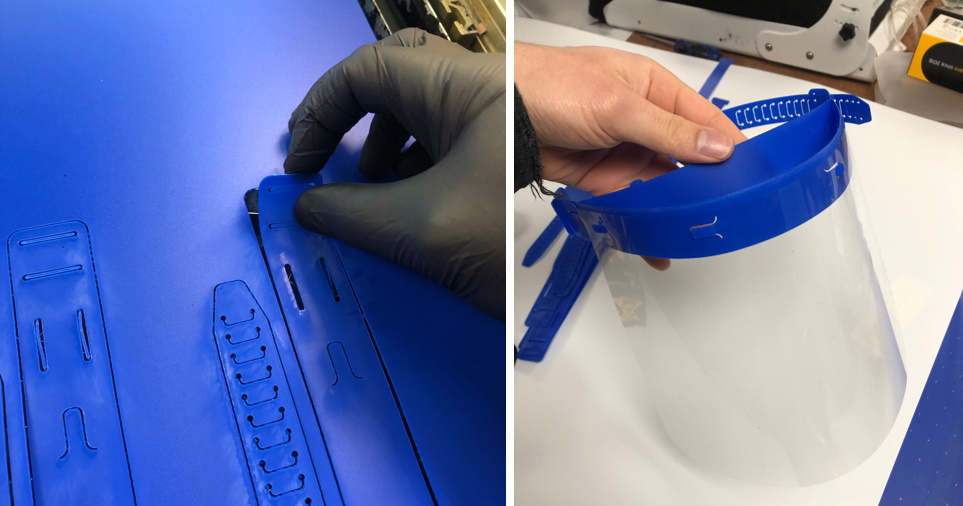
© Nathan Ruttley
In the short term we are working on building our client base and reputation. In the long term we might think about expanding (so long as it fits with our ethos of low overheads) but primarily we want to develop our own range of electronic products that we can manufacture and sell.
Find out more about Nathan’s company Embedism here, and watch a short video of his laser cutter in action here.
“Working from the inside, as it were, it is possible to shape the strategic direction of the school: to ensure STEM is embedded in pan-school activities”
Stew Edmondson, CEO, UKESF
As part of my role at the UKESF, I often speak to industry audiences about the skills-related challenges that we face. The most fundamental challenge is how to get more young people interested in STEM and, in particular, Electronics. In the Q&As, I regularly hear feedback and comments from audience members about them being a “STEM ambassador”. To be honest, my usual reaction is a bit lukewarm and my response is often to say have you thought about being a Governor instead?
Of course, it is great that busy engineers are motivated to do something to help within a school. And I am certainly not disparaging, in any way, the STEM Ambassador scheme run by STEM Learning. However, I do question the efficacy of the more senior individuals our industry being STEM ambassadors. Are we well equipped for this type of role? And how much of a real difference can we make as individuals, in this way?
On the other hand, as a Governor you can make a real difference to a whole school. I speak from personal experience as I was a Governor at my daughters’ secondary school for seven years. Since most state schools, as a result of Government policy, became academies with more autonomy, they have greater freedoms around their curriculum. Working from the inside, as it were, it is possible to shape the strategic direction of the school: to ensure STEM is embedded in pan-school activities and to promote engineering careers-related initiatives.
That is why I was delighted to see the Government’s campaign “Take A Closer Look”, encouraging Engineers to become school Governors. As the campaign says, as a Governor you can make a positive impact on a school. Also, that Engineers are well suited to the role of Governor and possess the skills and experiences that could really benefit a governing board.
Therefore, if you want to do something worthwhile to help young people and our industry, then why not take a closer look at becoming a school Governor? There is a growing number of schools actively seeking engineers with your skills and experience. If building a long-lasting, beneficial relationship with a local school appeals to you then please sign up here. Through the Inspiring Governance programme, they can match you with a school local to where you live or work. Through the programme, you will also be able to access 12 months’ free support and guidance from the National Governance Association.
“It is vitally important to have a national platform for these ‘role models’ in order to help inspire more youngsters to study Electronics and to pursue careers in the sector.”
Stew Edmondson
The UKESF is now an official supporter of EW BrightSparks. The annual EW BrightSparks programme is run by Electronics Weekly in partnership with RS Components, and aims to highlight the brightest young electronic engineers (aged 18–30) in the UK who are already making a difference in the Electronics sector.
“Electronics Weekly’s BrightSparks competition has quickly become the premier competition for showcasing young professionals working in the Electronics sector; for celebrating their success and importantly for highlighting their potential. It is pleasing that many of the those selected as BrightSparks have studied at one of the Foundation’s partner universities and even more so that some have actually graduated through the UKESF’s undergraduate Scholarship Scheme. It is vitally important to have a national platform for these ‘role models’ in order to help inspire more youngsters to study Electronics and to pursue careers in the sector. Therefore, this shows that there is complete alignment between the aims of the competition and the UKESF’s charitable purpose. Consequently, the Foundation is delighted to be formally recognised as a supporter of the BrightSparks competition. We look forward to helping the competition grow and becoming even more successful.”
Stew Edmondson, CEO, UKESF
Read about the UKESF Scholars who made the EW BrightSparks list in 2019 here.
To nominate yourself or a colleague for EW BrightSparks 2020, click here.
“I was unfamiliar with a lot of this, and it was a fun challenge to first understand what it was I was trying to design, and then work out how I was going to implement it.”
Alice
Guest blog by Alice (second from right above), one of 2019’s recipients of the Dialog Award for Female Undergraduates. Alice was also an Arkwright Engineering Scholar, a programme administered by The Smallpeice Trust. The UKESF has been collaborating with The Smallpeice Trust on STEM and Electronics initiatives since 2016.
Last year I completed my first eight weeks in the Electronics industry at Dialog Semiconductor, as part of receiving the Dialog Award for Female Undergraduates. Here I will recount my experience working in the company, and what it’s been like so far studying Engineering as a woman.
While at school, as much as I enjoyed the theory in Maths and Science, I knew I wanted to learn how to use them as tools to design new solutions to real problems. This is what led me to Engineering. We did basic circuits and electromagnetics in Physics and I particularly enjoyed learning about Boolean logic and microprocessors in Computer Science; however, I still wanted to know more about how everything fits together to make all the electronic devices we rely on today. Having just completed the first year of my degree, I think I’m on my way.
For me, interning at Dialog for eight weeks was a great experience to consolidate and build upon what I have been learning at university in a real workplace. Dialog designs and sells mixed signal ICs, which means they combine digital and analog technologies on chips. I was working in the Digital Design department, which involves designing the logic that controls the operations of the chip. This was my first time practically applying the basics of digital circuits I had been taught. I started simple by learning a new hardware description language called Verilog, which I could use to describe circuits in computer code. I then designed ‘test benches’ to simulate the input signals and see if they were all working. I tried designing a counter, finite state machines, an APB (a bus protocol) slave interface and various FIFOs. I was unfamiliar with a lot of this, and it was a fun challenge to first understand what it was I was trying to design, and then work out how I was going to implement it.
Once I had some experience with the software tools and processes at the company I began to help with a conference paper on an asynchronous microcontroller. I had no prior experience with ideas in asynchronous logic, which is when there is no clock to time the processes. I enjoyed the opportunity to think about digital circuits in a different way and learn about challenging topics with the help of experts in the subject. In my role I created schematics and ran simulations in order to gather performance data, and had a go at designing asynchronous logic myself. On top of this, throughout my time at the company, I was shadowing a commercial project and I got to learn about how they plan and organise their team in order to meet a deadline in several months’ time. I also observed the collaboration between all the teams needed, including with colleagues in other countries. Overall, I think working at Dialog has helped me understand how what I am learning is used in a professional environment, as well as the importance of communication and other non-technical skills in an engineering team.
Before university I was fortunate to go to an all-girls grammar school, so university was my first experience of being outnumbered by the boys in my lectures, labs and supervisions. However, I have never found this to be an issue, particularly not enough to stop me from pursuing whatever subject I find most interesting. The proportion of females in Electronics won’t change unless we have more getting into it and applying, so I urge anyone with an interest in Maths, Science, how things work and how they can be improved, to look into Electronic Engineering degrees and apprenticeships.
Find out more about the Award, the inaugural recipients and the UKESF’s work with Dialog Semiconductor in this article.
The UKESF is pleased to welcome the University of Warwick as our 24th university partner, meaning company sponsors are able to connect with even more high quality students and Warwick undergraduates will now have the opportunity to benefit from our ever-expanding programme of scholarships, internships and competitions.
“Warwick University is delighted to partner with the UKESF and support their mission to promote Electronic Engineering more widely. We have long-standing offerings in Electronics and Computer Systems Engineering as well as our newer programmes in Electrical & Electronic and Biomedical Systems Engineering. We strongly believe in embedding electronics and programming into every engineer’s curriculum and have invested heavily in our start-of-the art facilities and inspiring teachers to achieve this. Joining the UKESF allows us to continue to develop opportunities for current and future students as we work together with industry to showcase the variety and importance of Engineering careers.”
Prof David Towers, Head of School of Engineering
“I’m ever so pleased that Warwick are now a UKESF partner university. They have a vibrant, research-led, Electronics Department with strong links with industry. I really like their approach, with an initial focus on general engineering and then majoring on learning Electronics through projects and practical work.”
Stew Edmondson, CEO, UKESF
The University of Warwick’s School of Engineering features consistently in the top ten of all UK league tables and provides a solid engineering background before undergraduates specialise in their chosen area. Warwick offers an impressive range of workshops and labs with cutting-edge equipment, and academics at the forefront of their subjects. The location in Coventry places undergraduates close to many of the UK’s biggest names in the engineering.
So it’s 2020 and the future is here. For a while I’ve been using this graphic when I talk about developing engineering undergraduates through our UKESF Scholarship Scheme:
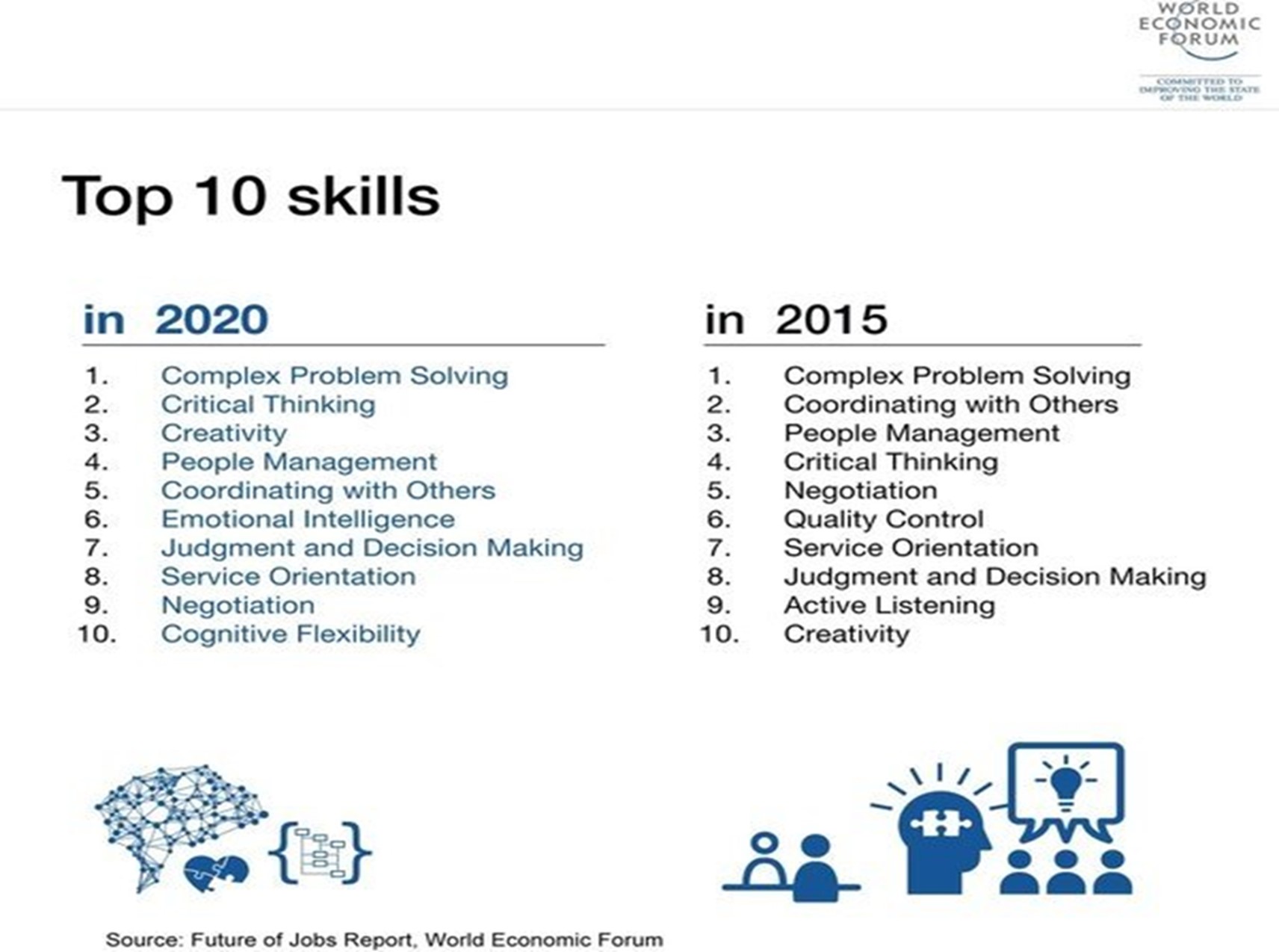
It comes from the World Economic Forum and their ‘Future of Jobs’ report, which was published in 2016. They said:
“Five years from now, over one-third of skills (35%) that are considered important in today’s workforce will have changed. By 2020, the Fourth Industrial Revolution will have brought us advanced robotics and autonomous transport, artificial intelligence and machine learning, advanced materials, biotechnology and genomics. These developments will transform the way we live, and the way we work. Some jobs will disappear, others will grow and jobs that don’t even exist today will become commonplace. What is certain is that the future workforce will need to align its skillset to keep pace.”
In 2018, McKinsey in their briefing note ‘AI, Automation, and the future of work’ stated that workers will need different skills to thrive in the workplace of the future. They said:
“Automation will accelerate the shift in required workforce skills we have seen over the past 15 years. Demand for advanced technological skills such as programming will grow rapidly. Social, emotional, and higher cognitive skills, such as creativity, critical thinking, and complex information processing, will also see growing demand.”
So, how do things stack up now 2020 is here? The top skills – complex problem solving, critical thinking and complex information process – are all fundamental requirements for being a successful engineer and so there is little change in that respect; learning and practicing these skills continue to be core parts of engineering courses. However, it is interesting to see that ‘creativity’ is prominent in the list of skills required in 2020. Perhaps creativity is not something normally associated with Electronic Engineering? Nevertheless, the Engineering Council state in the UK Standard for Professional Engineering Competence (UK-SPEC) that:
“Chartered Engineers develop solutions to engineering problems using new or existing technologies, through innovation, creativity and change and/or they may have technical accountability for complex systems with significant levels of risk.”
Also, the need for creativity to be part of future engineering education has been recognised by the Engineering Professor’s Council and the IET as one of the six principles in their ‘New Approaches’ (see here). They say:
“In order to reflect developing industrial needs and to attract a broad range of applicants, engineering programmes should enhance and emphasise the creative and innovative nature of the work of engineers; although acknowledging maths and science are important, they are a necessary but not sufficient part of the skill set required.”
So, the message is clear. Now the future is here, creativity needs to be a key skillset for Electronic Engineers, and developing creativity should be a fundamental part of engineering education.
“Multiple opportunities to network with both companies and other female engineers, which was both informative and empowering, and many of these I now happily call my friends.”
UKESF Scholar Megan
For the fourth year in a row, the UKESF supported the final-year female Scholars to attend the annual Women’s Engineering Society (WES) Student Conference with all-expenses-paid places. Attendance was kindly sponsored by Enigma, a recruitment company that specialises in the UK technology sector.
The University of Warwick hosted the annual conference, taking place from 8th to 9th November and bringing together students, academics and young engineers.
Megan Goodsell (University of Southampton/Sky) wrote on her LinkedIn blog, “This weekend I had the fantastic opportunity to attend the Women’s Engineering Society conference 2019 through my UKESF Scholarship. The theme this year was ‘Transform the Future’, which after the panel sessions we attended I feel even more inspired to do exactly that. Over the course of two days we had various inspiring speakers, panel discussions with the WES YMB and professionals in the industry and CPD workshops, of which the leadership one was a particular highlight for me, making me more determined to achieve the very best. Multiple opportunities to network (including at a formal dinner) with both companies and other female engineers, which was both informative and empowering, and many of these I now happily call my friends.”
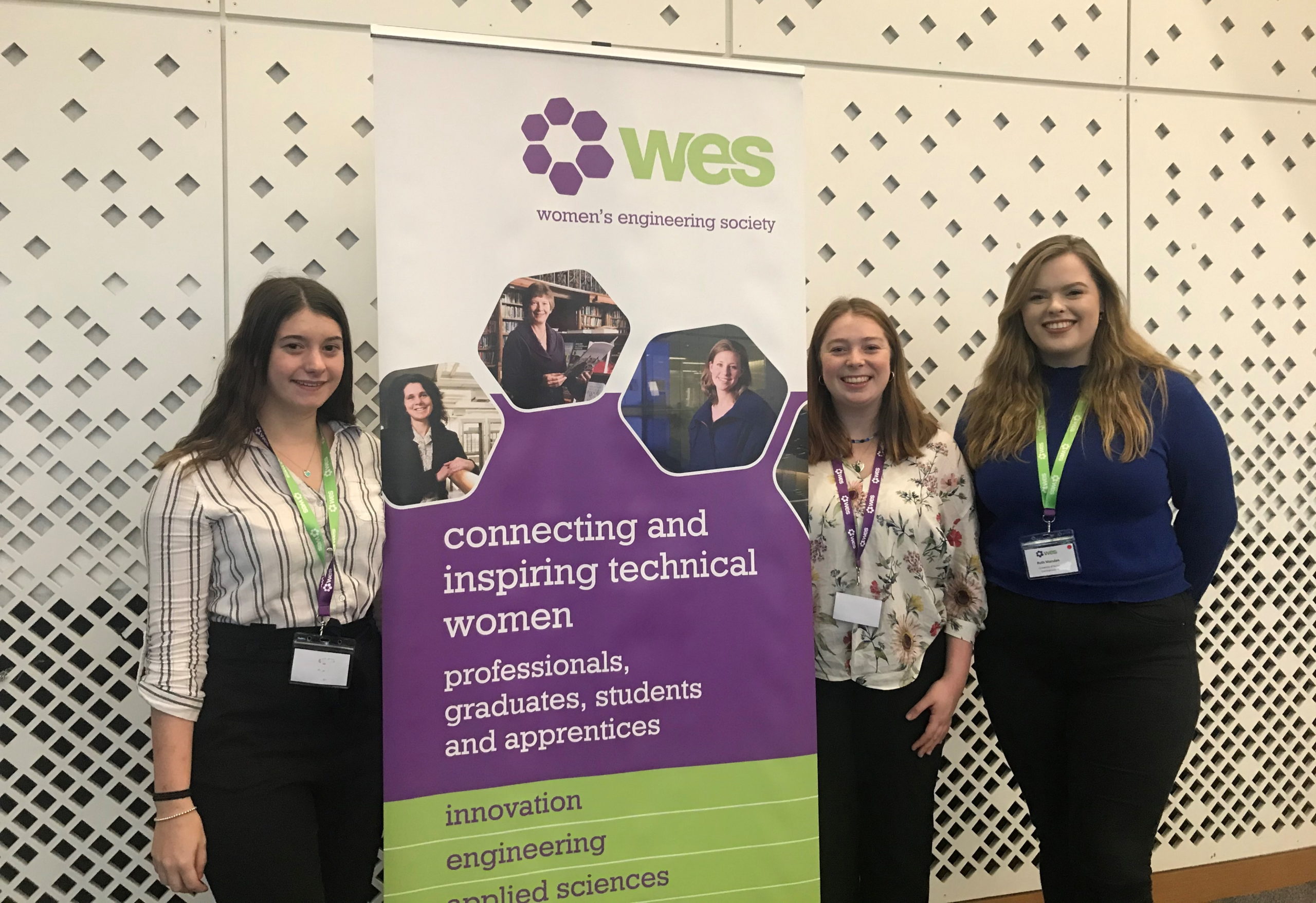
UKESF Scholar Megan Goodsell (left)
The Scholars who attended had a brilliant time and are sharing their thoughts with Enigma in a series of interviews about the event, their experiences in the Electronics industry and what excites them about the future of technology.
 First up was Agnes Nagy (University of Nottingham/vivaMOS, now acquired by Nordson): “Most people consider electronics as just a magic black box, they accept it works, and they expect it to work and I could never do that. I wanted to know why they work and how they worked, and I just wanted to do my own project … Personally, I’m looking to go into medical electronics, which has huge potential right now. So hopefully, with the help of that, I will be able to help people directly.” Full her full interview here.
First up was Agnes Nagy (University of Nottingham/vivaMOS, now acquired by Nordson): “Most people consider electronics as just a magic black box, they accept it works, and they expect it to work and I could never do that. I wanted to know why they work and how they worked, and I just wanted to do my own project … Personally, I’m looking to go into medical electronics, which has huge potential right now. So hopefully, with the help of that, I will be able to help people directly.” Full her full interview here.
 The second interview was with Megan Goodsell (University of Southampton/Sky): “I get annoyed by the fact that there aren’t many women in it [Engineering], and I want to prove the point that there’s no reason we can’t do it. There’s also the stigma that it’s a guy’s job; I completely disagree with that! … it was very nice to see other female students who have the same interests as me, and we can relate to each other because we know what it’s like being in a room of all guys.” Read her full interview here.
The second interview was with Megan Goodsell (University of Southampton/Sky): “I get annoyed by the fact that there aren’t many women in it [Engineering], and I want to prove the point that there’s no reason we can’t do it. There’s also the stigma that it’s a guy’s job; I completely disagree with that! … it was very nice to see other female students who have the same interests as me, and we can relate to each other because we know what it’s like being in a room of all guys.” Read her full interview here.
Watch this space for more interviews!
Graduated UKESF Scholar Tarig Mustafa was named one of this year’s IET Prize winners for attaining the highest grade of all graduating students from the Department of Electrical and Electronic Engineering at the University of Manchester, 2019. The Prize is awarded annually to outstanding students who are completing IET-accredited courses and who are nominated by their university. It includes two years’ free membership of The IET.
Tarig achieved a First Class BEng in Electronic Engineering, and was also awarded an Outstanding Academic Achievement Award by his university for graduating among the top ~0.5% of students across all departments. As a UKESF Scholar, Tarig was sponsored by Renesas Electronics. He is now undertaking a PhD in the field of Nanoscience and Nanotechnology at the University of Cambridge.
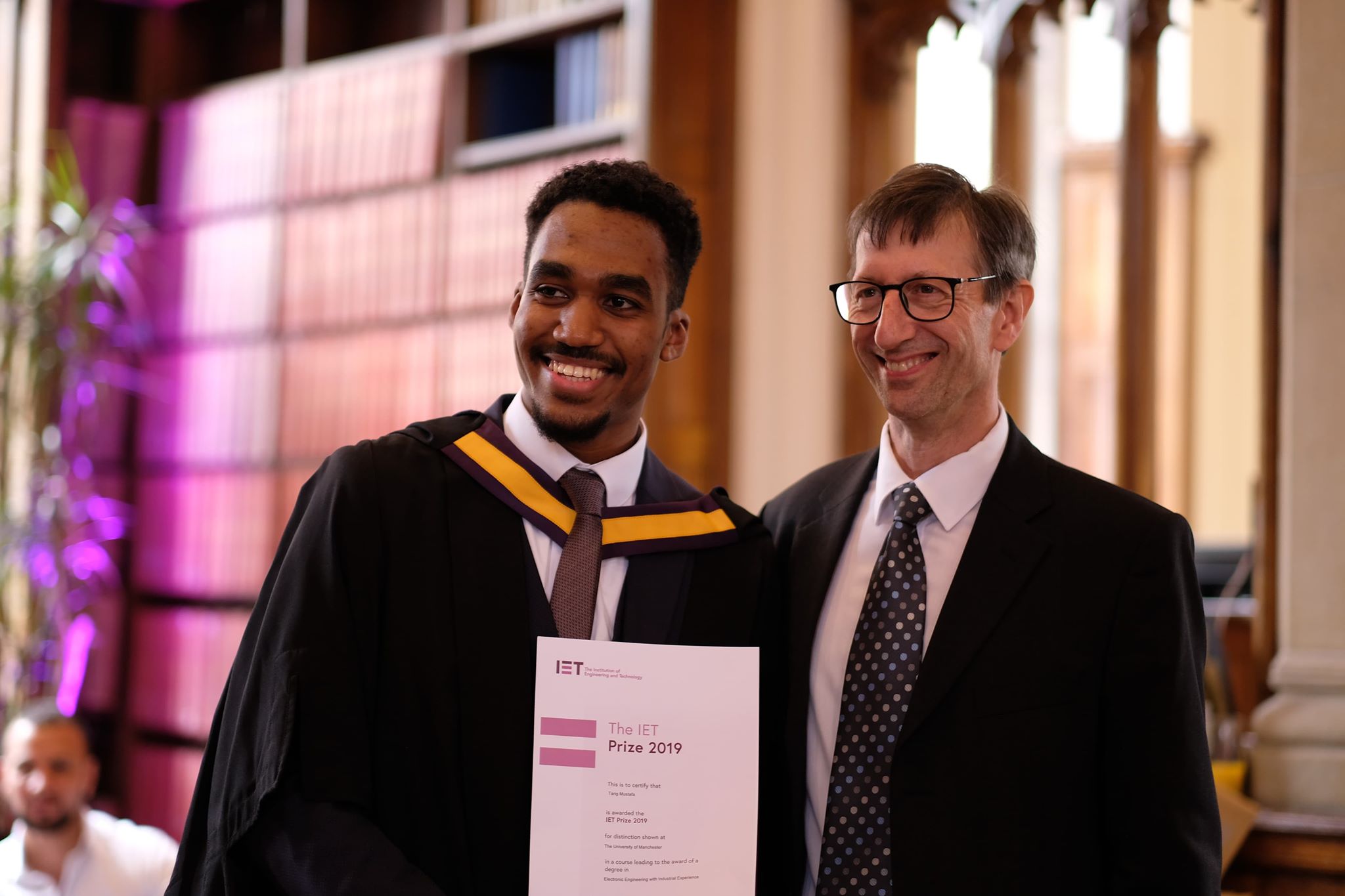
Tarig receiving The IET Prize 2019
Tarig shares his experiences in Electronics at university and as a UKESF Scholar in the blog post below.
I always enjoyed Physics and understanding the fundamental laws that govern our world. Even more so, I take inspiration from learning about the clever and innovative ways in which people have managed to exploit them, setting the scene for today’s technological advancements. It was clear to me that I should pursue a career in Engineering from an early age. However, at the time of applying to university I had no idea which branch of engineering would be right for me. I had no experience related to any of them. In fact, I applied for Mechanical Engineering as a sort of default, and it wasn’t until I had received my offer that I requested to have it switched to the School of Electrical and Electronic Engineering. What motivated the switch? Nothing special, I was just lucky to have a family member who studied Control Engineering at the same university, with whom I was able to discuss the course and career options in more depth (also a couple of mates of mine made the switch too). Best decision ever.
I first heard about the UKESF when it was advertised in my first year at university. I felt it presented the perfect opportunity to expose myself to the industry and develop networks whilst still an undergraduate. After being unsuccessful in my first year, I applied again in my second year; more mature with a clearer career goal in mind. This time, I had a summer’s worth of volunteer experience, working as a research assistant at my university (graphene-silicon Schottky photodetector micro opto-electromechanical systems research). The experience helped me to confirm my desire to pursue a career in semiconductors and electronic materials research. Thus, I applied to companies with overall focuses that coincided with my new career aim. The specific placement opportunities I applied to were in areas of Electronics I found I really enjoyed from my university modules and by participating in local hackathons (including computer architecture, embedded systems and programming). There weren’t many electronic materials placements available, which is fine because I could easily get that sort of experience at university. Also, it was important for me to ascertain my career decision by giving a chance to the other areas of Electronics I enjoyed and tasting life as an engineer working in those fields.
I was lucky to be accepted for my first choice working for the software development team at Renesas Electronics. We made software drivers for the company’s ARM-based microcontrollers for engineering customers. I was also lucky enough to write bespoke additions to accommodate some interesting customer requests. It was a real mental exercise, great fun and lots of C! The community at Renesas was more than I could have ever asked for (big shout out to everyone in the ARM SDK team! – the most wonderful team in the whole office). I was blessed to be given loads of responsibility and not treated like a student at all. Even then, everyone was super friendly and helpful, it hardly felt like work at all. I was also part of a community of ten students at the office (all through the UKESF), needless to say we all became really close friends and share so many awesome memories together.
By participating in business review meetings, general conversation with colleagues and attending the UKESF Scholar Workshop, I gained a much wider and deeper understanding of the industry than I could have obtained otherwise through university. This was really important for me as I was debating whether or not to follow my career aspirations through industry or to take an academic route. Although I have decided to remain in academia, that insight is still of particular importance to me as it is the industry that drives research in my field. Having decided to remain in academia I immediately enrolled myself on another voluntary research assistant role for the summer at the university after completing my year in industry (this time, looking at high K dielectric materials for thin film transistors for flexible, transparent displays).
In addition to becoming a really confident programmer, the theoretical knowledge I obtained through the practical experience of the work placement directly benefitted me when I returned to university. Large chunks of modules, such as Data networking, concurrent systems and computer systems architecture, were just recapping concepts I already had solidified.
Being originally from Manchester and going to university in Manchester meant I lived a little further out than most. With it being impractical to go home between lectures or labs, I was on campus more than my peers. It wasn’t as depressing as it sounds. I found all sorts of hidden gems, including computer clusters that remained empty even during busy times, ways to get on the roof and soak in awesome views, and the code to the staff common room (haha, I just exposed myself with that one). The Scholarship bursary enabled me to ignore the financial consequences of buying meals and coffee daily; which fuelled me as I worked unhealthy hours on campus (even spending the night more times than I care to admit).
Some of my fondest memories of my undergraduate life was just simply chatting to friends around campus and in PC clusters. We mainly talked about work and deadlines (I procrastinate by talking about the work that I should be doing – as if that somehow justifies procrastinating or is a lesser form of procrastination). Engineering students love complaining about the massive workload, after all. Honestly, the number of deadlines I would have missed if someone didn’t bring them up in these conversations is just scary. As life progresses and everyone goes on to do their own thing, it’s these interactions and the friendships I have formed and cherish so deeply that I will miss the most.
“Winning this award means a lot to me. There is always room for me to improve my confidence and professional development and Skills 4 UK are experts in diversity and inclusion. I am very excited to learn from them.”
Rachel Howard
2019’s winner of the Skills 4 UK Scholar’s Award is Rachel Howard (UKESF Scholar 2017–20), who is studying for a MEng in Computer Science and Electronics at the University of Bristol and is sponsored by Altran (now Capgemini).
Rachel will receive a place on Skills 4 UK’s award-winning Career Development Programme, as well as additional coaching. The programme is designed to help women further their careers and has already encouraged over 4,000 women to advance professionally during the eight years since its inception. It reports that 97% of participants have a more proactive approach to career progression upon completion of the sessions, and 88% have higher levels of self-confidence.
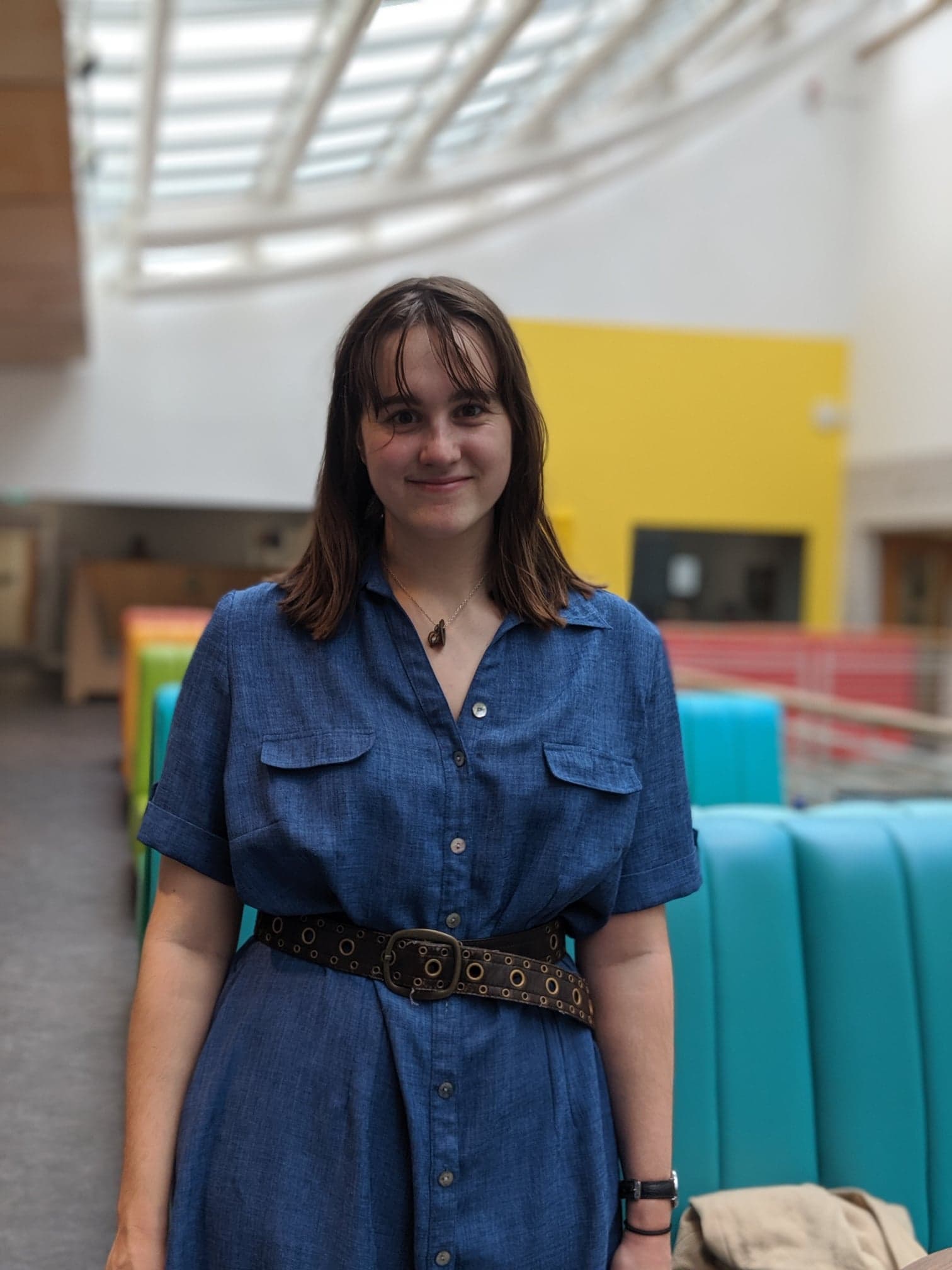 Rachel said, “In year 9 I started to have this strong predilection for a career requiring practical skills. I thought about learning a trade. In the end I decided to take A-levels first then make a decision afterwards. At a college open day I saw some coursework produced by the students and I decided to take the Electronics A-level.
Rachel said, “In year 9 I started to have this strong predilection for a career requiring practical skills. I thought about learning a trade. In the end I decided to take A-levels first then make a decision afterwards. At a college open day I saw some coursework produced by the students and I decided to take the Electronics A-level.
“I was one of two women who took the full A-level in a full class. I have never felt excluded or minoritised as a woman in STEM. Since going to university, to study Computer Science and Electronics, and becoming a UKESF Scholar, I have been given a lot of support and, along with my male peers, have been taught the important skills I need to succeed.
“Winning this award means a lot to me. There is always room for me to improve my confidence and professional development and Skills 4 UK are experts in diversity and inclusion. I am very excited to learn from them.”
The Skills 4 UK Scholar’s Award takes into account academic performance, placement feedback and STEM-awareness contribution. Congratulations Rachel!
“Taking part in the competition made me think deeper about the road ahead for automotive cybersecurity.”
David Kong, Automotive Electronics Competition winner 2019
This year the UKESF, in partnership with AESIN and with generous support from UltraSoC (now acquired by Siemens), launched a new competition. Students from partner universities were asked to turn their thoughts to the future of cyber security for connected and autonomous vehicles and to write a short ‘think piece’. The standard of entries was impressively high and the students produced some fascinating pieces, demonstrating their strong engagement with the subject. Judges selected two finalists from a substantial number of entries, and the prizes were presented as part of the 2019 AESIN Conference.

The AESIN Conference 2019
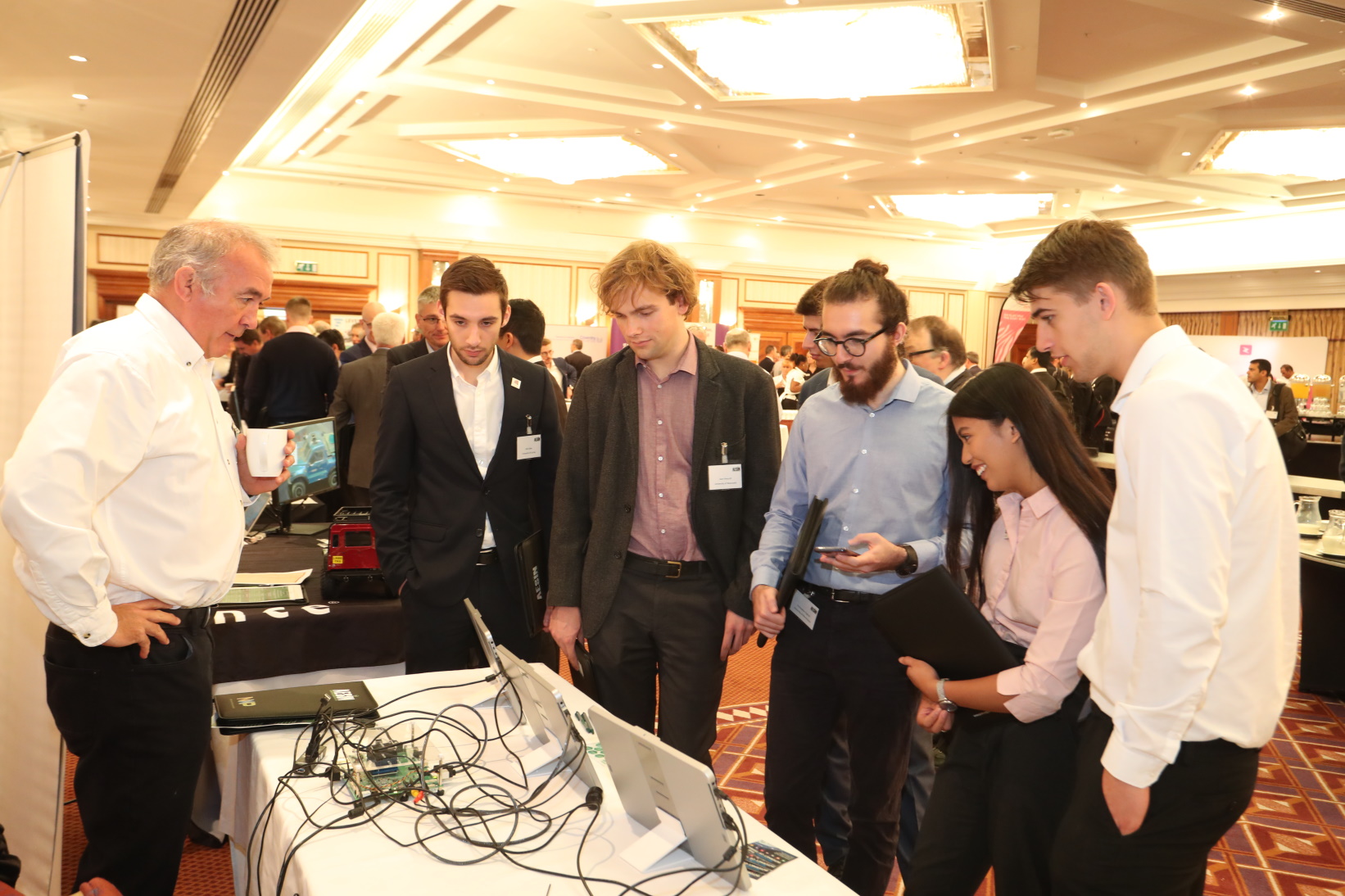
UKESF Scholars at the conference
UKESF CEO Stew Edmondson spoke as part of the conference welcome, supported by UKESF Scholar Tom. They were joined by a group of Scholar volunteers, who networked with delegates and helped promote the UKESF throughout the conference. Stew also took part in the Executive Panel Discussion.
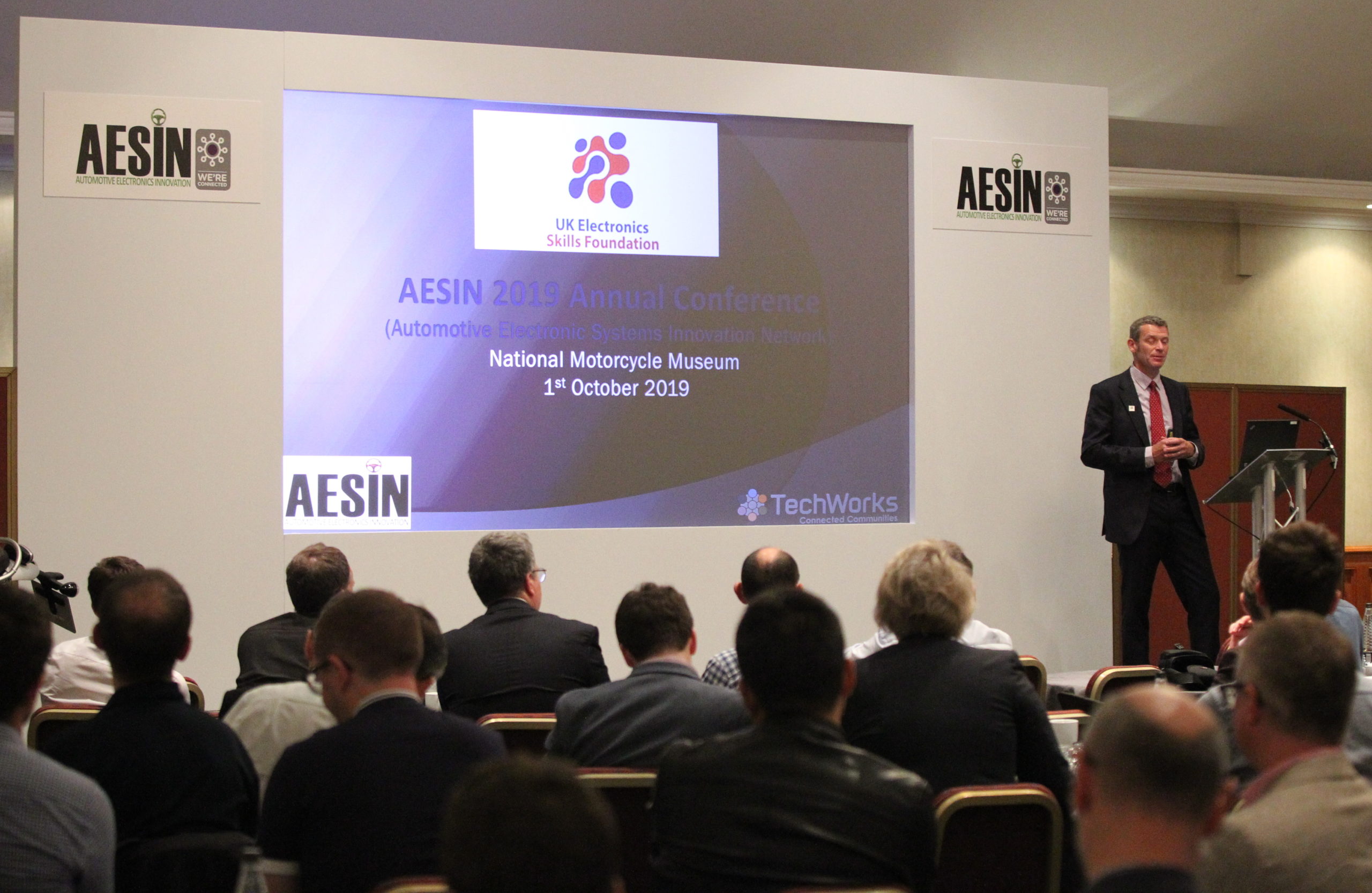
Stew speaking at the conference
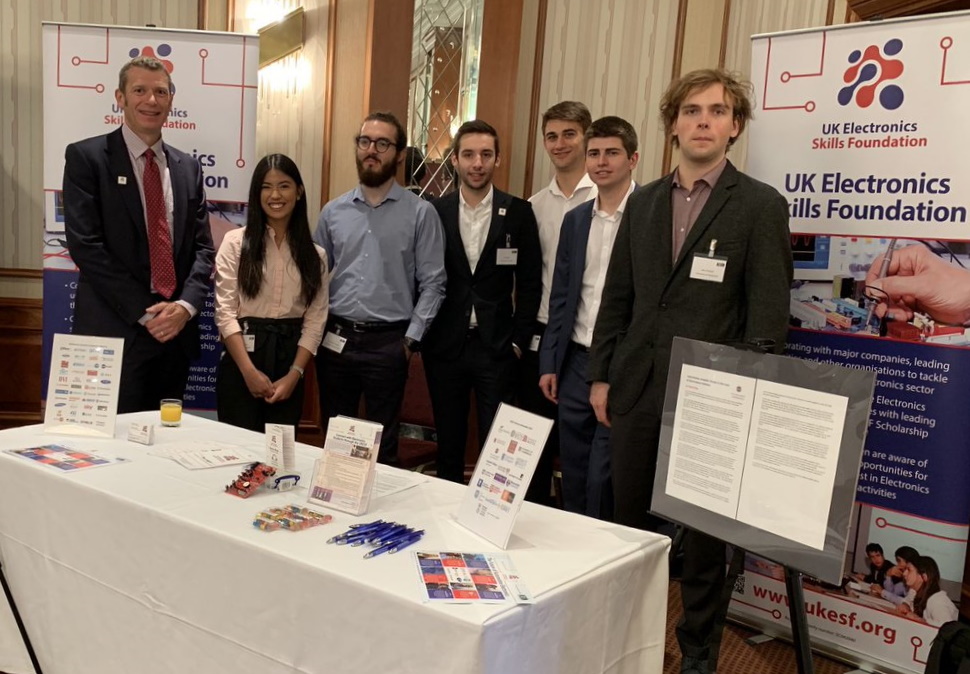
Stew with the UKESF Scholar volunteers on the UKESF stand
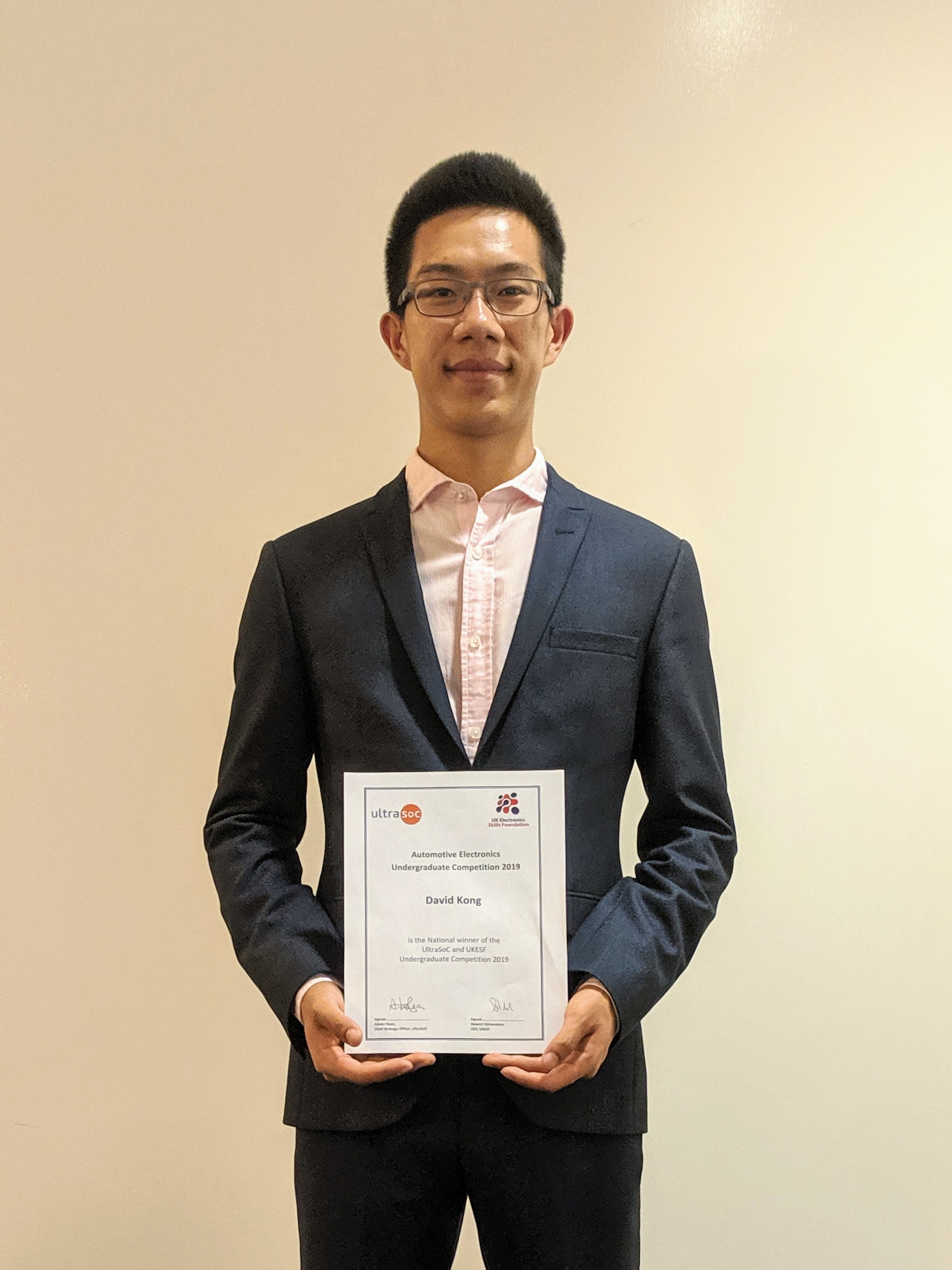 Competition winner David Kong, UKESF Scholar (sponsored by onsemi) and undergraduate at the University of Edinburgh, received £1,000 prize money. He said, “I’m honoured to have been selected as the winner of the UKESF Automotive Electronics Competition. Taking part in the competition made me think deeper about the road ahead for automotive cybersecurity. As we work towards releasing Level 5 autonomous vehicles, it is crucial that engineers consider cybersecurity from both software and hardware perspectives. I am very grateful to my UKESF scholarship sponsor company, ON Semiconductor, for providing me with the summer work placement that opened my eyes to the world of automotive cybersecurity. Thank you to the UKESF, AESIN and UltraSoC for organising the competition.”
Competition winner David Kong, UKESF Scholar (sponsored by onsemi) and undergraduate at the University of Edinburgh, received £1,000 prize money. He said, “I’m honoured to have been selected as the winner of the UKESF Automotive Electronics Competition. Taking part in the competition made me think deeper about the road ahead for automotive cybersecurity. As we work towards releasing Level 5 autonomous vehicles, it is crucial that engineers consider cybersecurity from both software and hardware perspectives. I am very grateful to my UKESF scholarship sponsor company, ON Semiconductor, for providing me with the summer work placement that opened my eyes to the world of automotive cybersecurity. Thank you to the UKESF, AESIN and UltraSoC for organising the competition.”
Finalist James Leyland, University of York, received £500. The winning entries are re-produced HERE.
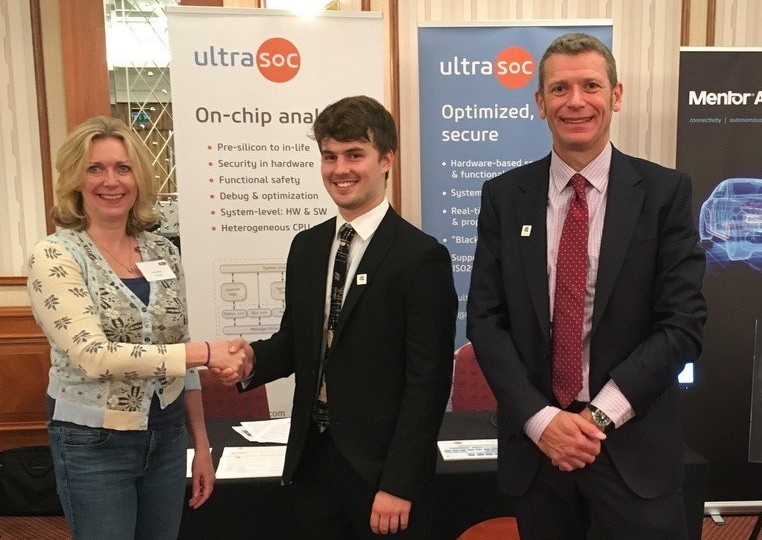
Finalist James Leyland with Aileen Ryan (UltraSoC) and Stew
Aileen Ryan, Chief Strategy Officer from UltraSoC, on presenting the award at the AESIN Conference, “Following a strong and substantial number of entries, there were two very strong finalists in David and James, so well done to both! David’s winning submission on cybersecurity and its impact on functional safety, including addressing issues of industry standards, was very insightful; and James’ analysis of data generated by autonomous vehicles and questions of passenger safety – these functional safety and cybersecurity topics are a major focus for us here at UltraSoC. Congratulations to David and to James; and thank you to AESIN and the UKESF for organising the award.”
“At the macro-level, the skills challenge can be distilled to this: getting good people into the workplace with the right skills and then ensuring that they develop and grow throughout their careers…”
This blog post is based upon an abridged version my presentation at the recent TechWorks Industry Summit.
I wanted to share with you something that caught my eye recently; it said “Millennials will make up more than 50% of the workforce by 2025”. Here is another thought: those engineering students starting their Electronics degrees this autumn won’t graduate until 2022, or more likely 2023, if they are studying on four-year MEng degree or at a Scottish university. Most, if not all, will have been born after the turn of Millennium.
I don’t say this to make us feel old. We are what we are. I graduated from university with my Electronics degree in 1986. So my continuing claim to be still in my ‘early 50s’ is beginning to sound increasingly dubious. Rather, I say it to make three points about skills:
At the macro-level, the skills challenge can be distilled to this: getting good people into the workplace with the right skills and then ensuring that they develop and grow throughout their careers, as circumstances change and workforces evolve in response.
In terms of graduates with the right skills, we often hear a ‘grumble’ among industrialists about universities not producing graduates that are somehow ‘fit for purpose’. Therefore, it is heartening that the Engineering Professor’s Council and the IET are taking positive steps, with their “New Approaches” (see here). Their changes are based on six important principles for future engineering education. These include more creativity, better industry engagement and experience of the workplace for students. Which brings us back to the UKESF.
At university, our undergraduate Scholarship Scheme goes from strength to strength. This year we will be awarding our 500th scholarship and we now have 23 universities, right across the UK, as partners. Of the 275 graduates so far from our scheme, we know that 84% are employed in our sector and a further 14% are doing post-graduate study and research. So, we are delivering and having a positive impact. Work placements are a vital part of the Scholarship Scheme and we are delighted to work with a wide range of leading companies, helping connect them with students from top universities.
As we approach our 10th anniversary we are working hard, on behalf of TechWorks members and the wider Electronics sector, to tackle the skills challenge that we all face. To find out more about our Scholarship Scheme then see here. With your donations and support, we can grow our programme and do even more to help.
Earlier this year, graduated UKESF Scholar Nikolay Momchev was named winner of the 2019 Innovation Challenge (sponsored by SEMTA), along with his partner on the project, Tze Liang Chee, at The Telegraph‘s STEM Awards. The annual awards took place in London and were hosted by mathematician and broadcaster Rachel Riley.
Nikolay said, “The Innovation Challenge was about introducing more robotics and automation to the UK industry. Me and a couple of friends noted that this coincides with fears about labour shortages in the food industry connected to Brexit. After a lot of brainstorming we decided on replacing strawberry pickers with robots and created a concept for an efficient picking process.”
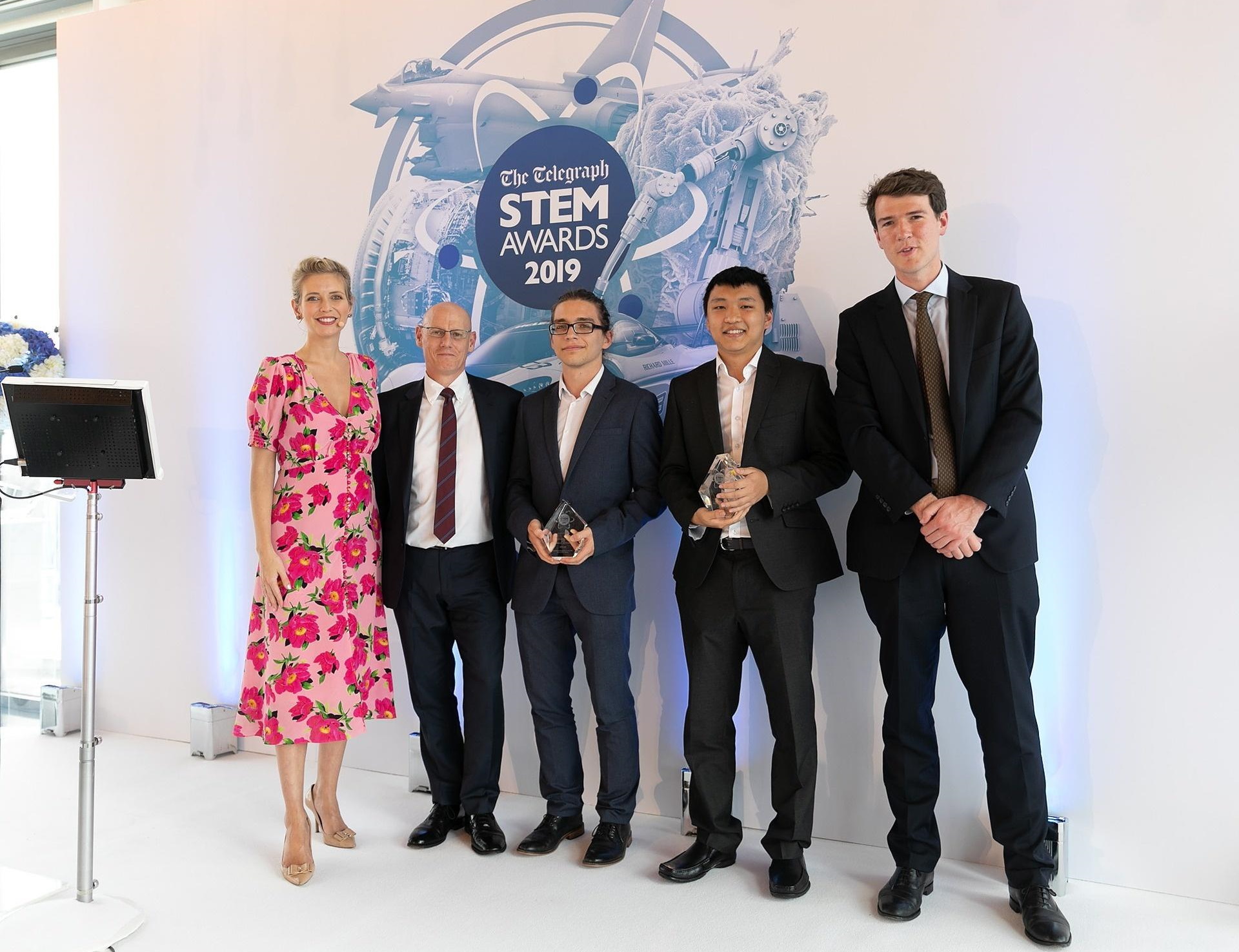
Rachel Riley (left) with Nikolay Momchev and Tze Liang Chee (centre) © The Telegraph
According to the article on The Telegraph website, “The winning strawberry-picking robot promises to bring efficiencies to an industry yet to address automation and could be adapted for use in rubbish collection … a novel way to help tackle labour shortages and food waste in farming. Their bespoke design for the UK’s £600 million-plus strawberry market uses an internal conveyor belt, customised gripper and camera to help locate, pick and pack the ripest crop while minimising bruising.”
Nikolay and Tze Liang explain their project in more detail in this video produced by SEMTA:
Nikolay and Tze Liang hope to take their idea to the next stage now that they have graduated and are embarking on careers in the Electronics sector, and ultimately bring their invention to market.
Nikolay studied MEng Electronics and Electrical Engineering at the University of Edinburgh, graduating with a First Class degree in 2019, and was sponsored by Allegro Microsystems through the UKESF Scholarship Scheme. Find out more about Nikolay in the following profile he provided during his time as a UKESF Scholar (2016–19):
When I was thinking about my future degree, I was concerned with finding a challenge, a complex and rewarding career, as well as making myself futureproof. I knew that Electronics is all of those, but it’s more. There’s a lot of creativity behind it. And a lot of trying things out. It gives you the tools to create things to complement your hobbies or just to see if you can.
I chose Allegro for two main reasons. The first reason was the atmosphere. It felt very comfortable and relaxed during the interview. During my placement, I enjoyed that a lot and was happily surprised by the effort made to keep us comfortable and healthy while working. Everybody was nice and working there was enjoyable. The other reason was the potential to try a lot of different things and see what kind of engineer I want to become.
During my summer placement I did digital verification, analog design and simulation, IC layout. I wrote models for analog cells and simulated mixed signal designs as well. I got to learn and play with a lot of industry tools and there were always people I could ask for help when I needed it. I think this kind of rotation will be invaluable both for my future career choices and for deciding what courses I want to take in my studies.
In my free time I enjoy a lot of things – playing the piano, reading all kinds of fantasy and sci-fi books, playing games. I also enjoy learning about history – I often spend hours on Wikipedia looking at random facts. I like to keep active as well so I go swimming and during my placement I picked up cycling as well.
To find out about entering the 2020 Innovation Challenge, click here.
The finalists of the inaugural Embedded Systems Competition were awarded on 6th November 2019 at the annual TechWorks Awards & Gala Dinner, London. Both students at the University of Southampton, Yanislav Donchev was announced as the winner and received £1,000, with runner-up Torran Green receiving £500.
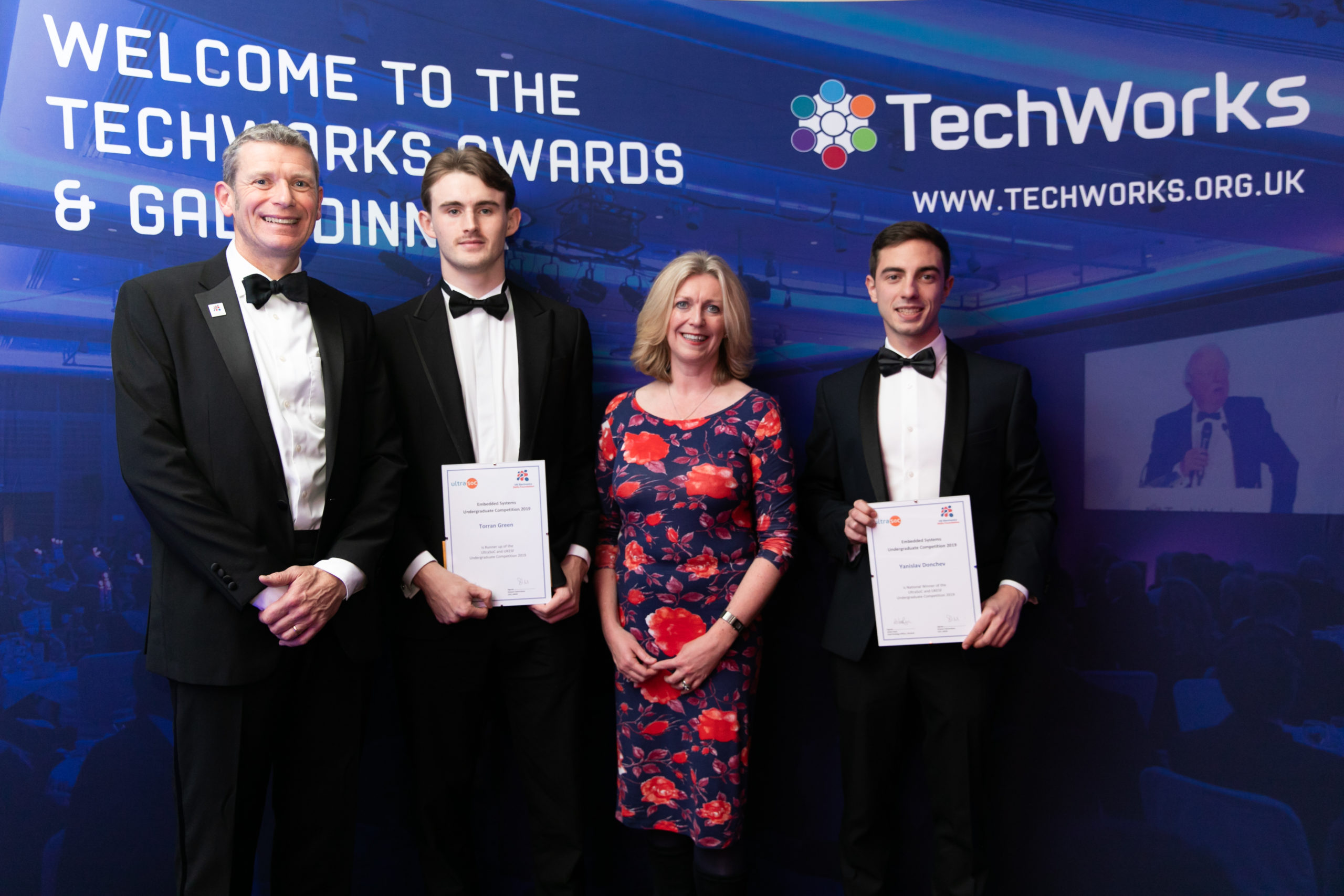
L–R: Stew Edmondson, Torran Green, Aileen Ryan (UltraSoC), Yanislav Donchev
UltraSoC supports the UKESF in running the competition, which aims to raise awareness about and interest in embedded systems among undergraduates studying Electronics. The competition highlights excellence in students completing their major individual project on embedded systems and enables understanding of how to architect and implement future complex embedded systems in the UK.
“I worked hard for my third-year project and being the national winner of the Embedded Systems Competition 2019 is extremely rewarding. I am thankful to the judges for recognising my work and to UltraSoC and the UKESF for organising and sponsoring the award. Today embedded systems are found in almost every electronic device and motivating students to leverage their experience in this field is of great importance.”
Yanislav Donchev
The national competition was open to engineering undergraduates studying at one of the UKESF’s 23 partner universities who were completing their major individual project with a principal focus on embedded systems. Entrants were required to submit to a summary of their project on an A1 printable poster, including the aim, results, impact and next steps.
The University of Southampton has produced an article about Yanislav’s project, including a video demonstrating his ‘drumless’ concept – find it here.
“Many congratulations to Yanislav for his excellent individual project on ‘air drums’. I am delighted that his hard work has been recognised through this award, and also that both of the finalists are from Southampton! This recognises the excellent quality of our students, and particularly in the domain of embedded systems.”
Prof Geoff Merrett, Head of Centre for IoT and Pervasive Systems, Electronics and Computer Science, University of Southampton
“As a leading provider of embedded analytics, we were incredibly impressed with the standard of entrants in the Embedded Systems Competition and we are delighted to have been involved. I’d personally like to congratulate Torran and Yanislav, the worthy winners of this award, and to thank Stewart and the team at the UKESF for organising. The standards of the student projects confirm our belief that companies like ourselves benefit significantly from building closer ties with academia and why our University Program is an important and on-going initiative for UltraSoC.”
Aileen Ryan, Chief Strategy Officer, UltraSoC
“The UKESF has provided me with the opportunity to meet many marvellous people.”
Hugo McNally, joint Scholar of the Year 2019
On 6th November 2019 the UKESF attended the annual TechWorks Awards & Gala Dinner, London, to announce the Scholar of the Year Award winners and hold a Fundraising Raffle in aid of our vital work in the Electronics sector. This year the event coincided with the Royal Academy of Engineering’s This is Engineering Day, making it an extra special industry celebration.
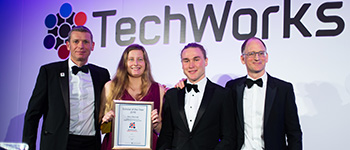
L–R: Stew Edmondson, Mary Bennett, Hugo McNally, Neil Dickins (IC Resources)
The raffle raised almost £3,000 for the UKESF, so huge thanks go to all the attendees who participated and congratulations to the prize winners! The funds raised will be channelled into hands-on STEM activities for children, summer schools for A-level students, professional development for UKESF scholars, and much more.
The UKESF had three tables at the event this year, one of which was kindly donated by Neil Dickins of IC Resources. Our guests included five UKESF Trustees, 15 former and current UKESF Scholars (including the 2019 Skills 4 UK Scholar’s Award recipient), the Embedded Systems Competition finalists and various representatives from some of the companies and organisations we partner with.
Stew Edmondson with Aileen Ryan (UltraSoC) and the Embedded Systems Competition finalists
The UKESF Scholar of the Year Award went to joint winners: Mary Bennett (University of Surrey/Embecosm) and Hugo McNally (University of Southampton/onsemi). Many thanks to IC Resources, who sponsor the award.
“My sponsoring company, Embecosm, has strongly encouraged my work as the Group Chair for the RISC-V foundations University and Open Source Outreach task group. As part of this role, I have created two awards promoting and celebrating the teaching and learning of Electronic Engineering and Computer Science across the world. Embecosm has also encouraged me to present some of my work with them at several international conferences. I am very proud of my achievements and am honoured to be named 2019’s UKESF Scholars of the Year.”
Mary Bennett
“The UKESF has provided me with the opportunity to meet many marvellous people. Not only the people at my sponsoring company and the UKESF, who have taught me immeasurable amounts, but also the network of other high-achieving scholars.”
Hugo McNally
“We are delighted that Mary has been selected as a UKESF Scholar of the Year. Mary has been sponsored by Embecosm since July 2017, where she joined us for a year working in industry and then each subsequent summer in our head office in Lymington.
During Mary’s time with us she has been a key player in Embecosm’s contributions to the open source community and is currently leading a research program using mathematically formal descriptions of computer processors in association with Cambridge University Computer Laboratory.
Mary has also worked to support the next generation of engineers by leading a variety of workshops and is the Champion of the RISC-V Foundation’s Academia and Training Special Interest Group (SIG). It is a great honour for us to be able to play a small part in her success.”
Dr Jeremy Bennett, Chief Executive of Embecosm (Mary’s sponsor company)
“Hugo demonstrated outstanding technical ability, communications skills and enthusiasm during his internal project execution, his mentoring of two new UKESF interns and through his outreach activities. Of special note was his support of the UKESF’s ‘Girl’s into Electronics’ event.”
Dr David Burrows, Head of ON Semiconductor’s Bracknell (UK) Design Centre (Hugo’s sponsor company)
“Many congratulations to Hugo for this excellent result, acknowledging the contributions that he has made to his sponsoring company and in promoting the Electronics sector. Hugo is Southampton’s 10th finalist, and 7th winner, in the 9 years that the Scholar of the Year Award has been in existence. This is a continued testament to our consistently high-quality students, and the excellent and longstanding relationship that we have with the UKESF.”
Prof Geoff Merrett, Head of Centre for IoT and Pervasive Systems, Electronics and Computer Science, University of Southampton (Hugo’s university)
The 350 attendees of the sold-out TechWorks event enjoyed a black tie three-course meal, a speech by special guest Penny Power OBE and, later, entertainment from a live party band. Penny founded a professional network called Ecademy in 1998 (pre-dating LinkedIn by four years) and was awarded an OBE in 2014 for her contribution to entrepreneurship in the social digital sector. Penny announced each of the TechWorks Award winners, and her inspiring talk received a standing ovation.
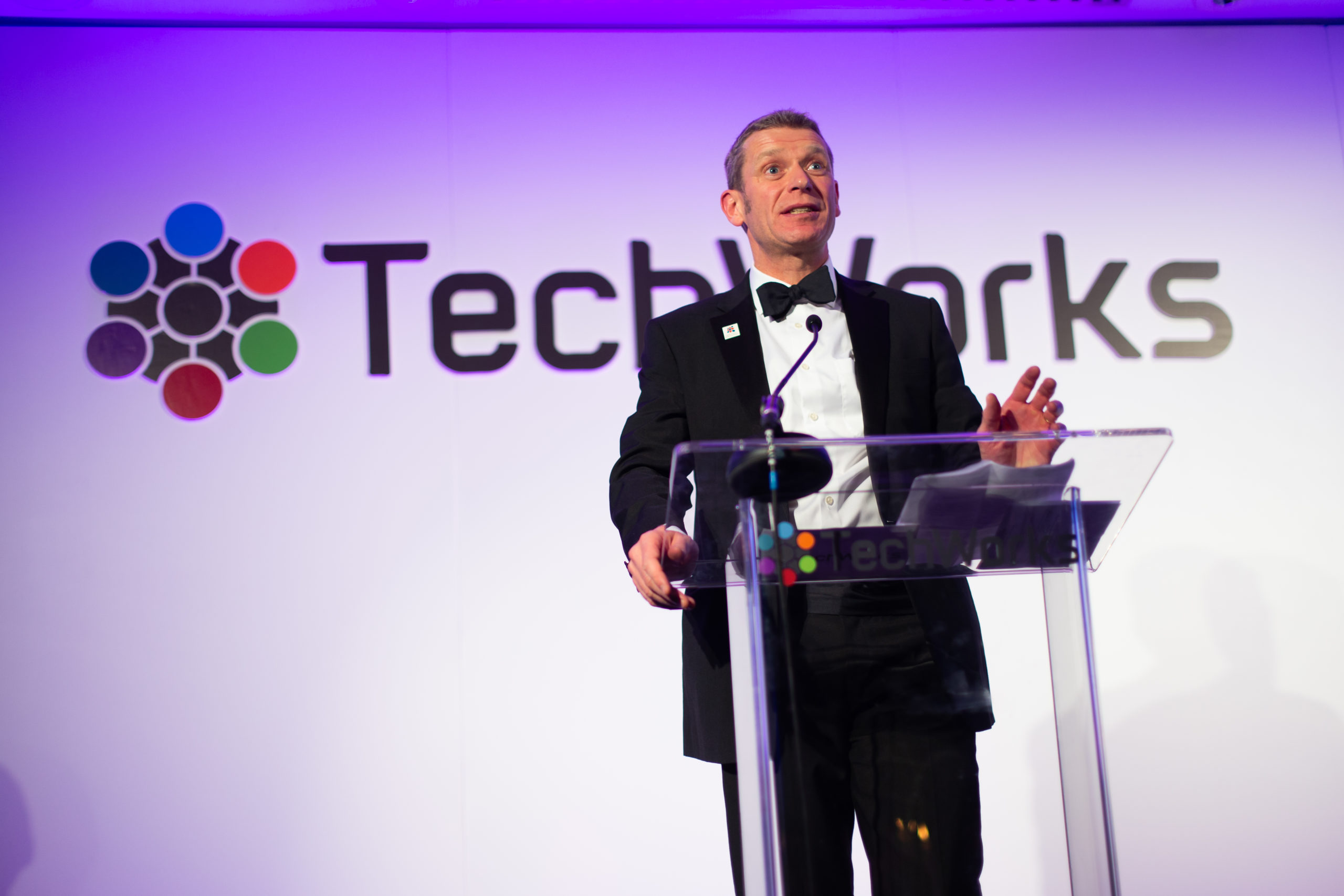
Stew Edmondson speaking at the event
Read the University of Southampton’s article on Hugo and the Embedded Systems Competition finalists here.
“This is a fantastic initiative; supporting and encouraging students is really important for Dialog, as a business.”
Ian Kent, Senior Director IC Package Engineering, Dialog Semiconductor
The UKESF works collaboratively with a number of organisations and companies to tackle the gender imbalance in the Electronics sector. This year, we teamed up with The Smallpeice Trust to hold a hugely successful ‘Girls into Electronics’ course, and developed our association with Dialog Semiconductor, a long-standing corporate partner, to launch the Dialog Award for Female Undergraduates.
Stew Edmondson, CEO of the UKESF, and Kevin Stenson, Chief Executive of The Smallpeice Trust, recently visited Dialog Semiconductor in Swindon to meet the recipients of the inaugural Dialog Award during their work placements. Click HERE to read our article about their experiences and why the Award is so important.
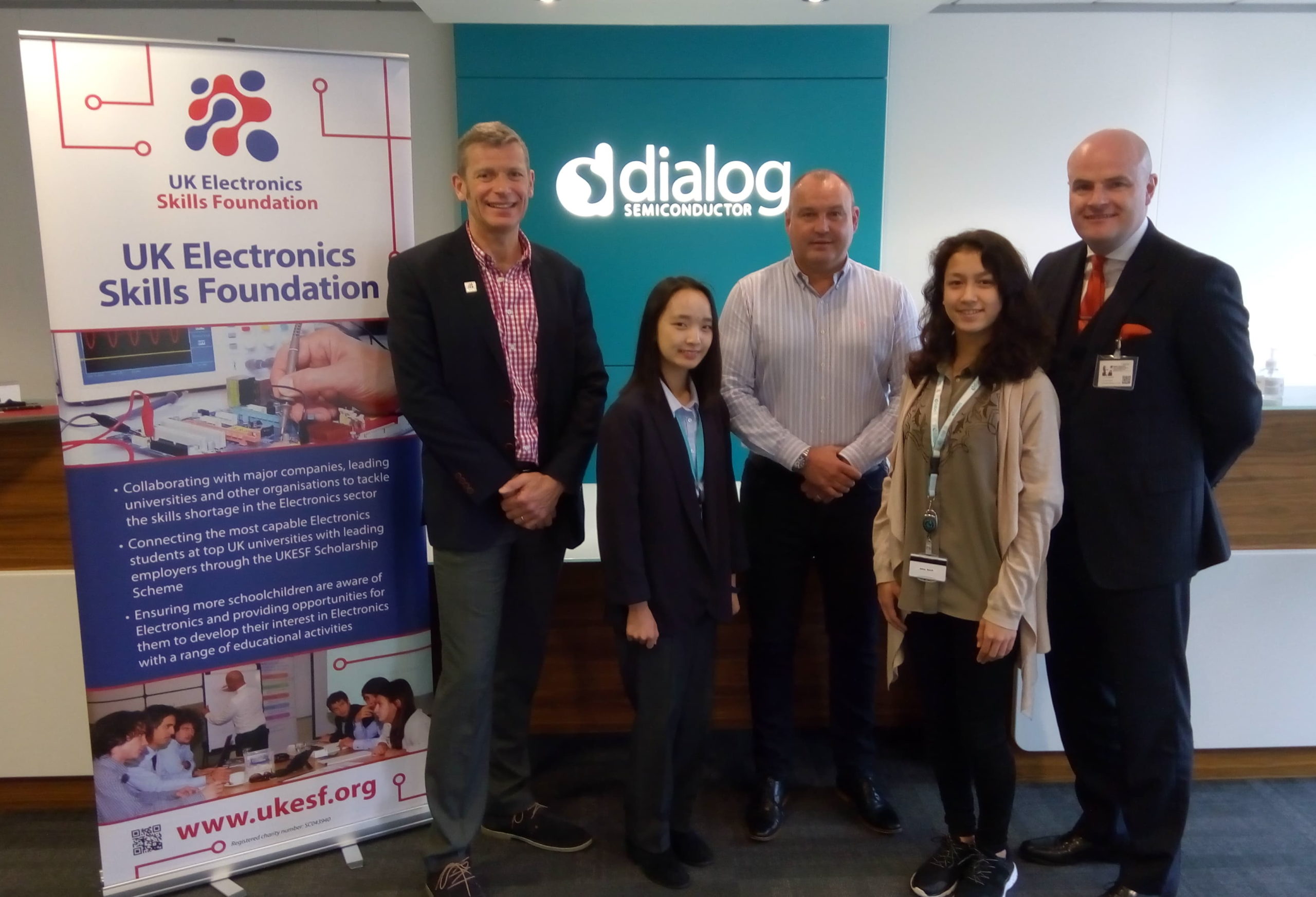
L–R: Stew Edmondson, Katie, Ian Kent, Alice, Kevin Stenson
“Fantastic four days, can’t believe I got paid for that! Many thanks!”
2019 Workshop attendee
The UKESF Scholar Workshop is an annual highlight of the Scholarship Scheme, encouraging both personal and professional development through a range of sessions delivered by a team of renowned facilitators and guest speakers. It took place 1st to 5th September this year, at the University of York, and included a work-based group project, opportunities to network with industry professionals and a celebratory formal dinner on the final night.
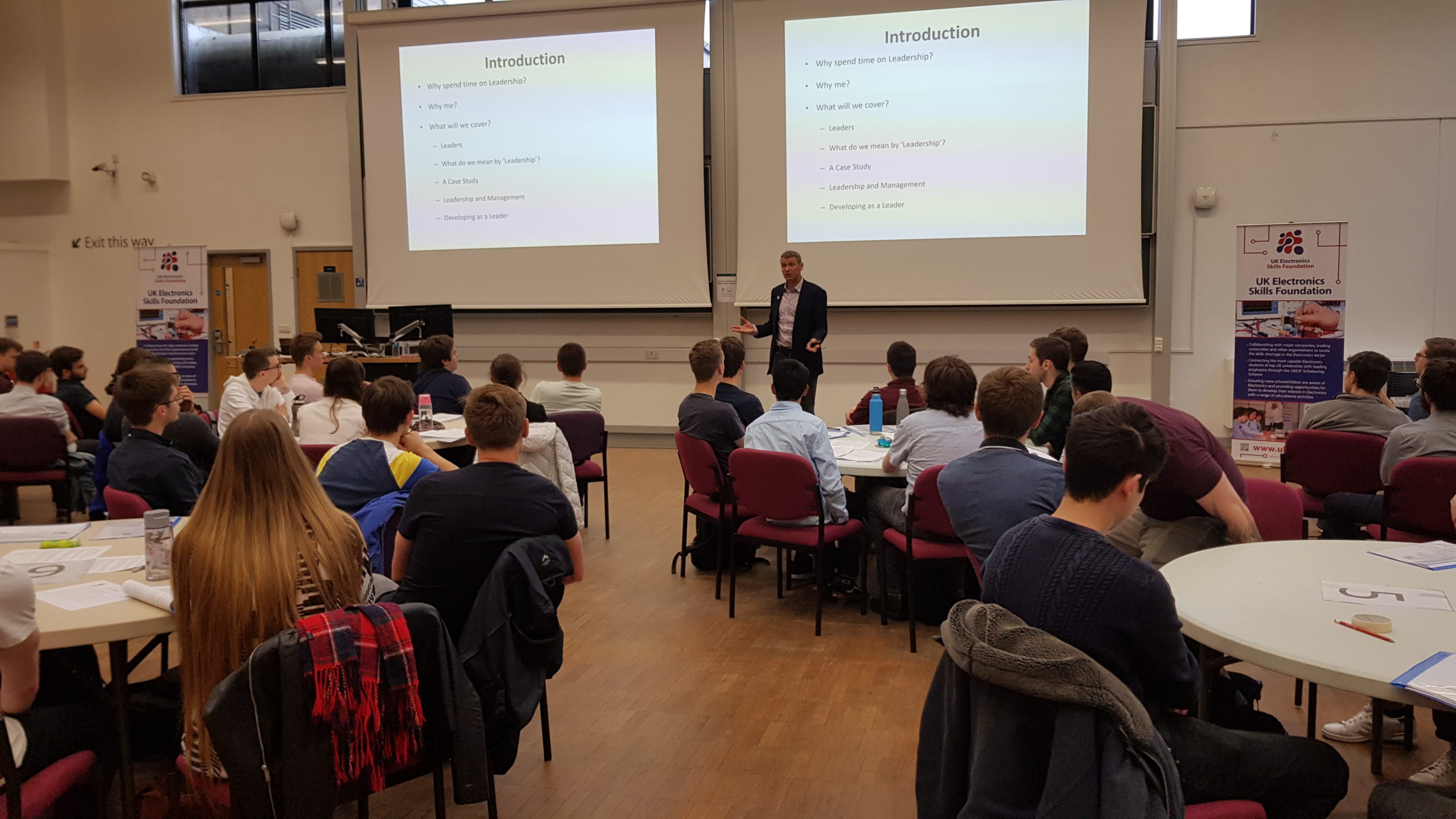
Stew Edmondson introducing the Workshop
As usual, feeback was overwhelmingly positive:
“Loved the entire week. It’s a brilliant opportunity to interact with like-minded people and the content covered is very useful and interesting.”
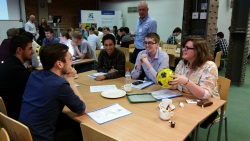
The ice-breaker activity
“This workshop 100% exceeded my expectations! I have had the best time over the past few days not only learning about different skills and information that I will use in the future but also making great friends along the way. I was so surprised after seeing the amount of scholars and thoroughly enjoyed talking to them about their experiences during placements.”
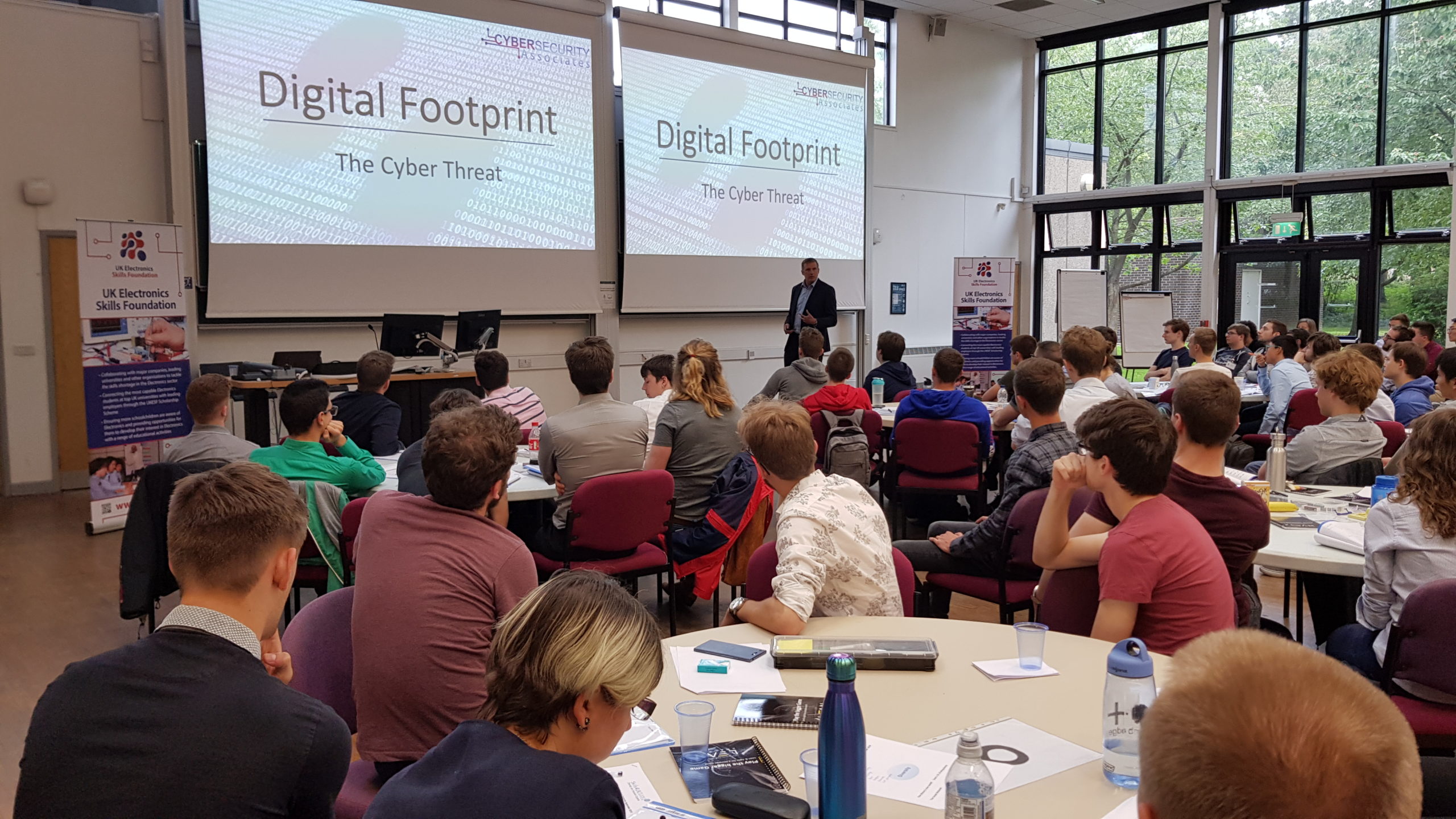
Session on cyber security
“A fantastic 4-day crash course on how to become a successful engineer. The lectures were captivating, the workshops were fun and educational, and overall it was a great opportunity to form both business connections with other students, and make lifelong friends!”
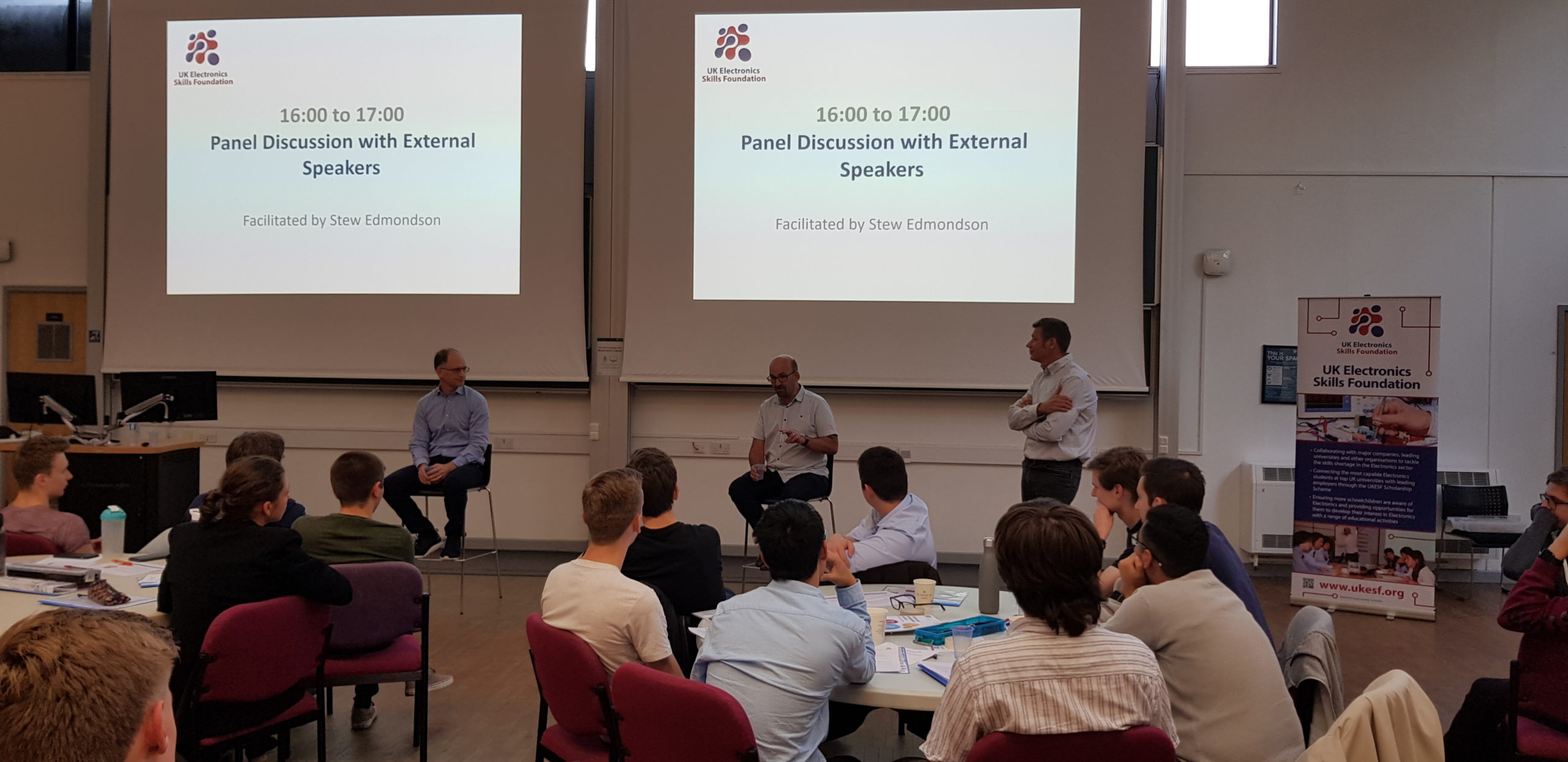
The panel discussion
“The previous interns at our company said that this workshop was really good but it still exceeded my expectations. I had a really good time and enjoyed all the talks given. All the speakers were lovely, never forcing us to talk but encouraging it. I would be happy to encourage anyone to be part of UKESF, especially to do Electronic and Electrical Engineering, it’s a great community.”
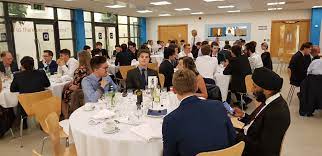
The formal dinner
Many thanks to the faciliators from Think Eleven Ltd, Team Massive Results, Skills 4 UK and Lean Practice, and to The IET, Cyber Security Associates Ltd, IC Resources and Mathys and Squire for their support.
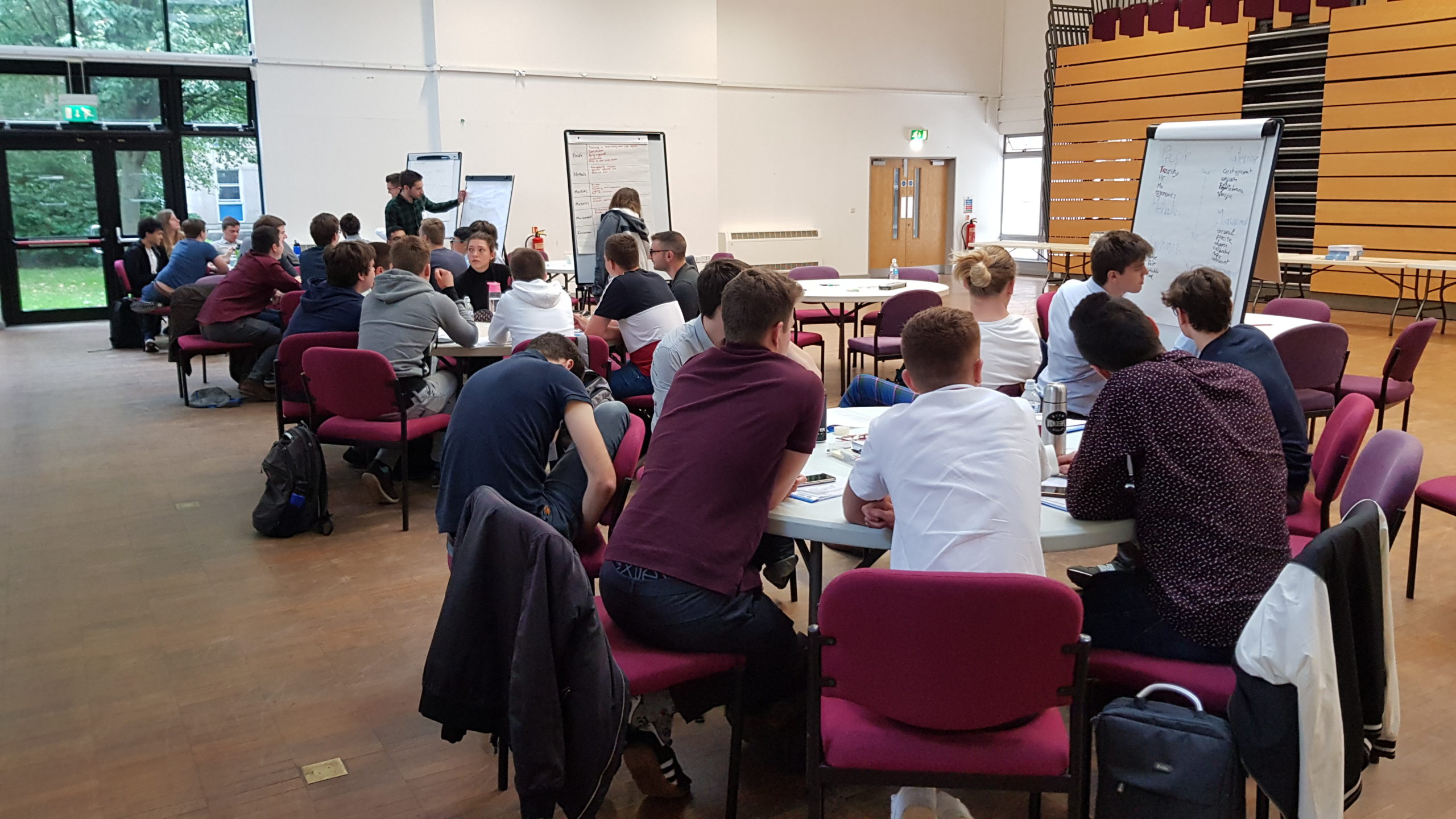
Teams working on their projects
The UKESF connects the most capable Electronics undergraduates with leading companies in the sector
The UKESF is delighted to welcome a further three new Company Partners to the Scholarship Scheme ahead of applications opening: Chess Dynamics, Graphcore and SEA.
 “Chess Dynamics Ltd is a medium-sized UK company that provides electro-optical (EO) solutions within the defence and security sectors, including sophisticated optical surveillance, communications and stabilised radar platforms and systems for land, maritime and off-shore applications.”
“Chess Dynamics Ltd is a medium-sized UK company that provides electro-optical (EO) solutions within the defence and security sectors, including sophisticated optical surveillance, communications and stabilised radar platforms and systems for land, maritime and off-shore applications.”
![]() “Graphcore has created a completely new processor, the Intelligence Processing Unit (IPU), specifically designed for artificial intelligence … Our team is at the forefront of the artificial intelligence revolution, enabling innovators from all industries and sectors to expand human potential with technology. What we do, really makes a difference.”
“Graphcore has created a completely new processor, the Intelligence Processing Unit (IPU), specifically designed for artificial intelligence … Our team is at the forefront of the artificial intelligence revolution, enabling innovators from all industries and sectors to expand human potential with technology. What we do, really makes a difference.”
 “SEA, founded in 1969, provides engineering and software design services to Government agencies, industrial prime contractors and academia. We employ high-calibre staff and place our emphasis on quality of service, innovation, flexibility and a creative approach to problem solving.”
“SEA, founded in 1969, provides engineering and software design services to Government agencies, industrial prime contractors and academia. We employ high-calibre staff and place our emphasis on quality of service, innovation, flexibility and a creative approach to problem solving.”
The UKESF Scholarship Scheme provides the most dedicated Electronics undergraduates from UKESF Partner Universities with an annual bursary and paid summer work placement, in addition to a range of other benefits. Each company will interview a number of relevant applicants and go on to provide sponsorship and professional support to one or more successful scholars. Employers interested in joining the scheme can find out more here.
Swansea University is internationally renowned for research into power electronics, telecommunications, nanotechnology and biometrics
Swansea University is the 23rd leading academic institution to partner with the UK Electronics Skills Foundation, joining 22 other universities working with the UKESF and meaning that, as the scholarship programme expands, industry sponsors will be able to connect with even more high quality students.
“Swansea University celebrates its centenary in 2020 and the founding ethos of ‘established by industry to work in partnership with industry’ is a key principle that we have followed ever since. As a university, we are very proud of our record of preparing our graduates for careers in industry and we are delighted to join the UKESF, which will further extend these valuable opportunities. The collaboration with a prestigious body like the UKESF will really help us to further develop links with industry and schools to the benefit of the entire Electronics sector.”
Prof Cris Arnold, Deputy Head of College and Director of Learning & Teaching
There is a thriving Electronics sector in Wales and so it is great to have Swansea join the UKESF as our 23rd partner university. Their new facilities at the Bay Campus are first class and they have created some exciting programmes for students.”
Stew Edmondson, CEO, UKESF
Swansea University is internationally renowned for research into power electronics, telecommunications, nanotechnology and biometrics, which feeds back into their Electrical Engineering degree courses to keep them up-to-date and relevant to industry. The Electronic Systems Design Centre (ESDC) is known for its ground-breaking research into Power IC technology and is a world-leader in semiconductor device modelling, FEM and compact modelling.
The UKESF is delighted to welcome Queen’s University, Belfast, to the Scholarship Scheme. The addition of Northern Ireland’s only Russell Group university means that the UKESF is now truly covering the whole of the UK, partnering with a total of 22 leading academic institutions nationwide. As the scholarship programme continues to expand, company sponsors are able to connect with even more high quality students.
“It is great to finally have Queen’s as a UKESF partner university. Their School of Electronics, Electrical Engineering and Computer Science has some fantastic facilities, they are undertaking cutting-edge research and they have a large number of undergraduates, so they are a most welcome addition to our network.”
Stew Edmondson, CEO, UKESF
The School of Electronics, Electrical Engineering and Computer Science at Queen’s University has been awarded the royally sealed Regius Professorship for its pioneering work in the field of cyber security. Electrical and Electronic Engineering at Queen’s is ranked in the Top 10 in the UK for research, with 93% of research rated as either ‘World-leading’ or ‘Internationally Excellent’. Students benefit from a research-led education and the opportunity to undertake final-year projects related to cutting-edge technologies.
“At Queen’s University, Belfast, we have had a strong reputation in producing highly practical engineers who can directly engage with industry. We have long recognised the importance of electronic systems and value the interaction with companies. The UKESF Scholarship Scheme is therefore ideally suited to expose our students to sponsorship opportunities.”
Prof. Roger Woods, School of Electronics, Electrical Engineering and Computer Science, Queen’s University, Belfast
As the annual Scholarship Scheme application window draws closer, the UKESF is delighted to welcome two new Company Partners: Collins Aerospace and RN Electronics. The total number of companies offering scholarships has now passed 40, with further new additions expected before applications open.
collins-aerospace,  a unit of United Technologies Corporation (NYSE: UTX), is a leader in technologically advanced and intelligent solutions for the global aerospace and defence industry. Created in 2018 by bringing together UTC Aerospace Systems and Rockwell Collins, Collins Aerospace has the capabilities, comprehensive portfolio and expertise to solve customers’ toughest challenges and to meet the demands of a rapidly evolving global market.
a unit of United Technologies Corporation (NYSE: UTX), is a leader in technologically advanced and intelligent solutions for the global aerospace and defence industry. Created in 2018 by bringing together UTC Aerospace Systems and Rockwell Collins, Collins Aerospace has the capabilities, comprehensive portfolio and expertise to solve customers’ toughest challenges and to meet the demands of a rapidly evolving global market.
 RN Electronics test electronic products to ensure compliance with worldwide standards. We are an independent test laboratory, accredited for testing of the RF performance of wireless devices and their electromagnetic compatibility (EMC). Our clients come from industries such as automotive, audio-visual and medical. We are rapidly expanding our capabilities for testing of 5G base stations, fixed-wireless access points and other latest technologies.
RN Electronics test electronic products to ensure compliance with worldwide standards. We are an independent test laboratory, accredited for testing of the RF performance of wireless devices and their electromagnetic compatibility (EMC). Our clients come from industries such as automotive, audio-visual and medical. We are rapidly expanding our capabilities for testing of 5G base stations, fixed-wireless access points and other latest technologies.
The UKESF Scholarship Scheme provides the most dedicated Electronics undergraduates from UKESF Partner Universities with an annual bursary and paid summer work placement, in addition to a range of other benefits. Each company will interview a number of relevant applicants and go on to provide sponsorship and professional support to one or more successful scholars. Employers interested in joining the scheme can find out more here.
Hosted by Royal Holloway, University of London, and run in conjunction with The Smallpeice Trust, the UKESF’s first ‘Girls into Electronics’ course has been a tremendous success. Over three days, 24 girls aged 14–16 had the opportunity to experience hands-on electronics in a laboratory, attend lectures, meet graduate engineers and develop professional skills – getting a first taste of university life while finding out what Electronic Engineering is all about.
80 girls from The Smallpeice Trust’s ‘Girls into Physics’ course joined those from ‘Girls into Electronics’ on 9th July for UKESF CEO Stew Edmondson’s talk, ‘Opportunities and Careers in the Electronics Sector’. Also speaking were Leesa Kingman (Network Manager, NMI and Power Electronics) and UKESF Scholars Lauren and Megan, who shared their experiences studying and working in Electronics.

Beko and Meggitt
Following the talks, all 104 students attended the networking with companies session in the foyer of Royal Holloway’s new Beatrice Shilling Building, the state-of-the-art home of the Department of Electronic Engineering. Eleven of the UKESF’s Company Partners supported the hugely successful event, with feedback including: “Students were amazing and full of confidence”, “Lots of insightful questions” and “Great to have so many interested young people”.
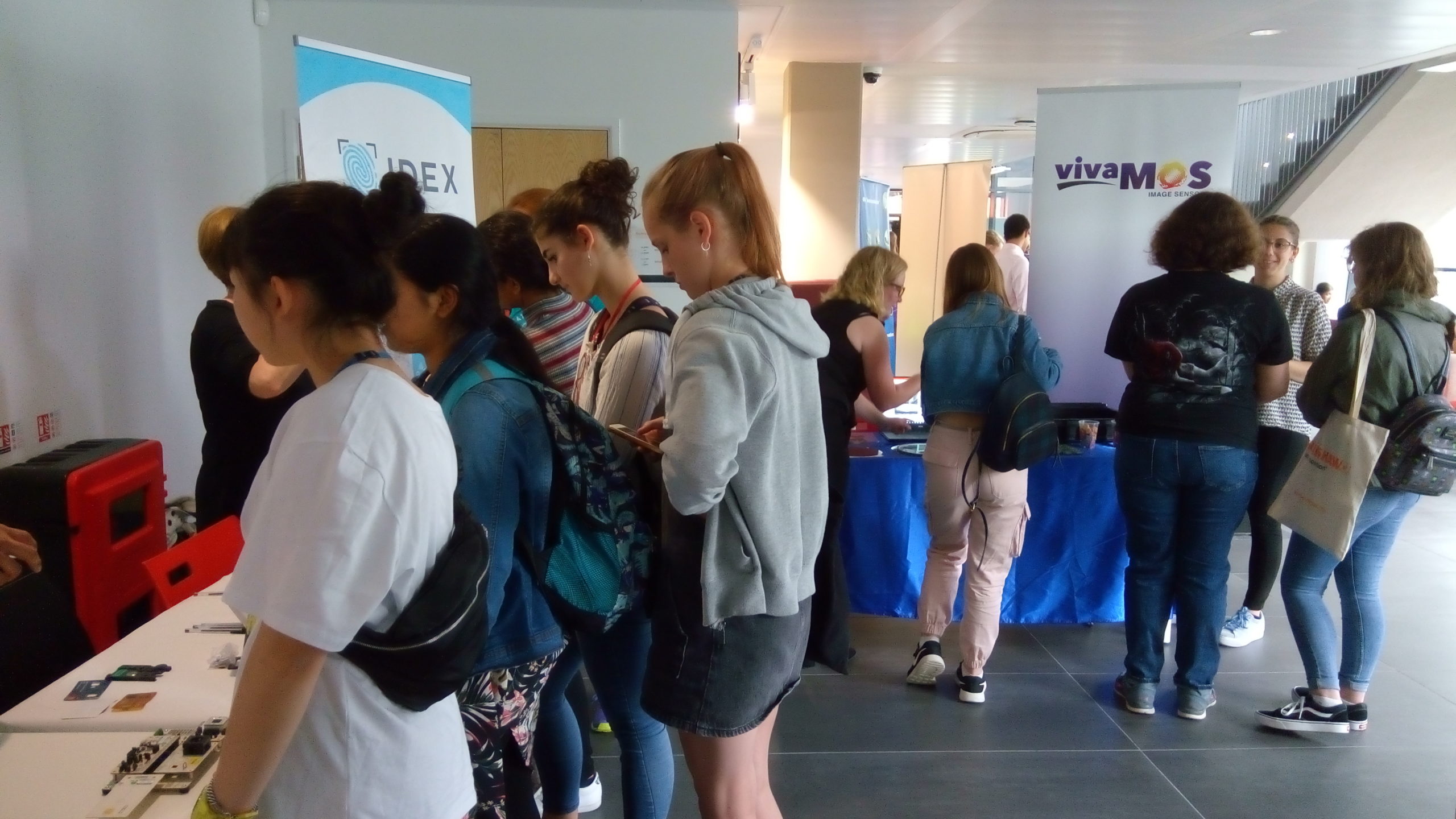
IDEX Biometrics and vivMOS
Anne McAleer, Director, Intellectual Properties, IDEX Biometrics, said, “IDEX Biometrics was very pleased to support the Girls into Electronics 2019 event. My colleague and I met a fantastic crowd of young women who were enthusiastic, smart and incredibly confident. They really grilled us with probing questions about how our fingerprint sensors worked and they were excited to see our demonstrations of how biometric technology will be applied in smart cards. It was great to be involved and I hope we inspired them to consider a career in electronics.”
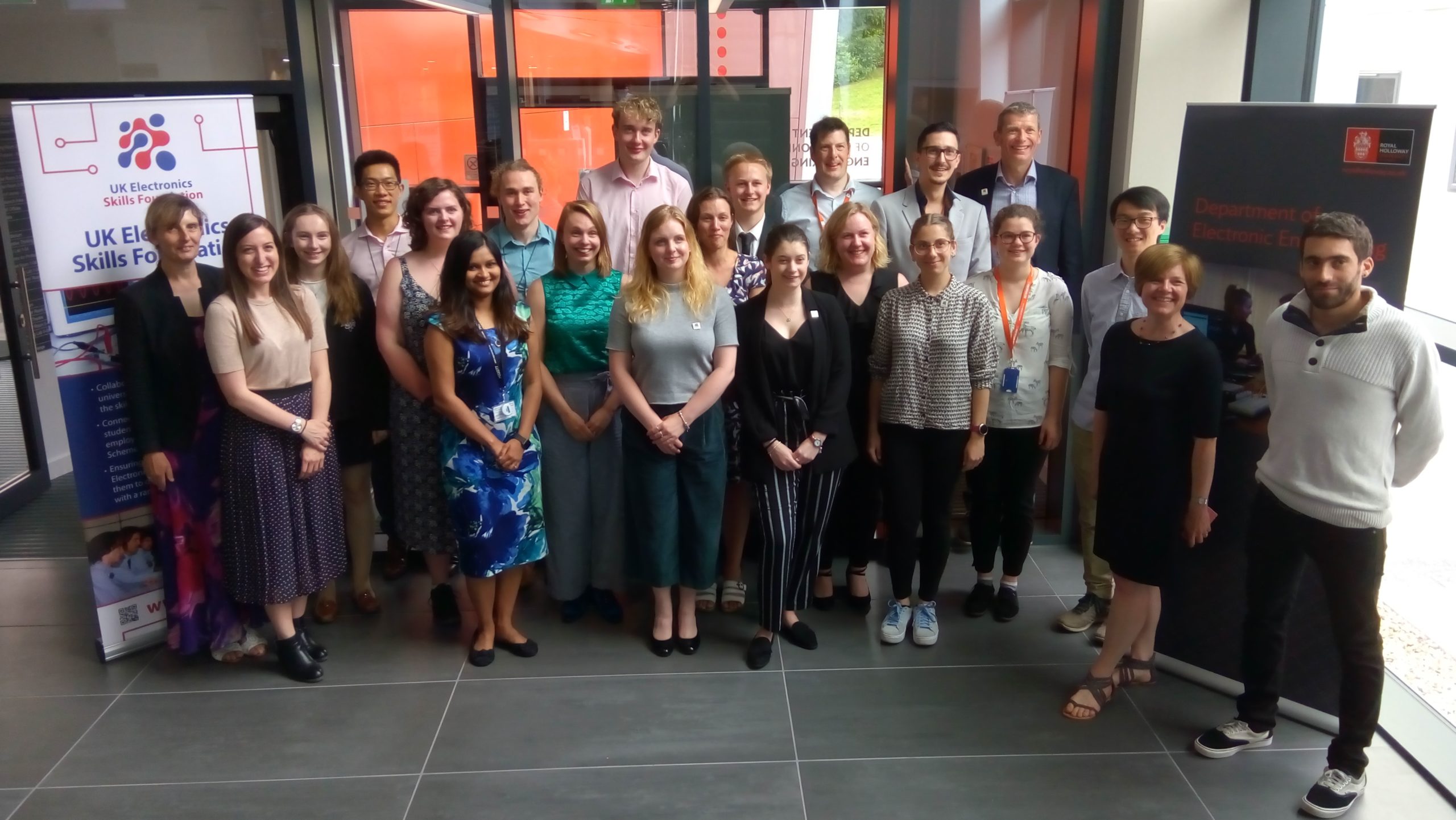
UKESF Partner Company representatives, Leesa Kingman, UKESF Scholars Lauren and Megan, with Stew Edmondson
Stew Edmondson, CEO, UKESF, said, “We were delighted to work with Royal Holloway, University of London, and to support the “Girls into Electronics” course. We want to ensure that everyone has the opportunity to explore their own interests and talents, unencumbered by society’s expectations of them.”
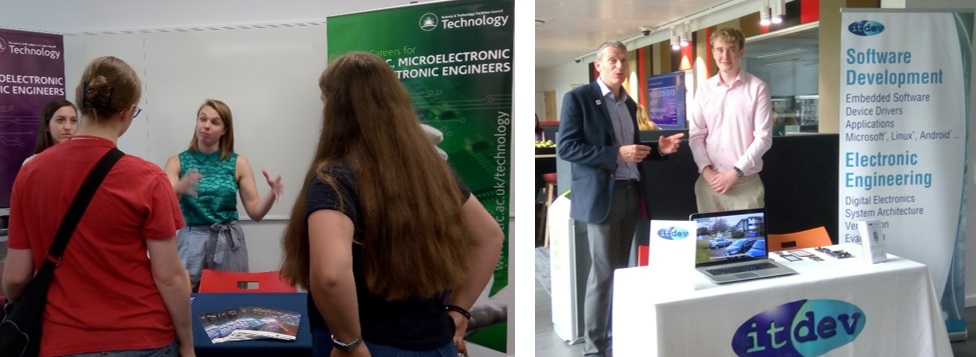
STFC and Stew Edmondson with ITDev
Prof David Howard, Head of Department of Electronic Engineering, Royal Holloway, University of London, said, “It has been a pleasure to host the event here at Royal Holloway and I look forward to future years.”
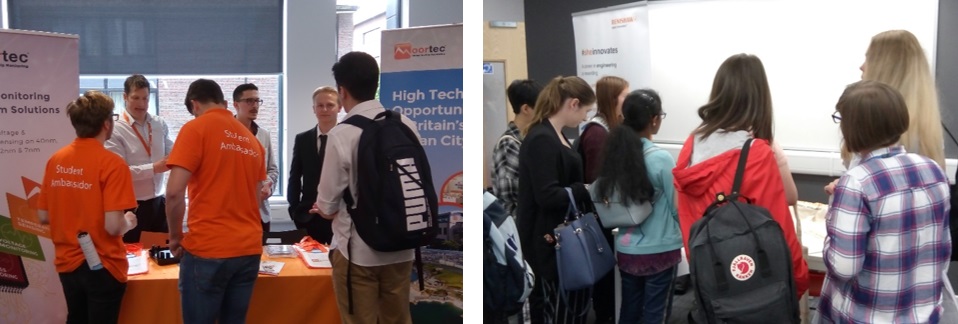
Moortec and Renishaw
Many thanks to all the companies who came along: AWE, Beko, IDEX Biometrics, ITDev, Meggitt Avionics, Moortec (now part of Synopsys), onsemi, Renishaw, STFC, Swindon Silicon Systems and vivaMOS (now acquired by Nordson). Thanks as well to Leesa, Lauren and Megan.
“Agreement by the Government for this Standard … is a significant milestone and it offers a major opportunity for employers.”
The UKESF is delighted to announce the publication of a new Apprenticeship Standard for the Electronics Sector. The Standard, at Level 7, is for the occupation of ‘Electronic Systems Principal Engineer’; it is aimed at post-graduate engineers and has been developed with a group of major employers. It has been approved for delivery, with a funding allocation of £14,000, by the Institute for Apprenticeships & Technical Education, as Stew Edmondson (CEO, UKESF) explains:
“The Government has been encouraging employers to take ownership of the skills agenda for some time. We have been helping employers engage with apprenticeships and, in conjunction with TechWorks, have been working with a group of leading employers to develop this new apprenticeship standard. As the Standard is a post-graduate qualification, it reflects what the Electronics industry in the UK really wants and needs. It will provide a way for those Levy-paying employers to channel their payments into skills development and for non-contributing companies to access Levy funds to fund the development of their engineers.
“Agreement by the Government for this Standard, with a funding allocation of £14,000 per apprentice, is a significant milestone and it offers a major opportunity for employers. We are now encouraging universities to offer programmes aligned to this Standard and for a widespread uptake across the Electronics industry.”
Details of the Standard can be found HERE.
Employers can find out more by contacting the UKESF ([email protected]) and via this Degree Apprenticeship Factsheet.
On 26th June the UKESF celebrated the three finalists of the 2019 RF Engineering & Communications Competition as part of the Cambridge Wireless International Conference in Hinxton, Cambridgeshire.
This annual competition, run in partnership with the Radio Communications Foundation (RCF) and with support from Leonardo, highlights the work of students at UKESF partner universities who are focusing on RF engineering and communications in their final year. Entrants are required to submit a poster summarising their major individual project.
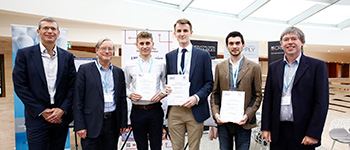
L–R: Stew Edmondson, Trevor Gill, Calum, Edward, Andrey, Prof Kevin Morris
The first place prize of £1,000 was awarded to Andrey Miroshnikov for his outstanding project: ‘Exploration of Under-Sampling PA Output for Efficient Digital Pre-Distortion’, a unanimous decision by the judges. Andrey is a UKESF Scholar who studies at the University of Bristol and is sponsored by Dialog Semiconductor.
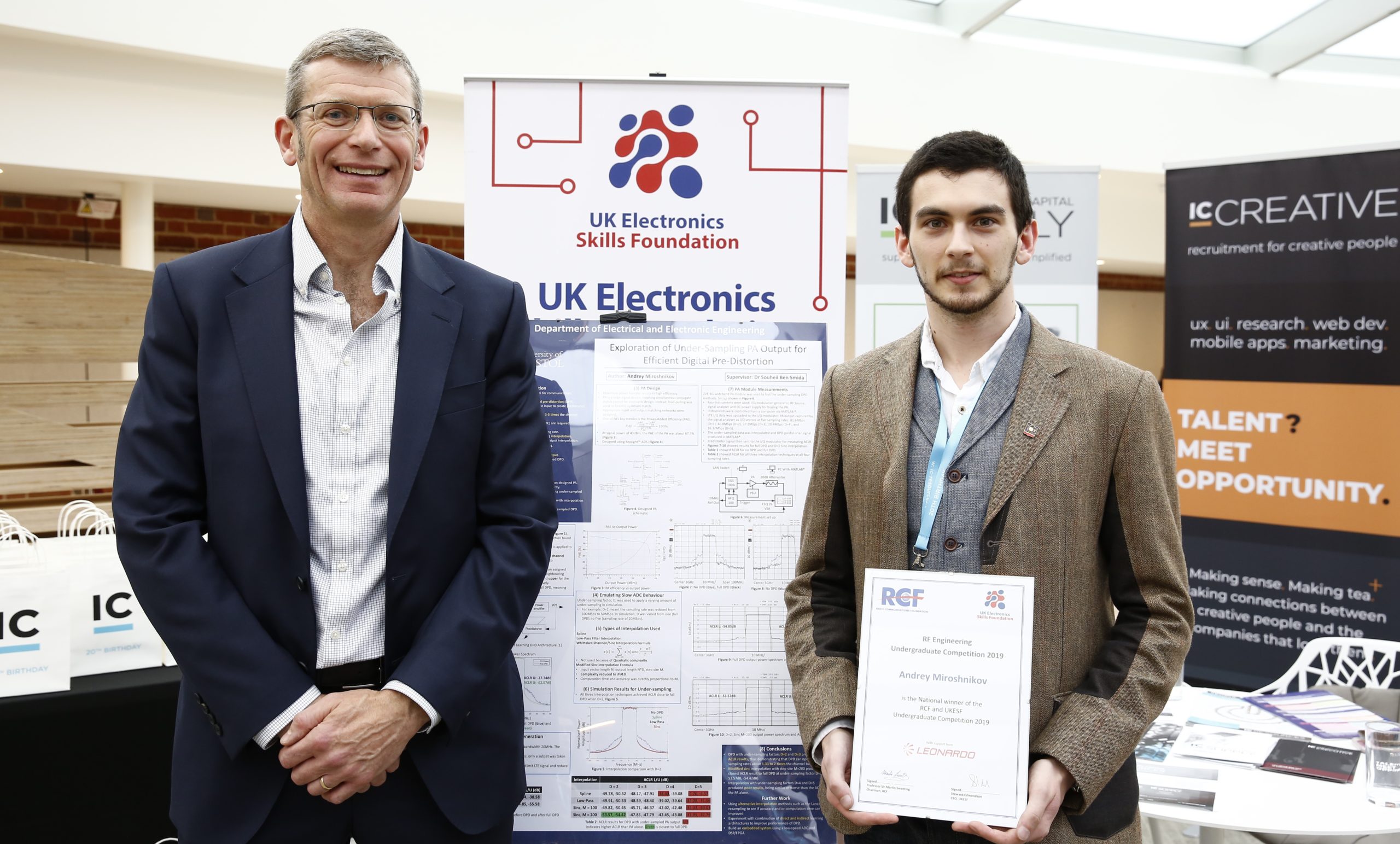
Stew Edmondson with winner Andrey
Andrey said, “Electronics is something I started studying long before university and I’m glad for the opportunities I’ve been given. During my level 2 BTEC and A-levels I was introduced to real, practical applications of Electronics. At university I learned how to apply physics and maths to solve real-world problems efficiently.
“UKESF is an organisation that helped a great deal during my degree by connecting me with an employer who I’ve had three successful internships with, providing me with annual bursaries, as well as connecting me with fellow graduates and people in the industry during the UKESF Workshop.
“This RF award was an incredible surprise, and I am ecstatic to have won. It’s great to know that the time I have spent researching and writing lead me to conclusions that other people may use in the future. This wouldn’t be possible without the guidance of my supervisor, feedback from my assessors and fellow class mates, moral support of my friends and parents.
“What happens next? I will use the award prize to upgrade my lab at home and continue tinkering with personal projects during my spare time!”
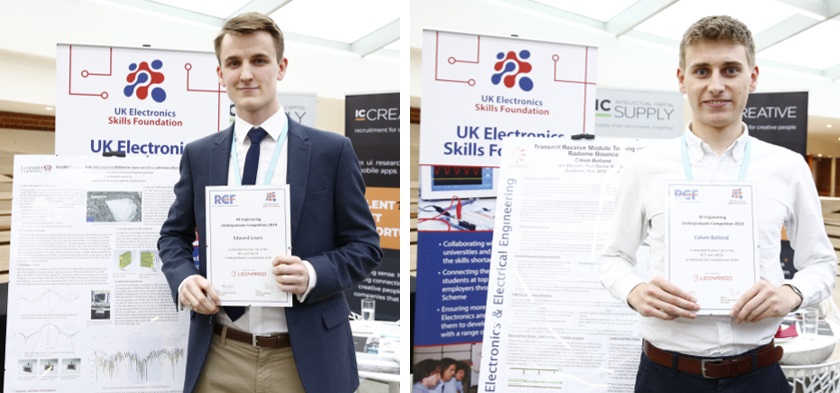
Runners-up Edward and Calum with their posters
The two runners-up each received £500: Edward Lewis (Lancaster University) for his ‘Variable Aperture Horn Antennae for Millimetre wave Wireless Communications’ project and Calum Bolland (University of Edinburgh) for his ‘Transmit Receive Module Testing Using Radome Bounce’ project.
UKESF CEO Stew Edmondson said, “With entries from undergraduates studying at twelve of our partner universities this year, it is clear that the RF competition is growing stature. It was great to be able to present the finalists with their prizes at the prestigious CWIC.”
Many thanks to our judging panel: Trevor Gill of RCF, Dr Merv Haynes of Leonardo and Prof Kevin Morris of University of Bristol, and to CW for kindly inviting us to be part of their conference.
“Many of the students came and thanked me and said how much they enjoyed it”
Eddie Ball, Reader in RF Engineering, University of Sheffield
The 2019 UKESF-Headstart Summer School was hosted by the University of Sheffield, from 16th to 20th June. Almost 70 final-year A-level students attended the residential course, which provided an opportunity to learn more about studying Electronics at degree level and take part in a variety of lectures, labs, visits and networking events, as well as a first taste of university life.
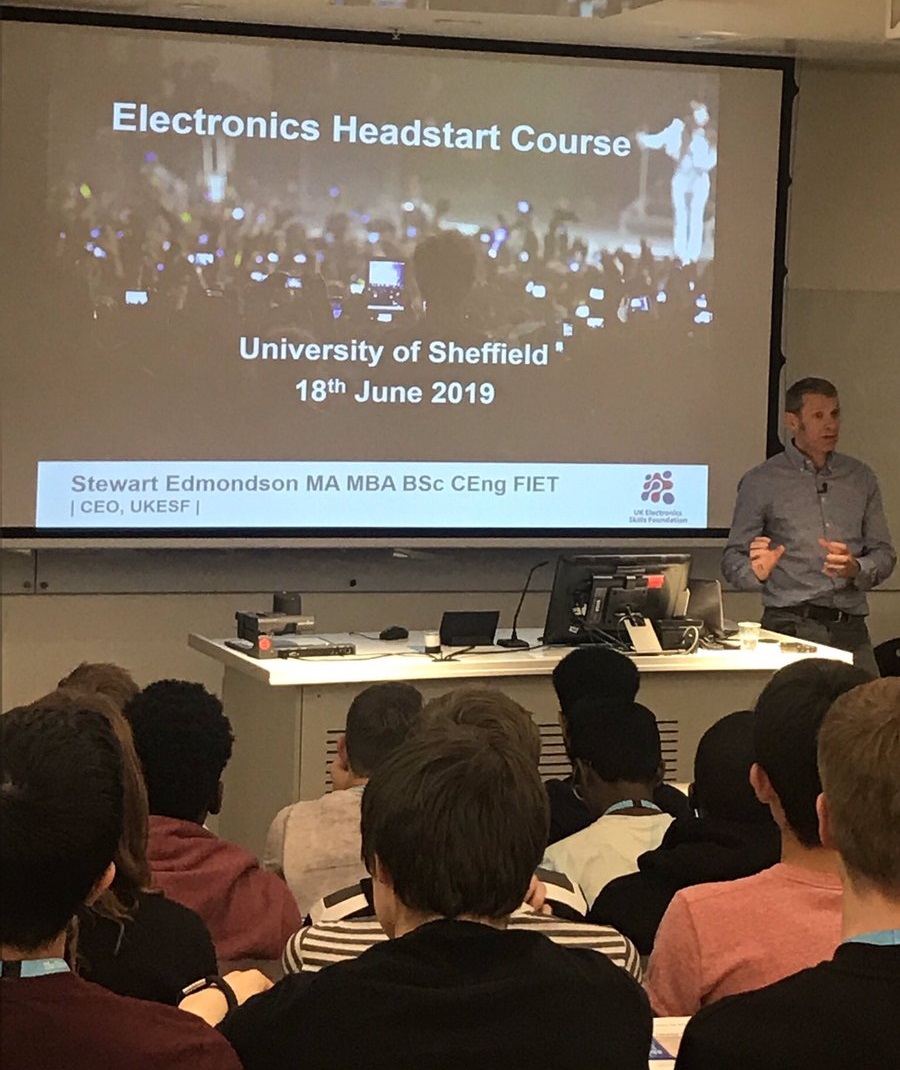
Stew Edmondson with the students
The networking with companies session was particularly successful, with an excellent level of interest and engagement from the students. Thank you to the UKESF Company Partners who came along to support the event: Arm, AVL, AWE, Qualcomm, Sky, UltraSoC (now acquired by Siemens) and Waters. Many thanks as well to UKESF Scholars Peter and Andrey, who gave talks to the attendees.
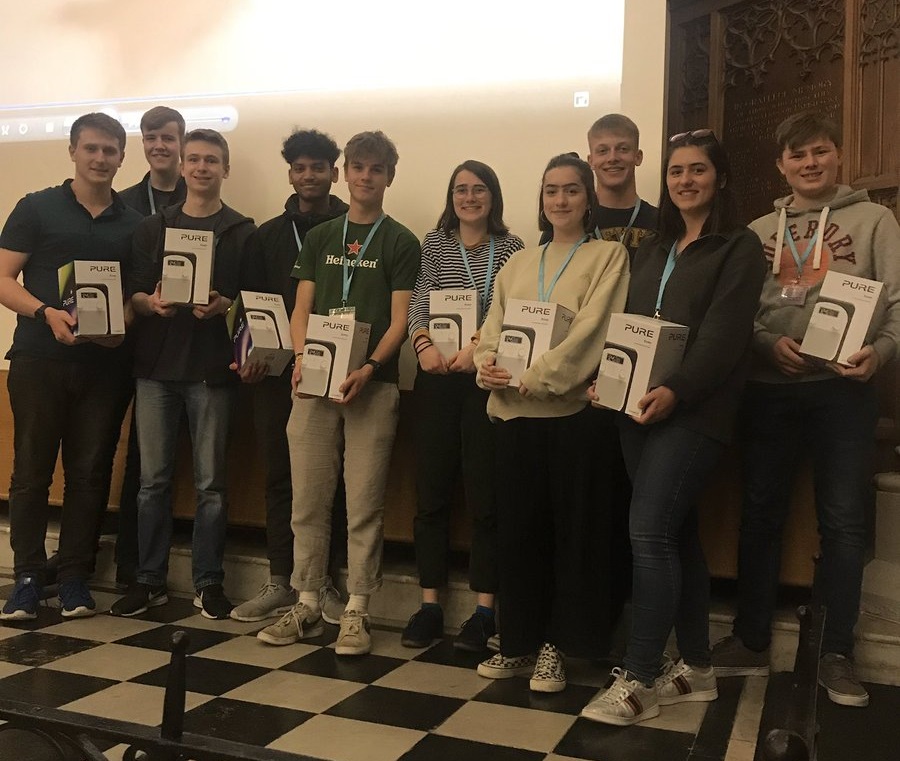
Winners of the Robot Challenge with their prizes – digital radios kindly donated by PURE
“I think it has been a significant success – the project went really well, with most of the students getting the sensor PCBs and robot working sufficiently for the competition … Afterwards, many of the students came and thanked me and said how much they enjoyed it, which is credit to us all … Thank you for the opportunity to host such an important event.”
Eddie Ball, Reader in RF Engineering, University of Sheffield
“I was ever so pleased with the Electronics Summer School and would like to say a massive thank you to all the UKESF colleagues. The UKESF provided the catalyst to deliver the Electronics Summer School, which has been an aspiration of mine for a number of years as it is a fantastic discipline that is still unrecognised by the younger generation. I’m keen for the department to continue delivering some form of Electronics & Electrical Engineering summer school next year and hopefully beyond!”
Gemma Greenup, Recruitment Manager, University of Sheffield
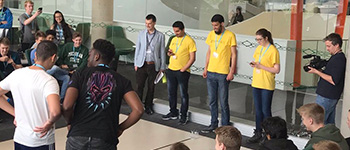
The Robot Challenge in action
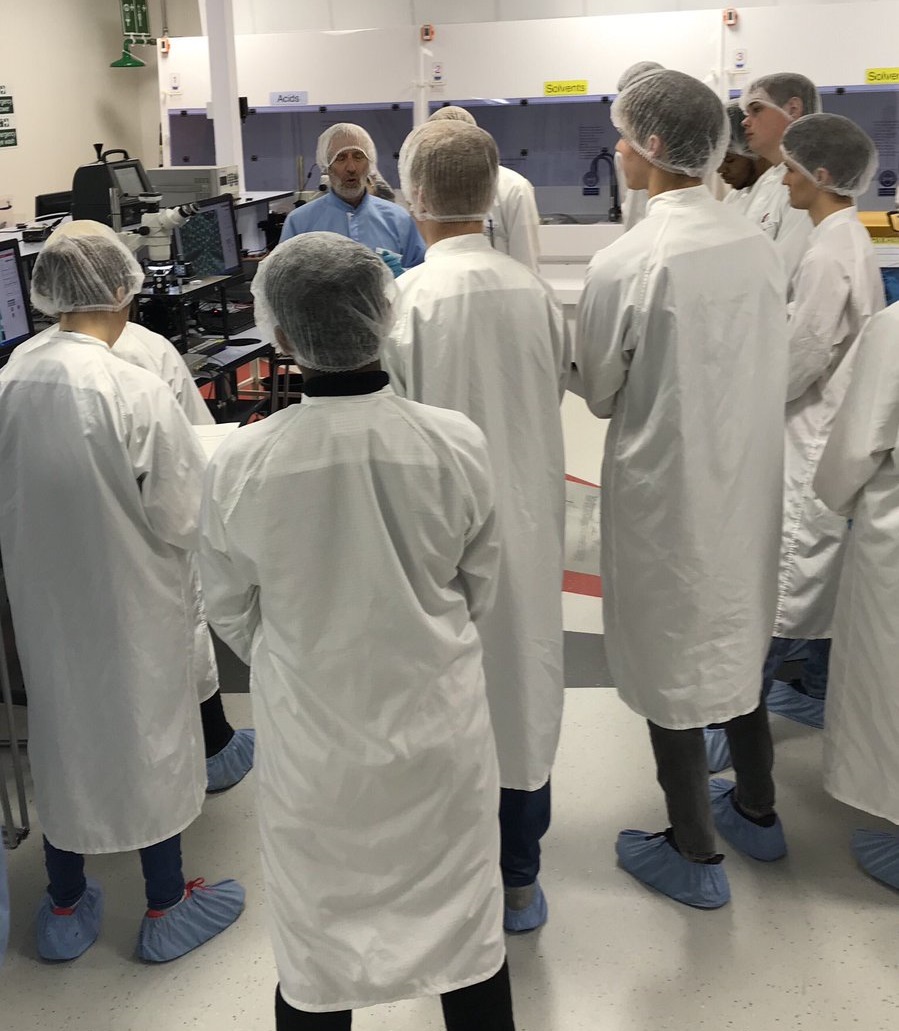
Dr Gavin Williams demonstrating how to make a light-emitting diode in the Clean Room
“I really enjoyed the course, there was a good mix of lectures and practical workshops. The social activities were also really enjoyable and the ambassadors were all friendly.”
“I enjoyed the Clean Room looking at the science behind LED lights, I enjoyed soldering and programming a robot, making friends, I may have found a new passion.”
“Some of the talks with people who have done engineering degrees and are now working in engineering job roles explaining what they do and what paths they took, this really sparked some more of my ambition and now I aspire to be like some of them.”
“The course made me realise that there are people similar to me in STEM, I made some really good friends and it has definitely confirmed for me that this is what I want to do.”
The UKESF has been featured in an article on the CW (Cambridge Wireless) website, ‘Are you missing out on the best graduate talent?’.
…Committed to addressing this issue, the UKESF is a not for profit whose mission is to encourage more young people to study Electronics and to pursue careers in the sector. Led by CEO Stew Edmondson, the team works collaboratively with major companies, leading universities and other organisations to tackle the skills shortage in the Electronics sector. A number of CW’s members are already engaged with their programmes, including Arm, Qualcomm, IC Resources and Plextek.
UKESF would like to see more engineering firms offer student work placements and supporting undergraduates in their professional development, so that when they graduate these students are equipped with work-ready skills and experience.
“We firmly believe that we, as an industry, need to do more to support those studying at university. The IET reports that only 37% of respondents to their survey on Skills & Demand in Industry provided work placements to engineering and technology students. This is disappointingly low percentage; investing in undergraduates to give them practical real-world experiences that complement their academic studies is a real ‘win-win’.”
Stewart Edmondson, CEO of UKESF
Placements are a mutually beneficial process that offers invaluable return to both employer and student. For the business, placements offer a low-risk talent pipeline through which you, secure in the knowledge of an individual’s performance and capabilities, can offer graduate contracts; it also creates opportunities through which you can train future managers (line-managing a work placement student is a great first step on the managerial ladder), and it ensures that your organisation plays its part in nurturing the future of the UK’s engineering skills base…
Read the full article here.
This year we had a record number of UKESF Scholarships awarded to female undergraduates – 16% of the overall number and 5% more than last year
Ahead of this year’s #INWED on 23rd June, I wanted to return to the topic of gender parity in our sector.
Modern day Electronics is about using technology creatively to develop innovative products that make people’s lives better and help our society. Our engineers have never worn hardhats and they are in high demand. Therefore, the appeal should be universal; who doesn’t want to make a difference and help shape our future? However, there has been a massive gender imbalance in the sector.
To be honest, we simply can’t afford to ignore nearly half of the population if we are serious about tackling the UK’s shortage of Electronics designers and engineers. Electronics is a creative and innovative subject. Therefore, girls could enjoy it if they didn’t so often rule it out at an early age due to stereotyping and biases, and if it were taught in a way that engages them.
Here at the UKESF, we are supporting two practical initiatives this summer. The first is a ‘creative’ Electronics course for sixth formers being organised by York, one of our partner universities. Secondly, we are organising our inaugural girls-only residential course with our friends from the Smallpeice Trust. ‘Girls Into Electronics’ will be held in July at Royal Holloway, University of London, another of our partners. We want to ensure that everyone has the opportunity to explore their own interests and talents unencumbered by society’s expectations of them.
So, are there signs of progress?
The first point to make is that we are starting from a low baseline. As the IET campaign self-evidently states, we know that ‘9% is not enough‘ (women represent only 9% of the engineering workforce in the UK, according to an IET Skills and Demand in Industry survey).
However, I would like to share with you two more encouraging percentages that I think provide some evidence that we are making progress.
Firstly, the number of female UK students starting Electronic & Electrical Engineering degrees. According to UCAS, from a low point in 2013 of 470 female students, there has been an 18% increase (to 555 females in 2018). So, whilst the numbers are still low this is an encouragingly positive upward trend.
Secondly, this year we had a record number of UKESF Scholarships awarded to female undergraduates; there were 11 scholarships awarded, which is 16% of the overall number and 5% more than last year.
Now these percentages are well less than we would like; however, they are both better than 9%. The upward trend is encouraging and it shows that there are some grounds for optimism. It would be great to build on this; with the support of more companies, then we can do even more to help female undergraduates gain vital work experience in the future. If you would like to learn more about our UKESF Scholarship Scheme, then the latest Guide for Employers can be downloaded here.
“Are we abandoning an industry responsible for 6% of our GDP?” asked our great friend and UKESF Trustee Neil Dickins in his recent IC Resources blog post.
In his post, Neil put forward a passionate argument that we need more young people in the UK pursuing careers in the sector in order to maintain our position as a global economic leader in Electronics. This ‘economic’ case for Electronics is one that I have made myself, many times, in the past. Undoubtedly, it is a compelling, rational, ‘left brain’ argument to ‘do something’ and to support our work at the UKESF. There is also a ‘right brain’, emotional, argument.
The recently published 2019 report by Tech Nation states that the “outcomes of tech impact on the environment, communities, health, education mobility and transport”. We know that Electronics is the fundamental bedrock of ‘tech’; indeed, without Electronics there would be no tech. The Tech Nation report lists the things that are enabled by technology; this includes:
freedom of expression, human advancement, application of knowledge, and modernity.
These are really big, powerful, concepts. They are all linked to doing good and improving people’s lives – emotionally as well as physically. So, as well as our economic wellbeing as a nation, Electronics is needed for the ‘good of our society’.
A career in Electronics offers the opportunity to make a difference, both to people’s lives and to our planet as a whole. Therefore, whether you are a left-brain or right-brain thinker, supporting the work of the UKESF should be a ‘no-brainer’.
We are promoting the simple message: Technology is our Future; Technology depends upon Electronics through our #TurnOnToElectronics campaign. Therefore, please watch and share the campaign video and download the manifesto by visiting turnontoelectronics.org or follow @TOTElectronics.
We are also working to provide hands-on Electronics experiences to schoolchildren, as part of their computing and physics lessons. As Neil says:
“A taste of Electronics that may well ignite a passion or spark an interest that will last a lifetime or even many lifetimes.”
We provide classroom sets of Electronics boards and essential training for teachers. However, we need your support to reach more schools, right across the UK. Find out how to support our campaign here.
We are promoting the simple message: Technology is our Future; Technology depends upon Electronics
Over 95% of respondents to a recent survey said that they would recommend the UKESF Scheme to another company
With the participation of our sponsor companies, we are delighted to say that the UKESF Scholarship Scheme has become even more successful this year. We really appreciate their support and wanted to share some highlights from the current academic year…
As our Scheme grows and more employers join, we are extremely pleased that employer satisfaction remains exceptionally high. A recent survey[1] told us:
We have 21 partner universities right across the UK, and we continue to attract really high-quality students from these leading universities.
This year we received over 280 applicants from undergraduates, and the number of UKESF Scholarships awarded to rose by 26% compared to the previous academic year. It is pleasing that 16% of Scholarships were awarded to female students, a 5% increase.
Gaining experience though work placements is at the heart of our Scholarship Scheme. We have had some great feedback on the value that students have gained from their placements:
“My experience as a UKESF scholar has been fantastic, and I recommend the scheme to anyone considering a career in the Electronics industry.” Ricki (University of Southampton/UltraSoc, now acquired by Siemens)
“I absolutely loved my placement, it was nothing like any job I have done before; it was intellectually stimulating, exciting and really fun.” Brendan (University of Southampton/VivaMOS, now acquired by Nordson)
Our graduated scholars have continued to receive national recognition. Electronics Weekly selected four former UKESF Scholars as part of the group of ‘BrightSparks’ for 2019. In November, Emma Curati-Alasonatti (University of Southampton/Arm) became the TechWorks’ Young Engineer of the Year.
Helping the industry tackle its skill shortage and encouraging more young people to pursue careers in Electronics is what the UKESF is all about.
Since 2012, over 220 students have completed a UKESF Scholarship. Of these, more than 83% are employed by Electronics or Technology companies; a further 14% are studying for a PhD or doing research at a university. Around half of graduates are working for a UKESF sponsor company.
[1] A survey completed by 21 scholarship supporting companies in April/May 2019.
The EW BrightSparks 2019 have just been announced, and the UKESF is delighted to congratulate the four scholars who made the list this year. This is a fantastic result; double the number selected in 2018. We are extremely proud of the quality and high calibre of the students that join our undergraduate Scholarship Scheme – one of the reasons the value of the scheme is increasingly recognised by companies right across the Electronics sector – and it is heartening when they receive public recognition.
The EW BrightSparks programme is run by Electronics Weekly in partnership with RS Components, and aims to highlight the brightest young electronic engineers in the UK. This year’s winners were celebrated at an event at The IET in London on 2nd May.
If you would like your company to join our Scholarship Scheme and connect with exceptional undergraduates like Emma, Nathan, Louisa and Ricki, details can be found here or by contacting [email protected].
The UKESF is delighted to announce a new competition to raise awareness about and interest in embedded systems among undergraduates studying Electronics. Kindly sponsored by company partner UltraSoC, the competition will highlight excellence in students completing their major individual project on embedded systems and enable understanding of how to architect and implement future complex embedded systems in the UK.
This national competition is open to engineering undergraduates studying at one of the UKESF’s 21 partner universities who are completing their major individual project (3rd or 4th year; 4th or 5th year in Scotland) with a principal focus on embedded systems. Entrants are required to submit to their university contact a summary of their project on an A1 printable poster by Friday 28th July 2019 – for full details of what to include, along with eligibility requirements, please see the competition webpage.
The winner will receive £1,000, with a runner-up receiving £500. The prizes will be awarded at the TechWorks Gala Dinner & Awards in London, Thursday 21st November 2019.
“At UltraSoC we believe that strong links with the academic world provide multi-faceted benefits to everyone involved – an opportunity for students to learn about and use state-of-the-art commercial products, an opportunity for UltraSoC to stay abreast of the latest academic developments in many related relevant fields, and the ability for us all to advance our industry together. We are delighted to sponsor this UKESF project and very much look forward to reviewing the entries.”
Aileen Ryan, Chief Strategy Officer
Find out more on the Embedded Systems Competition webpage.

“The Automotive Electronics industry is going through unprecedented change, and the security challenges we face … will be solved by the next generation of engineers and scientists…”
lan Banks, Chairman, AESIN
The automotive sector is changing radically. Integrated Electronic Systems (ES) are becoming increasingly important and sophisticated, totaling as much as 40% of the components of some vehicles. Electronics accounts for 80% of in-vehicle innovation, and ES continues to have a hugely positive impact on car safety, security, economy and control. The UK already has a strong presence in the automotive sector globally, but the race is now on for automotive companies to embrace open innovation practices and focus on accelerating the delivery of advanced ES into their vehicles.
Therefore, the UKESF is delighted to announce a new Automotive Electronics Competition, which aims to raise awareness about and interest in automotive electronics and security among undergraduates. The competition is being run in partnership with AESIN (Automotive Electronic Systems Innovation Network) and is kindly sponsored by company partner UltraSoC.

Entrants are required to produce a ‘thought piece’ about the future of cyber security for connected and autonomous vehicles and submit it to the UKESF. The piece should be along the lines of a blog post in style, rather than a formal essay, and be submitted by Sunday 1st September 2019. For full details of what to include, along with eligibility requirements, please see the competition webpage.
The winner will receive £1,000, with a runner-up receiving £500. The prizes will be awarded at the AESIN Conference on Tuesday 1st October 2019, taking place at the National Motorcycle Museum in Solihull. Both finalists will be invited to the conference and dinner as guests of AESIN/TechWorks, and both winning entries will be published.
“AESIN are delighted to be able to support the Automotive Electronics Competition. The Automotive Electronics industry is going through unprecedented change, and the security challenges we face both now and in the future with Connected and Autonomous vehicles will be solved by the next generation of engineers and scientists who truly understand the challenges of Digital Resilience and Cyber Security in the new Automotive space.”
Alan Banks, Chairman, AESIN
“At UltraSoC we believe that strong links with the academic world provide multi-faceted benefits to everyone involved – an opportunity for students to learn about and use state-of-the-art commercial products, an opportunity for UltraSoC to stay abreast of the latest academic developments in many related relevant fields, and the ability for us all to advance our industry together. We are delighted to sponsor this UKESF project and very much look forward to reviewing the entries.”
Aileen Ryan, Chief Strategy Officer
“Different types of people have different types of thinking… having a different way to approach something is useful.”
Khadijah Ismail to the BBC
A recent article on the BBC website has drawn attention to the lack of girls studying Electronics, as well as the difficulty of finding an academic institution offering the A-level, regardless of gender.
Khadijah Ismail always had a passion for Maths and Physics, and at age 16 won an Arkwright Engineering Scholarship. When it came to choosing her A-levels, however, she was disappointed that Electronics was not offered at her all-girls school. As few as 5% of the couple of hundred students who undertake A-level Electronics each year are girls, and the subject is now only offered by one exam board. Rather than give up, Khadijah elected to study the subject at the boys’ school next door, becoming the only girl in the class. Despite the initial shock of the “boys’ armpit smell” and not having “the confidence at the start to talk in class and contribute usefully”, she got stuck in and soon found her enthusiasm returning for this “amazing” subject.
Khadijah is now in the midst of a five-year degree apprenticeship in aerospace engineering, which attracted her because of the opportunity to gain practical experience alongside her degree. She was again the only girl in her year to opt for an apprenticeship; in the UK, only 8% of engineering apprentices are female. The UKESF recently highlighted degree apprenticeships in Electronics with a factsheet for employers – download it here.
The Smallpeice Trust, who the UKESF partner with to run STEM days and university taster courses, also featured in the article, as Khadijah volunteers with them by giving talks in schools and mentoring teenagers with engineering potential. Smallpeice Chief Executive Dr Kevin P Stenson said, “[We] need to recruit as many people as we can which means you need to recruit from 100% of the population. Female students, state school children, black and minority ethnic students, they are all under-represented, and engineering is for everybody in the UK, so we have to show and reflect that in our programmes.”
Read the full article over on the BBC website.
The number of UKESF Scholarships awarded to Electronics undergraduates at partner universities for 2018/19 has risen by 26% compared to the previous academic year.
Applicants were able to apply to up to four of the 39 leading companies in the Electronics sector offering UKESF Scholarships. Each scholarship includes an bursary, a paid summer work placement and a paid-for place at the residential UKESF Scholar Workshop, among other benefits.
The successful applicants are now being introduced to their buddies (established or graduated scholars), who will share their experiences and provide support as the newly awarded scholars enter the workplace, take part in outreach activities and start to set objectives for the future.
The scholarships vary in duration and company-specific requirements. Employers interested in joining the scheme can find out more here.
Einstein famously proclaimed that “the definition of insanity is continuing to do the same thing over and over, and then expecting different results”. Last year, in our work to try raise awareness about Electronics among young people and to encourage to think about careers in the sector, we decided to do something ‘different’.
In our case, ‘different’ was the national campaign to try and change people’s perceptions about Electronics. The campaign, called ‘Turn On To Electronics’, was launched after much hard work at the TechWorks Industry Summit back in November last year. With the collaborative support of our 21 partner universities, industry and the media (including our ambassador, Channel 5’s Georgie Barrat) we believe that we can make a difference. The campaign message is simple: Technology depends upon Electronics, and there are some fantastic career opportunities in the UK for youngsters in Electronics.
Recently, I saw an article which echoed this message. The article was called the ‘Wonders of 21st Century Engineering’ and was published by our friends at Electronics Product Design & Test. As they say, despite owning or using many technological products or services, most teenagers are unaware that Electronics is at the heart of them and that engineering was involved in designing and creating them.
Our campaign is designed to make the connection between Technology and Electronics really clear. It is so important to get the message across to pupils, parents, teachers and career advisors. As we wrote in Future Magazine, it is down to young people to enable the digital future. You can read more about the first few months of the campaign and about our plans here.
“[It] was the first time I’d been in a room with so many successful women so that was really empowering.”
Eve, UKESF Scholar
For the third year in a row, the UKESF supported the final-year female scholars to attend the annual Women’s Engineering Society (WES) Student Conference with all-expenses-paid places. Attendance was kindly sponsored by Enigma for 2018, a recruitment company that specialises in the UK technology sector.
Five scholars travelled to the University of Warwick for the tenth annual conference, which had a theme of ‘Building Sustainable Cities and Communities’ and took place from 23rd to 24th November. The conference brings together over 150 students, academics and young engineers, and provides the opportunity to network with role models, gain insight into societal challenges, improve technical skills and self-confidence, and develop career–life balance strategies.
The scholars who attended had a great time and shared their thoughts with Enigma in a series of interviews about the event, gender diversity in the Electronics industry and future career plans.
 First up was Eve McGlynn, who is in the final year of a MEng degree in Electronics and Electrical Engineering at Glasgow University. On the conference, Eve said, “I’m used to going into university and maybe being the only girl in the lecture theatre or one of only a few and, although I know there are lots of women in engineering at all different levels, that was the first time I’d been in a room with so many successful women so that was really empowering.” Read the full interview here.
First up was Eve McGlynn, who is in the final year of a MEng degree in Electronics and Electrical Engineering at Glasgow University. On the conference, Eve said, “I’m used to going into university and maybe being the only girl in the lecture theatre or one of only a few and, although I know there are lots of women in engineering at all different levels, that was the first time I’d been in a room with so many successful women so that was really empowering.” Read the full interview here.
 Next was Andie Bejarano Carbo, in the fourth year of a MEng degree in Electrical and Electronic Engineering at the University of Bristol. On her scholarship, Andie said,”I’ve been able to work at Dialog Semiconductor for two years, thanks to the UKESF, which I’ve really enjoyed. Getting industry exposure has been one of the best experiences as I’ve been able to build on my theoretical knowledge from university.” Read the full interview here.
Next was Andie Bejarano Carbo, in the fourth year of a MEng degree in Electrical and Electronic Engineering at the University of Bristol. On her scholarship, Andie said,”I’ve been able to work at Dialog Semiconductor for two years, thanks to the UKESF, which I’ve really enjoyed. Getting industry exposure has been one of the best experiences as I’ve been able to build on my theoretical knowledge from university.” Read the full interview here.
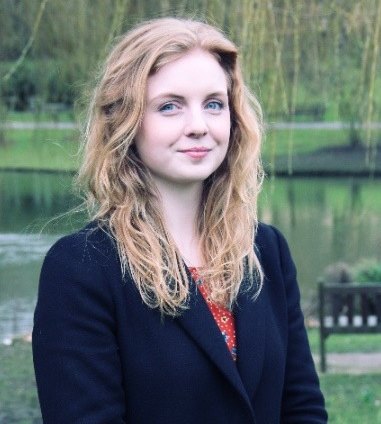 Lastly, Lauren Page was interviewed. Lauren is in the final year of her BEng degree in Electronic Engineering at the University of Surrey and was the 2018 recipient of our Skills 4 UK Scholar’s Award. On the opportunity to attend the conference, Lauren said, “I just appreciate so much that things like this are funded and are run; and that people recognise that putting all these people together in the same room is a positive thing and is worth the time and effort that it takes.” Read the full interview here.
Lastly, Lauren Page was interviewed. Lauren is in the final year of her BEng degree in Electronic Engineering at the University of Surrey and was the 2018 recipient of our Skills 4 UK Scholar’s Award. On the opportunity to attend the conference, Lauren said, “I just appreciate so much that things like this are funded and are run; and that people recognise that putting all these people together in the same room is a positive thing and is worth the time and effort that it takes.” Read the full interview here.
Offering apprenticeships can help companies tackle their skills challenges; however, we need to do more to raise awareness about degree-level apprenticeship programmes among employers. Therefore, the UKESF has created a new factsheet, for TechWorks and NMI members, specifically about Degree Apprenticeships in Electronics.
“Apprenticeships are only for entry level – they are for low skilled employees.”
“Apprenticeships cannot be used for existing staff.”
Both of these statements are incorrect. Indeed, they are two of the most frequent myths about apprenticeship programmes.*
Apprenticeships are work-based training programmes, which allow people of all ages, from school leavers to experienced workers, to work and learn at the same time by combining technical training with workplace assessment. Apprenticeships have been around for a long time but degree apprenticeships are a recent innovation in England.
Did you know that there are degree apprenticeship programmes in Electronics? And that companies with an annual payroll of £3m+, and therefore paying the Apprenticeship Levy, will be able to fund up to 100% of a degree apprentice’s tuition costs from their Levy contribution?
Find out more with our Degree Apprenticeship Factsheet.
*See more myths in the National Apprenticeship Service’s Top 7 Myths about the Apprenticeship Programme.
“Young electronics engineers make great ‘real’ models and we encourage them to share their experiences.”
Stew Edmondson, CEO, UKESF
I recently read a blog post from The Institute of Engineering & Technology bemoaning the lack of role models. The post reported findings from a study, that young students lack role models in areas such as engineering, particularly during the crucial teenage years when they must make important career decisions. The survey of a 1,000 young people aged 10–16 found that 27% could not think of a relatable role model for careers in engineering. Fewer than one in five of the respondents could name at least two engineers, scientists or mathematicians.
Ok. Fair enough. However, I think that this misses an important point.
The topic of role models has often come up during discussions about skills with Electronics industry audiences. I recall somebody once saying to me, “What we need to promote careers in Electronics is a Jeremy Clarkson-type figure”. Now, I have nothing against Jeremy Clarkson but I’m not sure that he would ever consider himself to a role model. I know that you can argue, for instance, Bear Grylls has been influential in changing perceptions about the Scouting movement. However, in my opinion, this sort of high profile media endorsement only goes so far. I firmly believe that rather than this kind of role model what we need are ‘real models’.
A ‘real’ model looks like me and their experiences are similar to mine.
Whilst it may appear alluring to have a high-profile figure endorsing and promoting a certain career, their impact can be overstated. This is because children cannot easily relate to them or their experiences. They can seem too old, too distant; how can a 14-year-old ever imagine themselves being such a person as Jeremy Clarkson?
For children at secondary schools thinking about the future, their concerns are about the next steps, for instance choosing subject options for GCSEs and then deciding on college and university choices. At this stage, careers and jobs are abstract ideas, not their reality. They need advice and they need re-assurance that they will be happy and successful in the world of work. However, this re-assurance is best given by believable and authentic ‘real’ models who are just a bit further down the road of their careers. So, for instance, somebody studying Electronics at college or university, undertaking an apprenticeship or in the early years of their post-education working life. They can say things like this:
“I chose to study Electronics because of my interest in hands-on science and understanding how things work. Whether a wall clock with LEDs displaying the numbers or making copper glow blue in a test tube; it was always the ‘cool factor’ got me into Electronics. Robots controlled with voice commands: extremely cool! What I like most about Electronics is the fact that there really is no limit to what can be done. I am very excited to be able to contribute and be part of the group of people responsible for today and tomorrow’s safer cars, faster phones, better hospital equipment, space travel… and so much more.”
This quote is from one the students that has been supported by the UKESF, through our Scholarship Scheme. These young electronics engineers make great ‘real’ models and we encourage them to share their experiences. We have also featured a number of these ‘real’ models in our new promotional campaign, Turn On To Electronics. Click here for the stories of six diverse young people who are currently studying for careers in Electronics.
There is another problem with using high-profile individuals as role models, and it is about the nature of work in our sector. Electronics and engineering are collaborative endeavours and success is down to the efforts of a team, not a single, high-profile, individual. Therefore, using individuals to try to promote careers creates a false impression. Rather, as another UKESF scholar has said:
“The best part is that everyone has to work together and therefore the job involves constant interaction with colleagues.”
So, rather that searching for elusive ‘role’ models to promote Electronics and engineering, we should instead turn to ‘real’ models – relatable, micro influencers, who can share their personal experiences to hep encourage others to follow in their footsteps.
“This award will not only benefit myself, but also those I work with now and in the future.”
Lauren Page
The recipient of the 2018 Skills 4 UK Scholar’s Award is Lauren Page (UKESF Scholar 2016–19), who studies at the University of Surrey and is sponsored by Renesas.
Lauren will receive a place on Skills 4 UK’s award-winning Career Development Programme, as well as additional coaching. This award takes into account academic performance, placement feedback and STEM-awareness contribution.
Lauren said, “To me, winning the award represents an opportunity to engage with the wider Engineering and Electronics community as well as allowing me to meet some wonderful and inspiring people. Not only was it a lovely opportunity to dress up and celebrate the achievements of individuals and companies within the industry, it was also a chance to see my UKESF mentor Emma Curati-Alasonatti celebrated with her win of Young Engineer of the Year!
“I hope to use the experiences offered by the award to continue to inspire myself within Engineering, and to use the skills it offers to be a better role model for the next generation of STEM students. Meeting the wonderful people at the UKESF and at the TechWorks event, who have nothing but encouragement to offer to myself and others in my position, has made me further realise the importance of supporting and raising up others. This award will not only benefit myself, but also those I work with now and in the future.”
UKESF CEO Stew Edmondson said, “We really appreciate all Skills 4 UK’s support for all our female scholars and especially for this award. It is fantastic that Lauren has been selected this year; it’s a brilliant opportunity which should help her make the transition into industry. Diversity is such an important issue for the whole of Electronics sector, that is why I am pleased this collaboration with Jayne Little and Skills 4 UK; we are doing something specific and beneficial.”
Congratulations Lauren!
On 22nd November the UKESF attended the annual TechWorks Awards & Gala Dinner, London, to announce the Scholar of the Year Award winner and launch a new national campaign to make more schoolchildren aware of Electronics.
During the summit, UKESF CEO Stew Edmondson launched the #TurnOnToElectronics campaign to an audience of over 300 leading figures in the Electronics sector. The multi-platform campaign includes a manifesto and video, and is fronted by Gadget Show presenter Georgie Barrat.
Stew said, “We need to do more to raise awareness about Electronics among young people, as they simply don’t associate Technology with Electronics. This is what our campaign is all about – raising awareness, promoting Electronics and providing resources to teachers and schools.”
Find out more about #TurnOnToElectronics here.
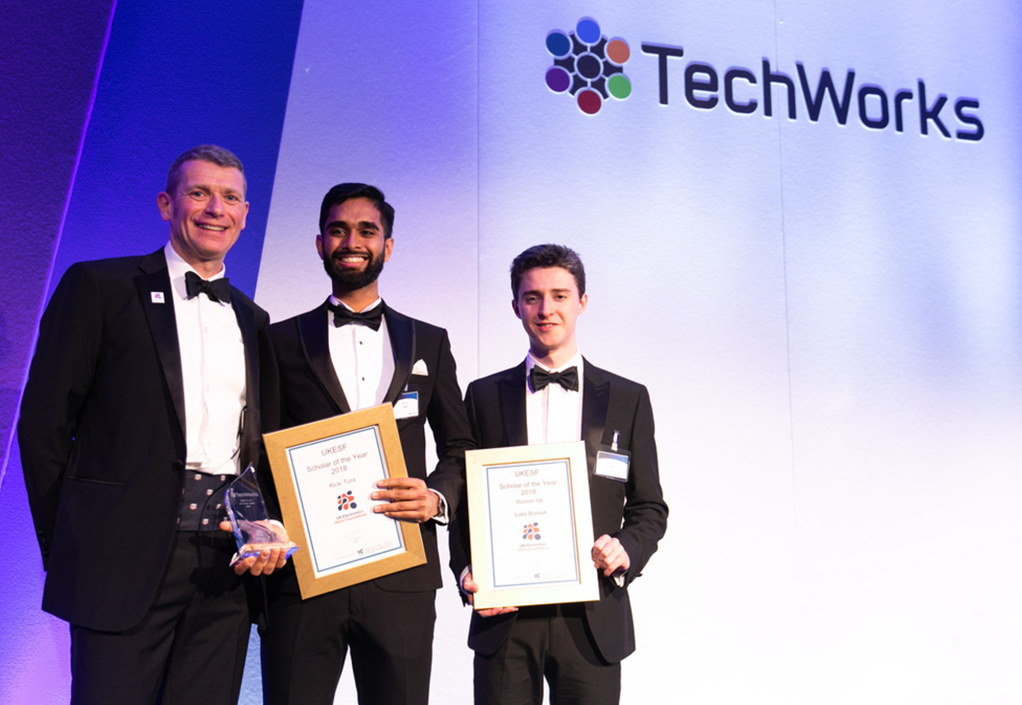
L–R: Stew Edmondson, Ricki Tura, Luke Bussell
Following the launch, the winner of the UKESF Scholar of the Year Award was announced as Ricki Tura (University of Southampton/UltraSoc, now acquired by Siemens). Ricki received £500, a trophy and a certificate. Runner-up Luke Bussell (Imperial College London/Renishaw) received £250 and a certificate.
Ricki said, “I am delighted to be named 2018’s UKESF Scholar of the Year. It feels great to be recognised not only for my achievements in academia and industry, but also for my contributions in promoting Electronics in the community. My experience as a UKESF scholar has been fantastic, and I recommend the scheme to anyone considering a career in the Electronics industry.”
Many thanks to IC Resources, who kindly sponsor the award.
“One of the highlights of my year is judging the UKESF Scholar of the Year award. The valued contribution that the scholars make to their companies, and the industry as a whole, always reinforces my admiration for the upcoming generation of ‘tech stars’. This year Ricki and Luke’s efforts really stood out, and I’m looking forward to hearing about their successes in the future,” said Neil Dickins, Director/Owner of IC Resources.
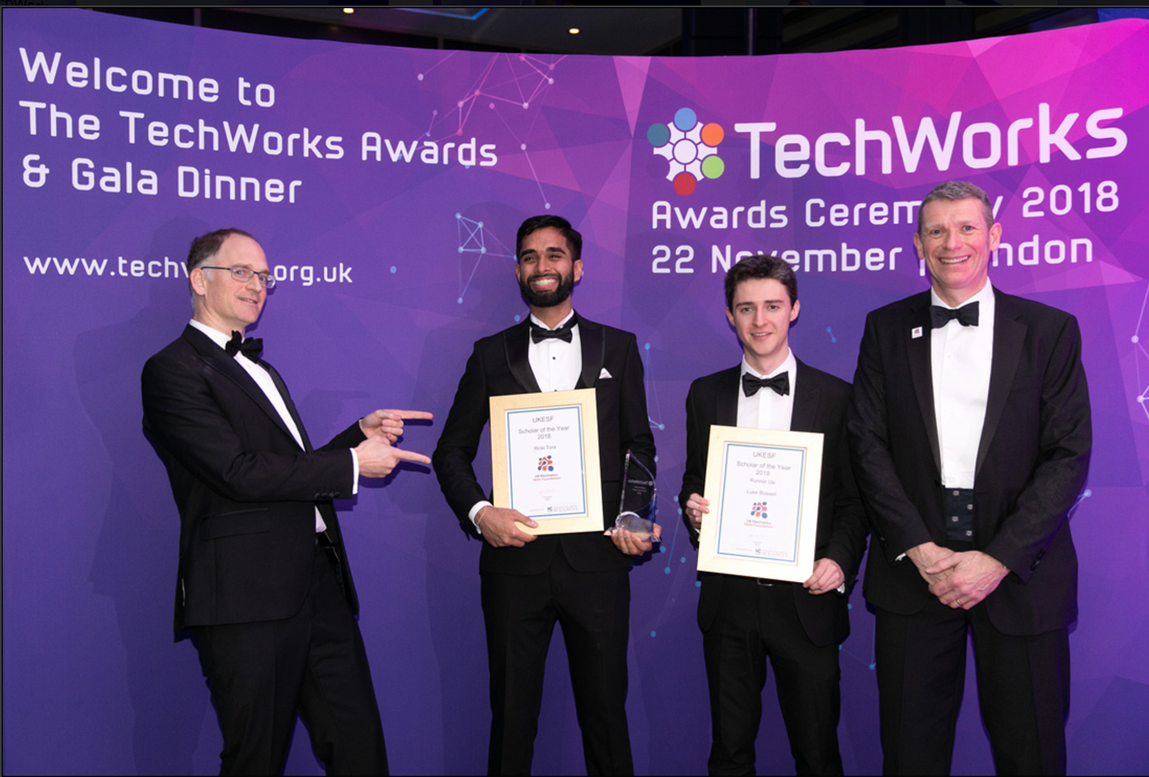
L–R: Neil Dickins of IC Resources, Ricki Tura, Luke Bussell, Stew Edmondson
As well as Ricki and Luke, there were more UKESF scholars in attendance than ever before. Winner of the Young Engineer of the Year Award Emma Curati-Alasonatti (University of Southampton/ARM and UKESF guest blogger) and one of the award shortlisted candidates, Ashley Robinson (University of Southampton/Qualcomm) were both there, along two scholars sponsored by Embecosm and one from Dialog Semiconductor.
The evening segment, hosted by John Sergeant, included further awards, a black tie three-course meal and a silent auction in aid of the UKESF, with a variety of unique experiences up for bids. Funds raised from the auction are channelled into hands-on STEM activities for children, summer schools for A-level students, professional development for UKESF scholars, and much more.
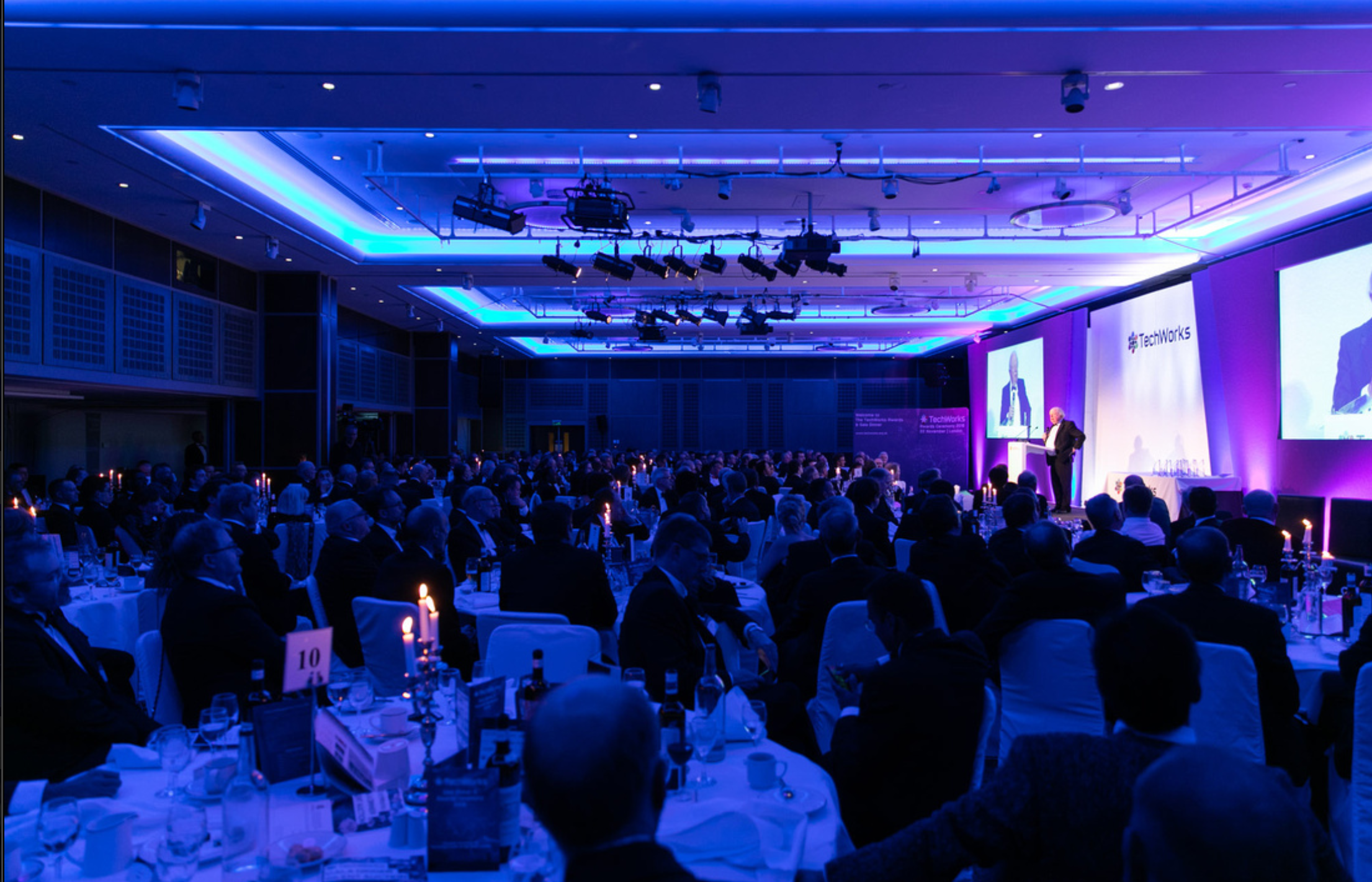
John Sergeant hosting
The evidence is stark. Although the numbers of UK students studying Engineering degrees have increased considerably over the last decade (up 46% overall), the numbers studying Electronic & Electrical Engineering (EEE) have remained stubbornly the same. For example, last year twice as many youngsters started Mechanical Engineering degrees than did EEE. Indeed, there were more starters on Civil Engineering degrees (3,450) than EEE (3,330 students). Computer Science numbers have also seen a massive rise. Now, to be clear, we are not saying that these are bad choices. However, the shortage of Electronics Engineers (especially graduates) means that there are too few engineers and designers to develop the next generation of products and help produce creative technological solutions needed by society.
One hypothesis is that parents are having an influence and are a factor in the choices made by their children. We decided to test this by commissioning a survey of 1,000 parents of secondary school children (ages 11–16) from right across the UK. We are publishing our results in a Manifesto that can be downloaded here. In some respects, the results were as we expected. For instance, a massive 96% of parents said that their children we interested in Technology and 43% would encourage children to pursue careers in STEM. However, we were surprised to learn that they were equally likely to encourage their child(ren) towards Electronics as any other type of Engineering.
The parents’ responses about the perception of Engineering perhaps offer a clue. On the one hand, Mechanical Engineering is associated with the glamour and excitement of F1. However, we found that Electronics is still associated with images of circuit boards and soldering, so it is probably little wonder we are struggling to convince youngsters. Of course, we know that Electronics is fundamental to pretty much all of the exciting technologies changing our world, from autonomous vehicles though to health care. Therefore, it is clear we need to increase awareness and to promote Electronics. This is the aim of our new national media campaign: Turn On To Electronics. With the help of our friends at Clarity PR we are presenting Electronics in a fresh, new way, making clear the link with Technology. Find out more here.
But we need to do more, particularly at schools. Traditional outreach and enrichment activities are well intentioned but we don’t feel that they alone offer a solution. Rather, we believe that focusing on the curriculum is the key to reaching more pupils effectively
We know that record numbers of pupils are studying STEM subjects at A-level, including Maths, Physics and Computing. However, we know only a fraction of these pupils then go onto study EEE. Therefore, we need to raise the profile of Electronics within these subjects. This is what our ‘Electronics Everywhere’ project, developed with our colleagues at the University of Southampton, is all about. By delivering CPD training in Electronics to Computing and Physics teachers and providing their schools with classroom sets of practical kits, we will enhance the teaching in A-level classes and promote Electronics. Our aspiration is to ensure that we put Electronics Everywhere in every school in the year over the next three years. Find out how you can help here.
Two UKESF Scholars from the University of Edinburgh recently travelled to India to lead practical electronics workshops with children, contributing to the ground-breaking work undertaken by the Familia organisation near Kolkata.
In April we reported on scholars Ben, Justas and Kasper, who went above and beyond the outreach obligations of their scholarships by developing and running their own hands-on electronics workshop, including building a custom-designed Arduino-based kit and writing supporting documents. The UKESF was delighted to provide funding for the project, which enabled the scholars to purchase enough hardware to take the kit into local schools and run the workshop with students in Scottish Years 4–6 (Key Stages 4 and 5). They also wrote a blog post for us about the experience.
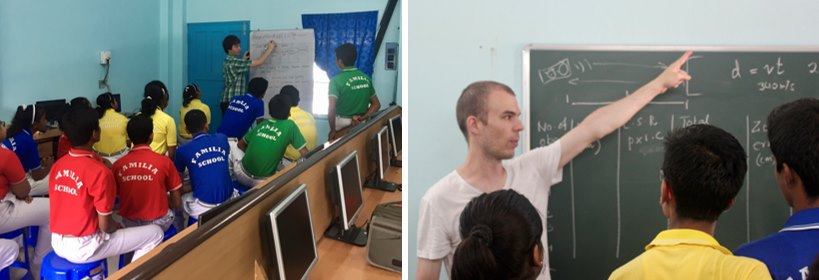
Ben and Kasper teaching in India
In July Ben and Kasper visited Familia in India, an organisation bringing education and care to children (and some elderly people) through a commune of four foster families. They took a total of 60 students aged 14–16 through the workshop, which comprised of three hour-long sessions: a lecture on the underlying theory and concepts, a practical kit-building session, and finally a programming session in the computer lab. The students worked in groups of three, with everyone successfully completing the workshop and many going on to add extra features.
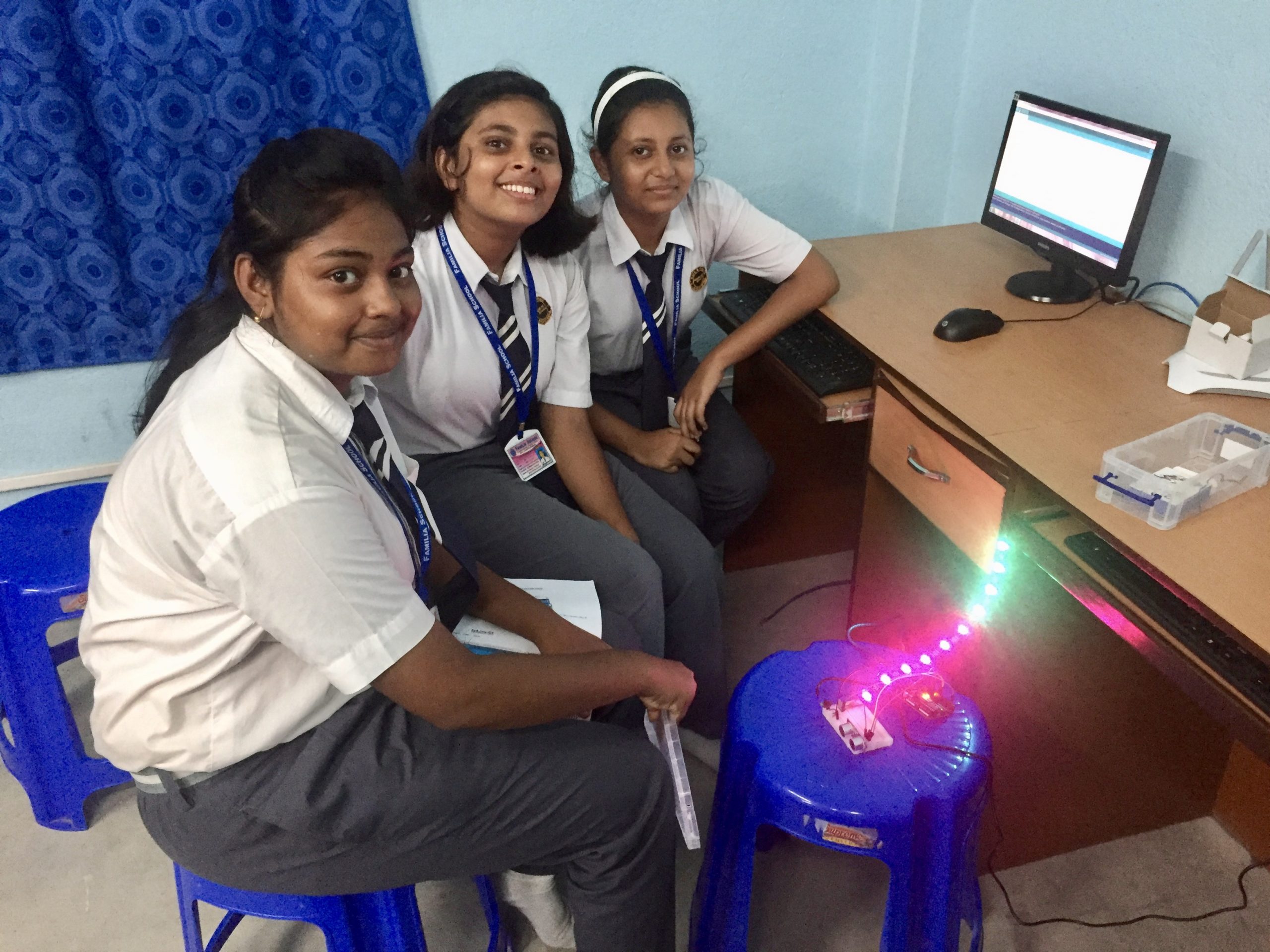
Pupils taking part in the workshop
Ben said, “The exchange was as rewarding for us as it was for the students; STEM outreach has given us valuable skills in communication and organisation, in addition to the unique opportunity to benefit from the enthusiasm of the young students and be invited into another culture. The students were very welcoming and engaged fully with the project, which was facilitated by the staff and teachers who supported our initiative. We had a lot of fun, and from the number of happy faces and hands shaken, we believe everyone else did as well.”
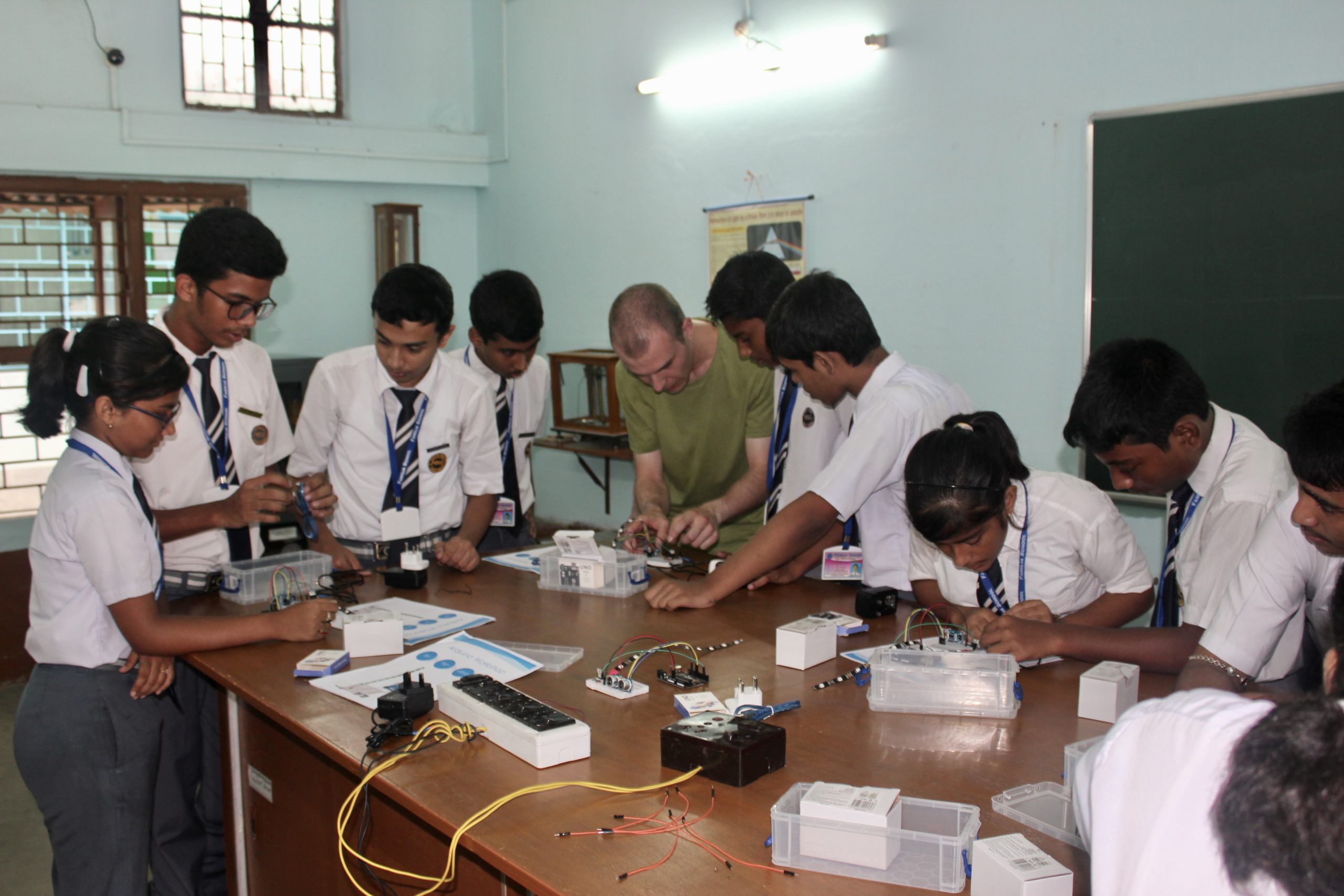
Kasper demonstrating the kit
Kasper said, “Thank you again to the UKESF for the support of the kits. The kids really liked the practical aspect of the workshops (something they don’t often get to do), they were very engaged and the feedback was positive.” The reusable workshop kits were donated to the school with detailed instructions, allowing the workshop to run again in the future. The scholars received funding for the trip and some of the kits through the University of Edinburgh’s Innovative Initiative Grant, while the UKESF supported the scholars by providing resources and advice.

The Familia school
UKESF CEO Stew Edmondson said, “At the UKESF, we encourage our scholars to help us promote Electronics in schools. This project by three of our Edinburgh-based students is an exceptional example; I thoroughly applaud their initiative and commitment.”
Ben and Kasper have put together a short video about their trip:
On 25th July the UKESF held an award ceremony for the finalists of the RF Engineering & Communications Competition at the University of Bristol. This annual competition, run in partnership with the Radio Communications Foundation (RCF), highlights the work of students at UKESF partner universities who are focusing on RF engineering and communications in their final year.
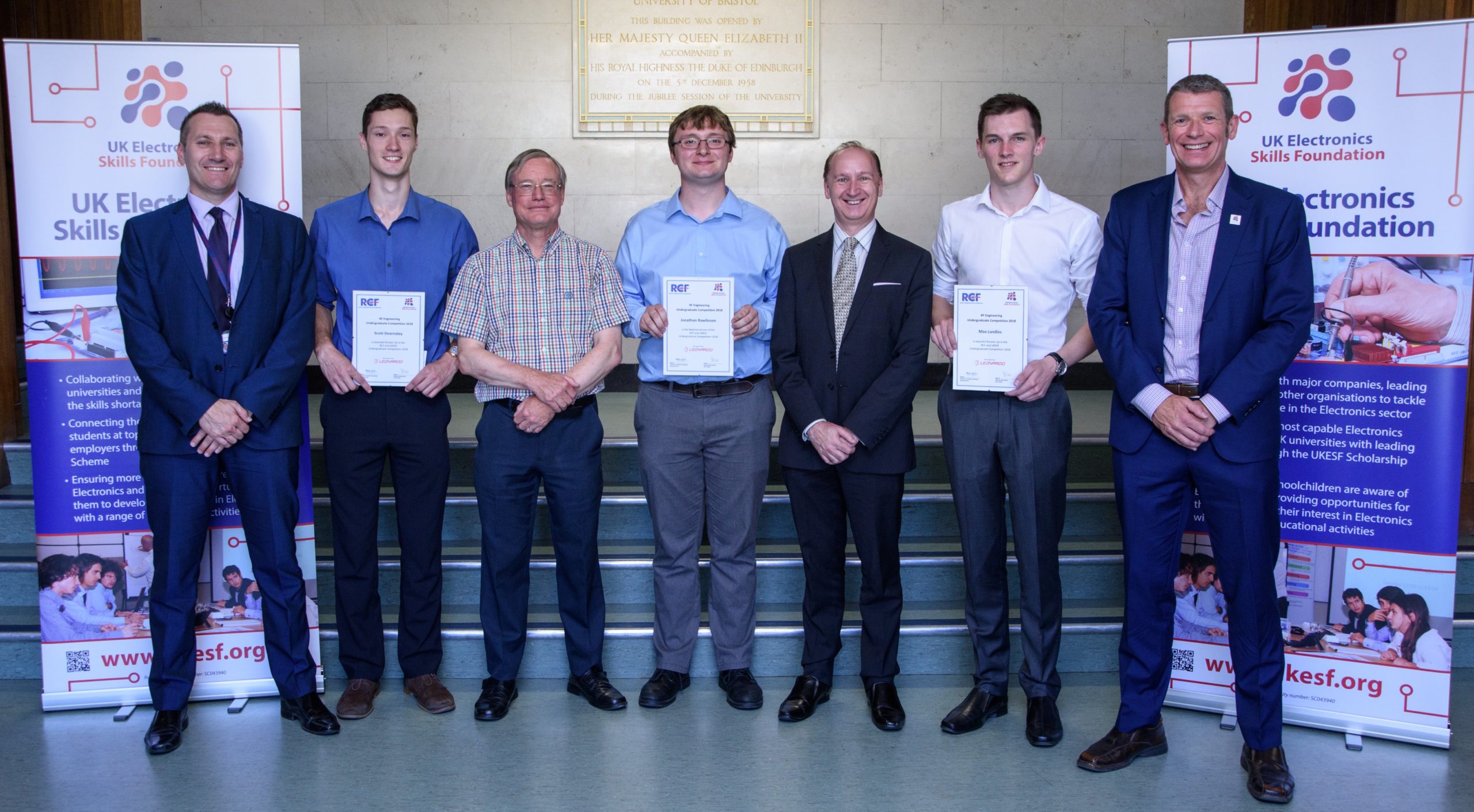
L–R: Merv Hayes, Scott, Trevor Gill, Jonathan, Andy Nix, Max, Stew Edmondson
Jonathan Rawlinson (Imperial College London) was named the winner for his project, RF Signal Classification Utilising Neural Networks – ‘SignalDoctor’, and received £1,000. He said, “I had a wonderful time meeting the other participants and to see so much exciting work by students in the RF area. It is great to see RF being promoted by the UKESF and RCF as it is such an important subject for modern life! In addition I was very impressed by the Bristol EEE department facilities. I would like to thank the UKESF, RCF, Bristol University and Leonardo for organising such an exciting and informative event.” Find out more about Jonathan’s project here.
Two runners-up also received £500 each: Max Landles (Heriot-Watt University) for his Satellite Propagation at Millimetre Wave Bands project, and Scott Dearnaley (Lancaster University) for his Low Cost Flexible Antenna for Body Area Network project.
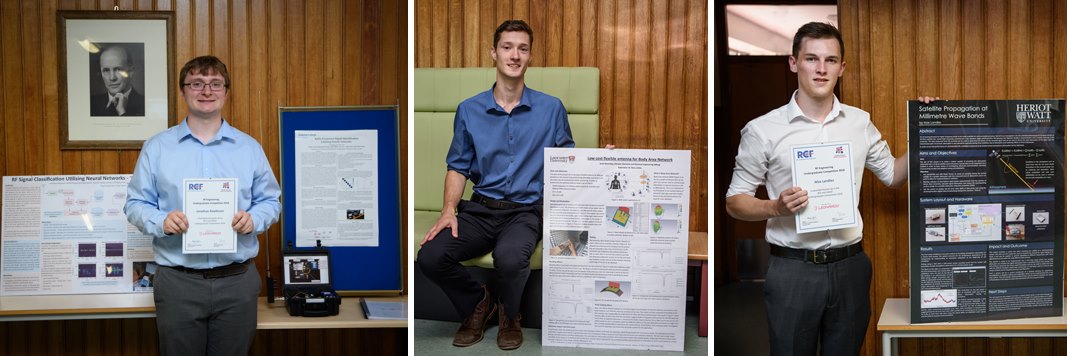
L–R: winner Jonathan and runners-up Scott and Max with their project posters
Max said, “The competition was a fantastic experience. It was fascinating to hear what people outside of university thought of the work I had been doing and getting listed as one of the top three entries for this year was a huge surprise to me that gave me a lot more confidence in myself. It is encouraging to see that companies are prepared to dedicate time and money to run this competition as I believe it shows a willingness to invest in the future of the RF industry and will hopefully encourage more students to consider doing their major projects in this area.”
Scott said, “The competition gave me a great opportunity to display my work and be rewarded for it as well as giving me the opportunity to meet industry professionals. The event was well organised and gave a useful insight into the current and future state of RF engineering.”
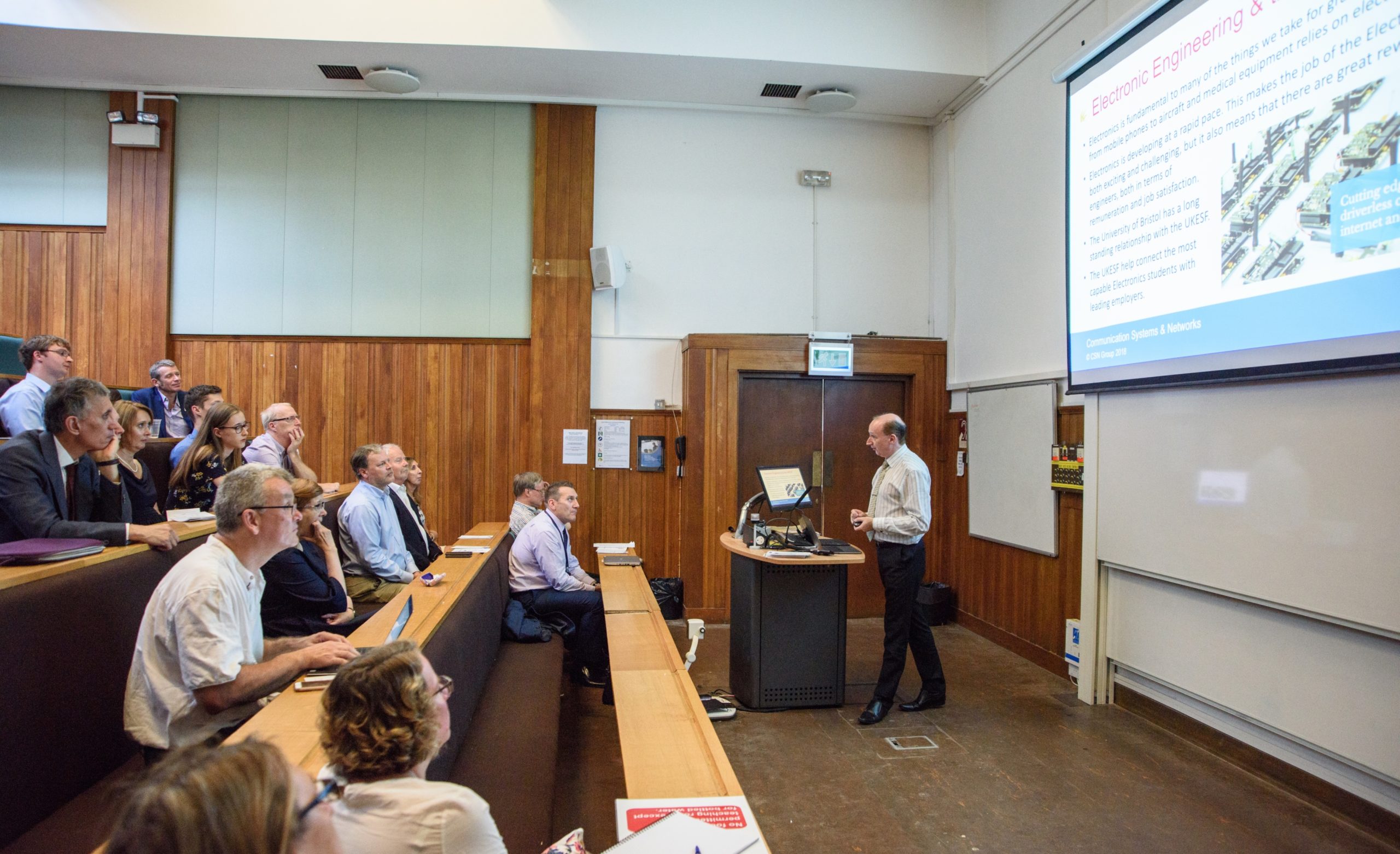
Prof Andy Nix’s presentation
Finalists, judges and guests enjoyed lunch and networking followed by a series of presentations from speakers: UKESF CEO Stew Edmondson, journalist Nick Flaherty, Bristol’s Dean of Engineering Faculty Prof Andy Nix, Merv Hayes from Leonardo, the RCF’s Trevor Gill, and UKESF Founding Chairman Indro Mukerjee. Trevor, Indro and Andy presented the awards, after which Andy led a tour of the university labs.
Stew Edmondson said, “Our aim in organising this competition is to encourage the study of RF and communications engineering among undergraduates. Therefore, it was very heartening to see the high quality of the entries submitted this year; the judges selected worthy winners from a strong shortlist of finalists.”
Many thanks to the national judging panel, and the University of Bristol for hosting the event.
Like many organisations, we list our espoused believes and values on our website. One of these values is to be ‘collaborative’. We say that we “share ideas and work enthusiastically with our sponsors, partners and all stakeholders to achieve our aims”. However, for the UKESF, as a small charitable foundation working to tackle a massive challenge, collaboration is at the very heart of our culture and is vital to our work; to paraphrase the management educationalist Peter Drucker, we must “collaborate, or die”.
Last week we met with all of our university partners at an event kindly hosted by Imperial College London. This annual session is a vital part of our partnership and is especially important as we now collaborate with 20 universities, right across the UK.
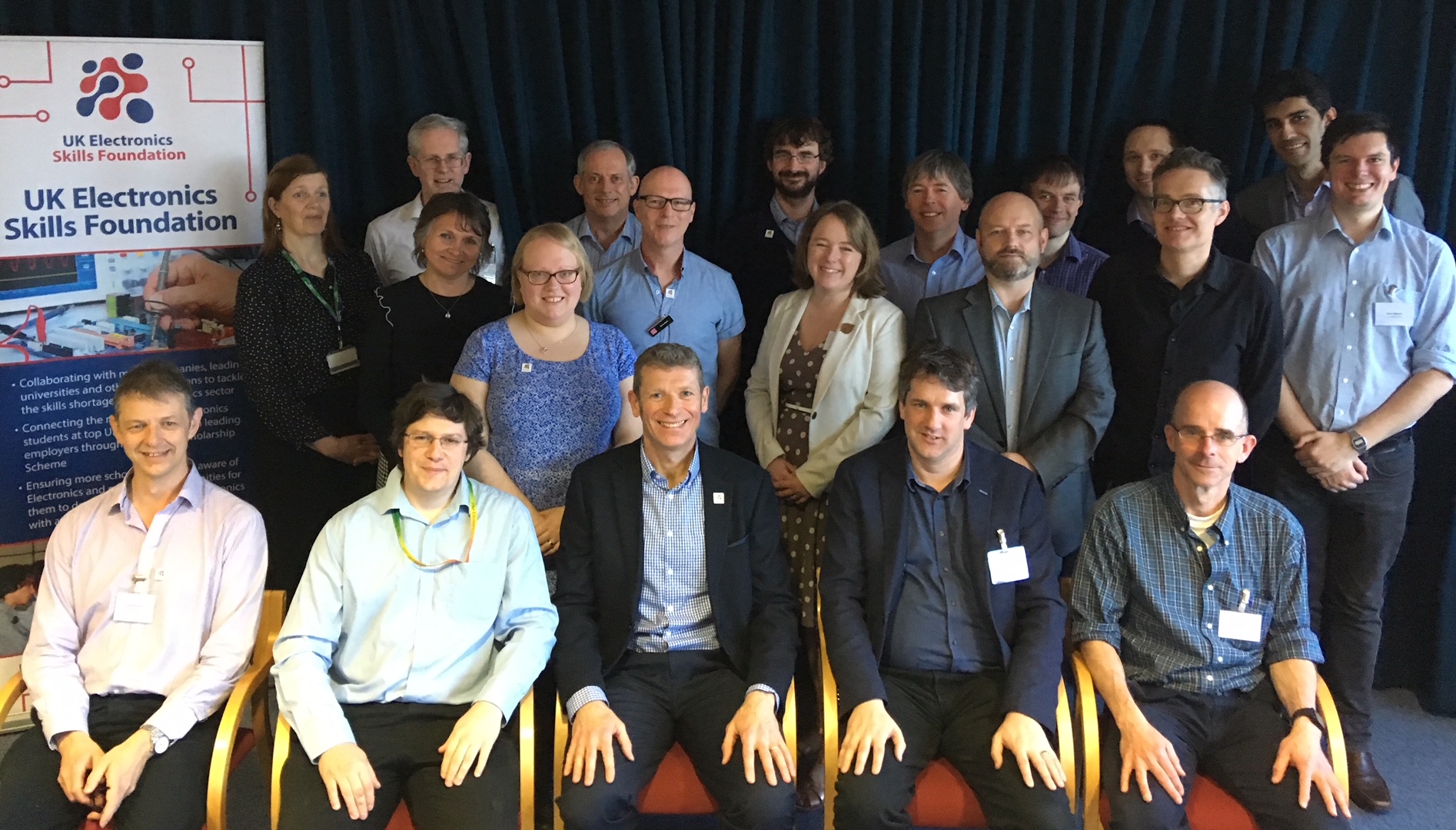
The UKESF University Partners meeting
It was most heartening, discussing our programme with these academics from leading higher education institutions, to hear their positivity and enthusiasm. This is for not only the technology and their world-leading Electronics research that they are undertaking, but they have obvious enthusiasm about helping undergraduates. All these leading universities support our programme because they genuinely want to produce the graduates needed by our sector.
The UK has a long heritage of technological innovation and has a world-class Electronics sector. However, there is a shortage of Electronics Engineers (especially graduates), which means that there are too few engineers and designers to develop the next generation of products and help produce creative technological solutions needed by society. This situation has actually worsened in recent times and is likely to deteriorate still further post BREXIT. The shortage is also exacerbated by a fragmented landscape across the sector; hence the need for effective collaboration and a coherent approach.
Based on data recently provided to the UKESF from the Higher Education Statistics Agency (HESA), we can see the scale of our challenge to “encourage more young people to study Electronics and to pursue engineering careers in the sector.” The HESA data shows that, in last five years, the number of UK-domiciled first-year students in Mechanical Engineering has increased by 29%, whereas the number of first year students on Electronic & Electrical Engineering degree courses has fallen slightly.
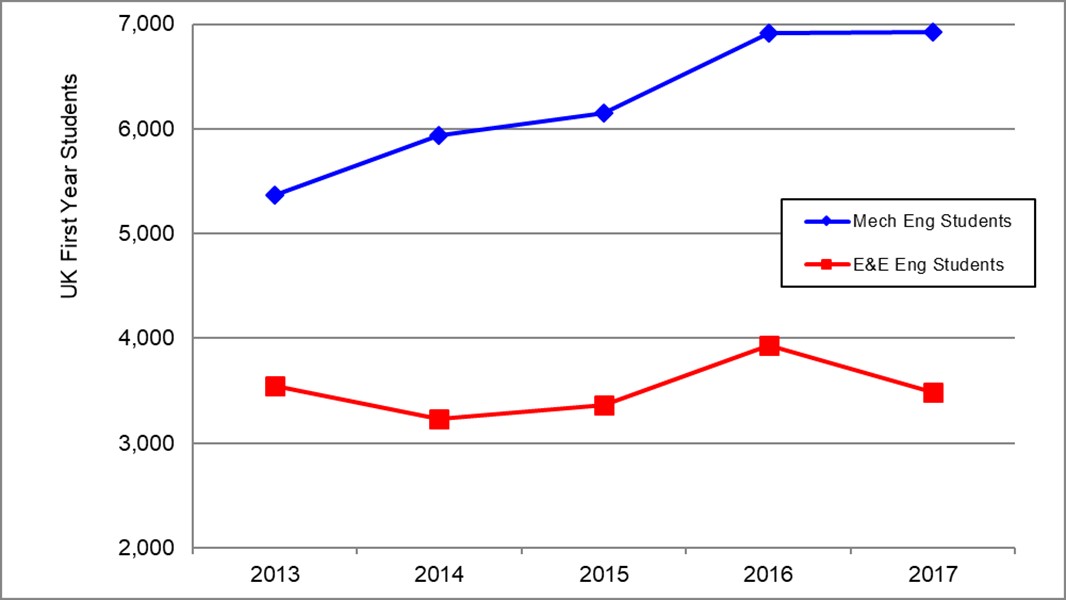
UK-domiciled first-year Mechanical Engineering and Electronic & Electrical Engineering student numbers from 2013 to 2017
At the UKESF we firmly believe that industry, as well as universities, have a part to play in ensuring the future pipeline of Electronics graduates. One way of doing this is to provide work placements for students; investing in undergraduates to give them practical real-world experiences that complement their academic studies is a real ‘win-win’. That said, acting unilaterally can be a bit daunting, which is why we are finding more companies are joining our Scholarship Scheme. We had 250 applicants for the scheme this year from students at our partner universities.
This shows that there is plenty of appetite from undergraduates for work placements. By working collaboratively and joining our scheme for next year, we can all achieve more and make progress towards tackling the challenge. If you would like to learn more, then details can be found here.
Three UKESF scholars from the University of Edinburgh have gone above and beyond the outreach obligations of their scholarships by developing and running their own hands-on electronics workshop, including building a custom-designed Arduino-based kit and writing supporting documents. Ben, Justas and Kasper wanted to show how easy and affordable it is to start electronics and share their passion for the subject in a fun and interactive way.
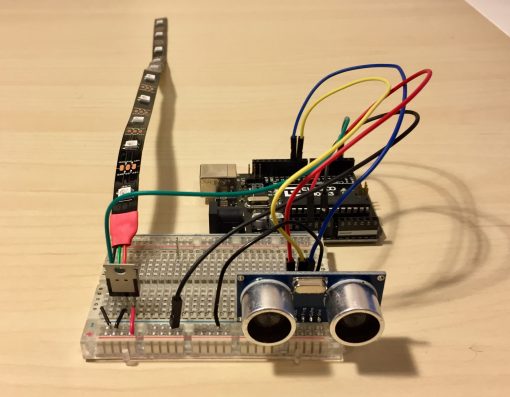
The UKESF was delighted to provide funding for the project, which enabled the scholars to purchase enough hardware to take the kit into local schools and run the workshop with students in Scottish Years 4–6 (Key Stages 4 and 5). This included a demonstration session at Earlston High School and four 2-hour workshops at Trinity Academy, which gave the scholars the chance to pilot the project and fine-tune the details. Information on the kit itself can be found in their guest blog post.
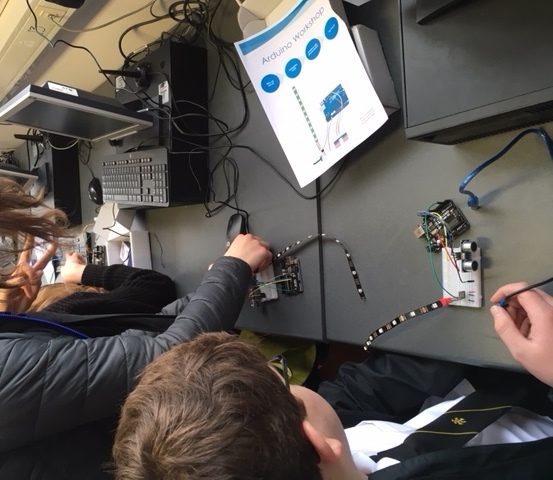
Feedback from the schools has been extremely positive and the scholars have already been asked to return. Callum MacLellan, Curriculum Leader of Science, Trinity Academy, said, “Pupils enjoyed the approach to constructing the circuits which allowed them to get something going within a reasonable amount of time. They then had fun exploring how to customise their circuits. The extension sheet that the team produced helped to make this exploratory phase more focused, especially for younger classes. There was a good balance between exposition and activity and the classes all enjoyed Kasper’s obvious enthusiasm for his ‘disco boxes’.”
The scholars have written a guest blog post for us about their project; read some snippets about their experiences below:
Ben: “The students were encouraged to use their creativity – especially in the additional task sheet – which helped them engage with the task.”
Justas: “Probably the most rewarding part of this initiative was seeing the positive reactions, excitement and interest we managed to spark in numerous young people.”
Kasper: “Coming into contact with practical electronics in high school is something I wish I would have had the chance to experience and I am proud to be able to provide this opportunity for others.”
Stew Edmondson, CEO, UKESF, said, “We know that providing children with ‘hands-on’ experiences works really well in promoting their interest in Electronics. At the UKESF, we place a great focus on getting our undergraduate scholars to help us inspire the next generation. This project is a fantastic example, from three inspirational students, of how the UKESF can make a real difference. Really well done to Ben, Justas and Kasper.”
Looking ahead, the graduating scholars are planning to hand custodianship of the project over to ongoing Edinburgh UKESF scholars. The UKESF will continue to support the project by providing guidance and financial backing, with the intention of making it available as a resource to other scholars in the future.
Like all good ideas, this one started as a discussion between three friends at a pub in September last year. We had all worked with various outreach events before, mainly holding talks and showcasing some personal electronics projects and felt we wanted to do something more this year. Running a workshop with actual hands-on electronics quickly surfaced as an idea and was something we were all enthused to do. Building a custom-designed project seemed like the best way to make sure we were passionate about what we were doing and could easily convey that excitement to the students.
Now it was a matter of coming up with what kind of workshop we wanted to run and what goals we wanted to achieve. Our conclusion was that we wanted to show how easy it is to start electronics with cheap and readily available materials, make sure the kit build was fun and not too heavy on theory and finally make it something interactive through either the visual or auditory sense. The end result: an Arduino-based distance measurement tool using an ultrasonic sensor and an RGB Led strip indicator.

The kit would thus showcase one of the most popular microcontrollers for beginners, the Arduino, use basic physics to calculate and measure distance using sound waves, and allow for cool visual feedback of the measured distance through the Led strip, the colour of which is customisable by the students for added bonus.
Having run several of these workshops sessions since – with exciting future plans – here’s what we all think about the journey so far:
Justas, UKESF Scholar 2014–18: “Probably the most rewarding part of this initiative was seeing the positive reactions, excitement and interest we managed to spark in numerous young people. I realised that I enjoy educating people about technical subjects and I might consider some sort of professional teaching role later in my life.”
Kasper, UKESF Scholar 2014–18: “Coming into contact with practical electronics in high school is something I wish I would have had the chance to experience and I am proud to be able to provide this opportunity for others. I have always been excited to explore subjects I enjoy with other people and feel a great deal of satisfaction having designed and realised a successful workshop to do this with electronics. The STEM sector needs more brilliant minds so let’s expose more people to it!”
Ben, UKESF Scholar 2014–18: “Running the workshop provided valuable experience in learning to communicate electronics. The students responded well and enjoyed the tactile and interactive nature of the design. The students were encouraged to use their creativity – especially in the additional task sheet – which helped them engage with the task. The schools we approached have proven very receptive and organising the events went largely without hitch.”
Read the news story about the schools the scholars visited HERE.
Ben and Kasper also travelled to India to run the workshop with students at the Familia organisation near Kolkata – read about their trip HERE.
At the UKESF we love the passion and enthusiasm for Electronics that students on our scholarship programme show. We also pride ourselves on our ability to find students who are a great fit for their sponsoring company. A couple of years ago Dr Jeremy Bennett, the founder of Embecosm, asked us to find a student who was studying compiler technology. We found him Mary, from the University of Surrey, and she has written this blog post about her experiences.
Last year I started my UKESF scholarship at Embecosm, a small compiler service company based in Lymington. This blog post is going to take you through some of the things I have done since I started at Embecosm and my favorite things that I have learnt so far.
The main project during my placement has been to design and create an open source, educational, resource to be used at Chip Hack[1] and in schools. The project was to reimagine EDSAC in modern and generally affordable technology.
[Maurice Wilkes originally designed the EDSAC (Electronic Delay Storage Automatic Calculator) in 1947. It was one of the first general purpose computers and was used by many different science and engineering faculties in the University of Cambridge. For more details click here.]
During this project I led a team of two A-level students, Dan and Peter, to reimagine: a punched tape reader, a teleprinter, an initial orders front panel and a delay line. We called these four the ‘reimagined EDSAC peripherals’.
[In India, Hatim Kanchwala was writing a Verilog version of EDSAC on a MyStorm board as part of the Google Summer of Code.]
Since Chip Hack was a tutorial in verilog, a hardware description language, some tutorials and practice programs along with some slides to explain the basics would have to be written. Dan wrote these while Peter built and tested the initial orders, teleprinter and tape reader. We used 3D printing techniques, Arduinos and discrete electronics to build these peripherals.
The original initial orders used a set of uniselector switches to input the bootstrap instructions. Our reimagined version used 17 pairs of headers, one for each bit of the instruction. The headers could be connected, which represented a 1. Otherwise it could be left unconnected to represent a 0. Once the instruction was correct, the user pressed a button corresponding to the instruction to send.
The EDSAC teleprinter was similar to an electro-mechanical typewriter. To reimagine it, we used a thermal printer to print words onto thermal paper similar to that used in a shopping till. The teleprinter also printed punched tape; this was 5 dot wide tape with a sprocket line in between dot 3 and dot 4. For our open-source reimagining the holes were replaced by dark grey dots. I wrote a simple UART transmitter on the MyStorm board, so that a string of 16 characters could be sent to the teleprinter. The printer would only print when the newline and carriage return characters were received so a larger string could be sent in small chunks.
The reimagined tape reader was interesting. It used LEDs to reflect light off the paper tape. The amount reflected corresponded to the colour of the tape and was sensed using LDRs.
The delay line was my favourite piece of the reimagined EDSAC. It used sound to store digital information because electricity was too fast to allow the information to be reliably read and written to. Originally, the EDSAC delay lines used mercury, a not so good material for schools to use or obtain. Instead, I used air for three main reasons: it came ready packaged with the tube, it doesn’t make a mess when you spill it and the speed of sound is quite low through air, so we can operate at audible frequencies.
Finally, September came around. The peripherals were packed away in large boxes and sent ahead and we made our way to Hebden Bridge. We arrived a day before Chip Hack started and met Hatim at the hotel. It was finally nice to put a face to the name.
Day one of Chip Hack was spent teaching people Verilog. Dan’s tutorials and ‘fill in the blanks’ code were very useful and made the first few programs a lot easier to grasp. Participants then spent the next day and a half working on the EDSAC. Each group was given a peripheral and encouraged to write the Verilog to interface the two. There were also talks on the history of EDSAC and the building of the replica at Bletchley. We were shown some of the original drawings that were very, very, tidy. I didn’t know that there was not a universal symbol for gates in those days, instead Wilkes used lettered boxes.
ORConf directly followed Chip Hack. It is an open source digital design and embedded systems conference. There were many presentations on interesting open source hardware-related projects, such as ‘Progress of the OpTiMSoC project’ by Stefan Wallentowitz and ‘Experience report: Bringing up cycle-accurate models of RISC-V cores’ by Graham Markall. On the last day of ORConf, Dan, Peter and I presented the Chip Hack project. This meant that I was the first woman to speak in the six-year history of the conference.
A month after ORConf, I submitted an application to speak at the Free and Open Source Software Developers’ European Meeting (FOSDEM), which is one of the largest and most important events on the Open Source calendar. It is a conference in Brussels with over 8,000 people attending each year. I was told at the end of December that my talk had been accepted and I would speak on Saturday afternoon in the largest room, which could seat 1,500 people. I spent most of January practicing my talk. When I arrived I checked out the room where I was going to deliver my talk; it looked huge. This was about the point that I began to get nervous.
After a couple of hours listening to other presentations, it was my turn. I was going to demo the tape reader and delay line, so I spent a few minutes setting up before the talk. The Chairman introduced me and the rest was pretty fuzzy. I can remember missing a page of my talk out but sneakily I managed to put it back in after the demo.
Chip Hack and the reimagining EDSAC project have been a very important opportunity for me. It has taken me to conferences and has been my first experience in the open source community. None of this would have been possible without Embecosm and the UKESF.
[1] Chip Hack is a workshop hosted by Embecosm which introduces participants to FPGA programming.
Welcome to our Skills Special blog post. We always include a ‘skills’ item in our normal quarterly newsletter (sign up on the homepage) but, as skills is one of the common factors that brings everyone in the Electronics community together, we thought that we would start 2018 with a special newsletter and blog post. To set the scene, we start with a summary of the Government’s Industrial Strategy, as this provides the context.
In November 2017 the Government published a new Industrial Strategy. This long-term plan aims to boost productivity and earning power throughout the UK with investment in skills, industries and infrastructure of the future.
The strategy states: “The world is undergoing a technological revolution. Artificial intelligence (AI) will transform the way we live and work … This fourth revolution [also known as Industry 4.0] is of a scale, speed and complexity that is unprecedented … blurring the lines between the physical, digital and biological worlds. It will disrupt nearly every sector … The UK is already a world leader in AI … UK innovators push boundaries in robotics and the internet of things.” The strategy also highlights the importance of improving intra-city transport and creating faster links between cities.
AI, robotics and transportation are picked out in the strategy as keys areas for focus and investment, and all are dependent on Electronics. As the strategy explains, its success will “depend on our ability to keep up with the pace with new sectors and emerging businesses.” For this to happen, a higher number of young people will need to study Electronics at university.
Professor Klaus Schwab, Founder and Executive Chairman of the World Economic Forum, breaks down the meaning of ‘Industry 4.0’ in the December issue of Manufacturing Our Future (p. 10). Here’s a summary:
The Industrial Digitalisation Review was carried out to “assess how UK manufacturing can benefit from increasing digitalisation and technological change” and focused on the need for skills that are underpinned by Electronics. The leadership team also considered which digital technologies are most likely to create new industries and jobs, including AI and robotics. The result, the Made Smarter Review 2017, puts forward several recommendations, including strengthening the interaction with upcoming talent within universities through focused projects and placements.
There is a lot of interest in investing in AI. A recent article by Consultancy.uk states “just over a fifth of UK businesses have already invested” and that “half of all UK organisations will have sunk over £10 million into digital technology by 2020”, however “concerns regarding a digital skills shortage are hampering efforts to get the most out of AI”. Paul Thompson, UK Digital Transformation Leader at Deloitte, says that “the UK isn’t living up to its digital potential” for this very reason. He continues, “educators, policymakers and business [need] to work more closely together, in order to meet the current and future demands of the UK’s economy”.
In order to deliver the strategies detailed above and make transformational technologies a reality, the truth is that we need more people studying Electronics – from taking an interest in STEM subjects at school, following on to A-levels in subjects like Maths and Physics, and ultimately achieving a degree in Electronics at university. This is where the UKESF comes in.
The work of the UKESF is clearly aligned with the recommendations set out in the Made Smarter Review 2017. Through the Scholarship Scheme, we partner the most dedicated Electronics undergraduates with leading companies for work placements and professional development. We also collaborate with other organisations and companies on a range of STEM-related initiatives for younger students.
An important aspect of our policy work has been around the development of new apprenticeship standards, particularly at degree level (both Levels 6 and 7). There are now a number of standards approved by the Institute for Apprenticeships for use by employers.
As UKESF, we are supporting a group of employers to develop a new standard for Electronics Systems engineering at Level 7. However, the picture is still not complete and there are still some ‘gaps’; one of these is around Electro-Mechanical engineering. There has been some interest forming a Trailblazer (TB) group of employers to work on a Level 6 (Degree) apprenticeship for Electro-Mechanical Engineers. If you are interested to learn more or to get involved in the TB group for an Electro-Mechanical degree (Level 6) apprenticeship, then please let us know.
In the UK, particularly focused in South Wales, the compound semiconductor industry is expected to grow significantly over the next five or so years. There are expectations that the UK will be at the forefront of a global compound semiconductor market predicted to be worth £125bn by 2025. However, it is a highly technical sector with some very specific skills sets. In order that the UK can grow and flourish as an area of expertise in this global industry sector, it is essential to ensure that the appropriate educational and training capabilities are in place. Therefore, we would be grateful if you would spare a few minutes to complete this online questionnaire.
T-levels are new two-year technical qualifications that are expected to be introduced in colleges around 2020. The Government has made funds available to aid colleges in securing the placement opportunities, however the difficulty here lies in finding enough relevant employers local to each college to support the number of students requiring work placements. In order for the Engineering and Manufacturing T-Level to be introduced as widely as possible, Electronics companies need to be willing to offer work placements. The T-Levels are designed to be ‘employer-led’, so expressing an interest to a local college would be a positive first step in the right direction.
As you will have seen in the media 2018 is the Year of Engineering. Amid all the razzamatazz and the numerous high profile events, if we are going to make a different we need to work on a local basis, one school at a time. Therefore, in collaboration with the University of Southampton, the UK Electronics Skills Foundation has created a high-impact but low-cost project, linked to the A-Level Physics curriculum. It would be great if TechWorks members could support the project. A donation of £1,000 will allow the UKESF to support teachers and pupils at two schools; together we can make a difference.
“UKESF has already provided me with excellent opportunities but to have this additional career development support as well is invaluable!”
Kathryn Frankland
The 2017 winner of the Skills 4 UK Scholar’s Award has been announced: Kathryn Frankland (UKESF Scholar 2016–18), who studies at the University of Nottingham and is sponsored by Imagination Technologies.
Kathryn will receive a place on Skills 4 UK’s award-winning Career Development Programme, as well as additional coaching. This award takes into account academic performance, placement feedback and STEM-awareness contribution.
Kathryn said, “I am thrilled to be the recipient of the Skills 4 UK Scholar’s Award. UKESF has already provided me with excellent opportunities but to have this additional career development support as well is invaluable! I am really looking forward to taking part in the Skills 4 UK programme in the new year.”
Kathryn follows Keerthi Mukku, winner of the inaugural Skills 4 UK Scholar’s Award last year. Since then, Keerthi has graduated and now works at Qualcomm; she has written about her experiences here.
UKESF CEO Stew Edmondson said, “We really appreciate Skills 4 UK’s support for all our female scholars and especially for this award. It is great that Kathryn has been selected this year, it’s a brilliant opportunity which should help her make the transition into industry. Diversity is such an important issue for the Electronics sector to address, that is why I am pleased with this collaboration; we are doing something specific and beneficial.”
Congratulations Kathryn!
“It is far more effective than being lectured to and brings out key skills, such as negotiation and communication, in a very safe environment.”
Keerthi Mukku
In 2016, UKESF Scholar Keerthi Mukku was named winner of the inaugural Skills 4 UK Scholar’s Award and received a place on Skills 4 UK’s award-winning Career Development Programme, as well as additional coaching.
Keerthi, who studied at the University of Surrey and was sponsored by Renesas for her scholarship, now works as an Embedded Software Engineer for Qualcomm, a world leader in next generation mobile technologies, where she is developing software to test Bluetooth chips for headphones and other audio technology.
One year on from receiving the award, Keerthi has shared her experiences in a case study on the Skills 4 UK website:
“It was fantastic to work alongside 12 other women who had much more experience than me. As the youngest, I was privileged to hear women working in the same sort of field as I recount very personal stories of mistakes they had made and the obstacles they had overcome. These real-life examples and all the exercises which followed around self-analysis proved invaluable. It is far more effective than being lectured to and brings out key skills, such as negotiation and communication, in a very safe environment.
“Another valuable lesson learnt was to both showcase your achievements and to let the people you work with know what you want to achieve. I have only been working for a month, so I have not come across any issues yet but the programme has helped me set goals and increased my confidence. I am currently working in a product-based role and I want to quickly move to a customer-facing role and the company is already helping me toward achieving my aim.”
On 3rd July 2017 the UKESF held a Celebration Event at The IET, Savoy Place, to mark five years since the graduation of the first cohort of scholars. The Scholarship Scheme has grown considerably in this time and there are now more than 300 students, 18 universities and 40 companies involved.
Warren East CBE, Rolls-Royce CEOThe event brought together a number of UKESF scholars and stakeholders, along with industry influencers and the finalists of the RF Engineering & Communications Competition.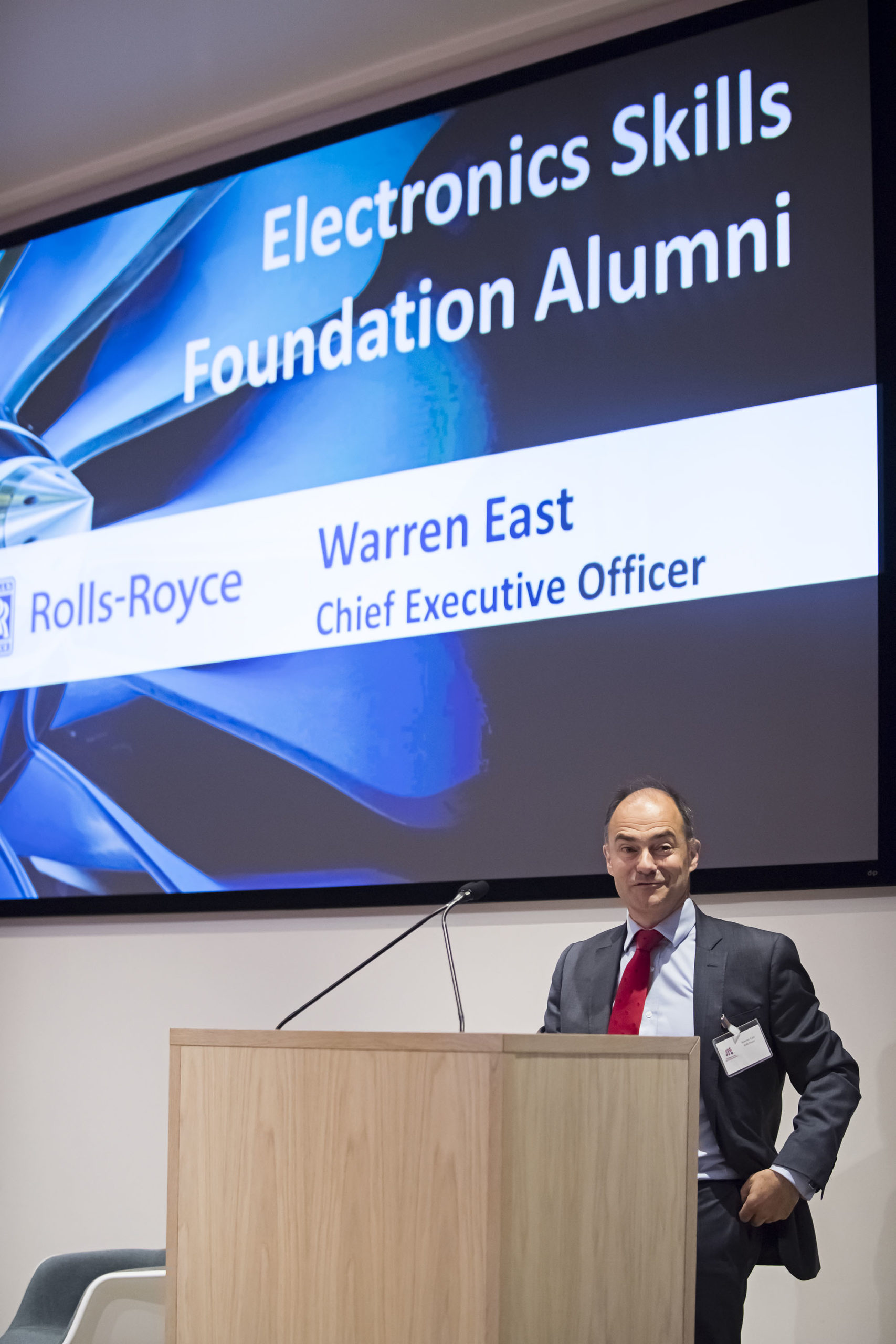
The afternoon began with an introduction from Stewart Edmondson, UKESF CEO, and included presentations from Indro Mukerjee, UKESF Founding Chairman, and Merv Haynes from Leonardo. Joining them were UKESF university partners Joyce Lewis from Southampton, Kevin Morris from Bristol, Steve Watts from Cardiff and Geoff Merrett from Southampton, in addition to two of the first scholars, Fergus MacGarry and Tom Dell. The UKESF were also delighted to welcome leading industrialist Warren East CBE, CEO of Rolls-Royce, as the keynote guest speaker.
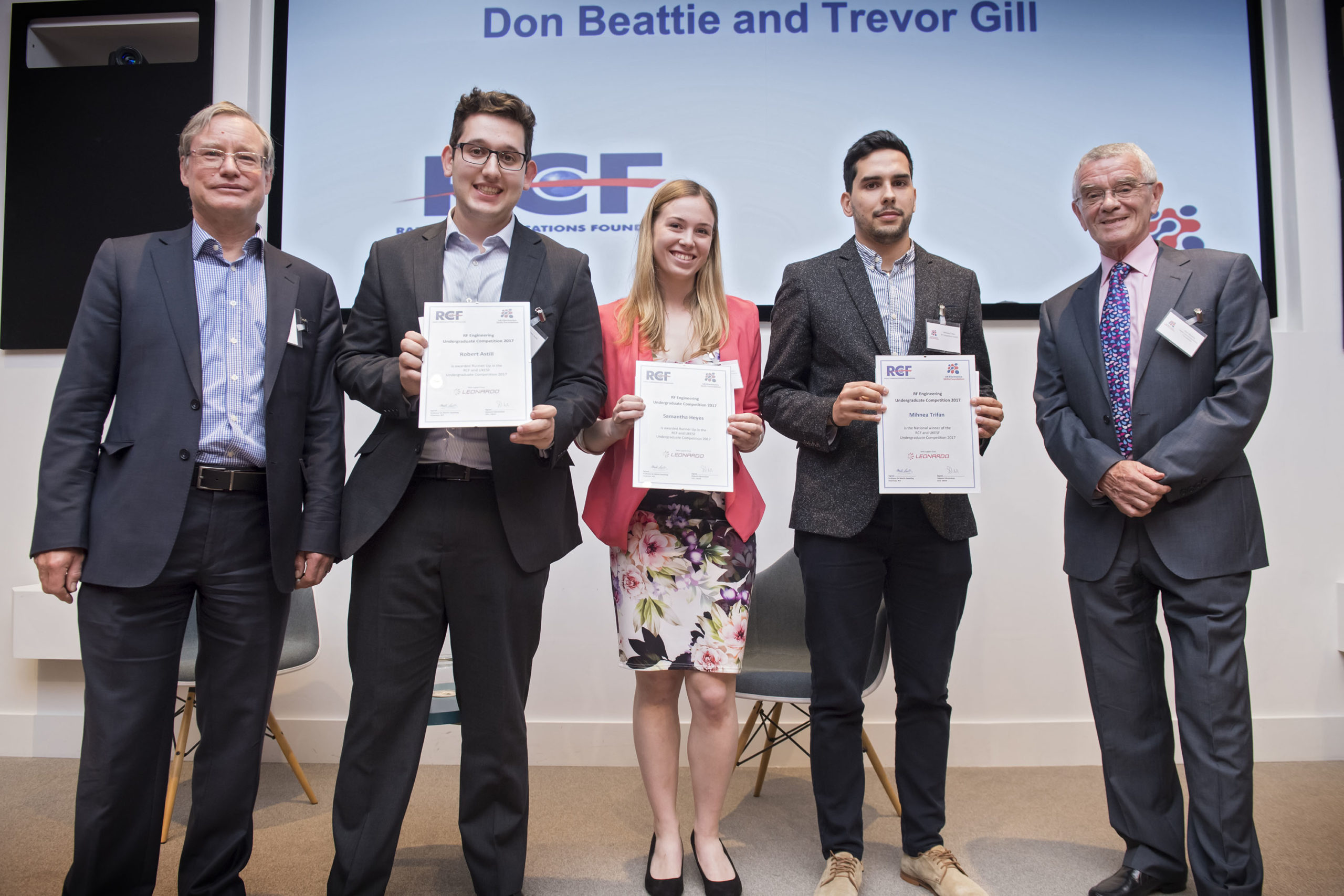
The RF Competition finalists
The announcement of the inaugural RF Engineering & Communications Competition winner was made by Trevor Gill and Don Beattie from the Radio Communications Foundation (RCF). The overall winner was Mihnea Trifan, who studies at the University of Sheffield and completed a FSS Antenna project, and the runners up were Samantha Heyes (Loughborough University), who produced her entry on Recognising People Using Smart Phone Antennas, and Robert Astill (University of Bath), with his Miniature Wireless Channel Sounder for UAVs project. They were all applauded for their work and received certificates and prizes of £1000 and £500 respectively.
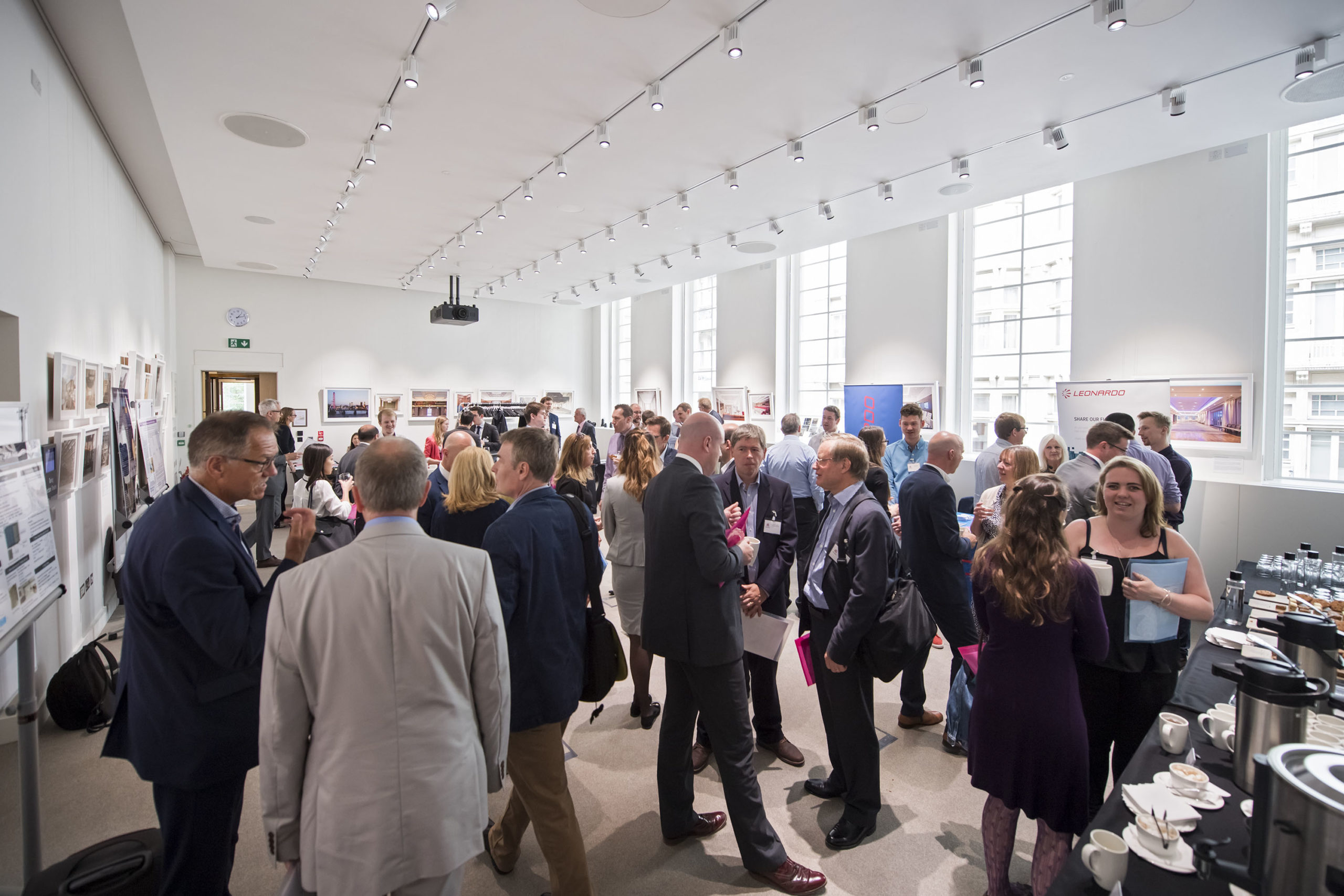
Networking at the Celebration Event
James E. Green, lecturer at the University of Sheffield, said, “The University of Sheffield is proud of the hard work and achievement of our students both when they are with us and after they graduate. We believe the quality of a Sheffield education can be measured by the success of our graduates and of the companies who employ them.
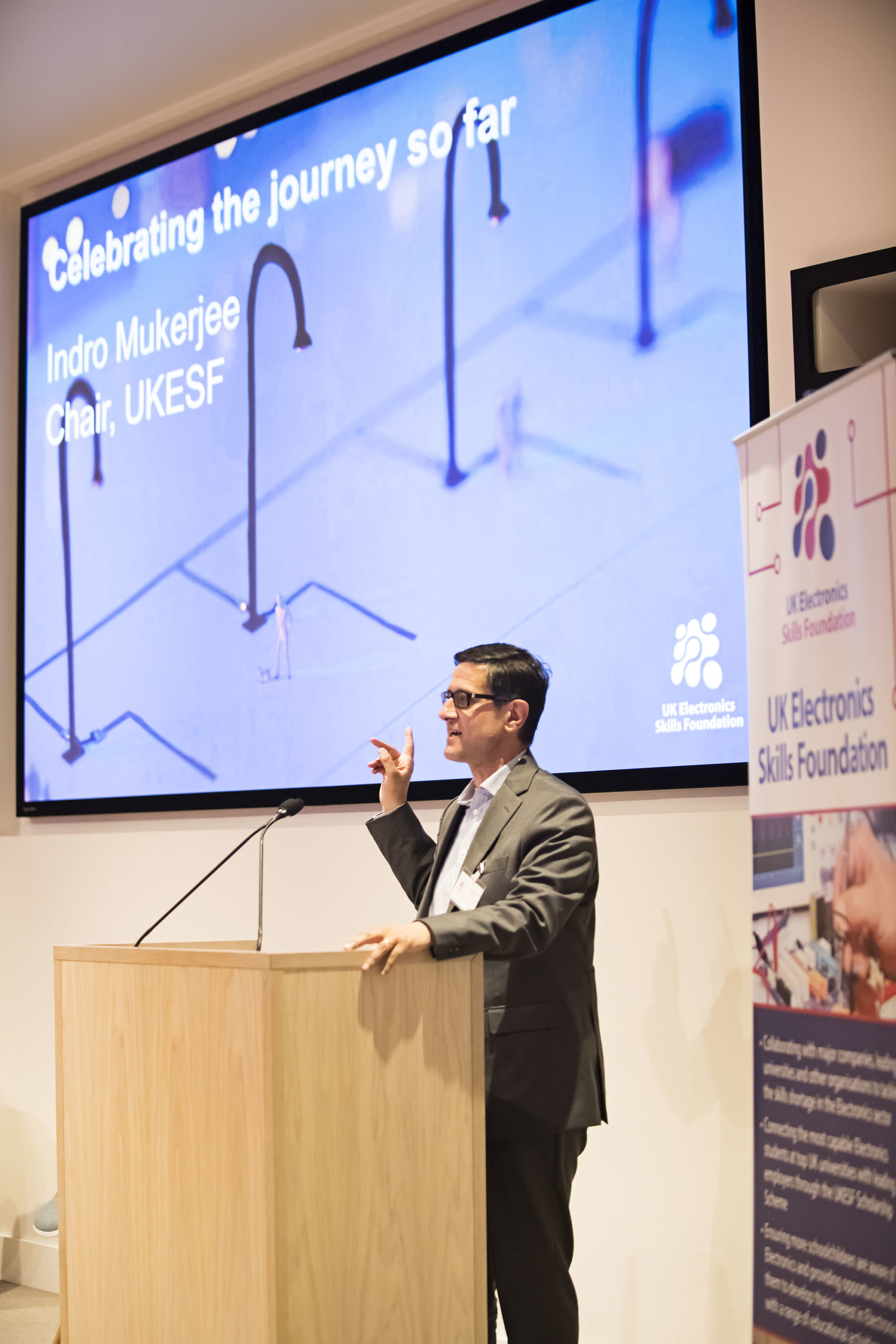
Indro Mukerjee
“We fully support and contribute to the UKESF, an excellent scheme which helps prepare students for careers in the engineering profession in ways that would be much less accessible if a purely academic approach to engineering was taken. The UKESF acts to foster collaboration between academia and the engineering industry. We believe students taking UKESF placements and then graduating are much more likely to remain in the engineering profession long term, which is highly desirable and a credit to the scheme.”
He also congratulated the runners up in the competition, “Many congratulations on your success today, well done!”
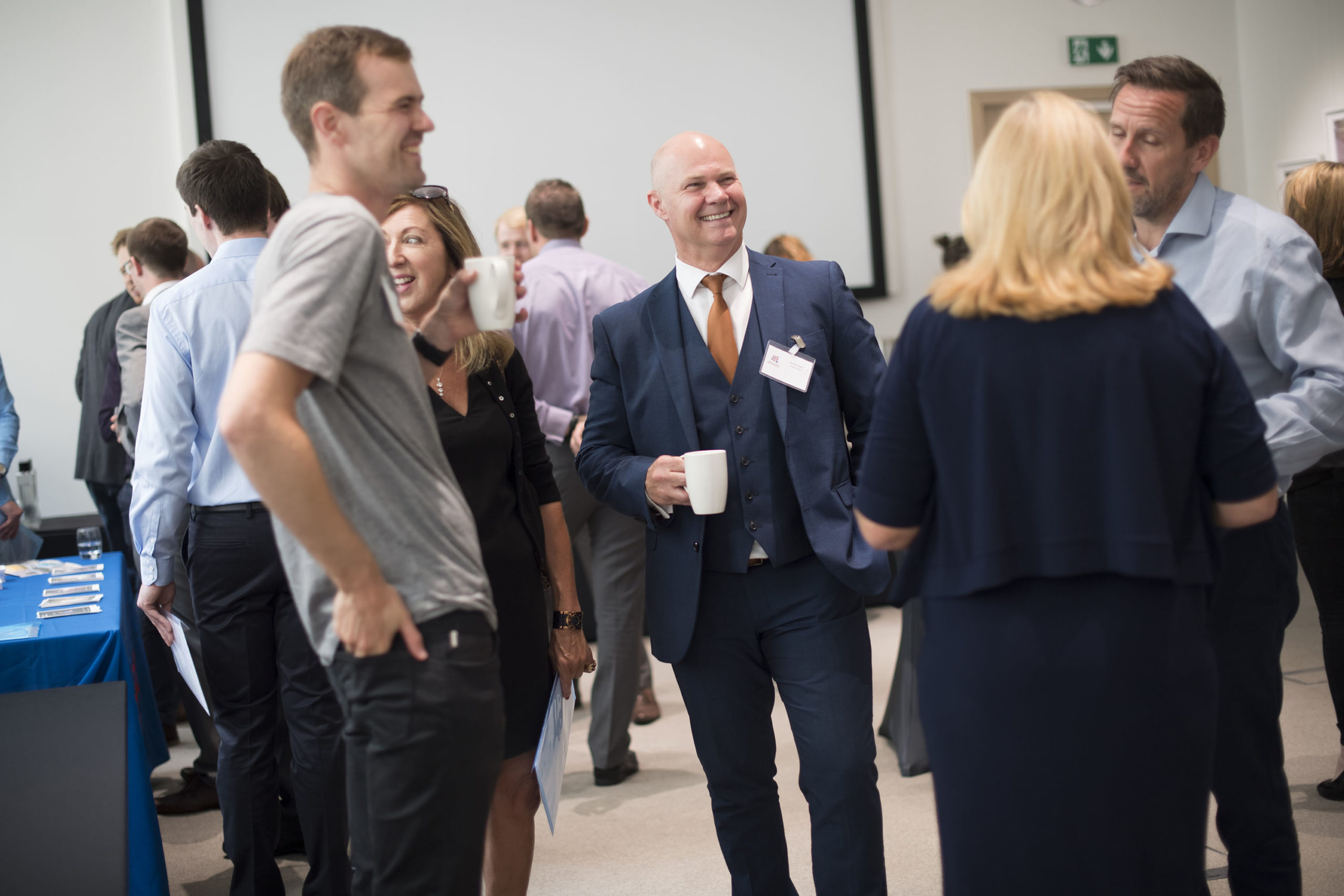
UKESF Scholar Workshop facilitators Lynn Tomkins (Skills 4 UK) and Darren Race (Think Eleven)
At the networking drinks reception following the event, Mihnea, the RF competition overall winner, commented, “I really enjoyed the day. For me it wasn’t only the outcome of the day (which was fantastic!) but also the whole networking experience that put me in contact with amazing engineers from the industry. The keynote speaker and other guests offered highly professional presentations which gave me insight into their day job and an overview of the companies which they are currently working for. The overall experience was memorable and is something which I hope to repeat in the future.”
The competition was held in collaboration between the UKESF and the RCF, with support from Leonardo.
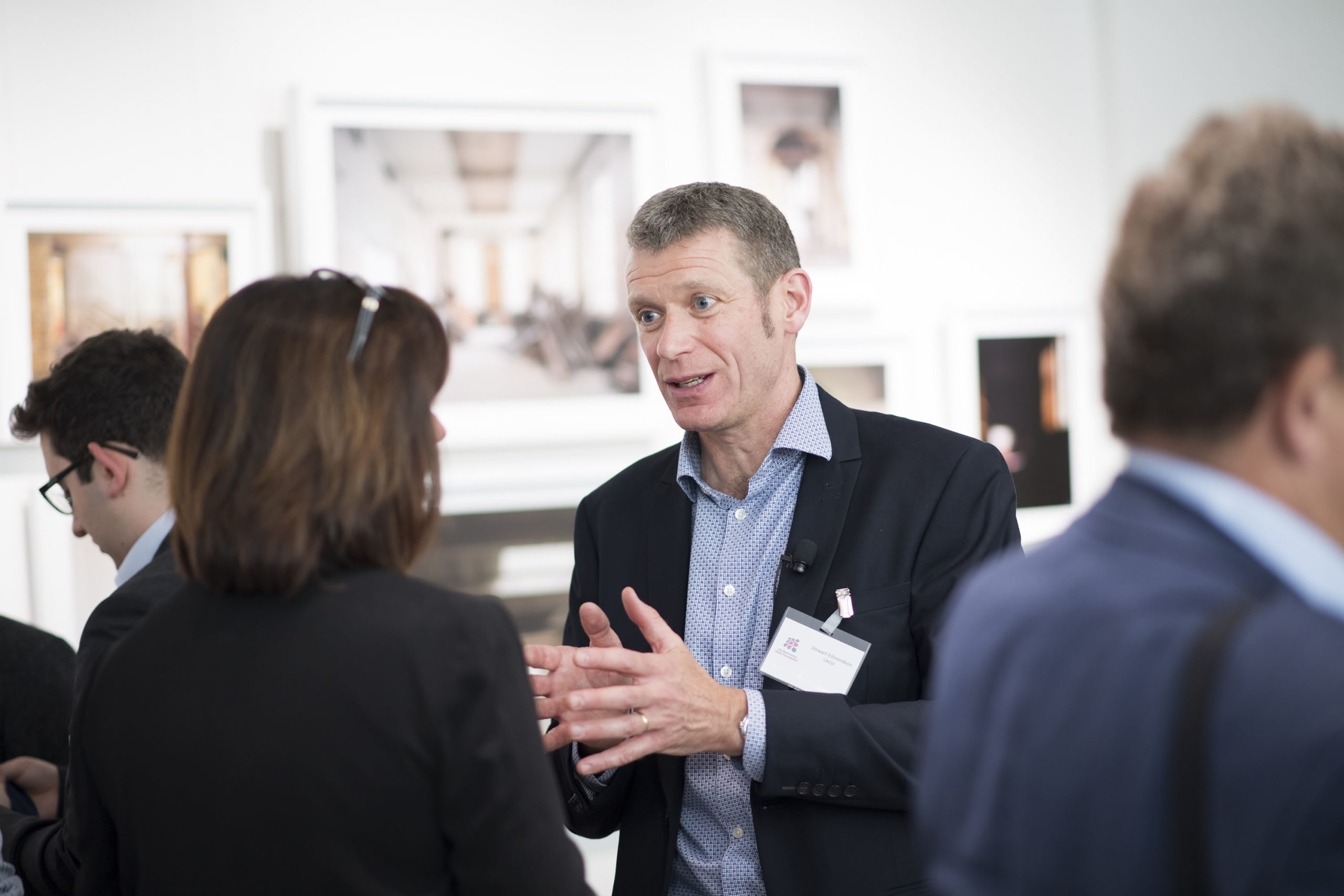
Stew Edmondson
Stew Edmondson, UKESF CEO, said, “I am delighted with how the celebration event ran and have received some encouraging messages of thanks and congratulations, with the overall view that there was just the right balance of content and information. We are now looking forward to taking the UKESF on its next journey – see you at the tenth anniversary celebration!”
The UKESF also produced a booklet that was launched at the event, looking back on the Scholarship Scheme to see how it has evolved and celebrate the achievements of the scholars who have graduated so far. The booklet is available for download here.
The UKESF would like to thank the following for their support: Radio Communications Foundation, IC Resources and Leonardo.
“Not only do bright and well educated undergraduates make a valuable contribution to our engineering projects we also benefit from their sharing of their own ideas and fresh perspectives with the rest of the business.”
Karen Oddey, C-MAC MicroTechnology
In an IET Engineering & Technology magazine interview Karen Oddey, C-MAC MicroTechnology CEO for Aerospace and Defence Electronics, talks about why they have got involved with UKESF. Its first UKESF scholar, Dominic Lane, who is studying an MEng degree in Space Technology & Planetary Exploration at the University of Surrey, explains that he was interested in holding a scholarship with C-MAC as he could get involved in their work in supplying solutions to the European Space Agency.
“The biggest success stories in any industry come from organisations that nurture talent at grass roots level.”
Bill Parsons, ARM
The Universities of Cardiff and York have joined the UK Electronics Skills Foundation, which seeks to reverse the decline in the number of graduates entering the electronics industry by linking electronic engineering degree students with companies for sponsorship and work experience placements.
The UK electronics industry is estimated to be worth £23 billion per year and employs 250,000 people1. Yet, the 47 percent decline2,3 (2002-2008) in those entering the subject at degree level has made it difficult to source engineers domestically with the requisite skills and experience.
York and Cardiff join the five founding university members Bristol, Edinburgh, Imperial College London, Southampton and Surrey.
Prof Karen Holford, head of Cardiff’s School of Engineering said, “Here, in the School of Engineering we are extremely proud of our laboratory facilities and ability to ensure our students receive excellent pastoral care as well as the education, training and inspiration required to enable them to become future industry leaders. UKESF membership will facilitate further industrial interaction, beyond our extensive existing industrial partnerships, enhancing Cardiff University’s high quality degree provision.”
Professor John Robinson of the University of York’s Department of Electronics said, “We share in the UKESF’s enthusiasm for encouraging young people to study electronics and enter exciting and challenging careers. Our BEng, BSc and MEng programmes are aligned with industry needs and can be taken with an industrial placement year. The number of students choosing the industry placement route is growing and being a partner in UKESF increases the connections between our students and electronics companies even further.”
Bill Parsons, executive vice president of HR at ARM and a member of the UKESF strategic advisory board commented: “The biggest success stories in any industry come from organisations that nurture talent at grass roots level. These additions to the list of UKESF partner universities will help ensure the best students are given the opportunities they need to develop; and this is a solid step in maintaining the UK electronics industry’s global competitiveness.”
Founded in January 2010, the UKESF aims to have 160 new undergraduate scholarships each year, with 10 UKESF partner universities and 100 sponsor companies signed up by 2014.
[1] Electronic System Design: A Guide to UK Capability 2009/10 Edition, BERR/UKTI
[2] Engineering and Technology Board, “Engineering UK 2007”, Research Report, Dec 2007 – section 3.9.4
[3] Universities and Colleges Admissions Service data show a continued decline in UK acceptances to 2,689 for 2008
UKESF was founded by a collaboration of public bodies, private companies and UK universities to address the threat of the rapidly diminishing skills base in the UK electronics sector.
The UK Electronics Skills Foundation (UKESF) has reported strong industry commitment to its university scholarship programme since it launched in January. Within the first four months nine electronics businesses had signed up to provide over 30 scholarships and work experience opportunities. The scheme is aimed at undergraduates studying for electronics degrees at leading UK universities.
UKESF was founded by a collaboration of public bodies, private companies and UK universities to address the threat of the rapidly diminishing skills base in the UK electronics sector. Its principal aims are to increase and sustain the supply of industry-ready graduate engineers and boost career take-up in the sector. A new dedicated UKESF website has just gone live and undergraduates are now applying for the first UKESF scholarships.
Derek Boyd, CEO of the National Microelectronics Institute (NMI) and UKESF founder board member said, “This is a great start to tackling a serious industry issue. The UKESF scholarship scheme was designed to be attractive to companies of all sizes in helping them to engage with some of the most promising engineers of the future. The initial uptake by a range of companies clearly demonstrates just how fit for purpose the scheme really is and that our industry is passionate about encouraging young people into the exciting and challenging careers that it offers. I invite all UK electronics companies, large and small, to get involved in the scheme.”
James Collier, a non-executive director and co-founder of CSR plc said, “It’s essential that our sector continues to nurture its own young talent to maintain the country’s global competitiveness and its position as one of the world’s leading innovators. The UKESF scholarship scheme will do this by helping UK universities produce the country’s next generation of engineering innovators.”
Paul Double, founder and managing director of EDA Solutions said, “It is important that all electronics businesses, including small companies like mine, should have very clear requirements and real expectations for their graduate engineering intake and it’s vital that industry works together with the universities to ensure that engineering graduates arrive with the pre-requisite skills set that are needed.”
UKESF has formed a strategic advisory board to guide its vision, growth and sustainability. Indro Mukerjee, founder chairman of UKESF and CEO of C-MAC Technology commented, “I believe strongly in nurturing skills and capability as a basis for sustainable sector performance and in order to achieve this, it is important that broader national initiatives are complemented by focused and tangible mechanisms such as the UKESF. We have made a great start yet UKESF has a long-term role, and I look forward to overseeing its immediate impact and enduring contribution.”
The UKESF’s operational plan aims to have achieved the following levels of engagement with undergraduate students, companies and universities within five years:
Members of the UKESF Strategic Advisory Board have been explaining how UKESF fits with Government and sector skills council initiatives in an article in New Electronics.
Members of the UKESF Strategic Advisory Board have been explaining how UKESF fits with Government and sector skills council initiatives in an article in New Electronics this week. In advance of their first Board meeting, they have been talking about initiatives to improve the level of skills in the UK electronics sector and the contribution that UKESF will make.
Lynn Tomkins the Operations Director for the Sector Skills Council for Science, Engineering and Manufacturing Technologies (Semta) raises current concerns over the supply of graduates to the sector, a driver behind the establishment of UKESF. Indro Mukerjee, the Chairman of the UKESF Strategic Advisory Board and member of Semta’s Board, talks about how he has been heartened by the way that the founding members have funded UKESF. Derek Boyd, Chief Executive Officer of the National Microelectronics Institute, adds how proud he is that UKESF has already achieved commitment from nine companies to support over 30 scholarships.
“For me, one of the key components of the UKESF programme is the school liaison. To start to turn the decline around you have to develop the excitement about the electronics industry early on.”
Dialog Semiconductor sponsors its first UKESF Scholars from the Universities of Bristol, Southampton and Surrey
From Dialog, Andy Repton (Senior Engineering Director, Advanced Technology) and Rebecca Fradley (Global Head of Learning and Development) explain how UKESF works for them in an Electronics Weekly interview, and we hear from one of their UKESF Scholars, Adam Malpass from the University of Southampton in the Electronics Weekly magazine.
The UKESF Industry Founders are offering over 20 scholarships to undergraduate students at our Partner Universities.
Over 20 undergraduate scholarships for 2010/11
The first UKESF scholarships
The UKESF Industry Founders are offering over 20 scholarships to undergraduate students at our Partner Universities. The scholarships will be awarded in the year 2010/11 to the successful candidates and are being sponsored by our Industry Founders:
The scholarships are available to talented undergraduates at the UKESF Partner Universities:
Students can apply for a scholarship in any year of their study except for the final year.
The scholarships on offer vary in duration from one to five years and include annual bursaries and summer work placements across the UK and in Europe. The sponsoring companies will also be supporting their scholars through mentoring and sponsorship to attend UKESF professional development workshops. Some are also offering one-year sandwich placements and industry-based projects in addition to the UKESF scholarships.
UKESF is also talking to other companies interested in sponsoring scholarships starting in 2010/11 and these will be advertised on this website over this summer.
Find out more about Scholarships.
“Forward-looking electronics companies need to sign-up to the UKESF programme and help address what is a national concern of strategic importance.”
Indro Mukerjee
UKESF created to tackle dramatic decline in UK electronic engineering degrees
The National Microelectronics Institute (NMI) has announced the creation of the UK Electronics Skills Foundation (UKESF) to address the threat of diminishing skills in the UK electronics sector. The foundation aims to increase and sustain the supply of industry-ready graduate engineers and boost career take-up in the sector.
NMI CEO Derek Boyd said, “The dramatic decline in the numbers of Electronic Engineering graduates will present the country with a long-term issue if left unchecked. We’ve identified the underlying problems in the existing skills pipeline which undermine the future prospects of the industry and UKESF has been created to tackle the major issues. Its goal is to ensure that the sector is supplied with the quality of talent to enable it to continue to be innovative, competitive and able to provide high-value jobs to support the wider economy.”
UKESF is a collaboration of public bodies, private companies and leading UK universities and has been launched with initial start-up funding from founder partners NMI, BIS (Department for Business Innovation and Skills), SEMTA (The Sector Skills Council for Science, Engineering and Manufacturing Technologies), ARM Ltd, Cambridge Silicon Radio Ltd, C-MAC MicroTechnology, Dialog Semiconductor and Imagination Technologies. Founder university partners are Bristol, Edinburgh, Imperial College, Southampton and Surrey.
Indro Mukerjee, Chairman and CEO of C-MAC MicroTechnology and Chair of SEMTA’s Electronics Sector Strategy Group said, “It has taken a lot of hard work and collaboration to get UKESF off the ground and I now look forward to it becoming an integral part of the UK Electronics scene. The foundation has set itself realistic goals yet to achieve them more private enterprises need to support it. Forward-looking electronics companies need to sign-up to the UKESF programme and help address what is a national concern of strategic importance.”
UKESF will initially focus on:
Minister for Higher Education David Lammy said, “It is essential that we raise awareness of the rewarding careers available to young people in our growth industries, such as those in the electronics sector and this new foundation will help provide the high quality industry-ready graduates we need for economic success.”
The UKESF operational plan aims to have achieved the following levels of engagement with school and undergraduate students, companies and universities by 2015:
Estimated to be worth £23 billion a year, the UK electronics industry is currently the fifth largest in the world. The UK sector employs about 250,000 people in 11,500 companies,1 with design accounting for 52,500 engineers across 5,200 sites.2 The UK is also acknowledged as the European leader in independent electronics system design, making up approximately 40% of the market. UK companies lead electronic design in multiple niche market application areas,such as communications (e.g. NFC, Bluetooth, Basestation, cellular and satellite), microprocessor design, video, graphics, audio and many other areas.
Despite the UK’s position in the market, it is widely recognised that the industry is finding it difficult to source engineers domestically with the requisite skills and experience for the design sector. There are particular concerns over the supply of graduate engineers, the low level take-up of careers in the sector, and the decrease in students enrolling on electronics degree courses. The ETB report ‘Engineering UK 20073 reveals that Electronic and Electrical Engineering degrees saw a 45% decline in UK acceptances of places to 2,824 between 2002 and 2006, and that only one third of recent graduates in this discipline move on to professional engineering careers. More recent UCAS4 data show a continued decline in UK acceptances to 2,689 for 2008. A 2008 report for SWRDA5 also reflects the common concern from industry that the “pipeline of graduate engineers is drying up” particularly in view of the “ageing population” of engineers.6
1 Electronic System Design: A Guide to UK Capability 2009/10 Edition, BERR/UKTI
2 New Electronics Census 2008
3 Engineering and Technology Board, “Engineering UK 2007”, Research Report, Dec 2007
4 Universities and Colleges Admissions Service
5 Microelectronics Sector Development Framework, Report presented to SWRDA, September 2008
6 UK Electronics Alliance, “Submission to the Innovation, Universities, Science and Skills Committee Major Inquiry into Engineering”, March 2008